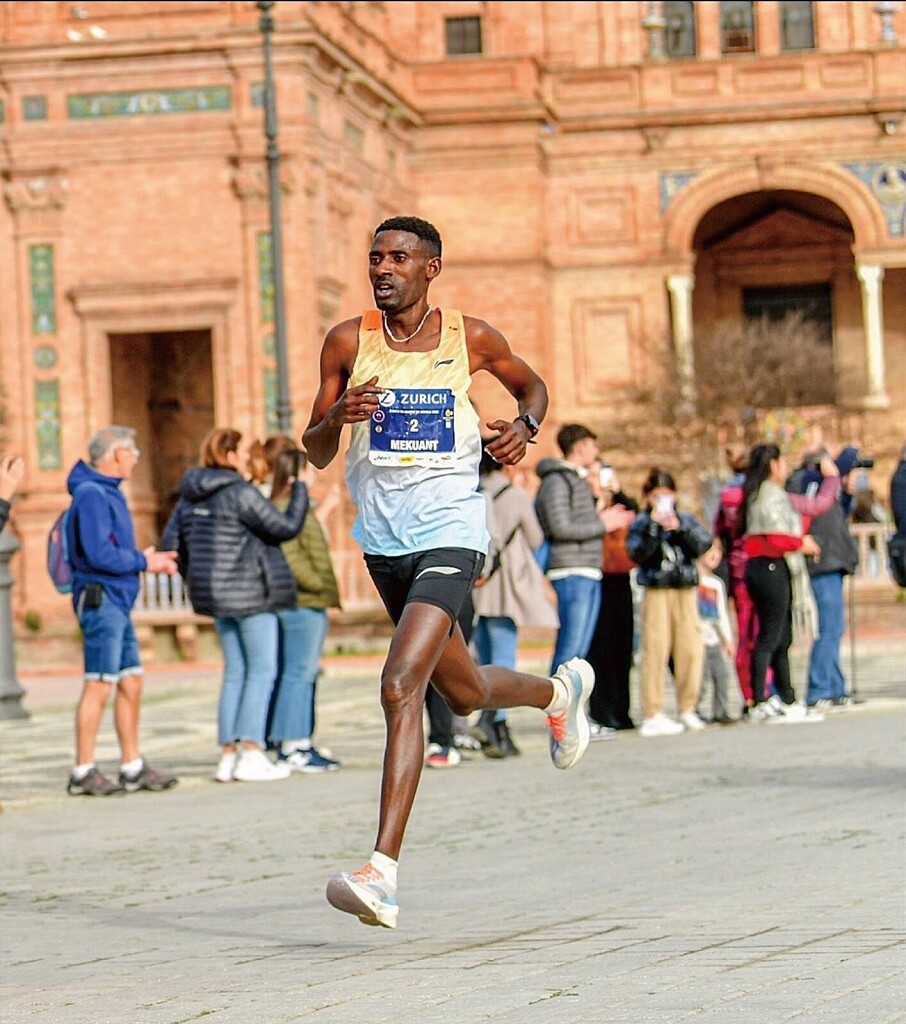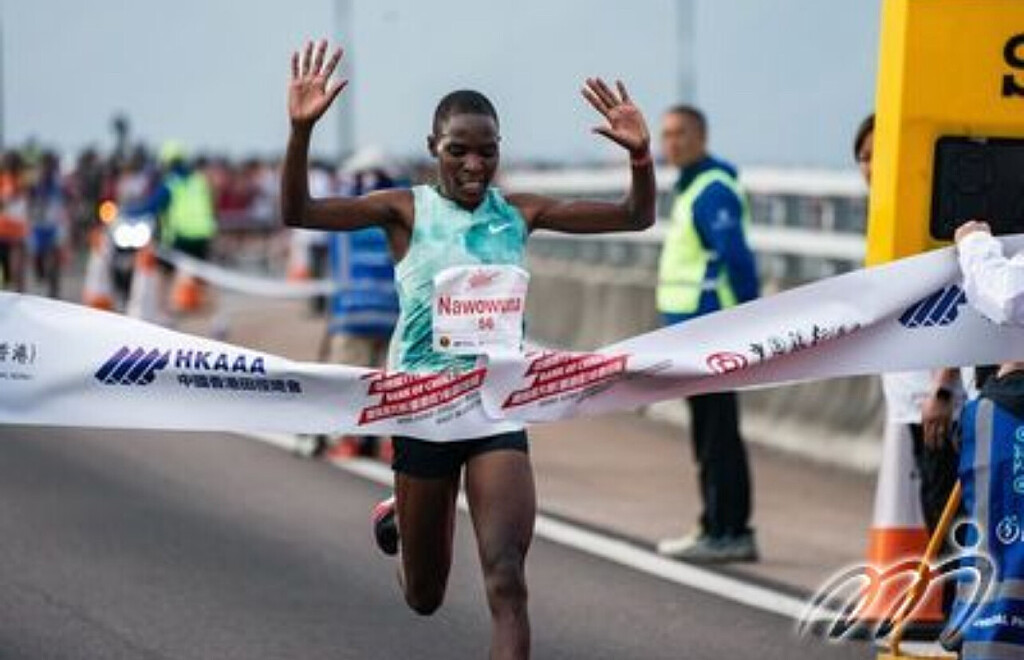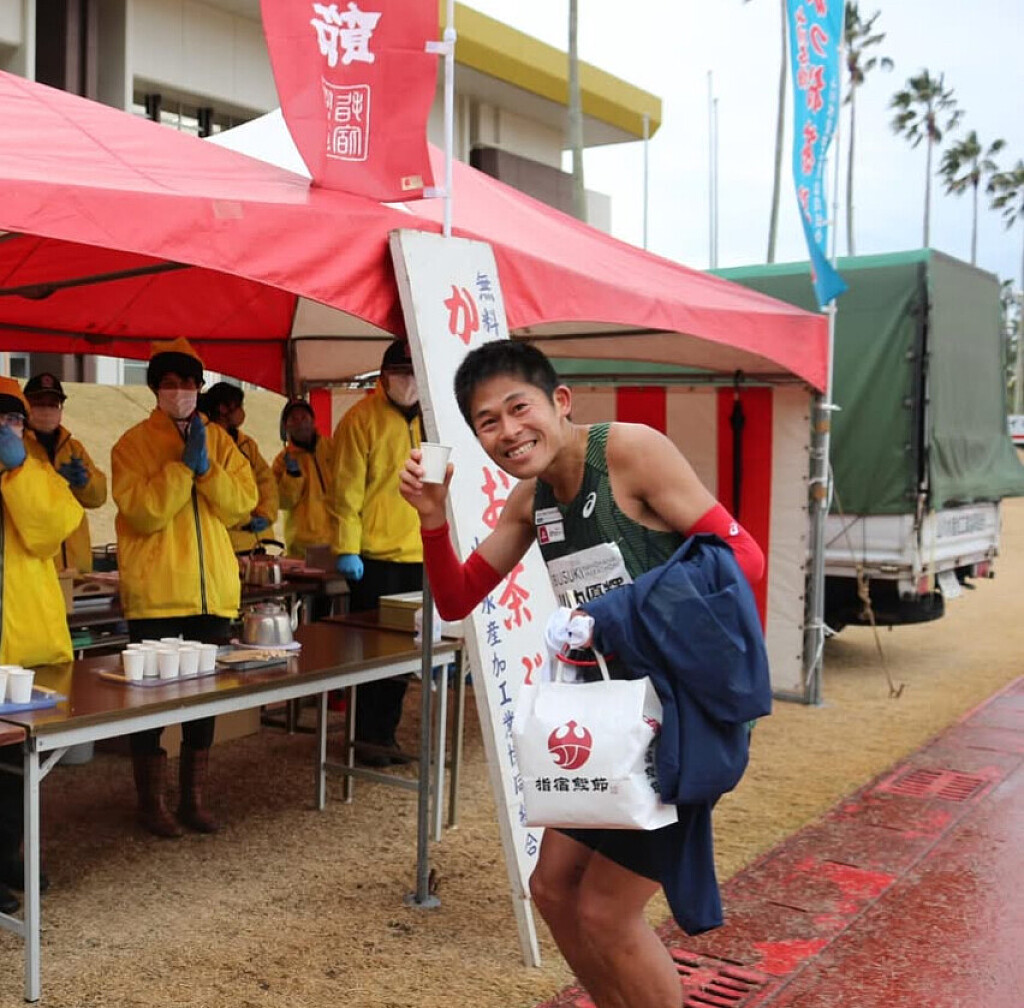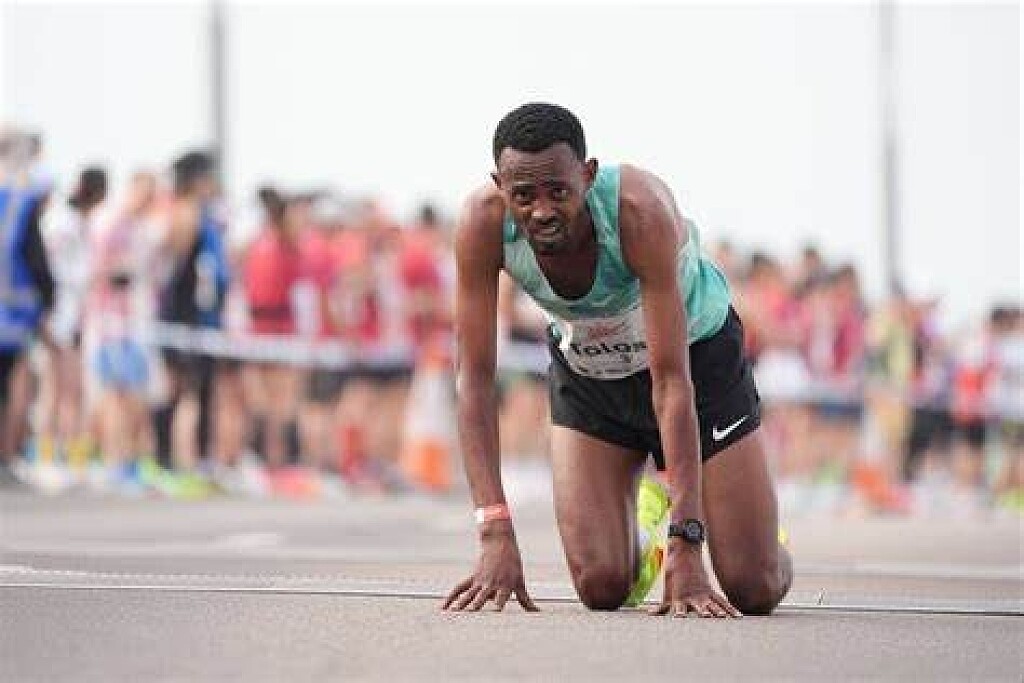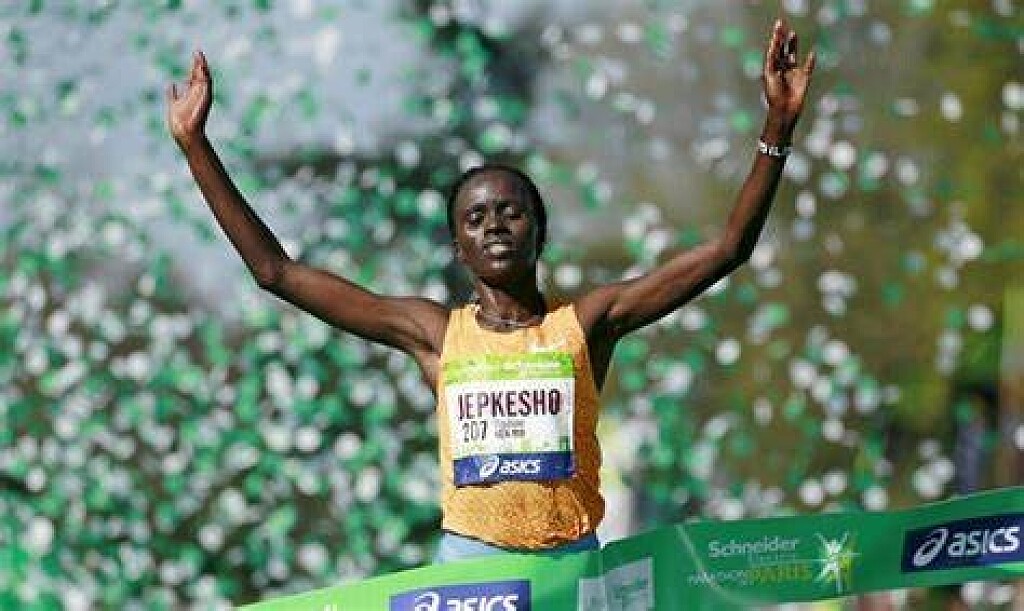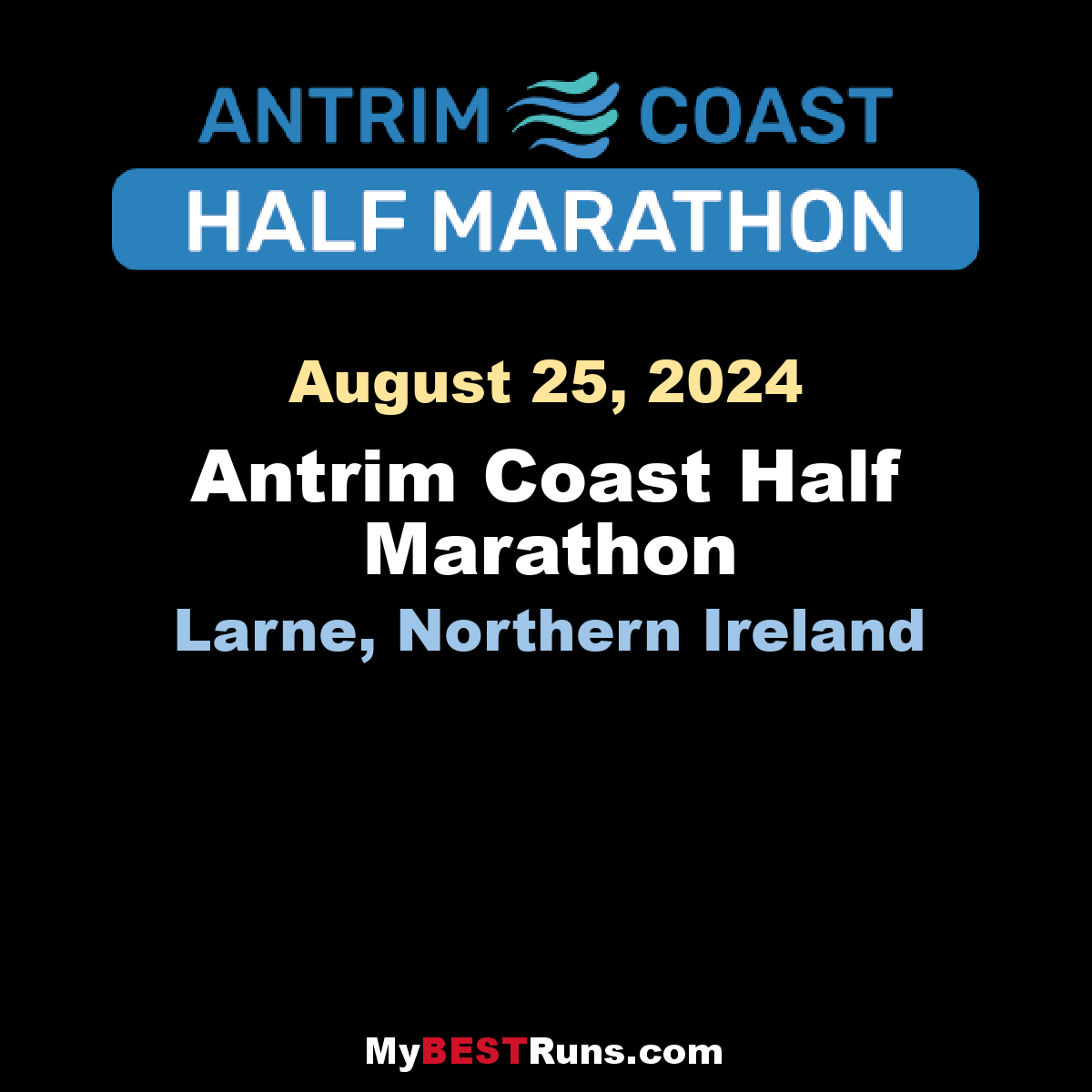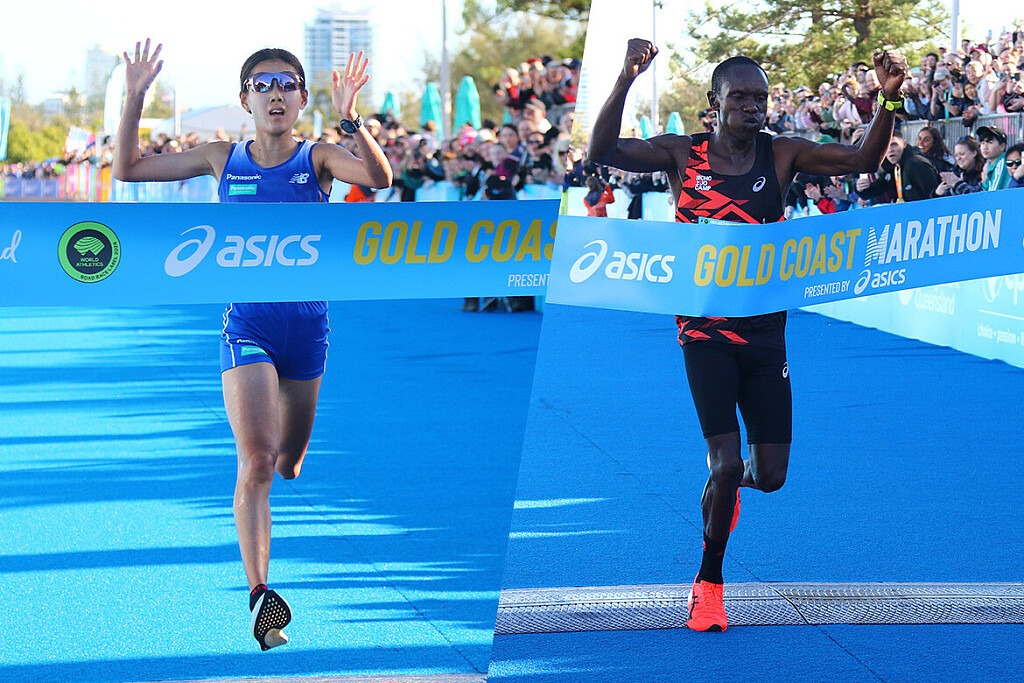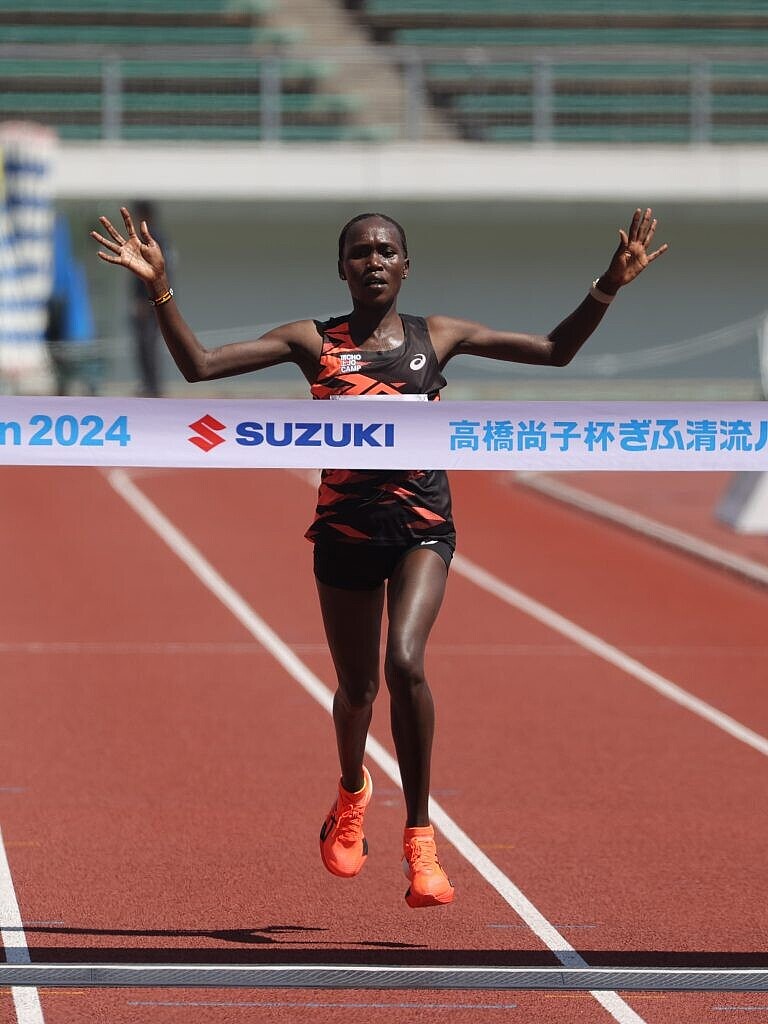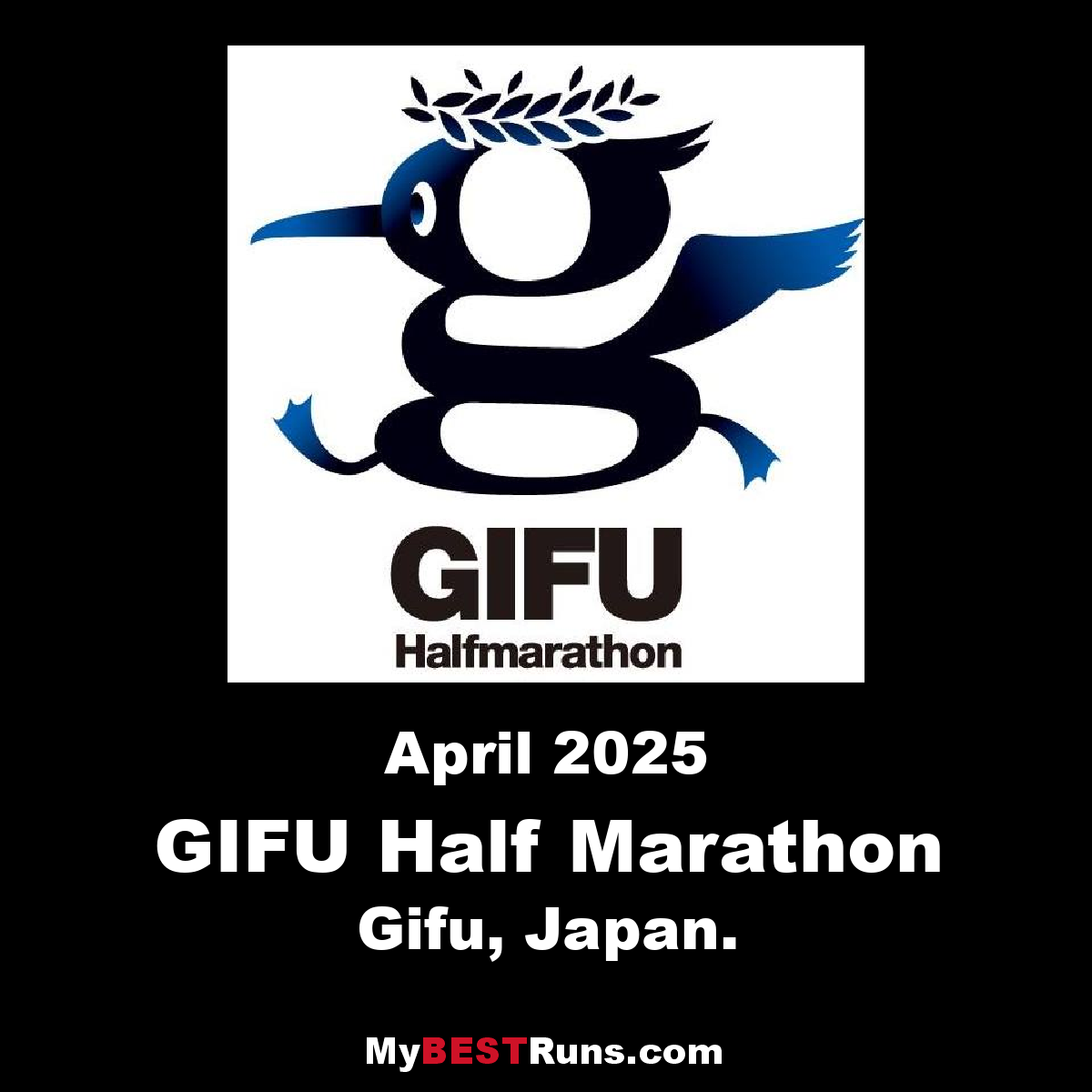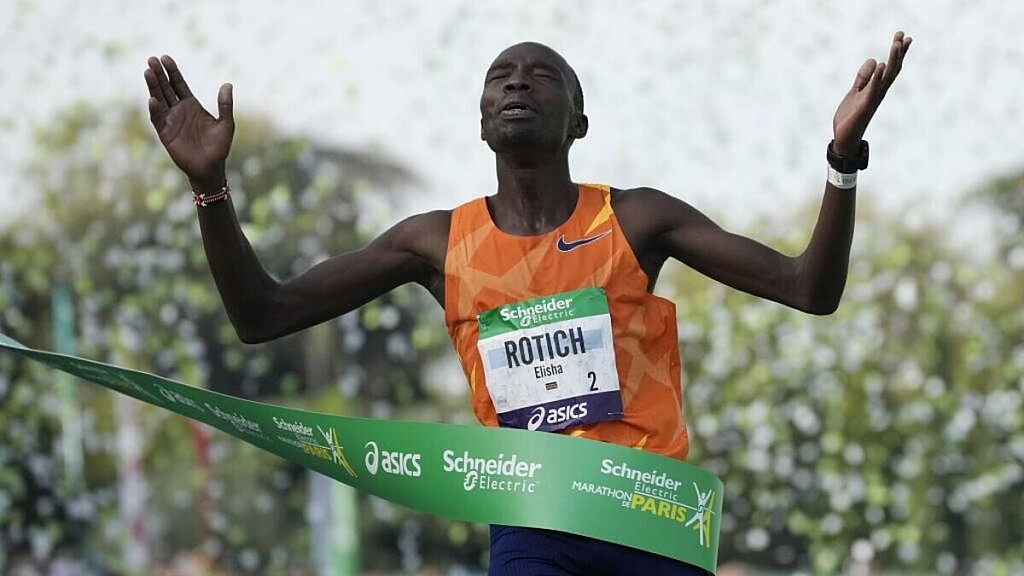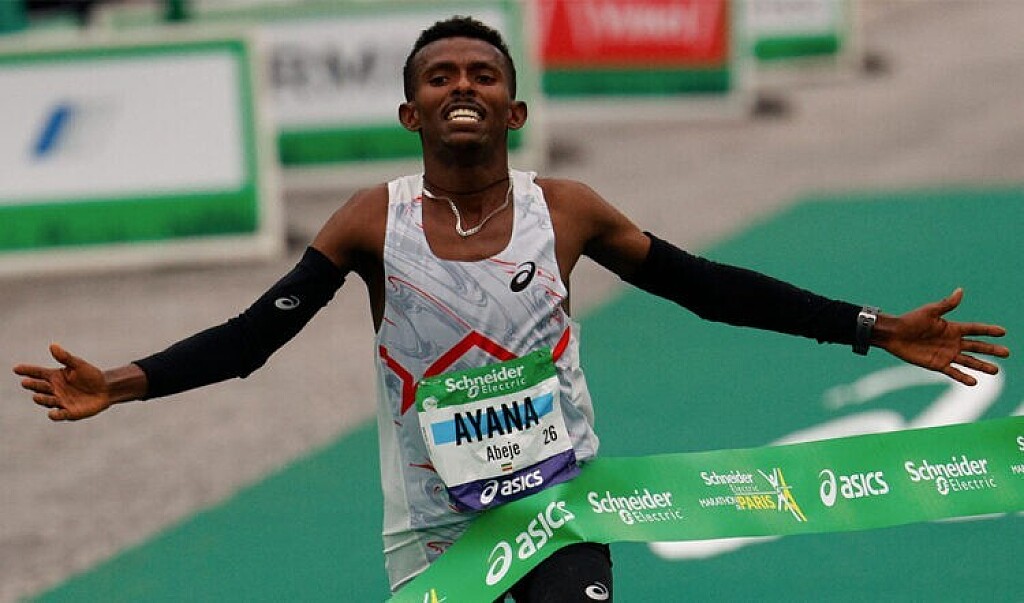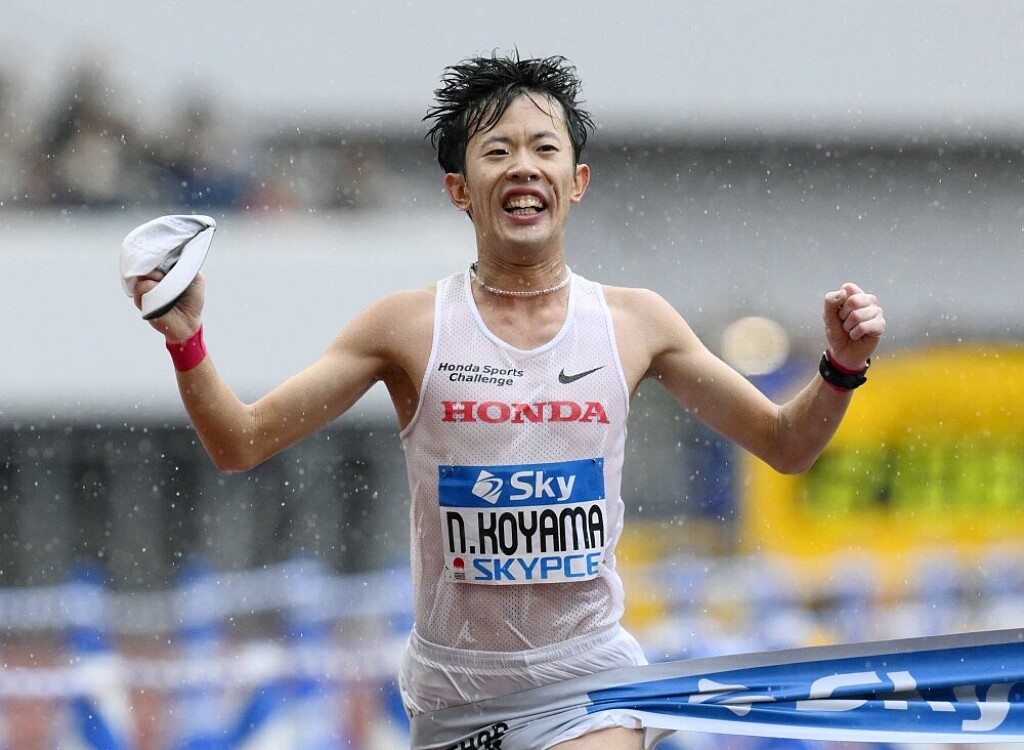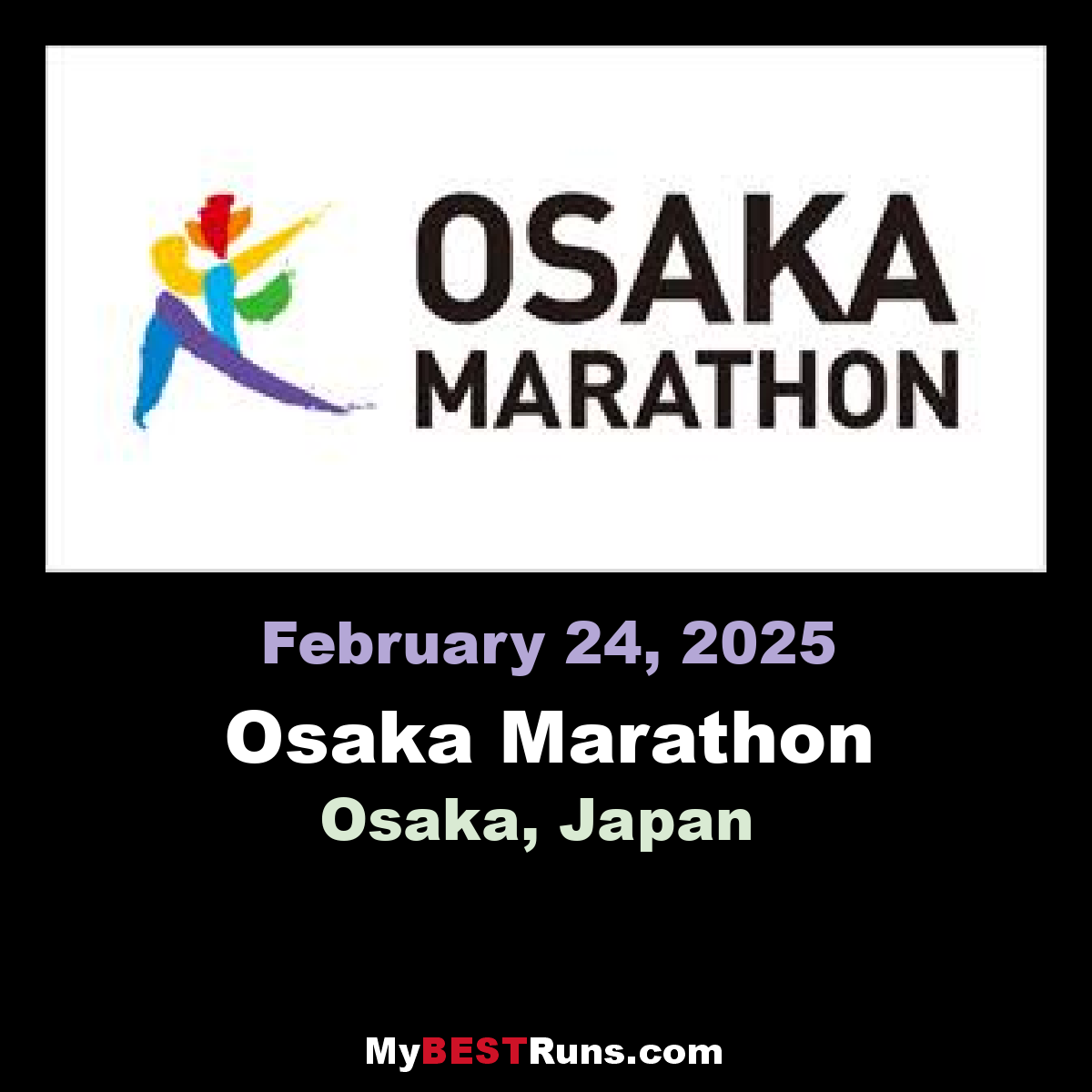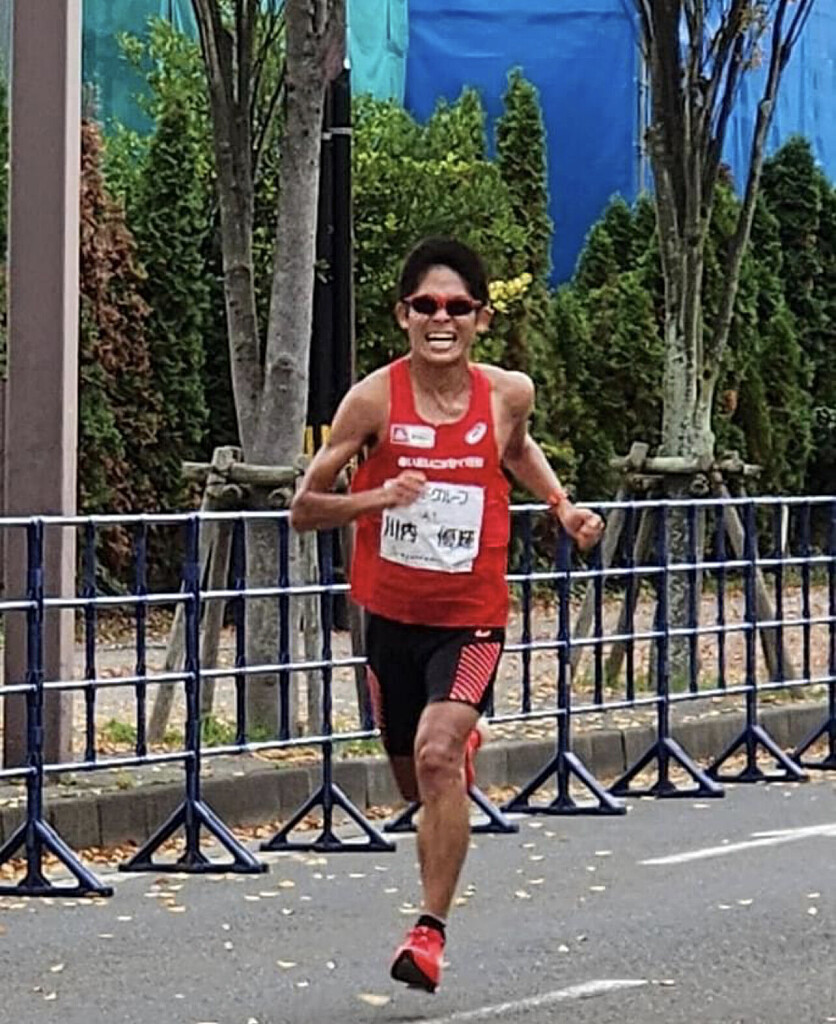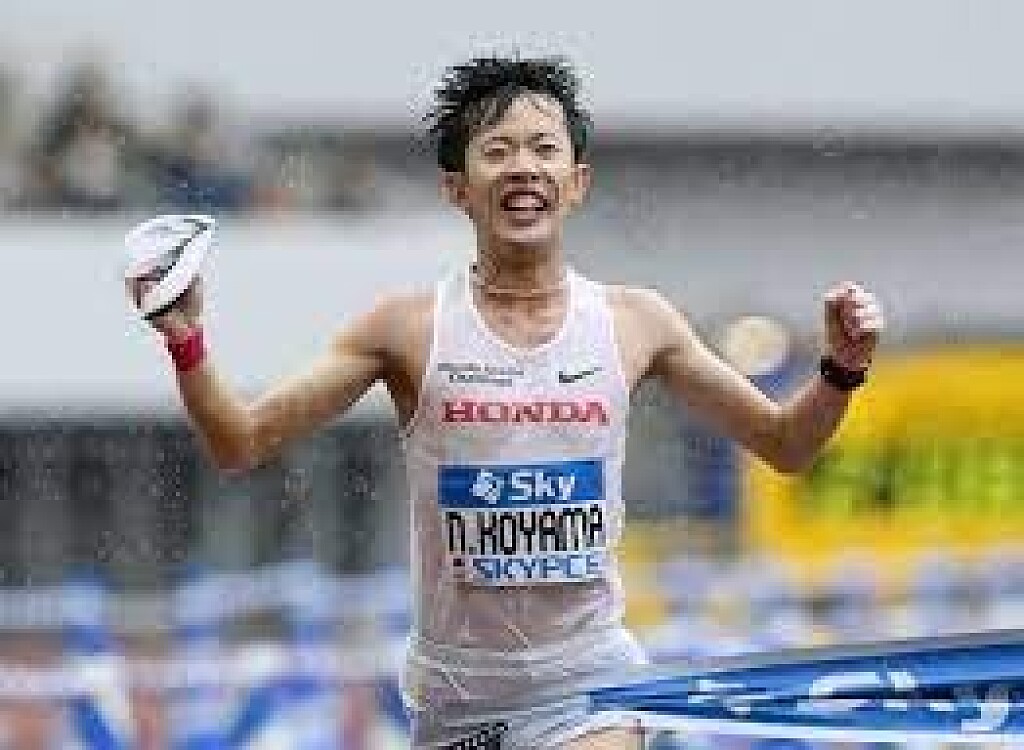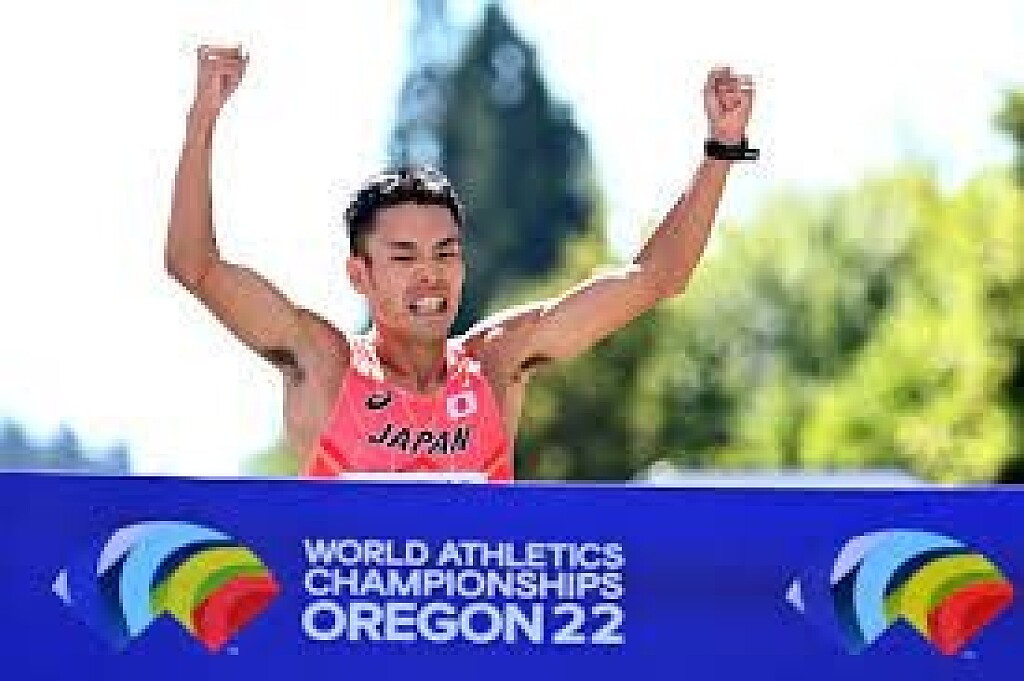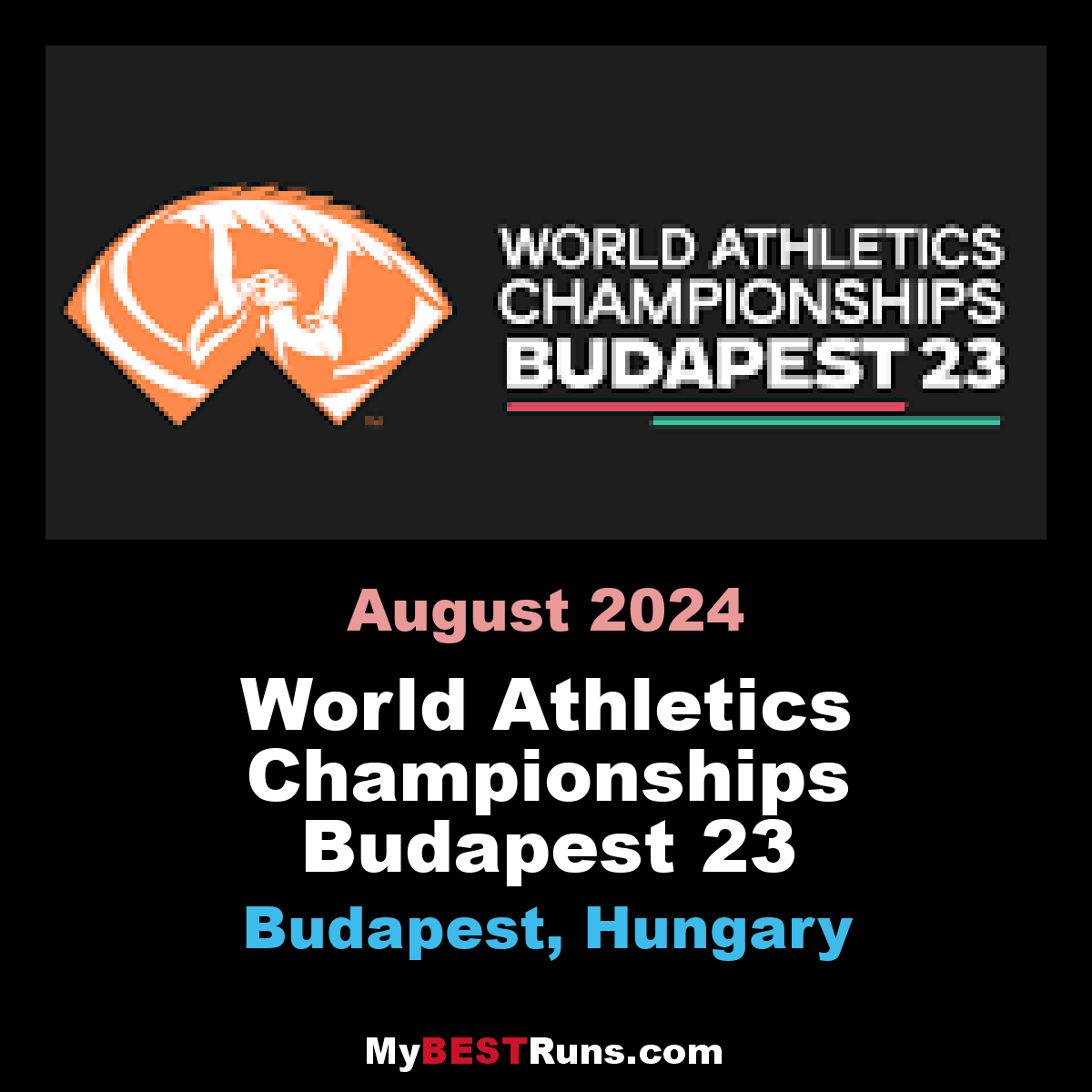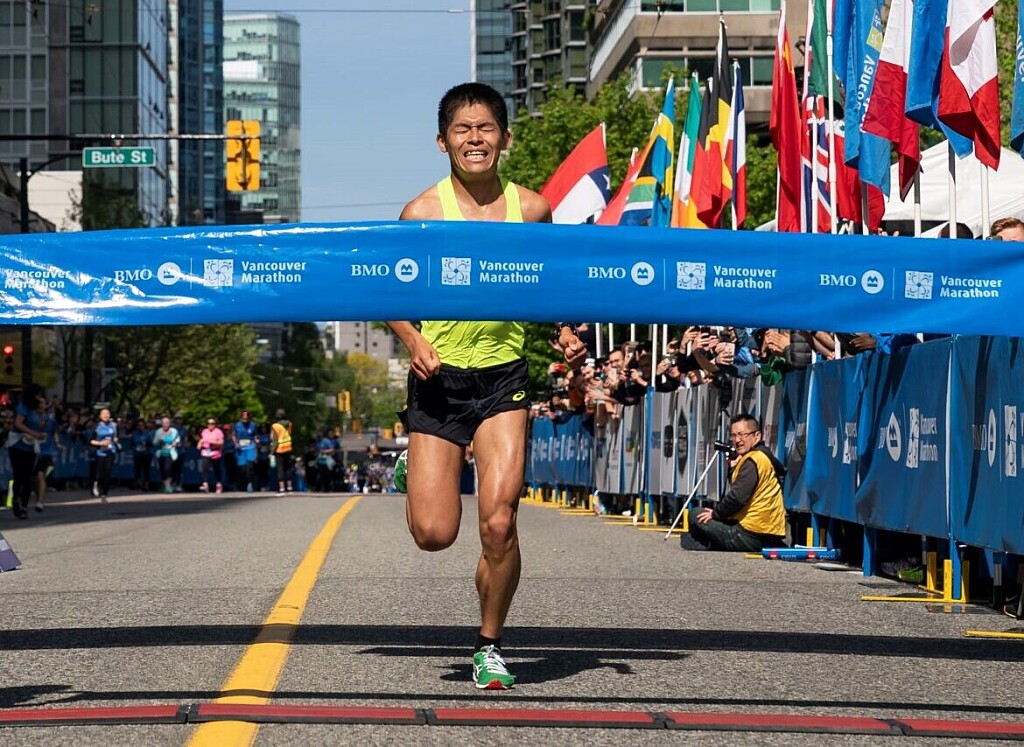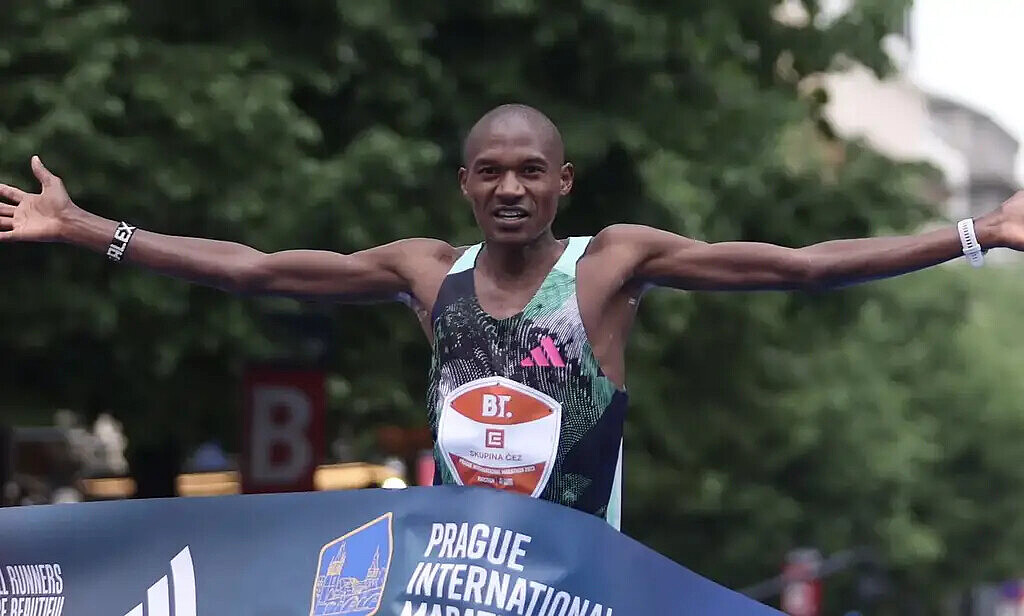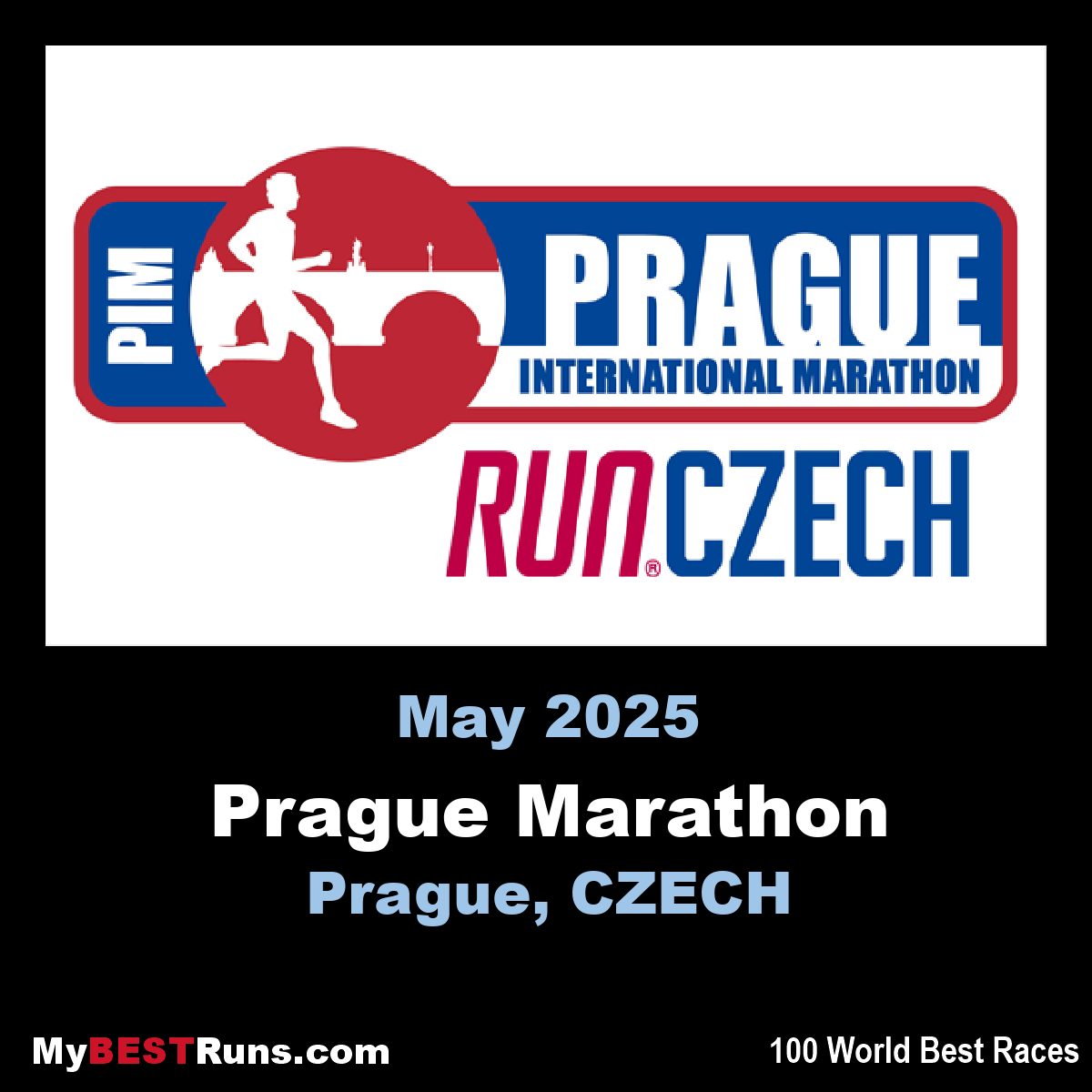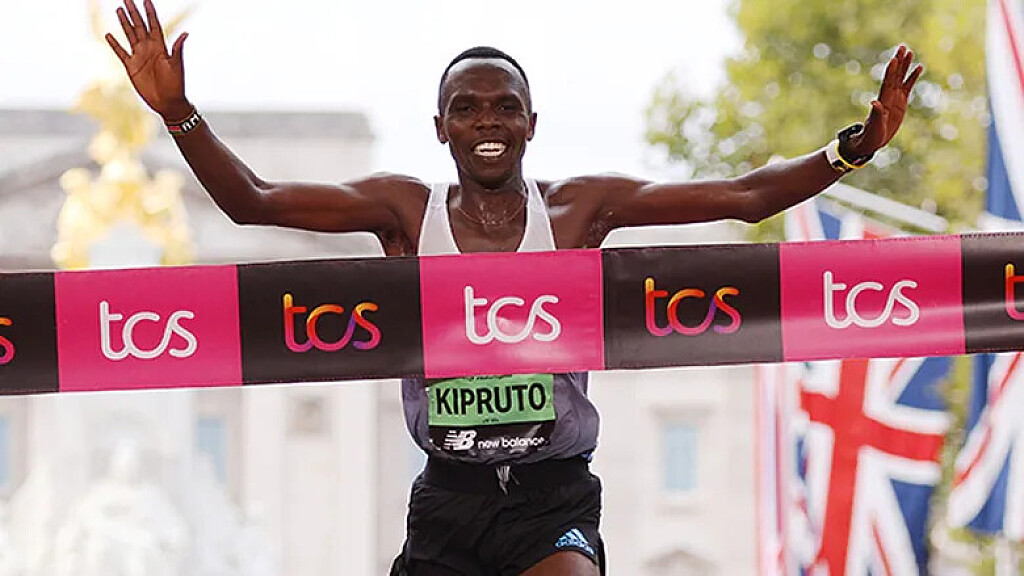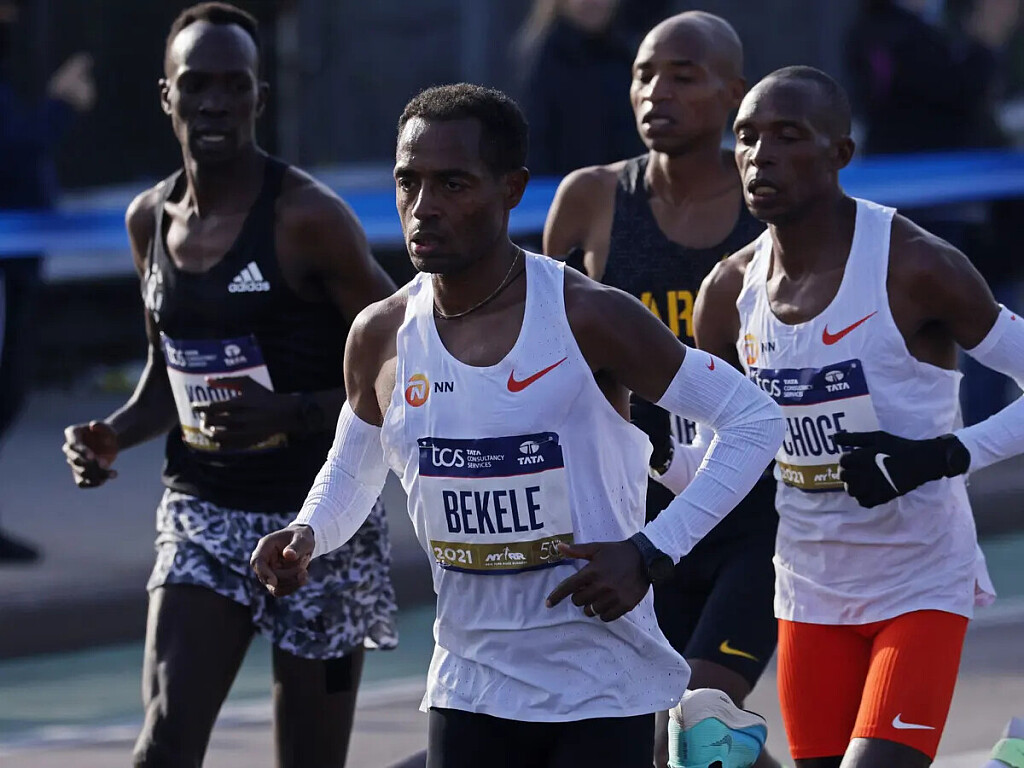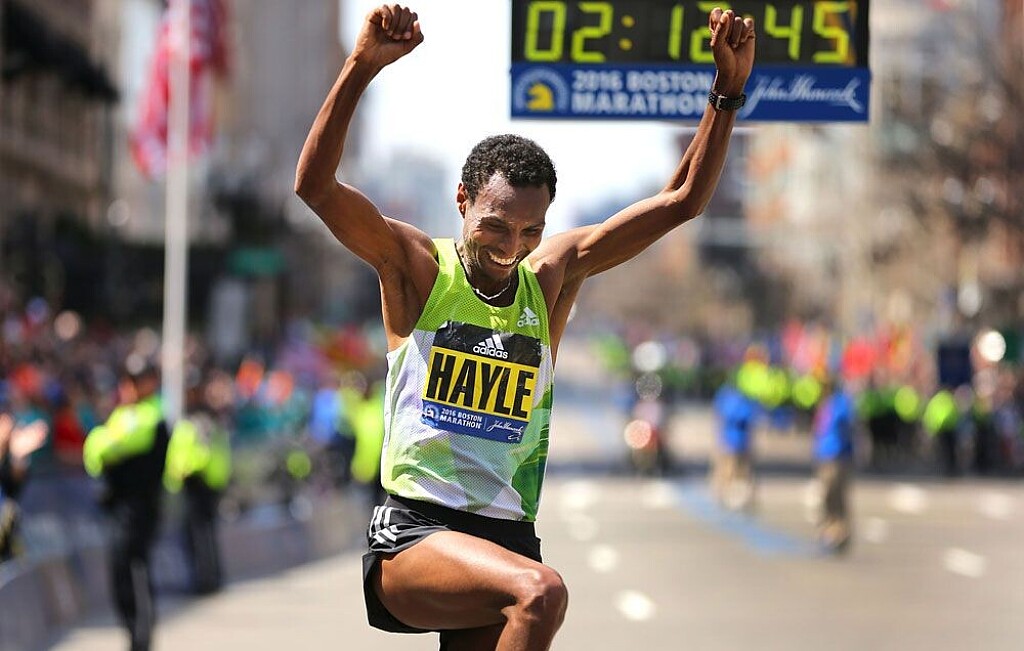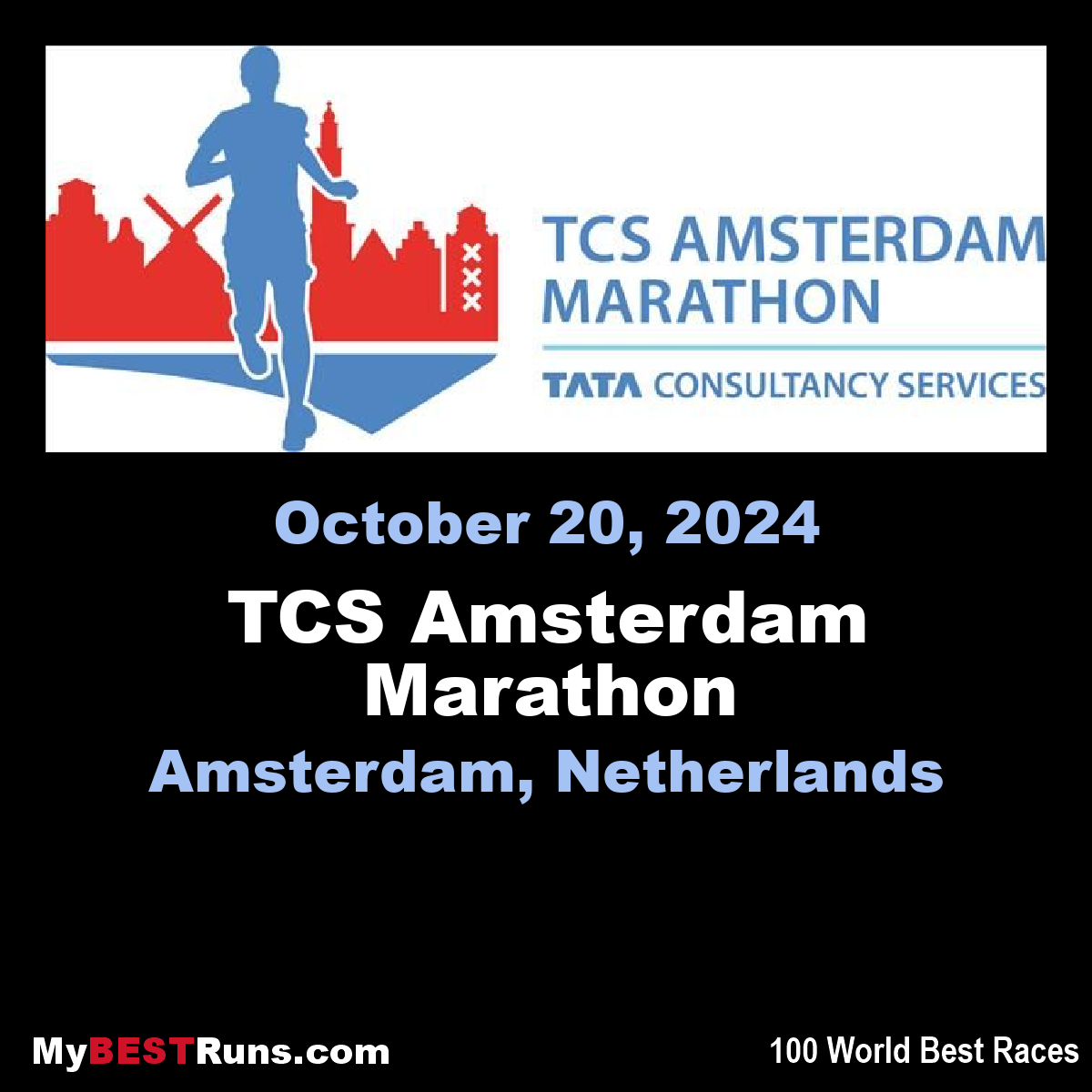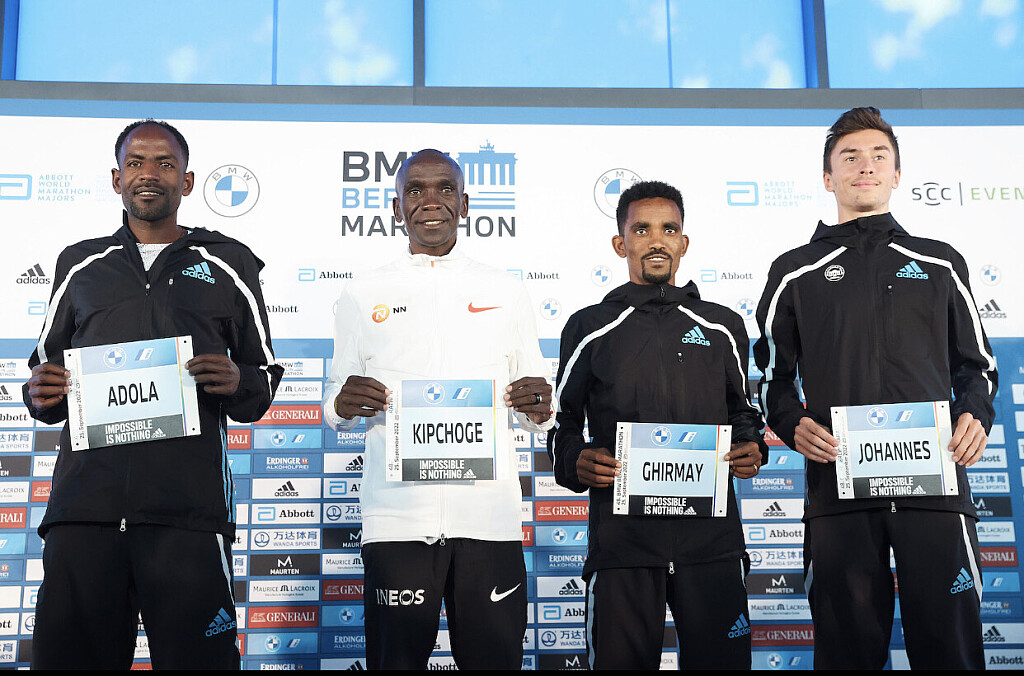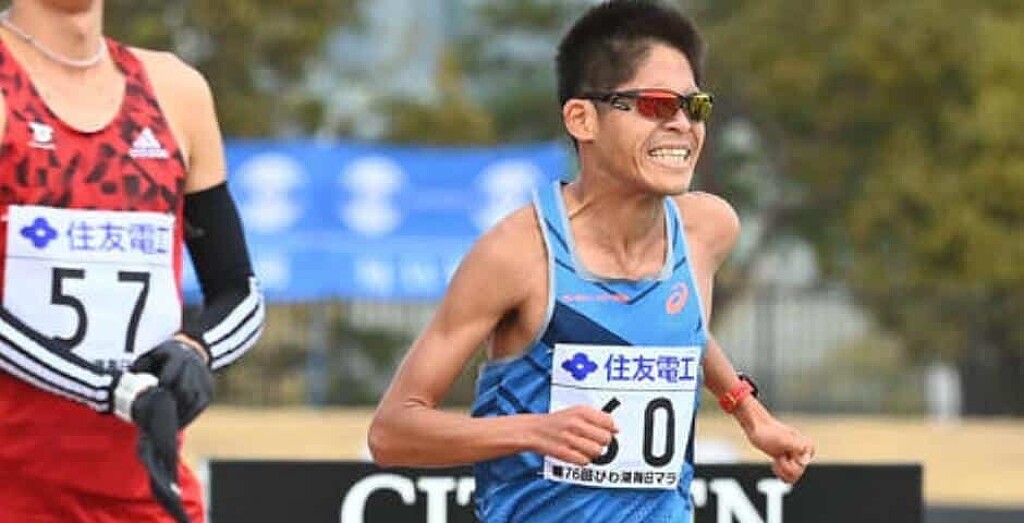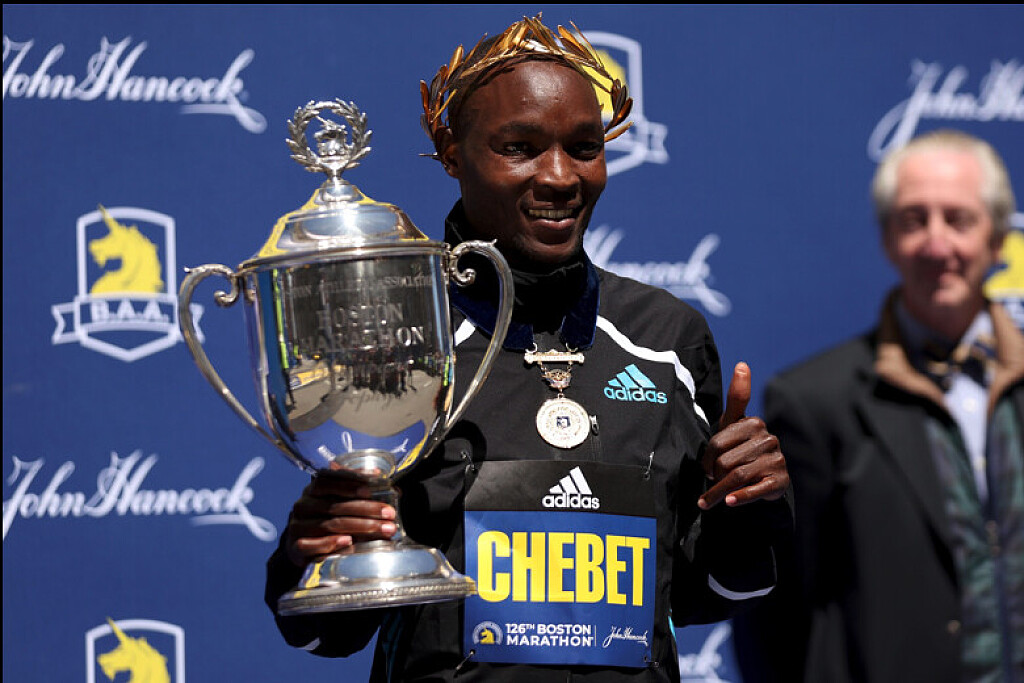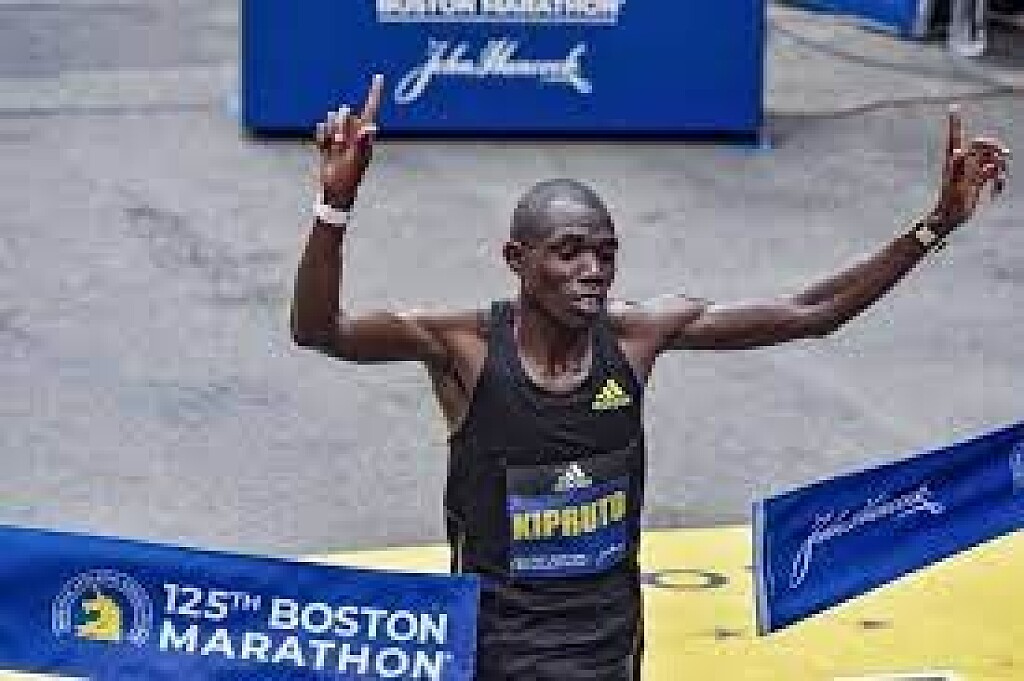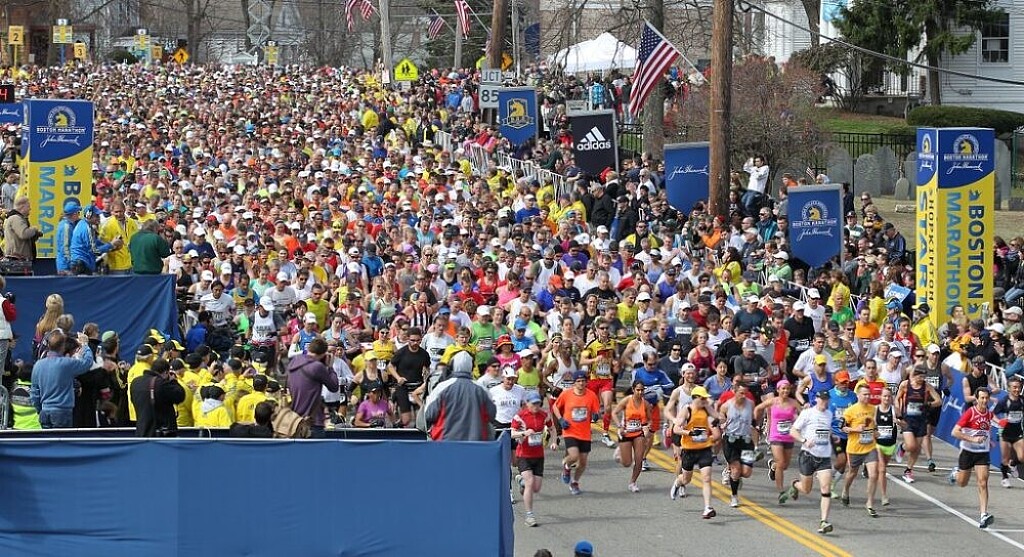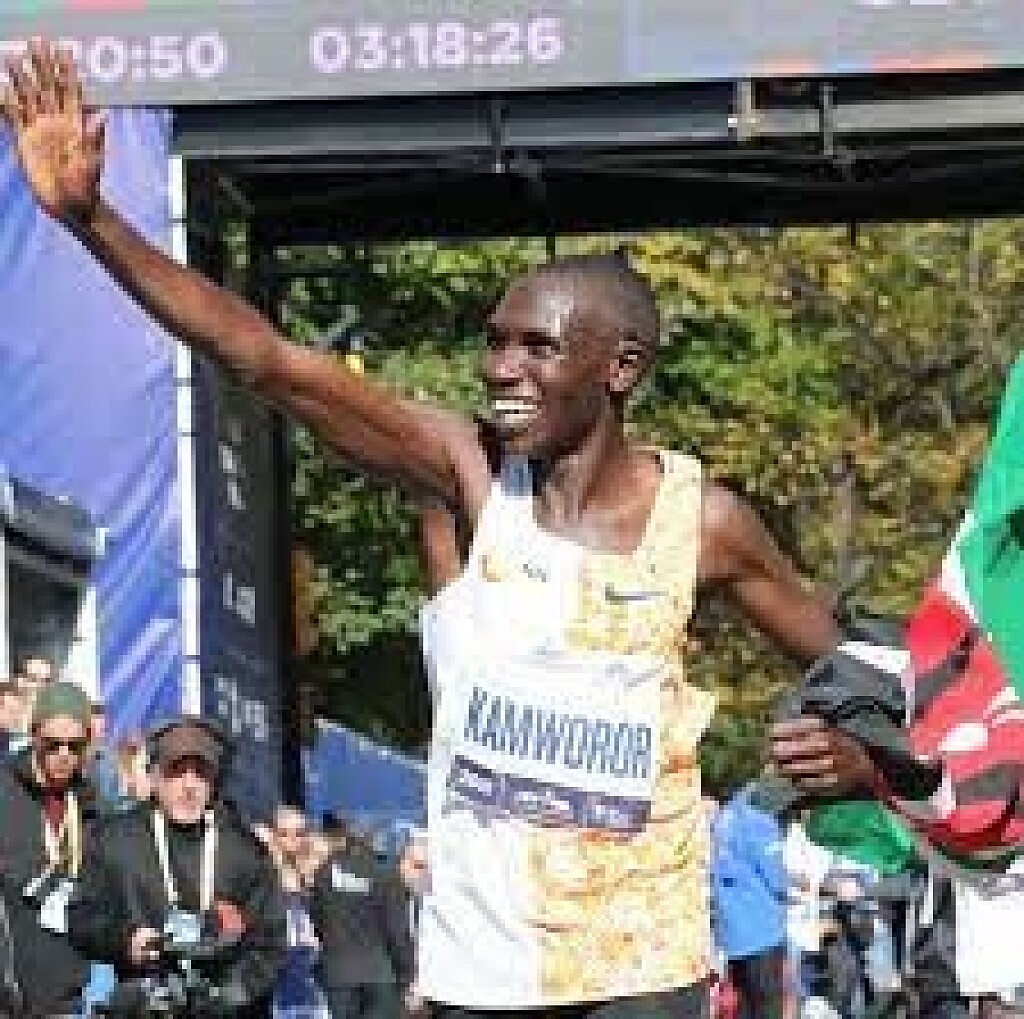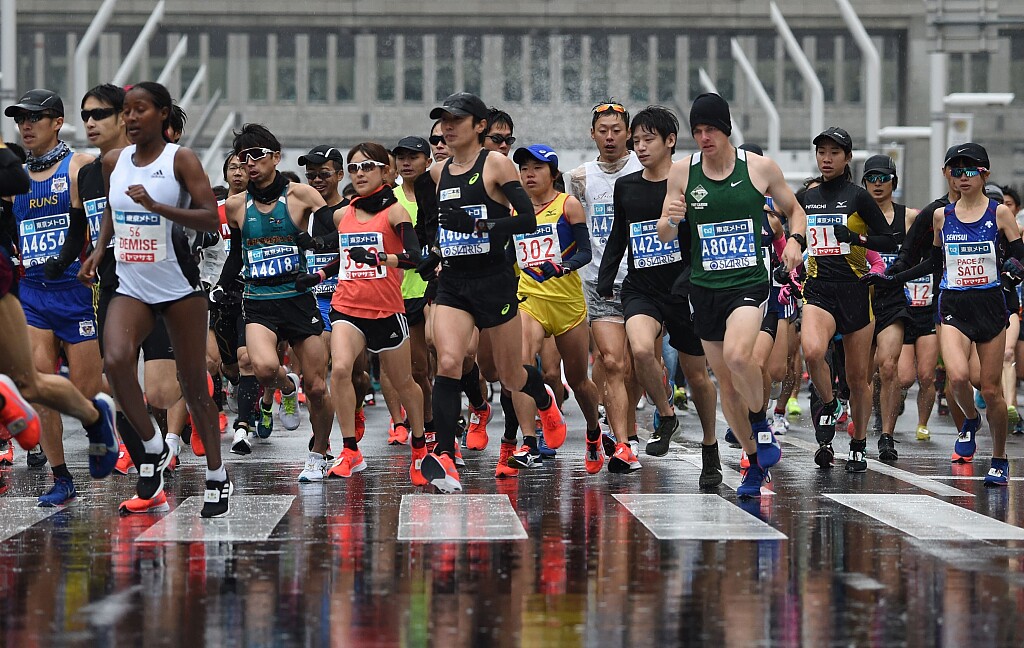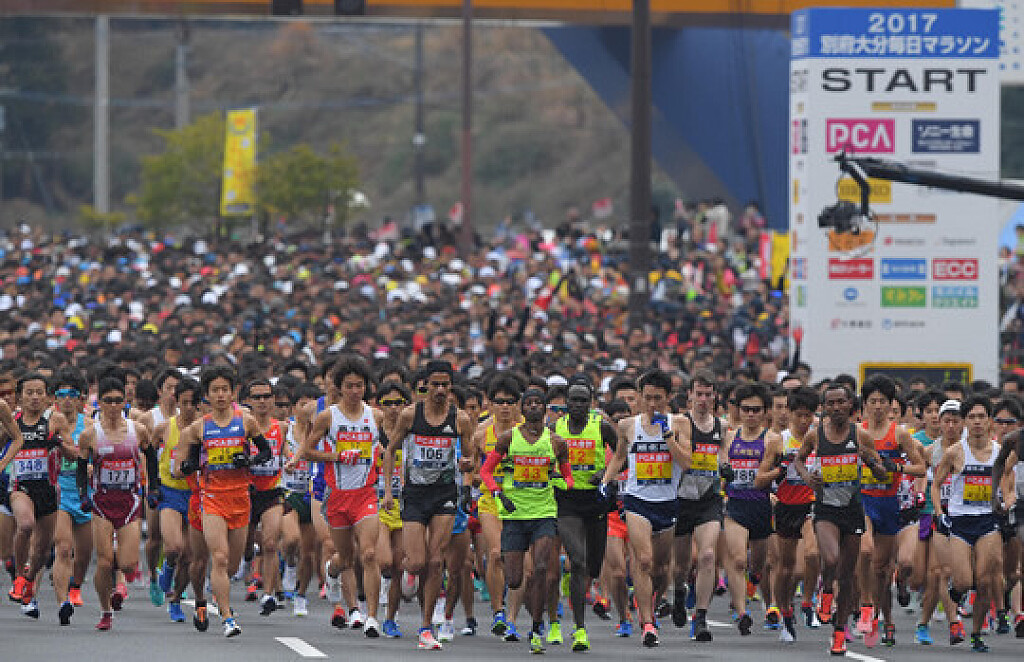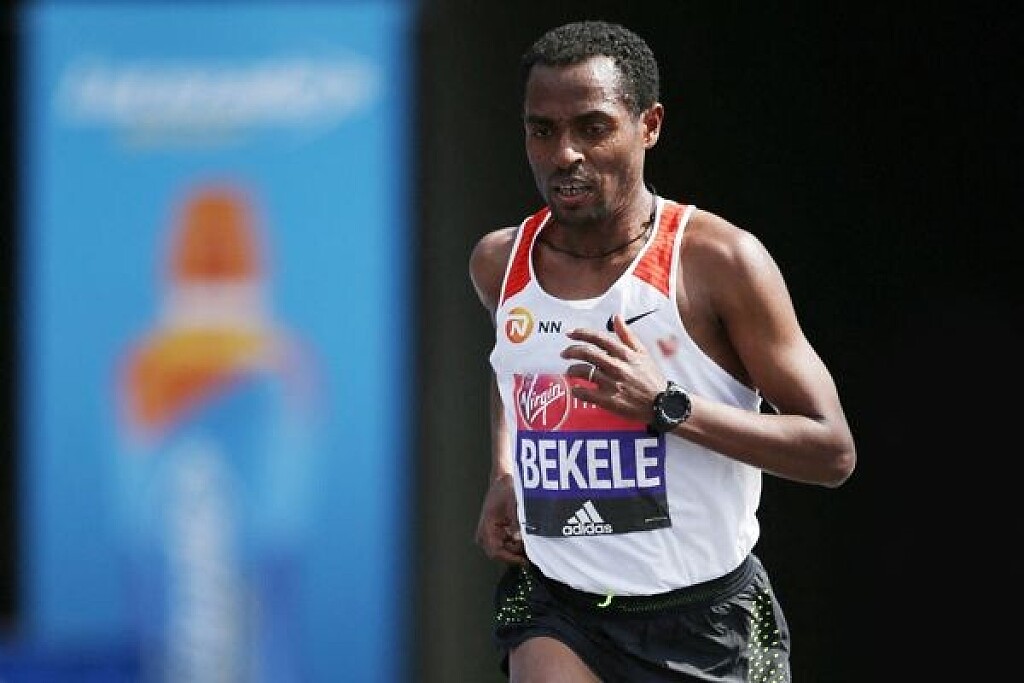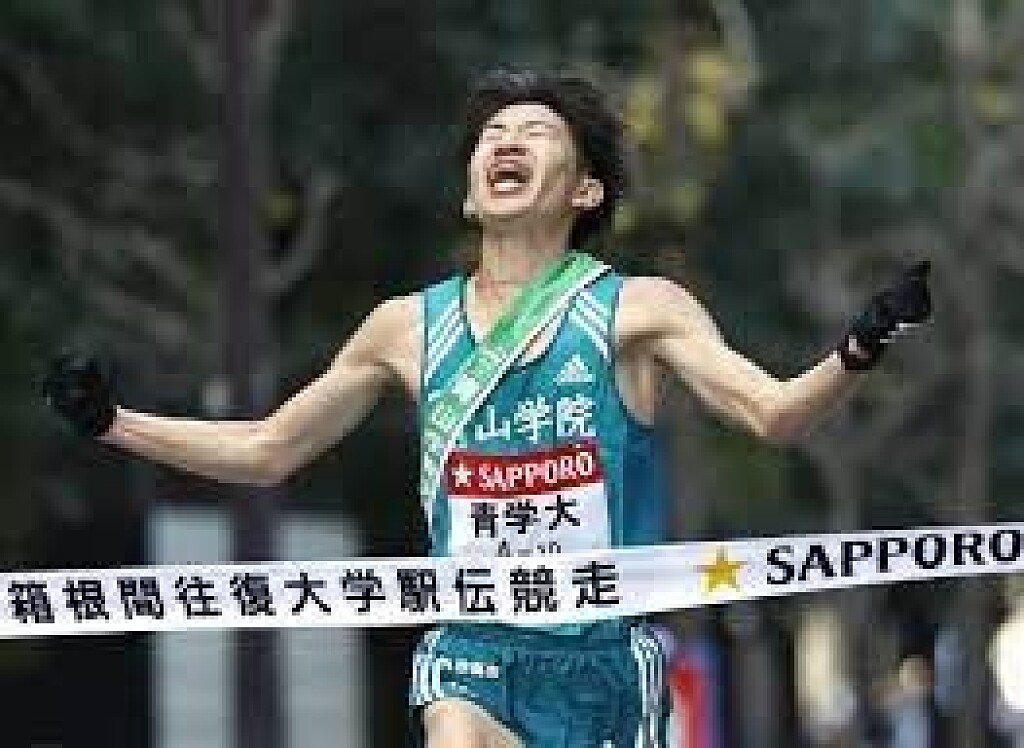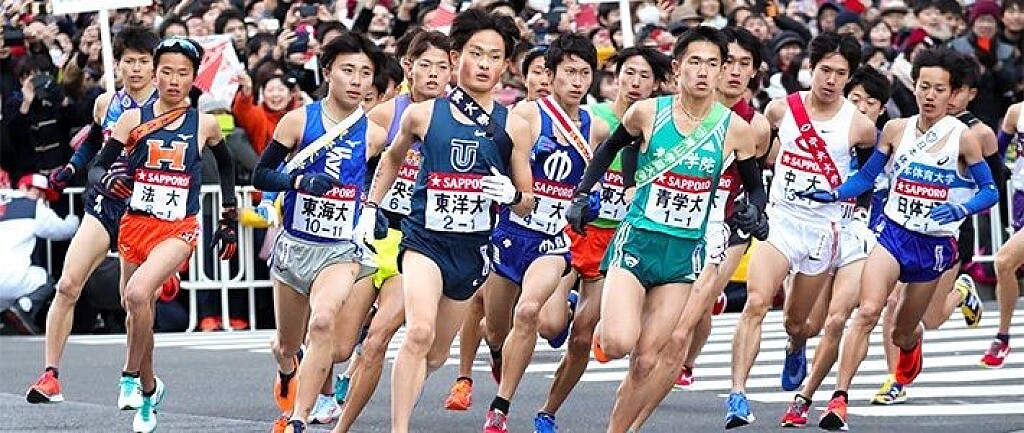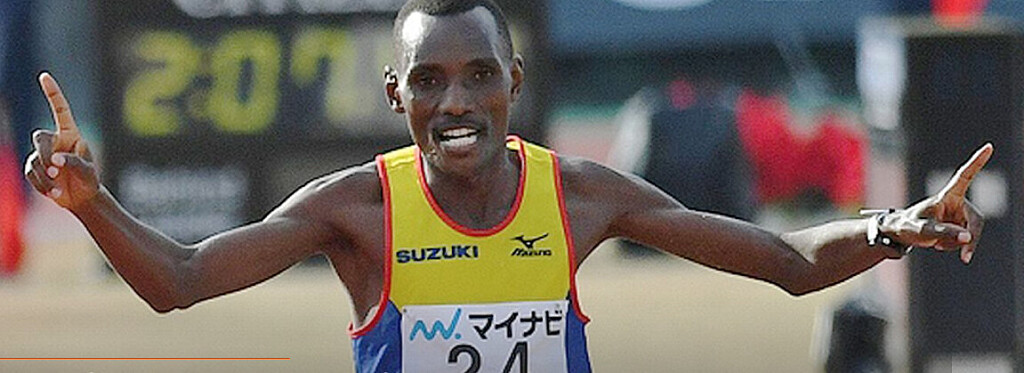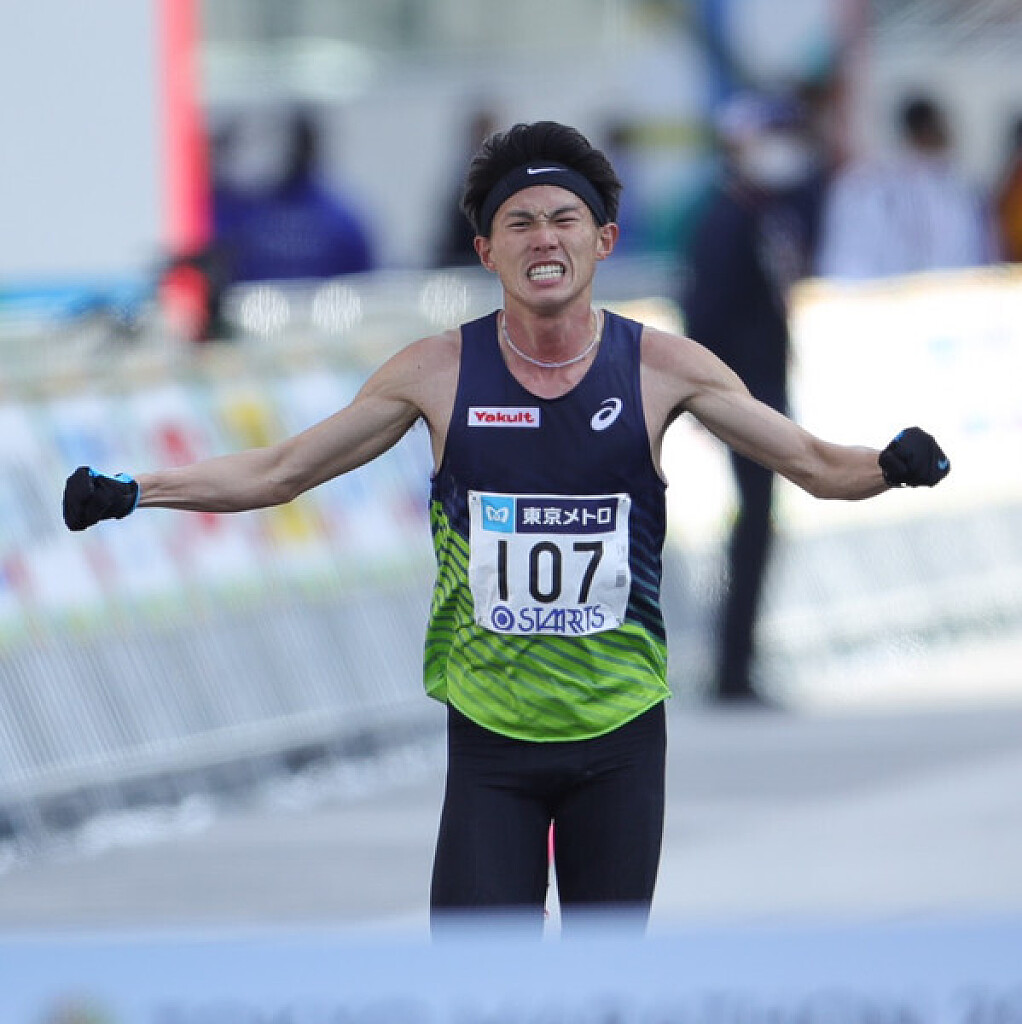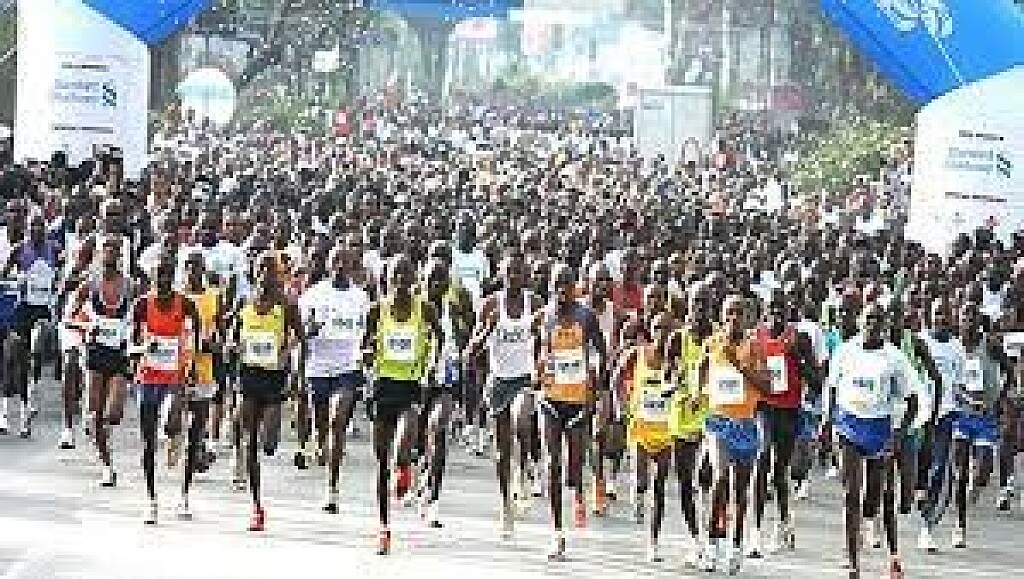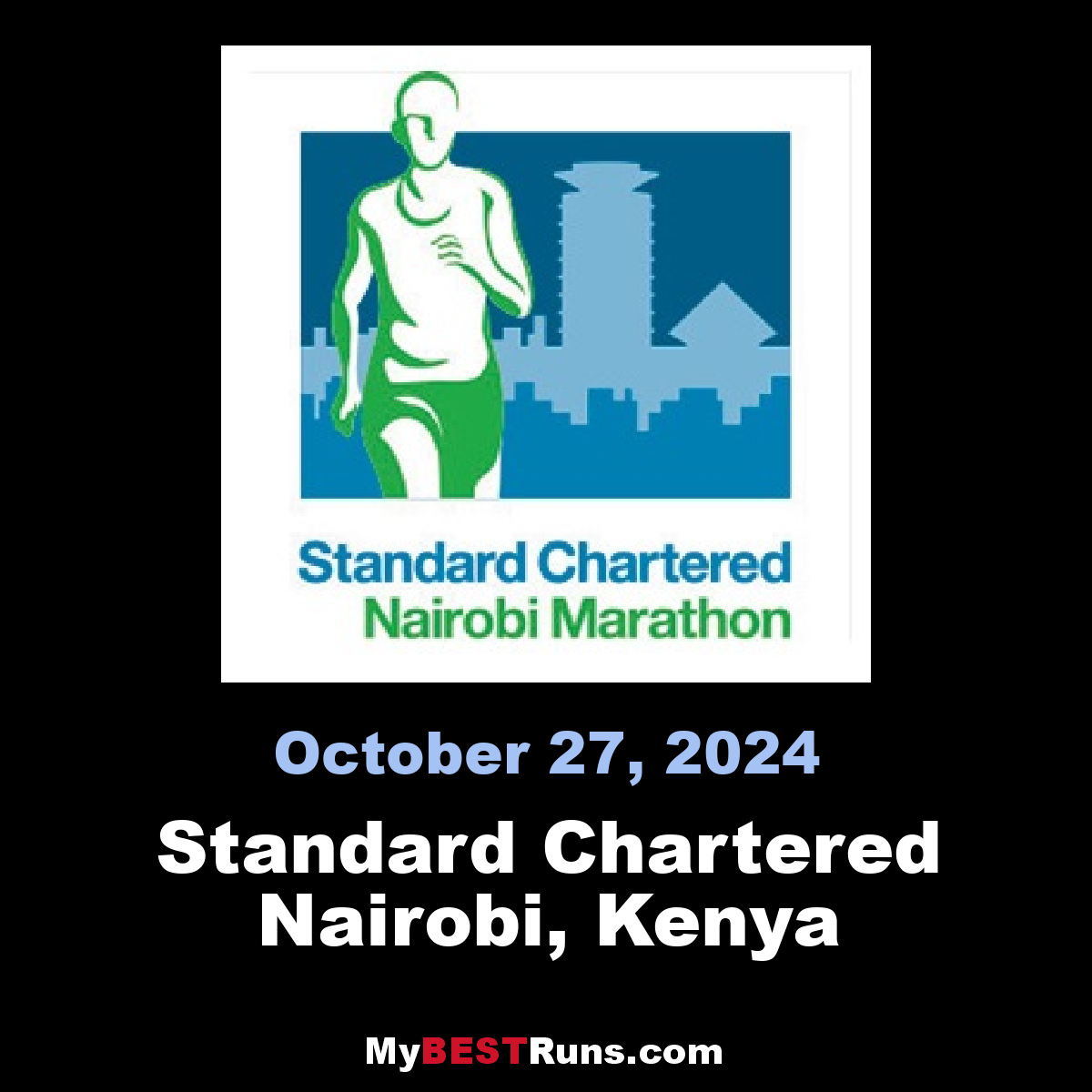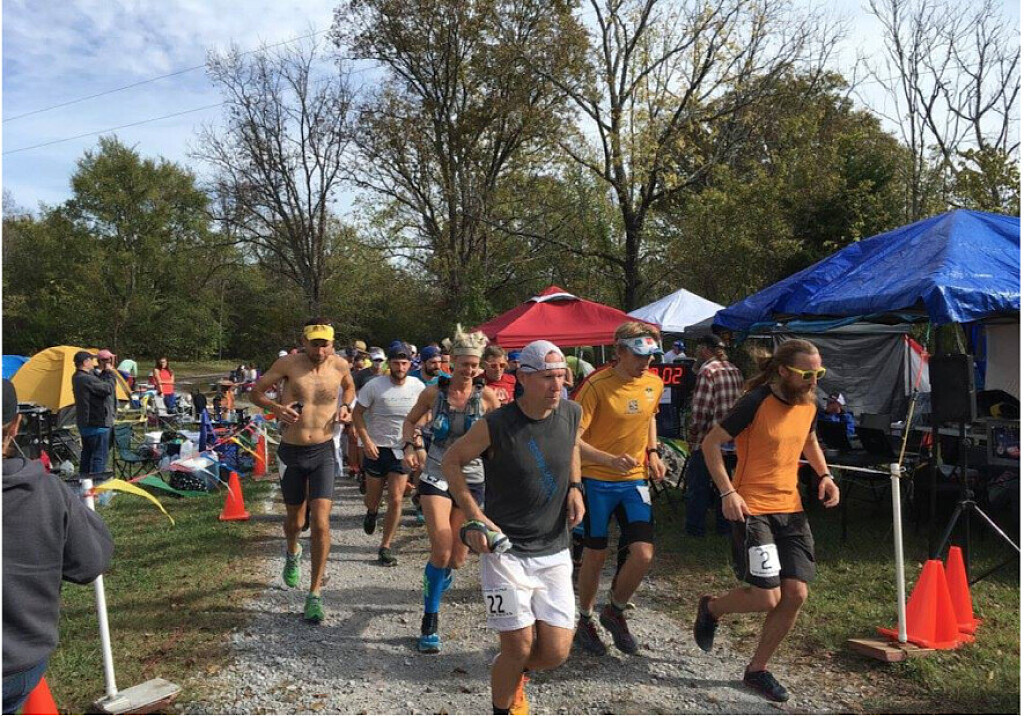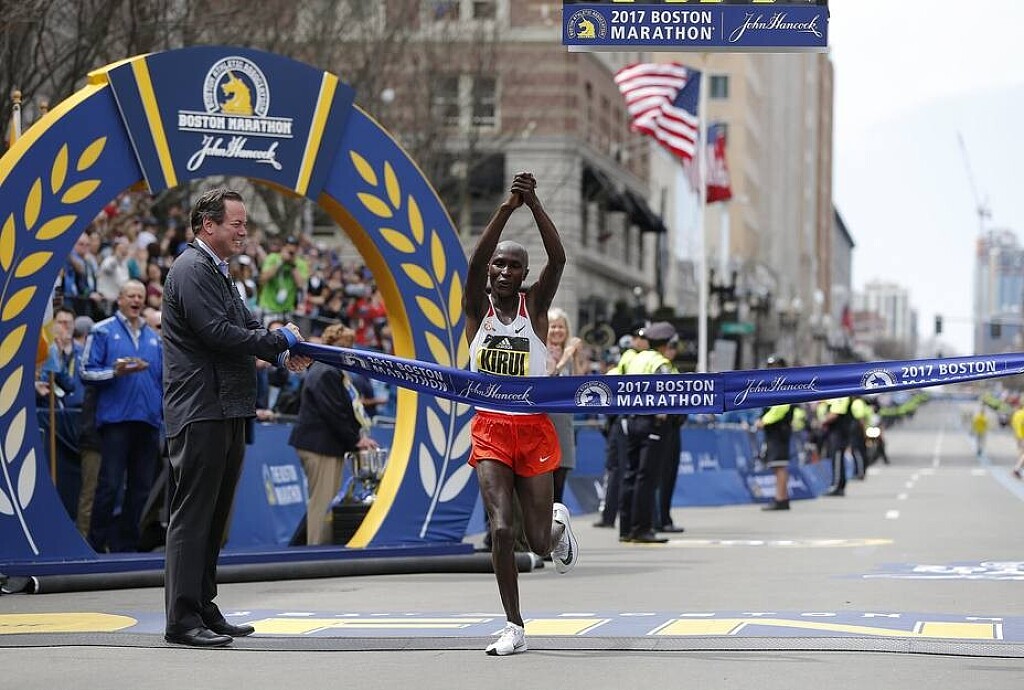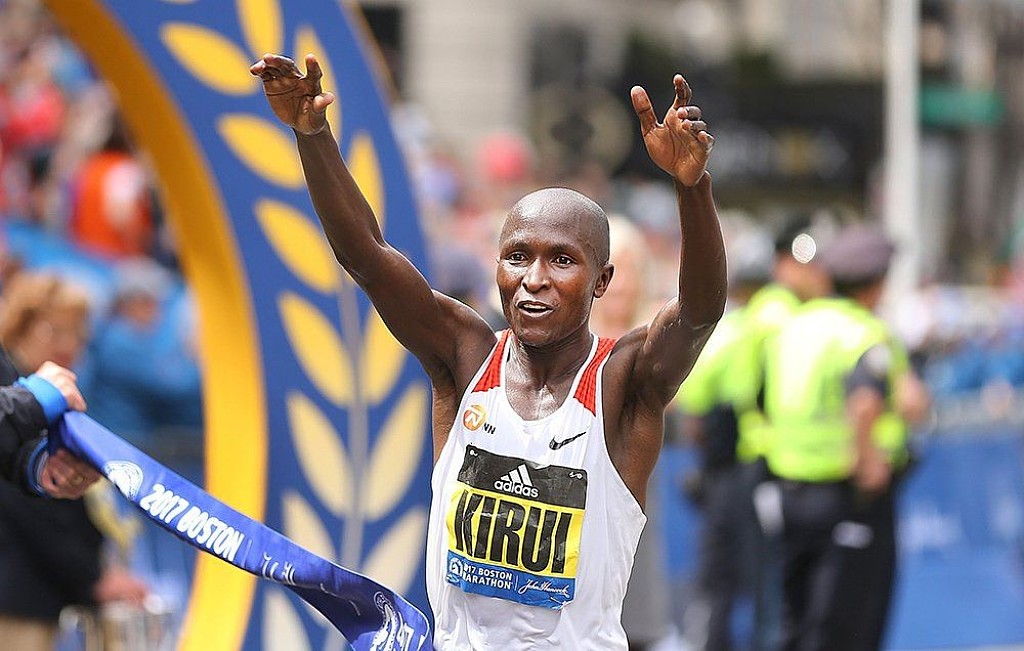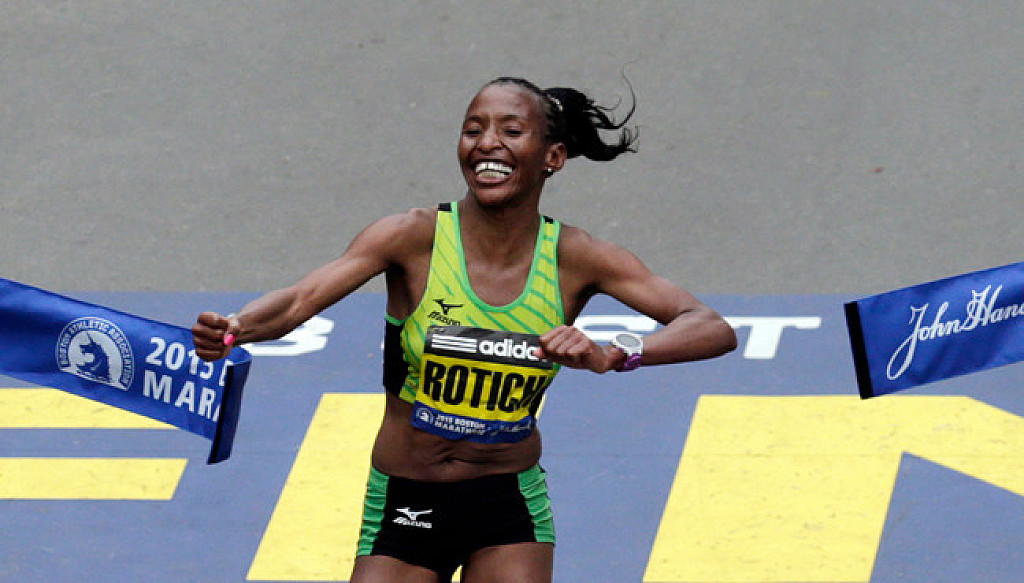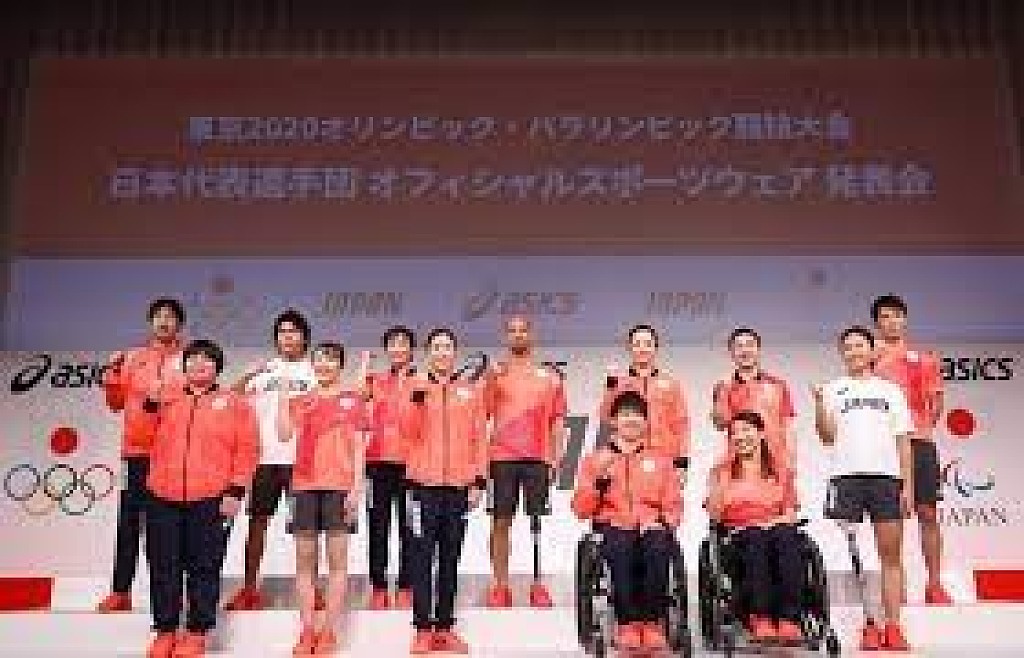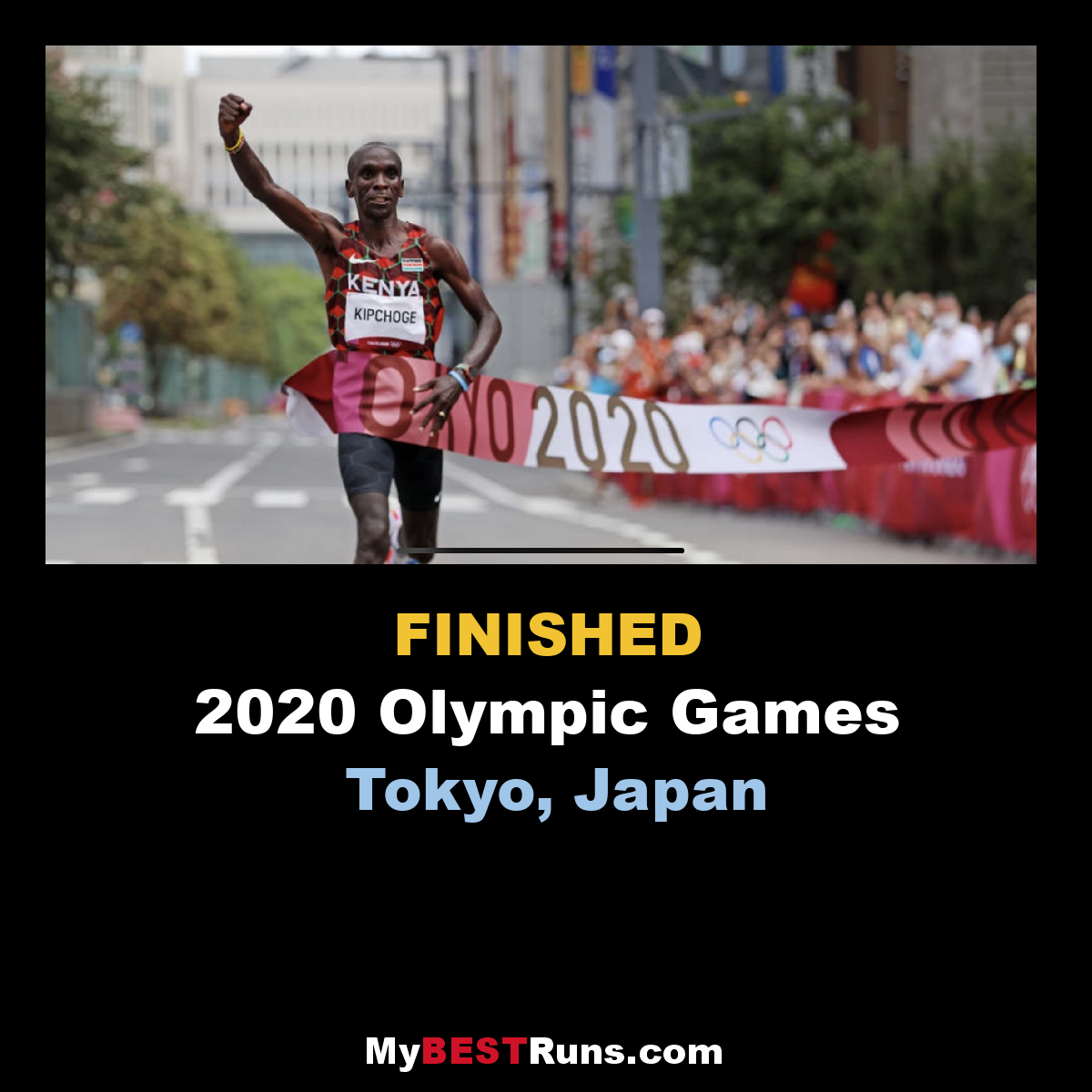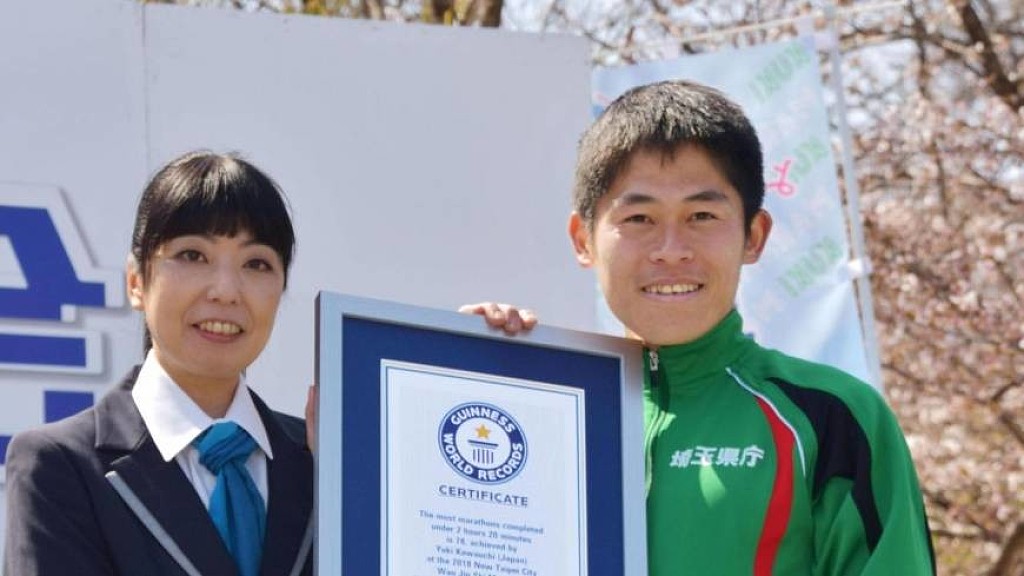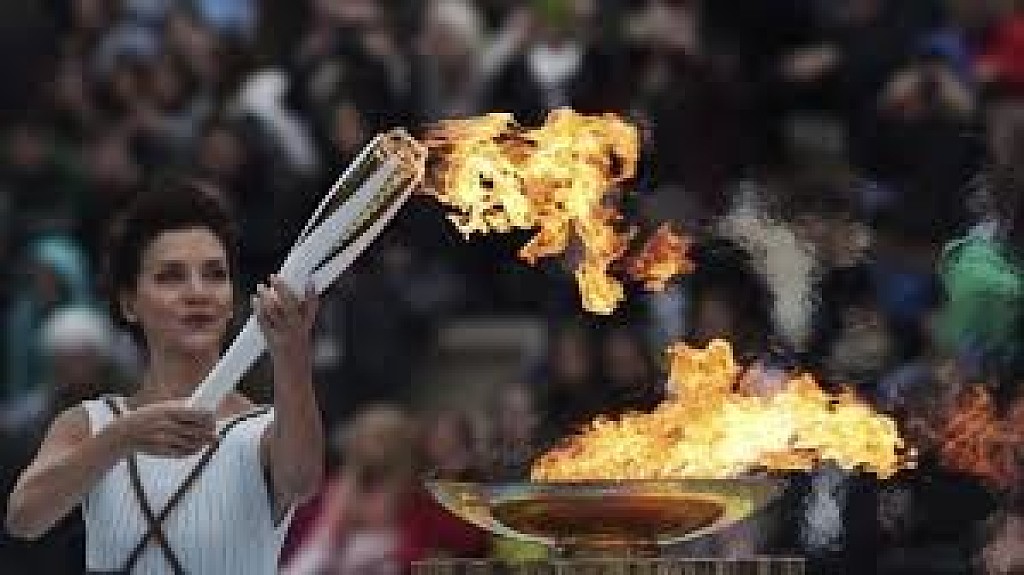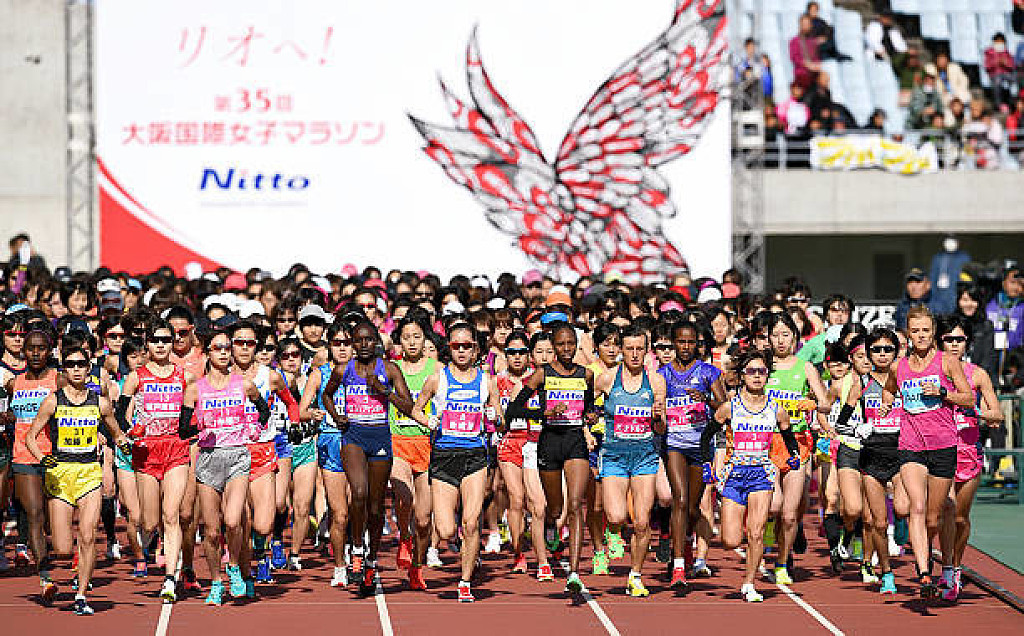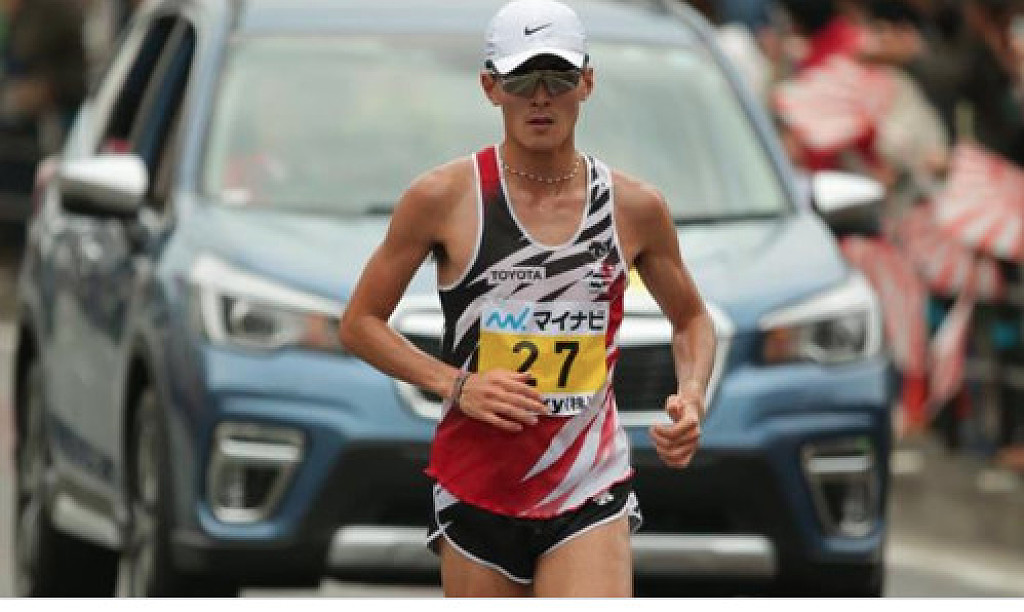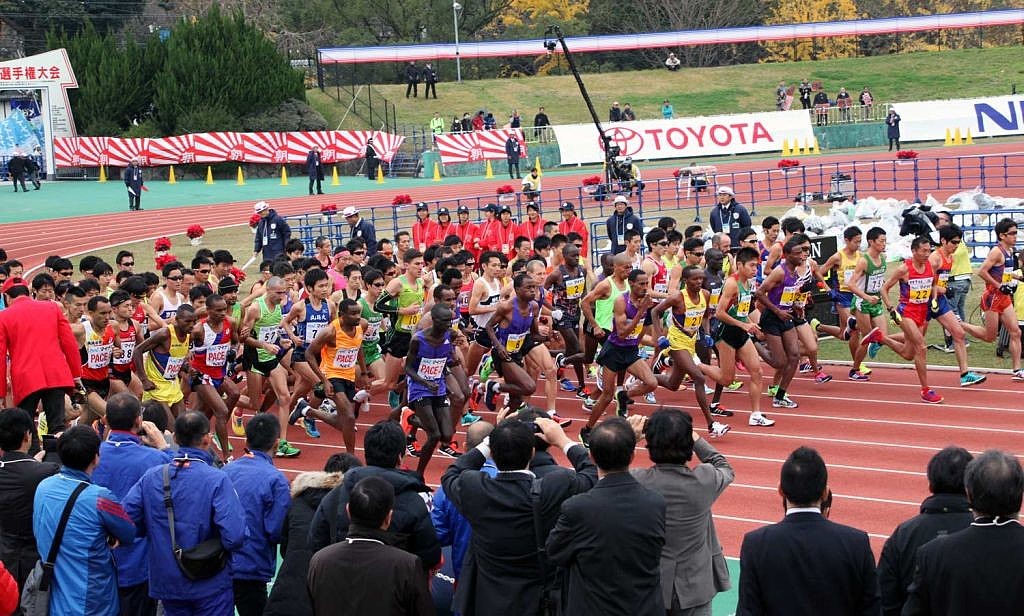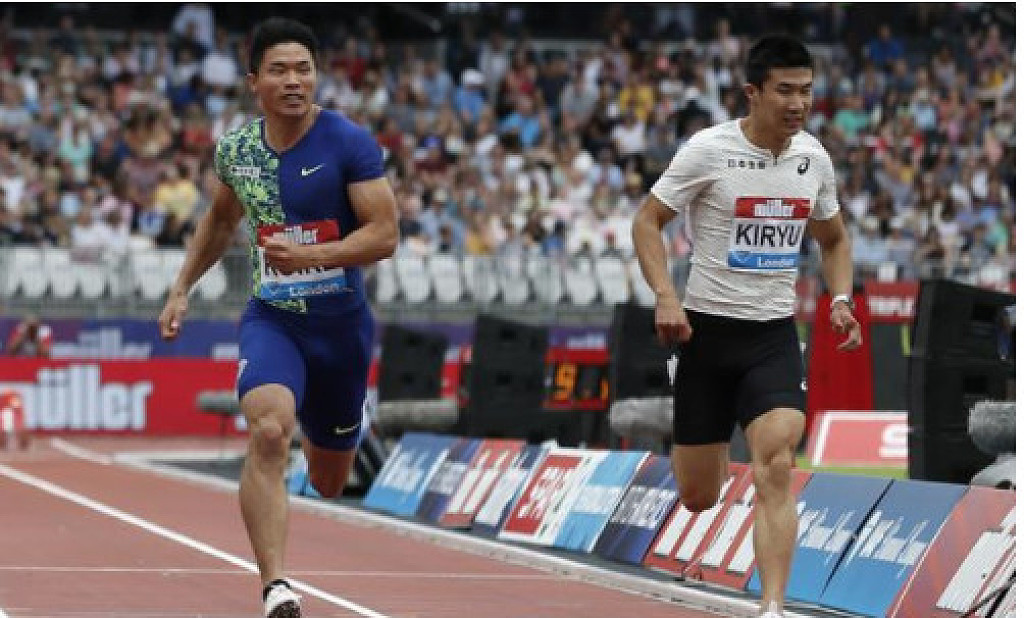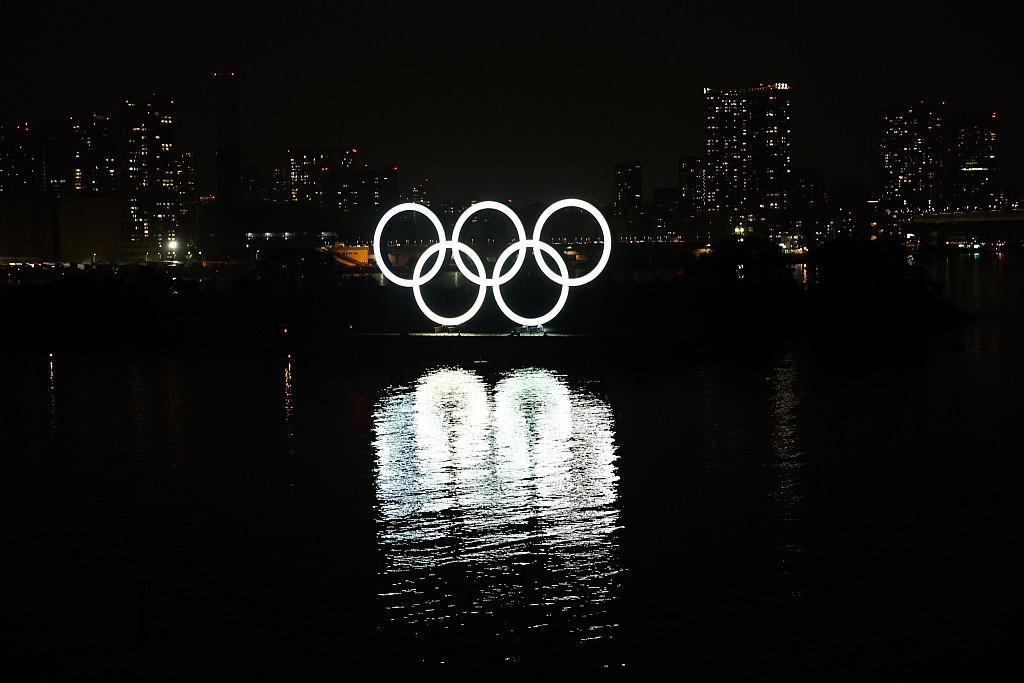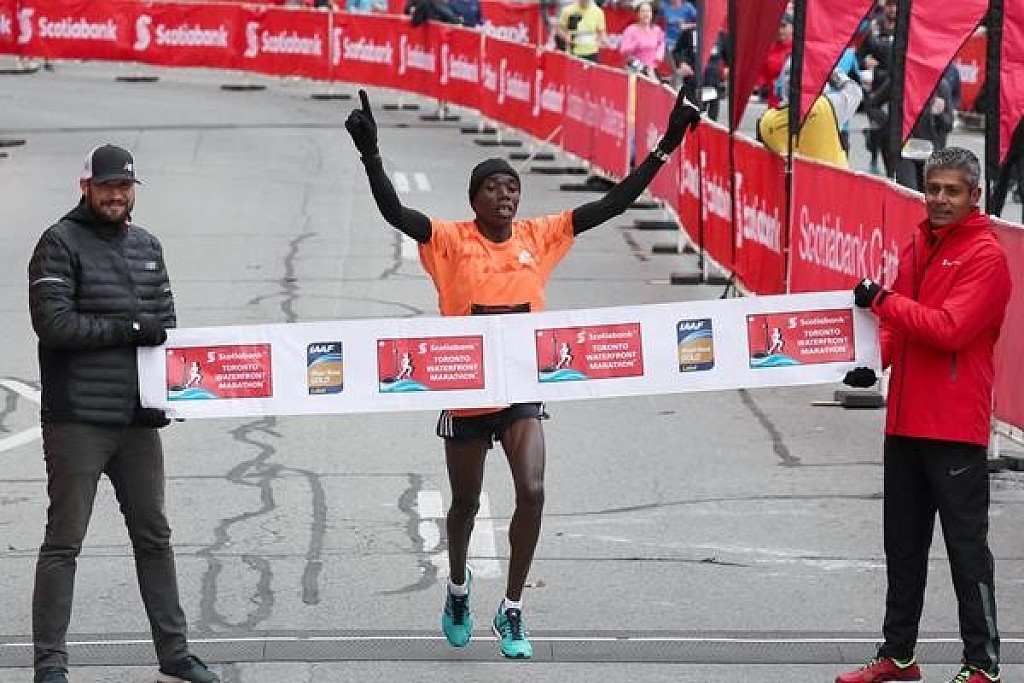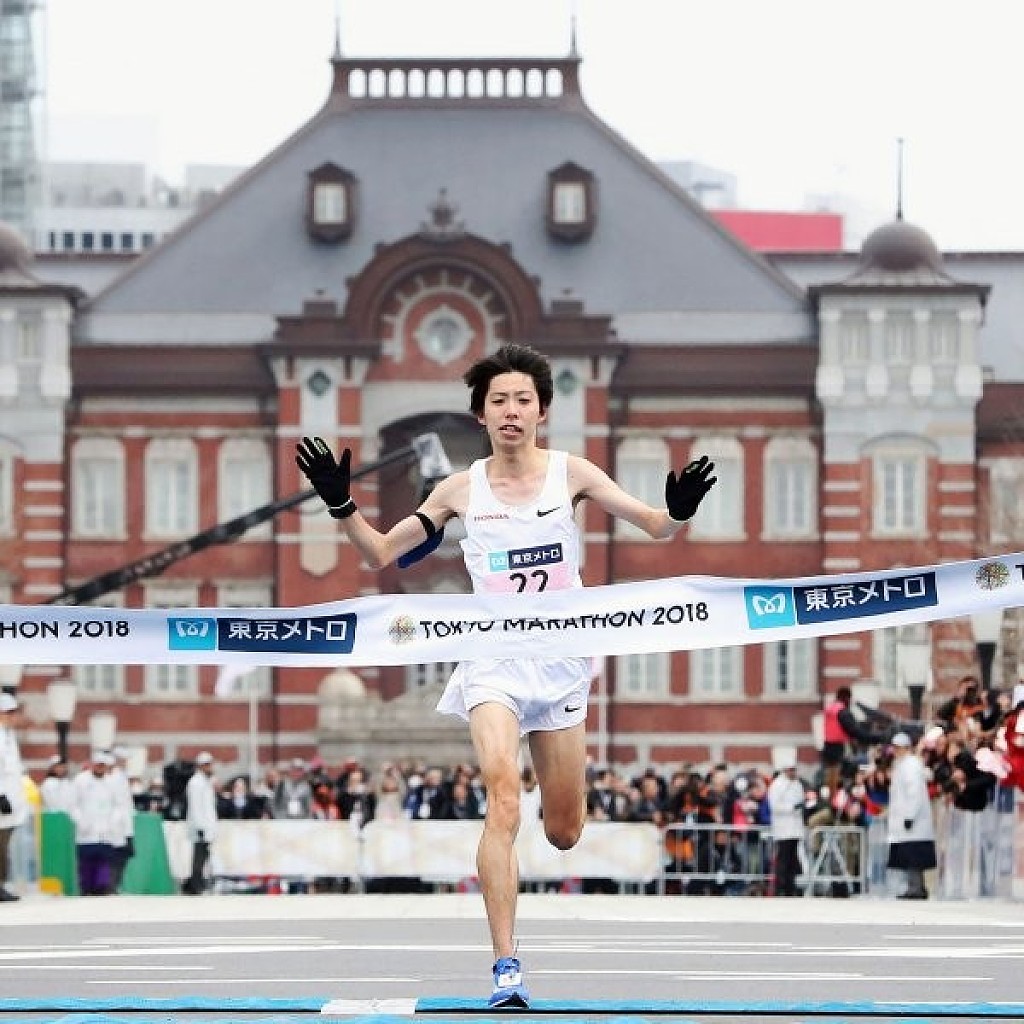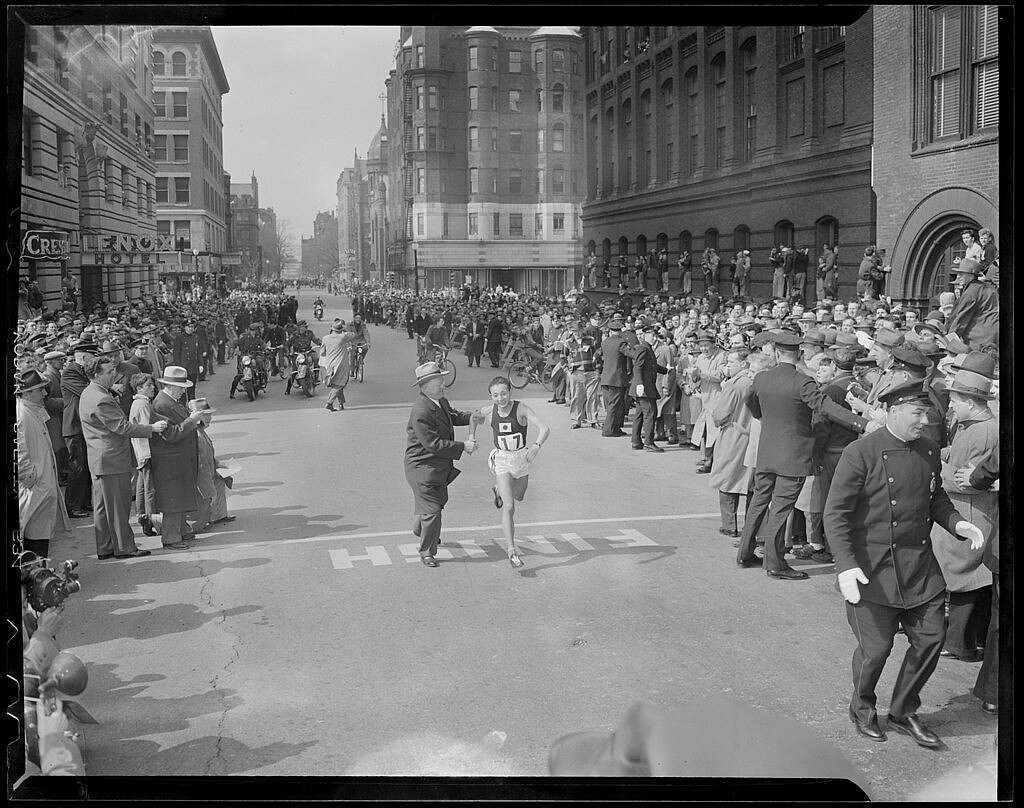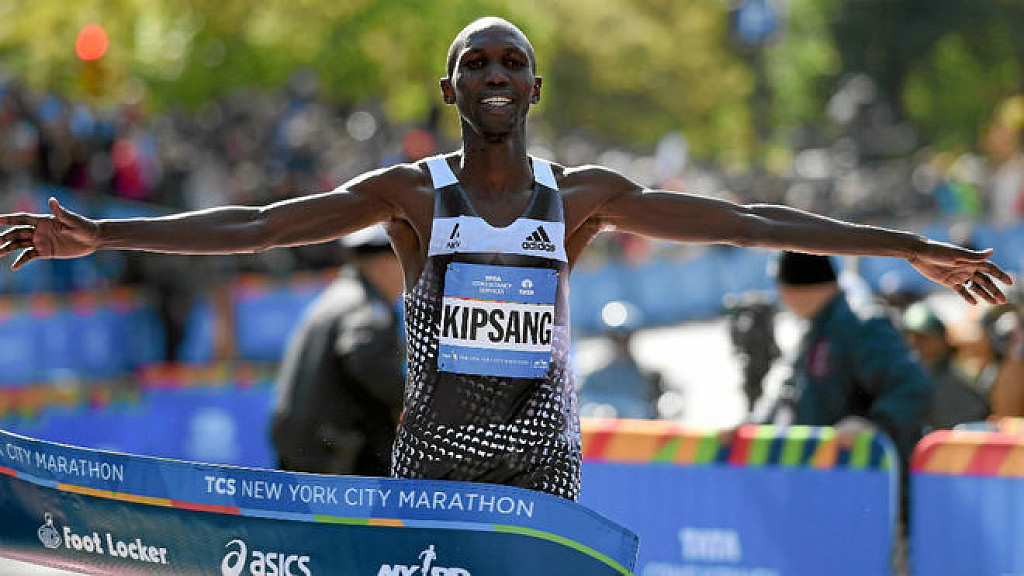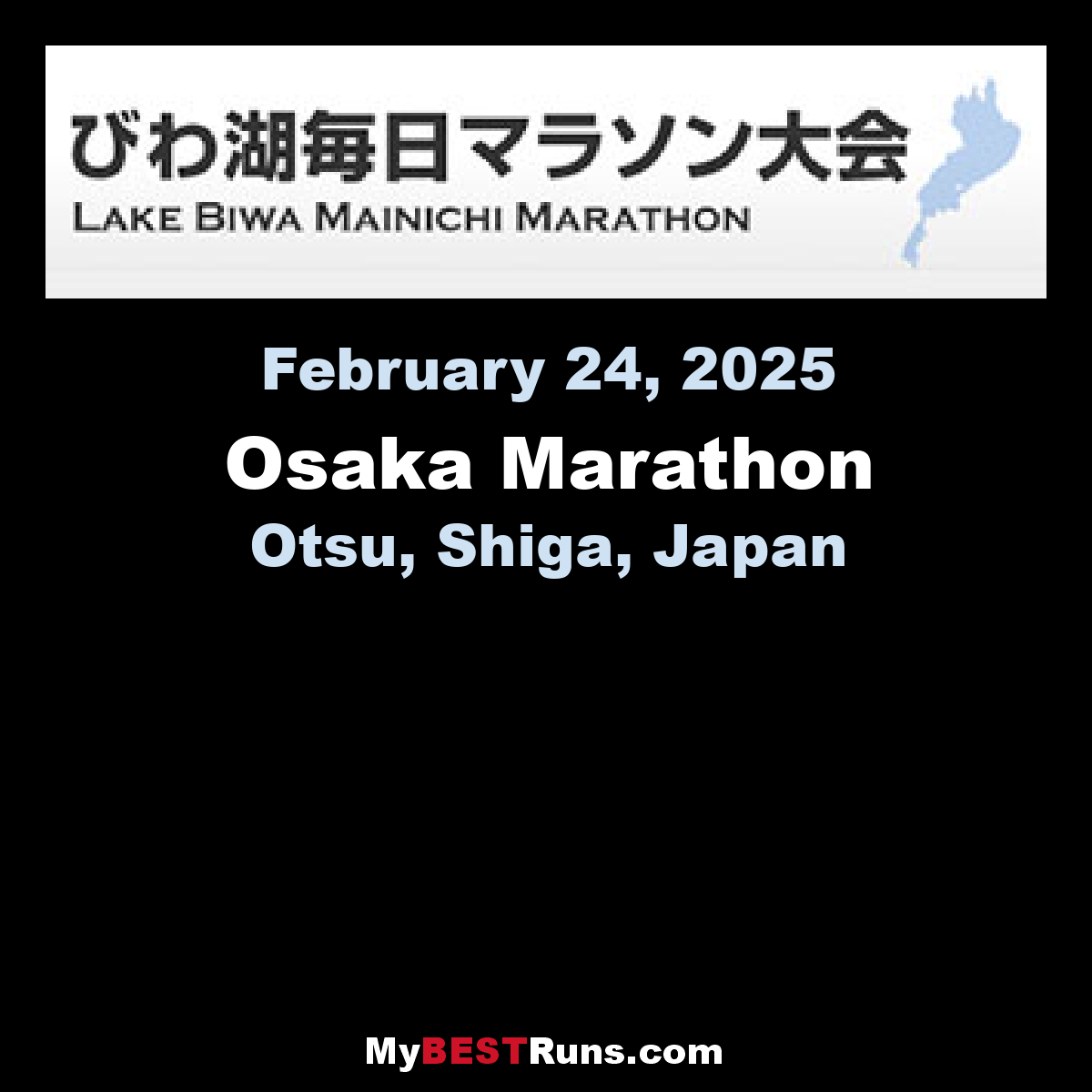Running News Daily
Running News Daily is edited by Bob Anderson. Send your news items to bob@mybestruns.com Advertising opportunities available. Train the Kenyan Way at KATA Kenya and Portugal owned and operated by Bob Anderson. Be sure to catch our movie A Long Run the movie KATA Running Camps and KATA Potato Farms - 31 now open in Kenya! https://kata.ke/
Index to Daily Posts · Sign Up For Updates · Run The World Feed
Articles tagged #Yuki
Today's Running News
A Tactical Marathon Showdown: Elite Entrants Eye Hong Kong Glory
The Standard Chartered Hong Kong Marathon returns on Sunday, January 18, 2026, shaping up as one of the most intriguing early-season tests on the global marathon calendar. Established in 1997 and now a World Athletics Gold Label event, the race has built its reputation not on record-chasing, but on tactical nuance—where patience, positioning, and timing often trump raw speed.
That dynamic makes this year’s edition especially compelling, as a deep and accomplished elite field converges on a course known for demanding smart racing.
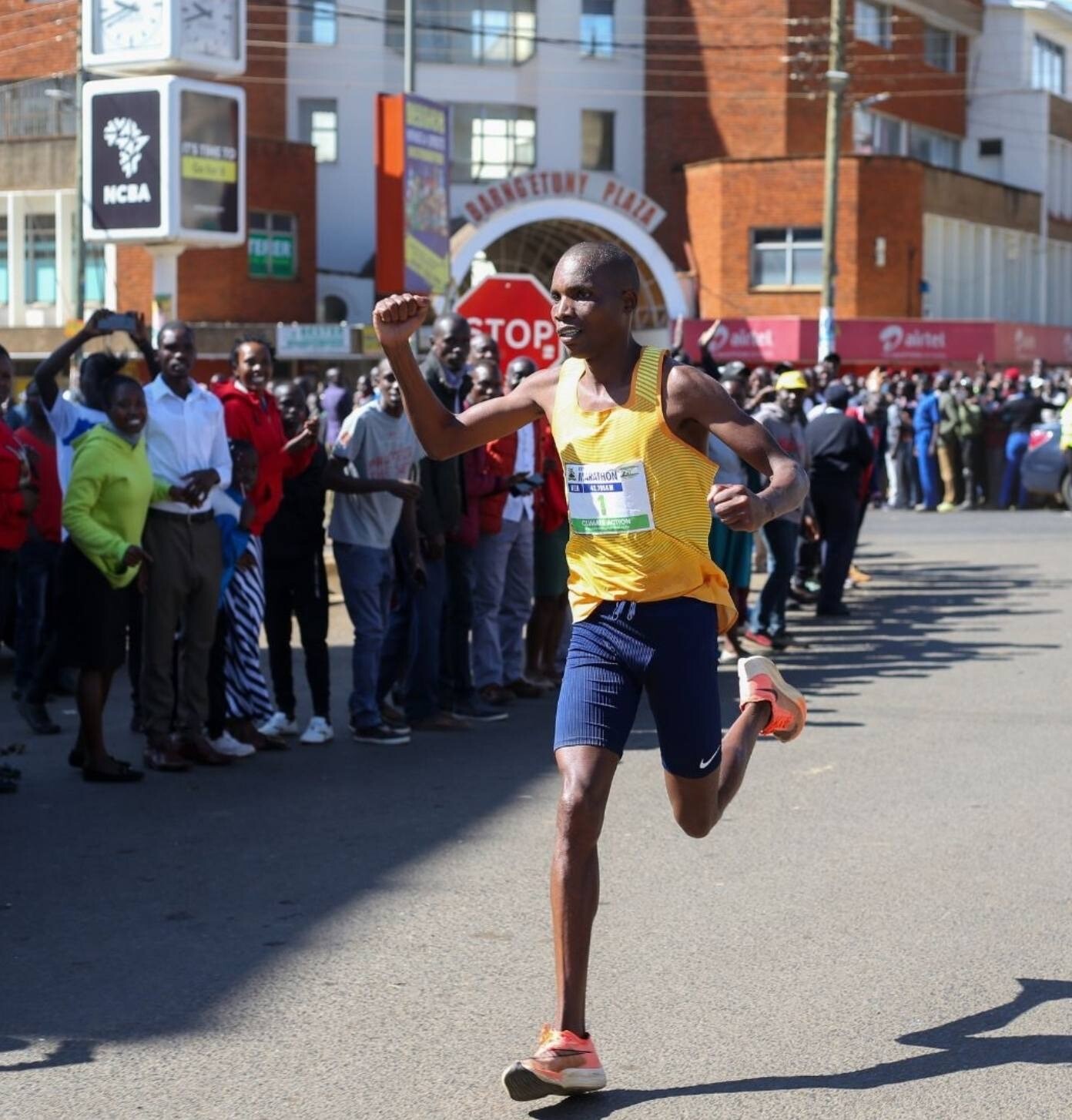
Leading the men’s start list is Ethiopia’s Gebre Mekuant Ayenew, whose personal best of 2:04:46 positions him as the clear favorite on paper. By global standards, Ayenew ranks among the sport’s upper tier—an athlete capable of world-class times if conditions allow.
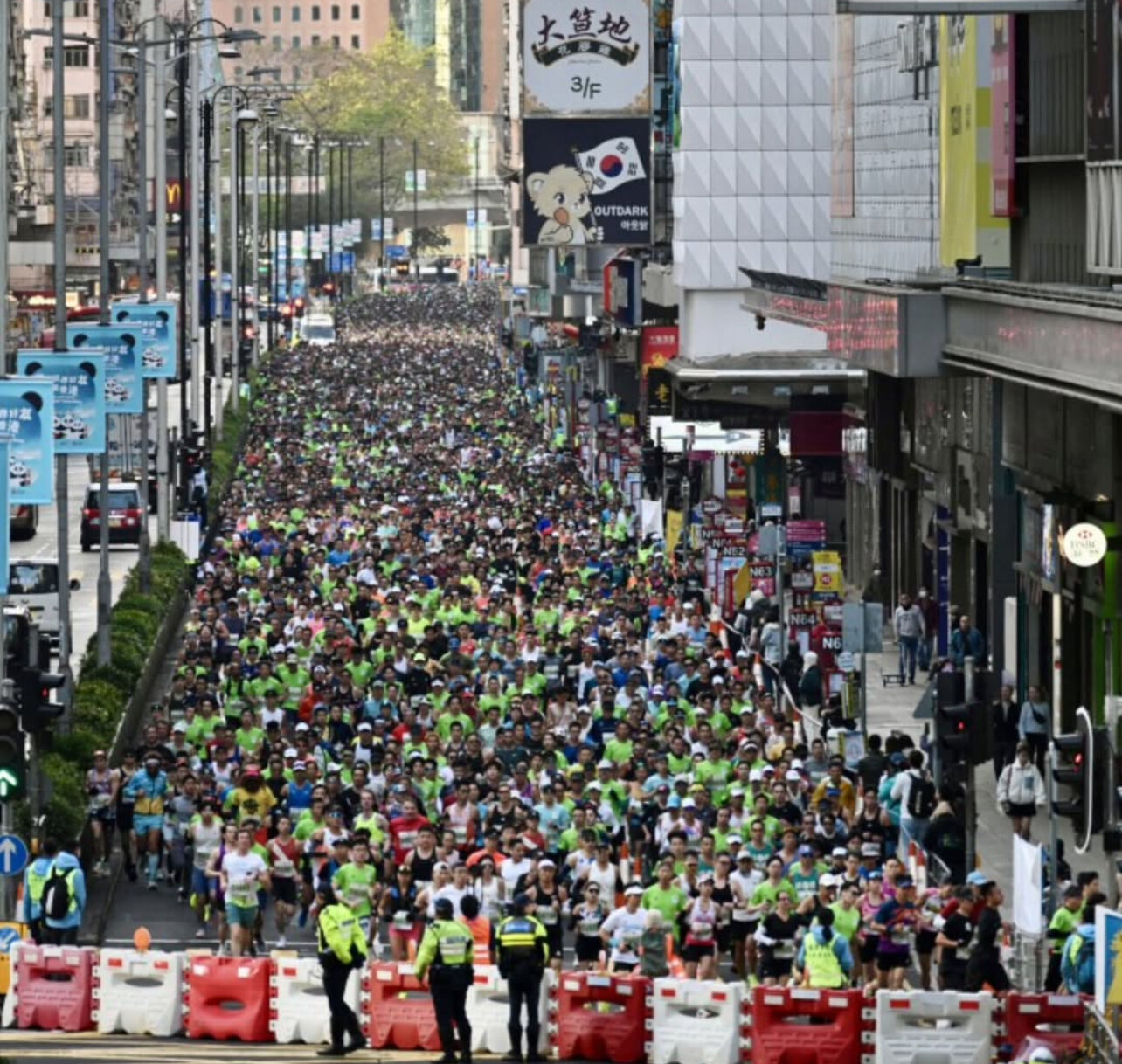
But Hong Kong rarely rewards straight-line speed alone. The urban course, winding from Nathan Road to Victoria Park, features sharp turns, rolling sections, bridges, and the ever-present factor of subtropical winter humidity. These elements routinely transform the race into a chess match, where tactical awareness becomes as decisive as fitness.
Kenya’s contingent arrives with depth and experience, forming a formidable counterbalance. Victor Kipchirchir (2:05:43) stands out as the most immediate threat. Known for measured pacing and a strong finish, Kipchirchir is well-suited to a race that rewards restraint before aggression.
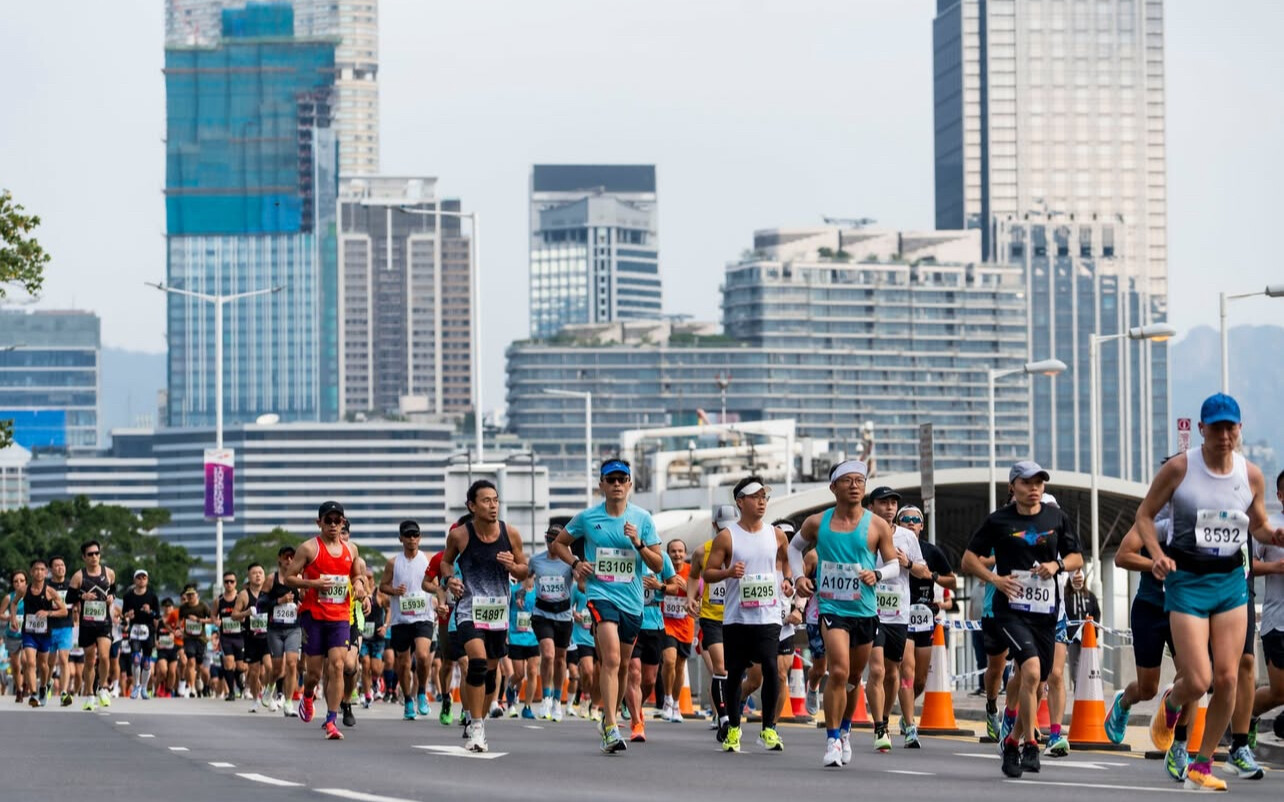
Backing him are Silas Kiprono Too (2:06:32), Kipkemoi Kiprono (2:06:45), Reuben Kiprop Kerio(2:07:00), and Simon Kipkosgei (2:07:07). Collectively, they offer tactical versatility and the ability to apply pressure during the critical middle stages—often where Hong Kong races are won or lost.
Ethiopia counters with its own depth. Abdi Fufa Nigassa (2:05:57), Gebru Nguse Redahgne(2:05:58), Yitayal Atnafu Zerihun (2:06:21), and Melaku Belachew Bizuneh (2:06:30) complete a formidable lineup. While their personal bests suggest the potential for fast running, Hong Kong history suggests that tactical surges and energy management often dictate the podium.
International intrigue comes courtesy of Yuki Kawauchi (JPN, 2:07:27), one of the sport’s most unpredictable racers. Renowned for his aggressive, fearless approach, Kawauchi has a habit of disrupting conventional pacing and forcing rivals into uncomfortable decisions. He is joined by Ghazouany Mohamed (MAR, 2:09:01) and Han Il Ryong (PRK, 2:09:42), underscoring the truly global character of the field.
Recent history provides useful perspective. In 2025, winning times hovered around 2:11–2:12, with Kenyan runners dominating the podium. The 2024 edition was similarly measured, reinforcing the course’s tactical reputation. Against that backdrop, the 2026 start list represents a notable shift: several contenders arrive with sub-2:06 credentials, raising the possibility of a quicker race—if the lead pack commits to pushing the tempo.
Still, the course demands respect. Early aggression has often been punished, while disciplined positioning and energy conservation through the mid-race sections have proven decisive. Misjudgment can lead to dramatic fade-outs over the final 10 kilometers; patience, on the other hand, often opens the door to late-race surges and podium-deciding moves.
That tension sets up a fascinating strategic question: will Ethiopia attempt to control the race through collective pacing, or will Kenya counter with tactical pressure and well-timed attacks? And could Kawauchi’s trademark aggression fracture the rhythm entirely?
With personal bests tightly clustered and tactical variables at play, Hong Kong once again promises a marathon where intelligence and restraint may outweigh even the fastest résumés.
As the 2026 marathon season gets underway, all eyes turn to January 18 when Hong Kong’s streets will host a contest shaped by history, strategy, and split-second decisions—another reminder that here, the smartest runner often wins.
by Robert Kibet for My Best Runs
Login to leave a comment
HONG KONG MARATHON
The Hong Kong Marathon, sponsored by Standard Chartered Bank, is an annual marathon race held in January or February in Hong Kong. In addition to the full marathon, a 10 km run and a half marathon are also held. Around 70,000 runners take part each year across all events. High levels of humidity and a difficult course make finishing times...
more...Mengesha and Loibach Conquer the World’s Longest Sea Bridge at Zhuhai–Macao Half Marathon
Ethiopia’s Milkesa Mengesha delivered a commanding performance to claim the men’s title at the 2026 Zhuhai–Macao Bridge Half Marathon, stopping the clock at 1:01:27 as elite runners battled wind and exposure on one of the most extraordinary road courses in the world.
Staged on the Hong Kong–Zhuhai–Macao Bridge, the longest sea-crossing bridge on the planet, the race offered a rare blend of speed, spectacle, and sustained mental challenge. Athletes surged onto wide, open tarmac suspended above the Pearl River Delta, facing long straightaways, gentle undulations, and uninterrupted views of open water stretching in every direction.
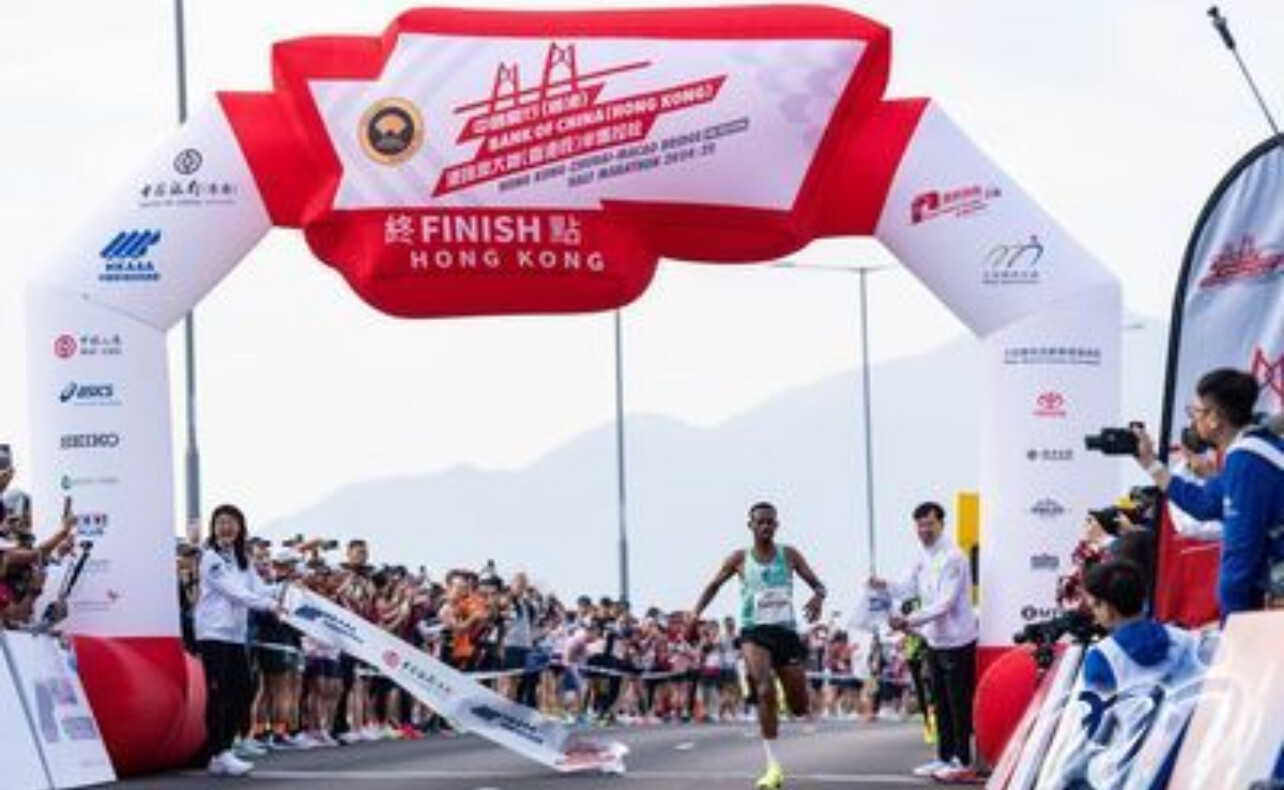
Mengesha remained patient through the early kilometres as a tightly packed lead group controlled the tempo. He broke clear late in the race, asserting his strength when conditions began to bite. Kenya’s Patrick Mosin stayed close throughout but settled for second in 1:01:30, just three seconds back, while fellow Ethiopian Haftu Teklu completed the podium in 1:02:54.
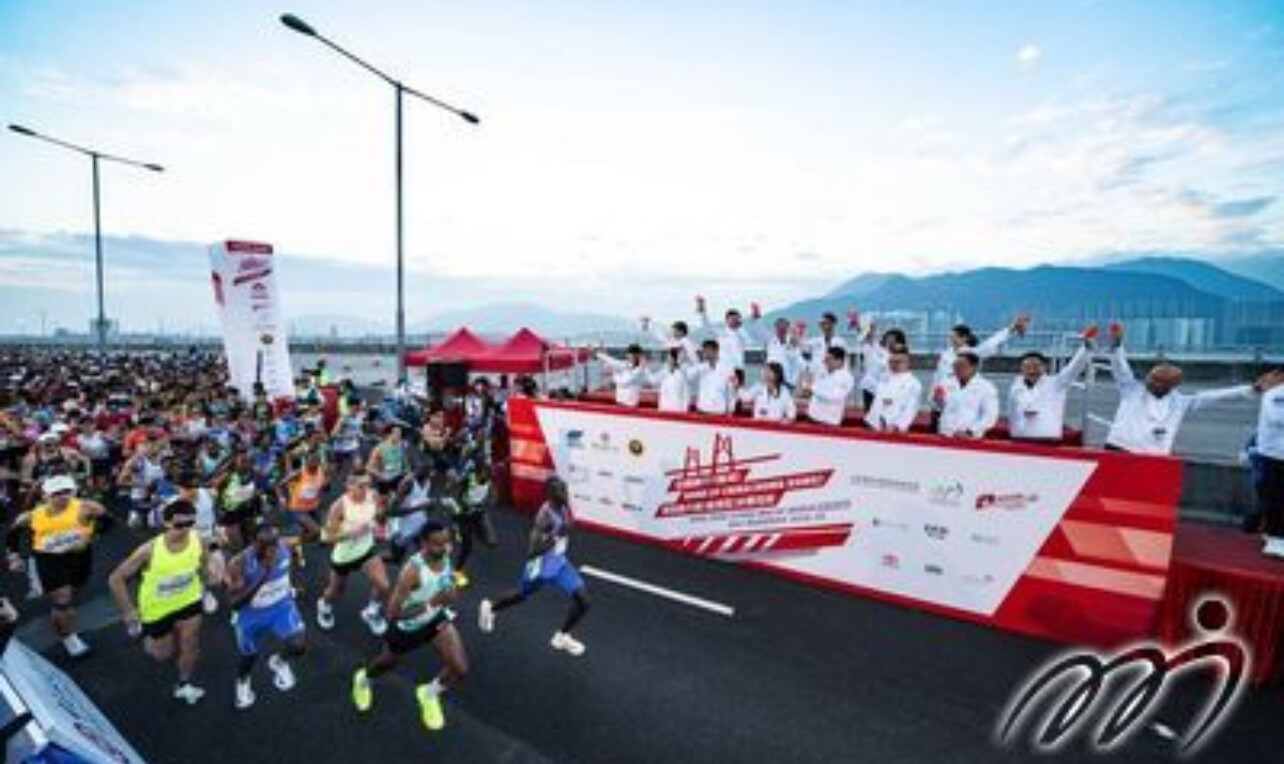
A Course That Tests Rhythm and Resolve
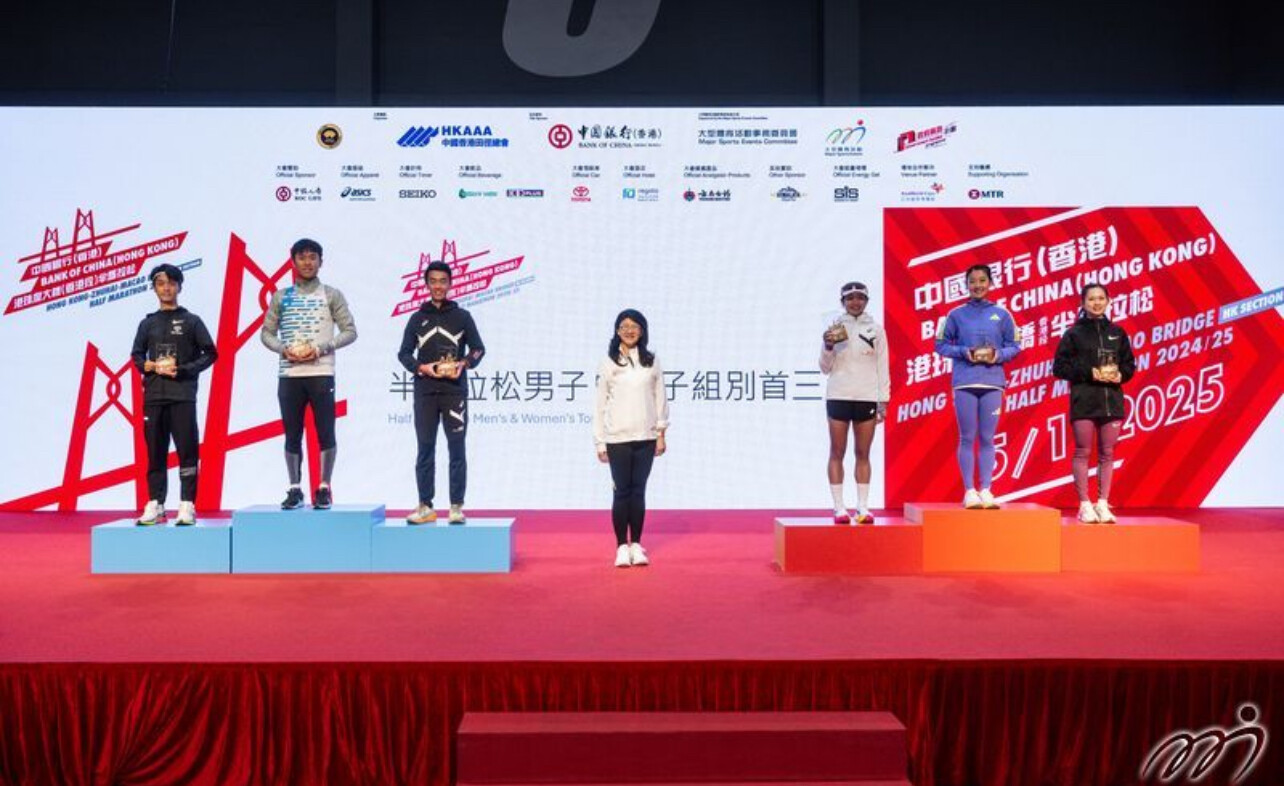
Unlike traditional city courses lined with spectators, the bridge route is defined by exposure. January brought cool temperatures and steady coastal winds—ideal for fast running but demanding precise pacing. With little shelter on the open deck, runners were forced to manage rhythm and energy as gusts disrupted stride patterns and pack dynamics.
The out-and-back layout added another tactical layer, allowing athletes to measure themselves directly against the field. The turnaround point became a revealing moment, separating those with reserves left for the return leg from those already on the edge.
Loibach Leads Kenyan Sweep in the Women’s Race
In the women’s contest, Kenya’s Grace Loibach Nawowuna underlined her rising status on the international road circuit, claiming victory in 1:07:56 after a fiercely contested race among a deep Kenyan contingent.
She was followed closely by Sheila Chelangat (1:08:06) and Viola Chepngeno (1:08:09), with the top four women finishing within half a minute of one another—a reflection of both tactical racing and the course’s unforgiving nature.
Loibach’s winning time marked an improvement on last year’s performance, highlighting both favourable conditions and the increasing depth of competition the race continues to attract.
A Step Forward From Last Year
In the previous edition, winning times were marginally slower, shaped by cautious early pacing. This year’s performances—particularly at the front—reflected a shift toward more assertive racing, aided by calm early conditions and strong international fields from East Africa and Asia.
The Zhuhai–Macao Bridge Half Marathon is rapidly establishing itself as a destination race for elite and sub-elite runners alike, offering genuine speed potential on a course unlike any other on the global road calendar.
For many competitors, it was more than a race for time or position—it was an experience of running between sea and sky, where concentration, patience, and strength mattered as much as raw speed.
RESULTS – ZHUHAI–MACAO BRIDGE HALF MARATHON
Men
1. Milkesa Mengesha (ETH) — 1:01:27
2. Patrick Mosin (KEN) — 1:01:30
3. Haftu Teklu (ETH) — 1:02:54
4. Weldon Langat (KEN) — 1:02:57
5. Luke Kiprop (KEN) — 1:02:57
6. Negasa Dekeba (ETH) — 1:05:03
7. Yuki Kawauchi (JPN) — 1:07:52
8. Chong See Yeung (HKG) — 1:09:44
9. Man Ho (HKG) — 1:10:36
Women
1. Grace Loibach Nawowuna (KEN) — 1:07:56
2. Sheila Chelangat (KEN) — 1:08:06
3. Viola Chepngeno (KEN) — 1:08:09
4. Gladys Chepkurui (KEN) — 1:08:23
5. Gotytom Gebreslase (ETH) — 1:08:54
6. Miriam Chebet (KEN) — 1:09:59
7. Daisy Jepkemei (KAZ) — 1:10:08
8. Megertu Mideksa (ETH) — 1:11:41
9. Ying Chu Lo (HKG) — 1:16:45
10. Shiu Yan Leanne Szeto (HKG) — 1:20:15
by Robert Kibet for My Best Runs
Login to leave a comment
Yuki Kawauchi Proves His Endurance with New Marathon Success in 2025
Yuki Kawauchi, known worldwide as the “Citizen Runner,” continues to defy expectations in the marathon world. From his historic 2018 Boston Marathon victory to his latest triumphs in 2025, Kawauchi remains one of the most consistent and determined long-distance runners in the sport. Now a full-time professional, he has overcome setbacks and continues to post impressive results on the global stage.
The 2018 Boston Marathon Victory
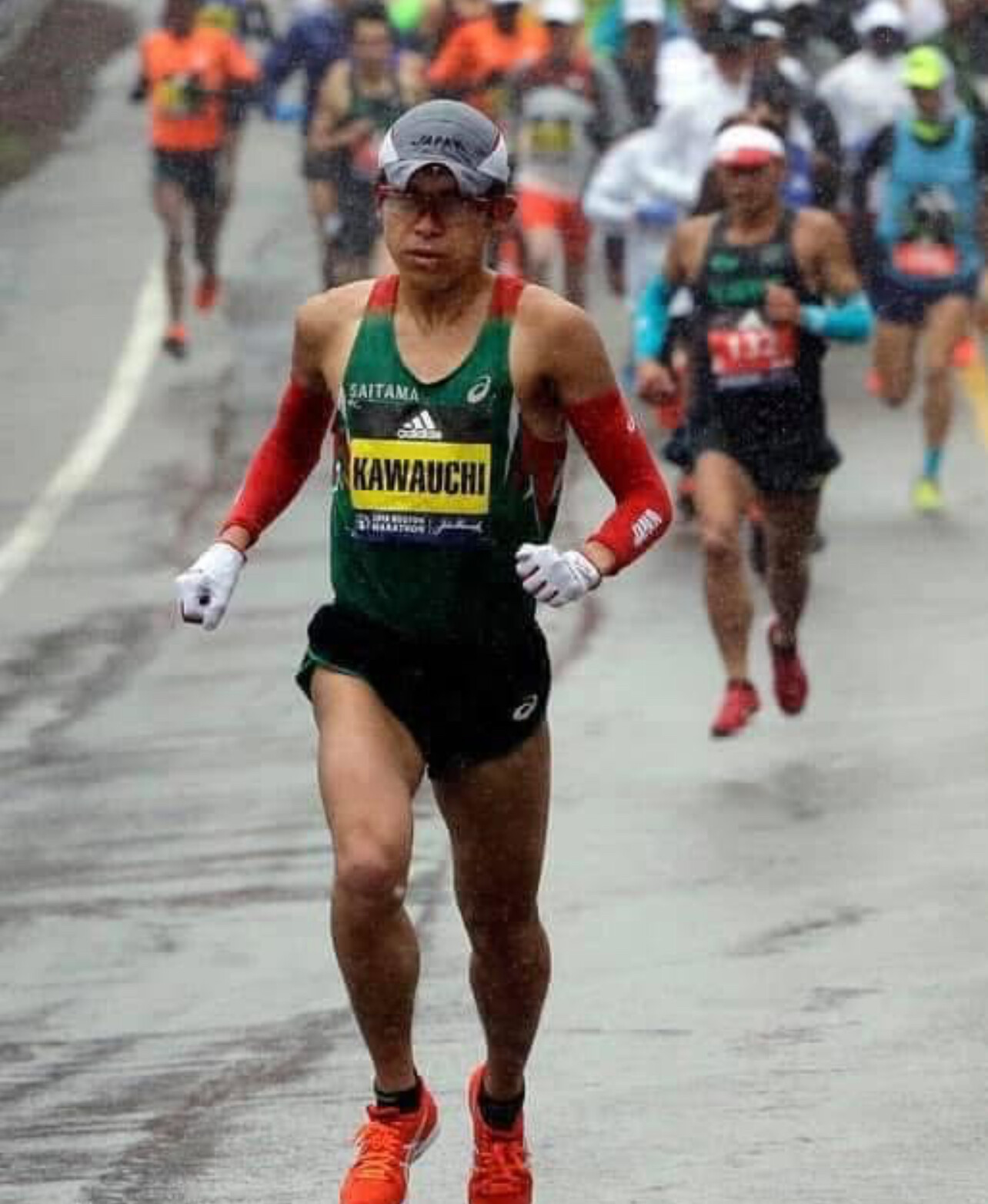
Kawauchi cemented his place in marathon history on April 16, 2018, when he won the Boston Marathon in one of the most challenging weather conditions the race had ever seen. With heavy rain, powerful headwinds, and freezing temperatures around 40°F (4°C), many elite runners struggled—but not Kawauchi. His relentless surges and fearless strategy allowed him to overtake defending champion Geoffrey Kirui in the final miles, crossing the finish line in 2:15:58. He became the first Japanese man to win the race since Toshihiko Seko in 1987.
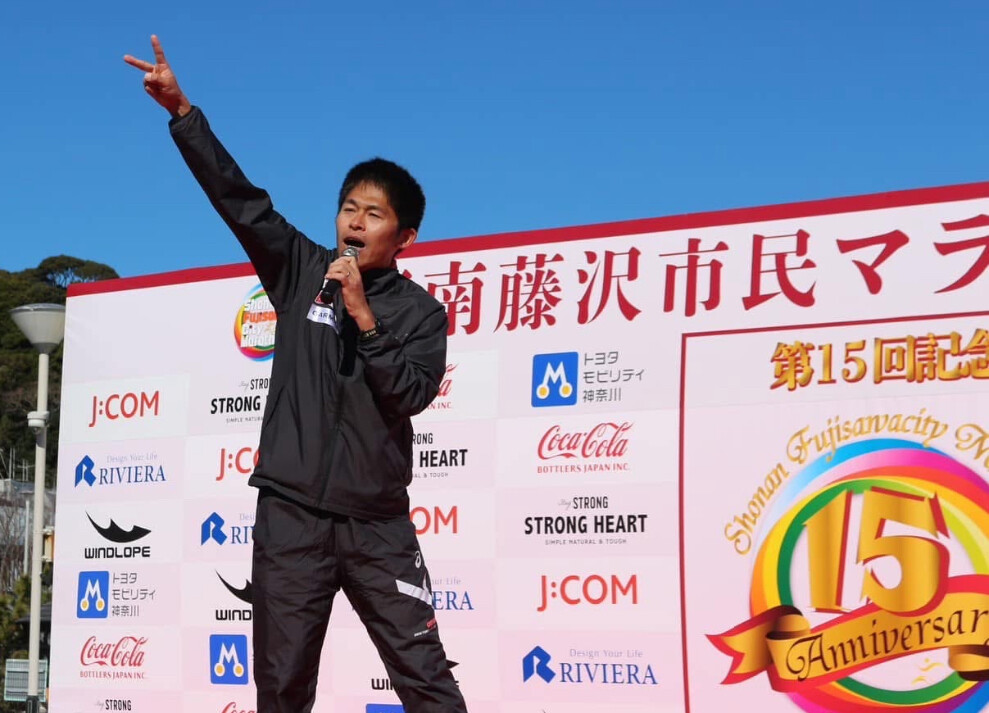
Transition to Professional Running
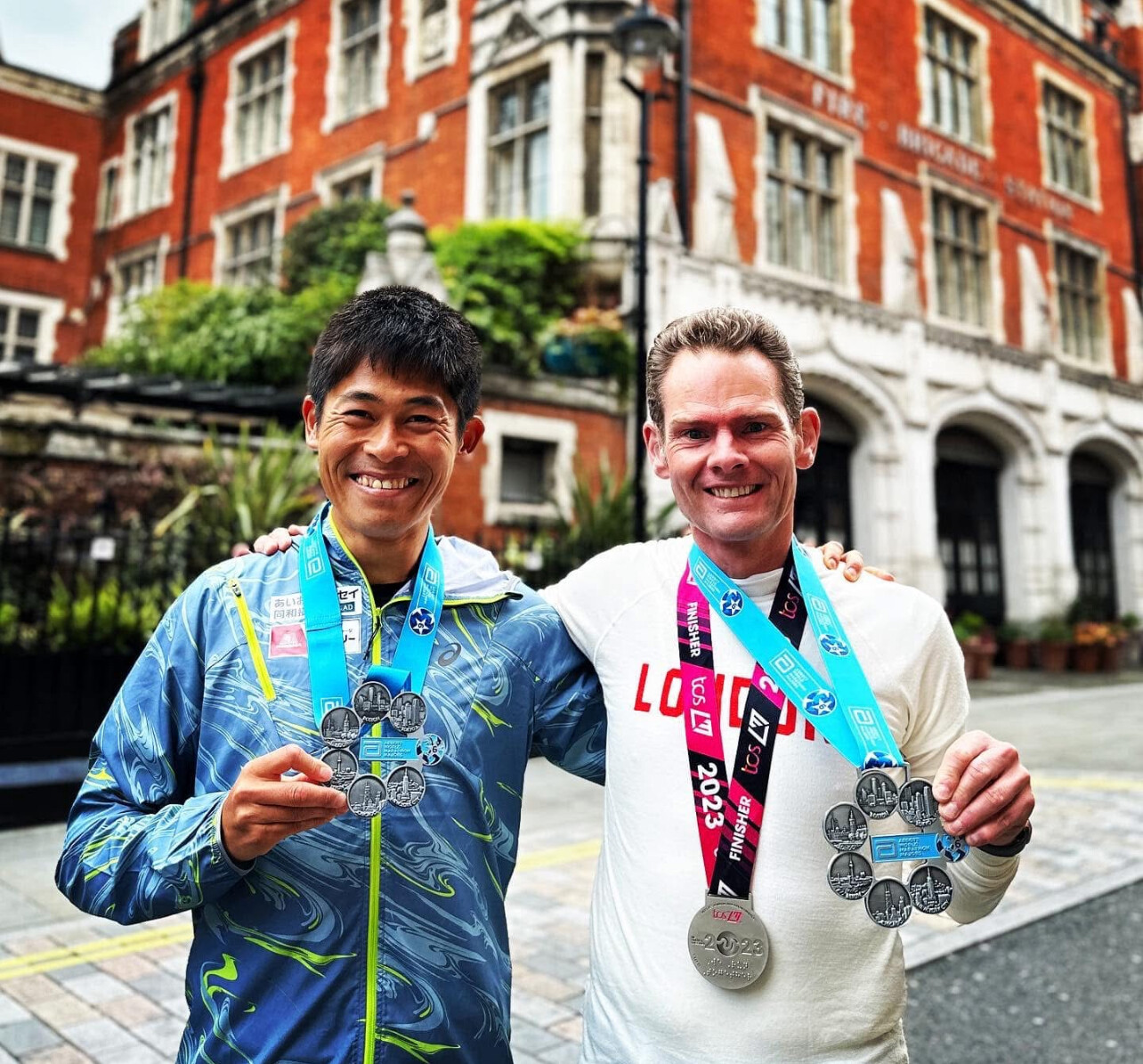
Despite his international success, Kawauchi spent years balancing his training with a full-time job as a government clerk. In 2019, he made the long-awaited decision to turn professional, allowing him to focus entirely on training and racing. The transition led to an improvement in his performances, including a personal best marathon time of 2:07:27 at the 2021 Lake Biwa Marathon.
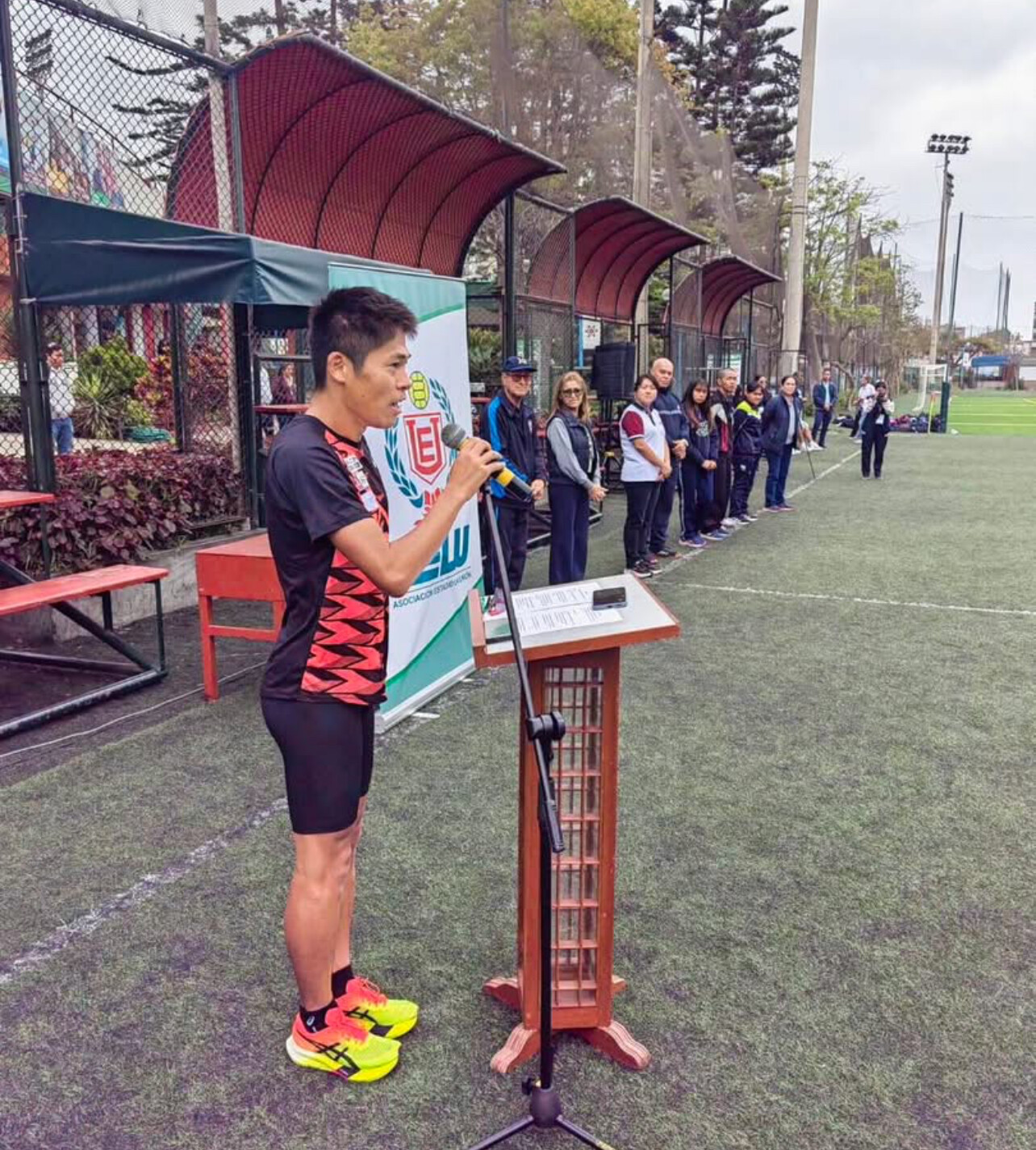
Battling Through 2024

The road to success is never without obstacles. In 2024, Kawauchi endured an inconsistent season, marked by injuries and slower race times. However, he continued to compete with determination, finishing several marathons despite the setbacks:
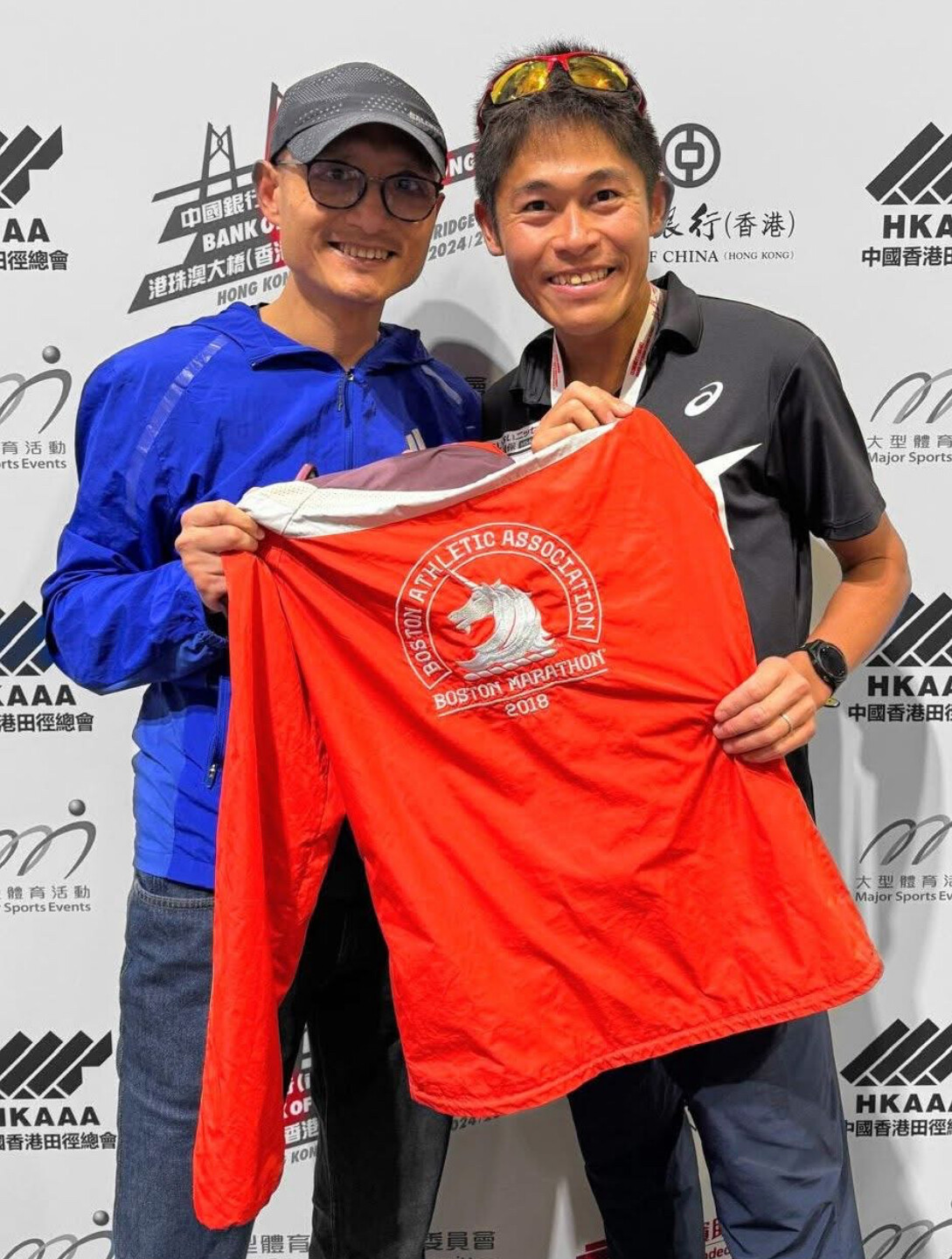
• Ibusuki Nanohana Marathon (January 2024): 1st place, 2:21:13
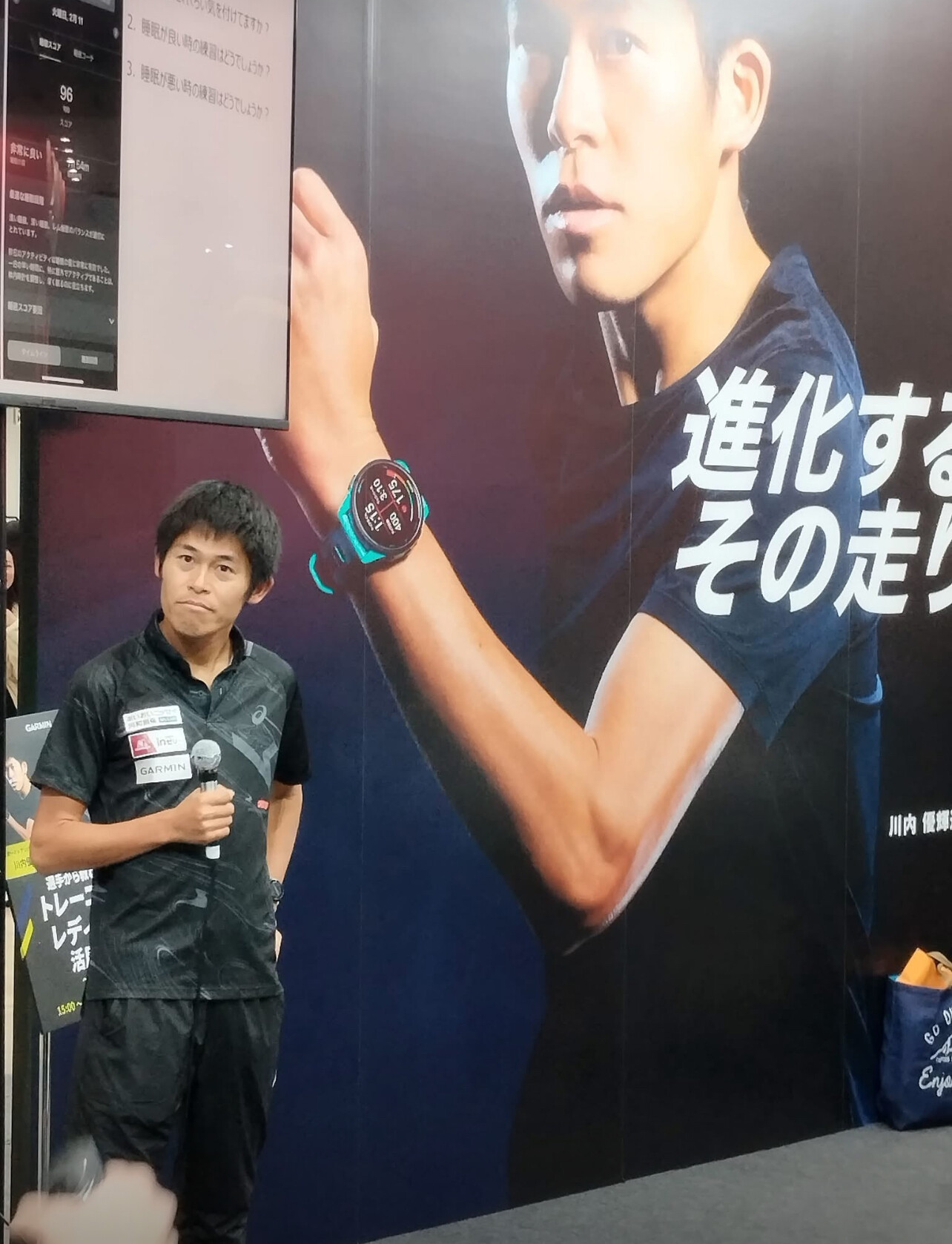
• Paris Marathon (April 2024): 75th place, 2:31:03
• Gold Coast Marathon (July 2024): 156th place, 2:42:26
• Hofu Yomiuri Marathon (December 2024): 38th place, 2:33:01
• Mie Matsusaka Marathon (December 2024): 6th place, 2:22:02
Despite these struggles, Kawauchi never lost sight of his goal—to return stronger in 2025.
A Strong Comeback in 2025
This year, Kawauchi has proven once again why he is one of the most enduring marathoners in the world. His persistence paid off with a strong performance early in 2025:
• Tokyo Marathon (March 2025): 15th place, 2:10:45
His victory at the Tohoku Miyagi Revive Marathon was a defining moment, signaling that Kawauchi is back in top form.
Training and Personal Life
Now a professional, Kawauchi has adapted his training regimen to include higher mileage and more structured workouts. He still follows an old-school approach, frequently training alone and racing more often than most elite marathoners. His high-volume racing strategy continues to set him apart, proving that consistency and experience can be just as valuable as raw speed.
In his personal life, Kawauchi married fellow runner Yuko Mizuguchi in 2019. The couple shares a passion for marathon running, supporting each other’s athletic careers. Their shared dedication to the sport has made them one of Japan’s most inspiring running duos.
A Lasting Legacy
Yuki Kawauchi has defied conventional wisdom in long-distance running, proving that elite performances don’t require sponsorships, high-tech training camps, or corporate teams. His dedication, work ethic, and ability to push through challenges continue to inspire runners of all levels.
With his recent 2025 victory and continued improvement, Kawauchi remains a formidable competitor in the global marathon scene. Whether battling extreme weather or personal setbacks, his resilience and love for the sport continue to make him a legend in the running community.
by Boris Baron
Login to leave a comment
No one has run more sub 2:20 marathons than Yuki.
As of March 8, 2025, Yuki Kawauchi has completed 104 marathons under 2 hours and 20 minutes. This milestone includes his recent performances in 2025:
Tokyo Marathon (March 2025): 15th place with a time of 2:10:45 and Tohoku Miyagi Revive Marathon (April 2025): 1st place, finishing in 2:11:18. - Bob Anderson 3/9 7:31 pm |
Ethiopia’s Mengesha wins Hong Kong-Zhuhai-Macau Bridge race
The Bank of China Hong Kong-Zuhai-Macau Bridge Half Marathon made a considerable improvement on its flawed previous edition as it was praised by elite and amateur runners on Sunday.
After criticism following the inaugural race 14 months ago, the logistical aspects were as important as the identities of the winners at this second event.
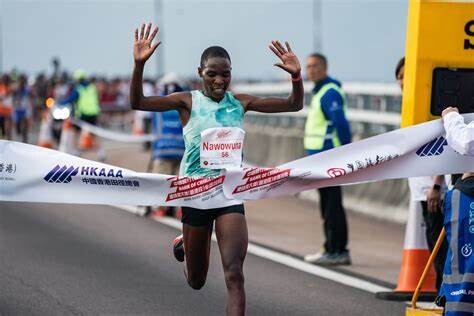
Handily for organizers, the first man and woman over the line, Milkesa Mengesha and Grace Nawowuna, were gushing in their assessments of the race, which is staged inside a border checkpoint at the Hong Kong end of the world’s longest sea-crossing bridge.
Ethiopian Mengesha, winner of last year’s Berlin Marathon, completed the 13.1 miles (21km) in one hour, one minute and 27 seconds, three seconds ahead of Patrick Mosin, from Kenya, who finished in 1:01.30.
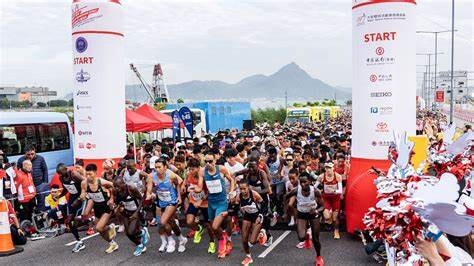
“I am so happy to win here, the level of everything has been perfect, even above my expectations,” Mengesha said.
The 21-year-old Kenyan Nawowuna clocked 1:07.56, ahead of compatriot Sheila Chelangat in 1:08.06. She said the mixed reviews of November 2023 had not been a factor when deciding whether to compete.
“The organisation was everything we could have asked for and Hong Kong is beautiful,” Nawowuna said.
Complaints following the debut race focused on a scarcity of toilets, delays transporting runners between their AsiaWorld-Expo assembly point and the course, an absence of food and shortage of drink, and a pre-race drop-off about a 1.5km walk from the start line.
Simon Yeung Sai-mo, chairman of the organising committee, said a backlash from “runners and the media” had prompted a host of changes.
“There were more than 70 toilets in the starting and finishing areas,” Yeung said. “The drop-off point was fewer than 500 metres from the start line and we provided food and drinks for runners.”
As they walked to the start, flanked by rows of portable toilets, some of the 8,000 runners were heard saying lessons had been learned. Out on the course, there were six water stations, with food available from those on the homeward straight.
The start was watched by government officials including Secretary for Culture, Sports and Tourism Rosanna Law Shuk-pui.
Fleets of buses were waiting to take runners back to AsiaWorld-Expo, where they were greeted with gift bags containing a banana, crackers, water and a towel, before collecting their bags.
Amateur runner Rick Yam said: “I heard a lot about last year, but there isn’t anything I can say that needs improving.
“We could see the start line when we got off the bus and the transport was good. It can’t be as easy as some other races, because we’re in an area where there is usually restricted access. Overall, it was pretty good.”
Fellow runner Alan Zagury said the toilets and shuttle bus service were faultless, but he would not be back for future editions “because it is a huge logistical headache”. “I left home at 4.30am, it’s now past 9.30am, which is far too much for a half-marathon,” he said.
Zagury also said the 45-minute wait in a confined area before starting was “too long and meant we could not warm-up”.
Given the race’s location, however, hanging around before starting was the nature of the beast.
Virginia Lo Ying-chiu, the first Hong Kong woman home in 1:16.45, said it had been a “privilege to be involved”. “I think the problems were solved,” she said. “We didn’t need to wait for toilets, or walk to the start line. The arrangement is much better.”
Japan’s 2018 Boston Marathon winner, Yuki Kawauchi, finished seventh in 1:07.52 before being mobbed for autographs and selfies. He said it had been a “good decision” to compete and rated the event above his own country’s Chiba Aqualine Marathon, where runners race on the bridge section of the Tokyo Bay Aqua-Line.
Yeung said the race would return next year, on condition of government support, but the plan was to make it “better rather than bigger”.
“If we increased numbers, it would not be a good experience for runners,” he said. “We can’t have any more, because we have to give the bridge back to the government as soon as possible.”
After assembling a strong international field, organisers were rewarded when World Athletics designated the event a Gold Label Road Race, one rung beneath its top-tier Platinum Label races.
by Paul McNamara
Login to leave a comment
Jepkesho favorite to clinch Sunday's Gold Coast Marathon title
Seoul Marathon's second runner-up Visiline Jepkesho will start as the favorite in the elite women’s race on Sunday during the Gold Coast Marathon on the Eastern Coast of Australia.
Jepkesho is competing in her second marathon this year after finishing third in South Korea with a time of 2:22:52 on March 17.
The 34-year-old also boasts victories from the 2018 Rotterdam Marathon, where she clocked 2:23:47 and the 2016 Paris Marathon (2:25:53).
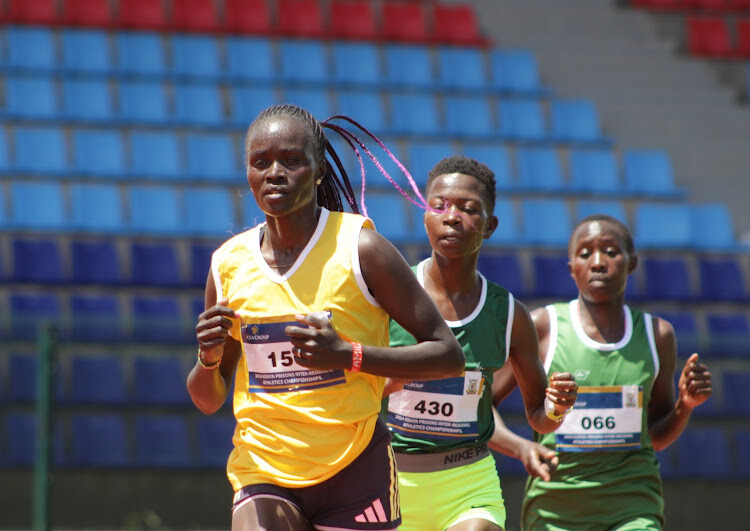
She also placed third in the 2015 edition of the Paris Marathon clocking 2:24:44 and placed second at the 2017 Istanbul Marathon (2:22:40).
Other top performances include the 2019 Nagoya women’s Marathon (2:22:58) and the 2017 Lille Half Marathon (1:08:12).
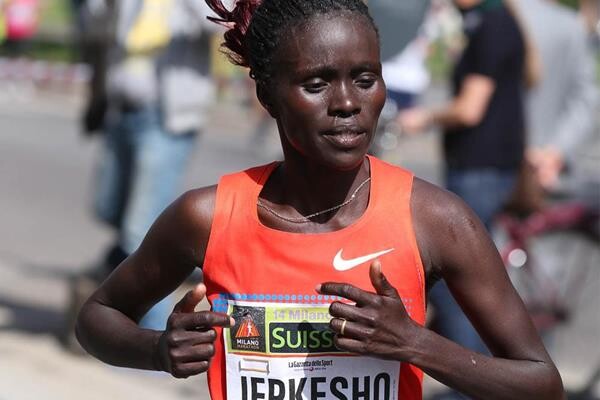
The seasoned long-distance runner will face stiff competition from Japan’s Rie Kawauchi and Misato Horie.
Kawauchi boasts titles from the Nagano Marathon (2:33:16) and last year’s Tokushima Marathon (2:33:50).
Horie is the 2016 Gold Coast champion, where she claimed the title in a time of 2:26:40. She also holds a title from the 2022 Osaka Marathon (2:32:10).
Jepkesho will be joined by compatriot Irene Jerobon, the Castellon Marathon runner-up (2:30:51).
She is also the Alpes-Maritimes Nice-Cannes Marathon champion with a time of 2:41:18. Milly Clark, the 2021 Melbourne Marathon champion, will be seeking to make a mark for the host nation.
Clark’s achievements include winning the 2021 Launceston Half Marathon (1:11:09) and securing silver at the 2019 Oceania Marathon (2:28:08) and 2017 Gold Coast Half Marathon (1:11:15).
The men’s field will be spearheaded by 2015 Praha Marathon Champion Felix Kandie.
Organizers termed the men’s race as the strongest in the event’s history with 12 athletes having run sub 2:10 times.
“ Twelve male athletes have sub 2:10 performances. This will be the strongest field to ever jump to the starting gun in the 44-year history of the ASICS Gold Coast Marathon,” the statement from the organizers read.
Kandie is a silver medalist in the 2017 Seoul Marathon (2:06:03) as well as the 2016 edition of the Praha Marathon (2:08:14).
He is a bronze medalist at the 2015 Valencia Marathon (2:07:07) and the 2018 Toronto Waterfront Marathon (2:08:30).
Kandie will be joined by fellow Kenyans Timothy Kattam, the 2023 Milano Marathon silver medalist (2:07:53), Geoffrey Birgen and Kenneth Omulo.
Japan’s Yuki Kawauchi, the 2016 Gold Coast runner-up (2:09:01), will provide formidable competition along with Uganda’s Kibet Soyekwo, the 2013 Dronten Half Marathon champion (1:03:45) and Ethiopia’s Belay Tilahun.
by Teddy Mulei
Login to leave a comment
MEA ANTRIM COAST HALF MARATHON
The MEA Antrim Coast Half Marathon 2022 has been approved by World Athletics as an Elite Event. The World Athletics certified course takes in some of the most stunning scenery in Europe, combined with some famous landmarks along the route. With it's flat and fast course, the race is one of the fastest half marathons in the world. Starting...
more...Timothy Kattam and Yuki Nakamura secured the victory in the Gold Coast Marathon
A diminutive 23-year-old Japanese surprise packet today smashed the ASICS Gold Coast Marathon women’s race record, stunningly in just her second marathon.
Yuki Nakamura came into Sunday’s race at the lower end of the top 10 but turned the form guide upside down with a 2:24:22 run that eclipsed American Lindsay Flanagan’s race record of 2:24:43 set in 2022 by 21 seconds.
It was the third fastest women’s marathon time on Australian soil, the other two fastest achieved by the gold and silver medalists at the Sydney 2000 Olympic Games.
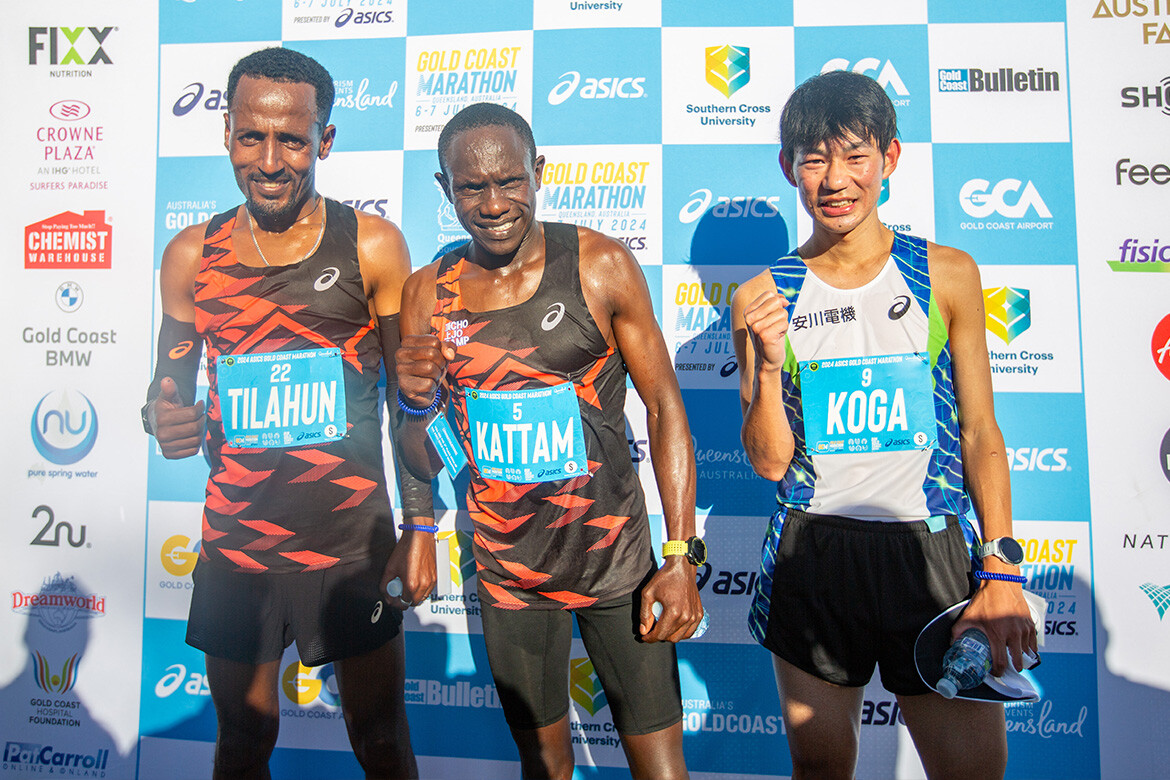
Ethiopia’s Kumeshi Sichala (2:25:25) and pre-race favourite Kenyan Visiline Jepkesho (2:26:17) took the minor placings.
Nakamura’s out-of-a-hat record was achieved on a perfect-for-running Gold Coast morning alongside a record 10,000-plus fellow marathoners who competed on the day.
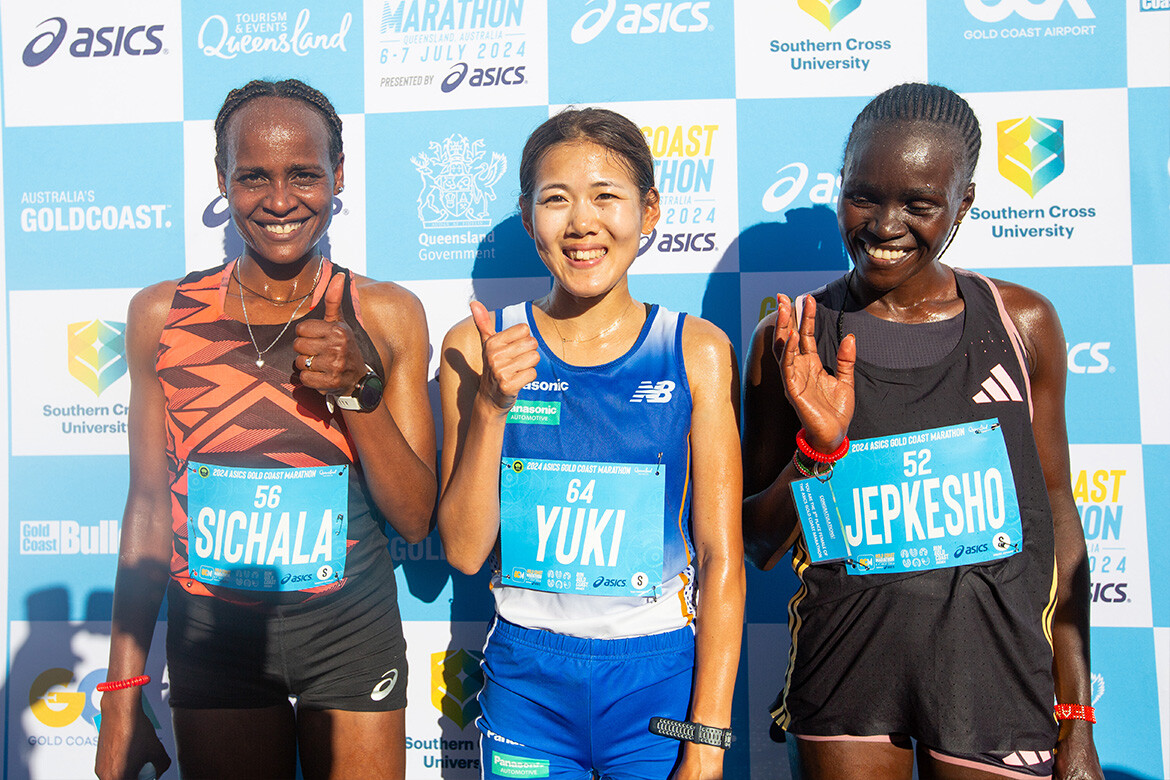
The men’s event was taken by Kenya’s Timothy Kattam in 2:08:52, six seconds ahead of Ethiopian Belay Tilahun (2:08:58) and Japan’s Kiyoshi Koga (2:09:22).
Nakamura said she had a slightly more conservative target time on the start line.
“I was aiming for a 2:26 result, that was my objective, however, to come here and win the race, I am so happy with the result,” she said.
Nakamura said she went with the early pace.
“In the beginning, it was faster than I anticipated but I was feeling great and enjoying the ambiance of the Gold Coast, so I just went for it and then I realised there was nobody else around and I was winning.
“At the 30km mark I wanted to drop off the group, but then it was downhill, so I tried to hang in there and catch up on the speed and when I got to the 35/36km mark it was good and I made my move.
“I have no idea how this feeling is, however later on I will feel the power of standing on the top step of the podium,” she said.
Second place Sichala said she was happy to achieve a personal best at her first ASICS Gold Coast Marathon.
“My race went to plan, it was good, and I am very happy,” she said
“I loved the people cheering along the course and I will come back to the Gold Coast again,” she said.
Jepkesho was happy enough with her debut appearance on the Gold Coast
“It wasn’t my personal best, but I felt good,” she said.
Men’s champion Kattam said he surprised himself with his first run in Australia.
“This is my first time coming to Australia, I am so grateful for today’s race, it was fantastic; I like the course, everything was well, I am very happy for the day. “It was about the win, [and] we were very tight over the ASICS athletes, it was a very tough race.
“[Our team tactics] come out during training and that is what motivates us,” he said.
“The pace was 3:01, 3:02, but then it went to 3:07 and that is when I decided to make a move, to control the speed, “This is a very good season for me; today I wanted to try for a podium, but I didn’t expect to win today’s race and I am very happy, and I am looking to be back in Australia next year,” he said.
Tilahun was happy with his run. “It was a personal best for me, so how can you not be happy with that?”
Third place Koga wanted to do it his way. “The last few races I haven’t done well in the marathon, so I just wanted to run the way it should be and stay steady and this was the result,” he said.
“The winner last year was Japanese, so I was aiming for first place but at least I am on the podium and for that I am grateful.
“Many people were cheering, and it was a really fun and enjoyable run,” he said.
The best Australian in the men’s race was Liam Boudin (2:13:56) who was eighth overall in his debut marathon while Victorian Sarah Klein (2:31:58) was the first Australian woman across the line and fifth overall in the women’s race.
Login to leave a comment
Gold Coast Airport Marathon
The Gold Coast Airport Marathon is held annually in one of the most popular holiday destinations in the world. It is Australia’s premier road race and was the first marathon in the country to hold an International Association of Athletics Federations (IAAF) Road Race Gold Label. The event is held on the first weekend of July and attracts more than...
more...Hillary Kipkoech and Stella Chesang win the Gifu Half Marathon
Hillary Kipkoech of Kenya and Stella Chesang of Uganda won the Gifu Half Marathon on Sunday in the times of 1:01:26 and 1:07:59 respectively.
The men
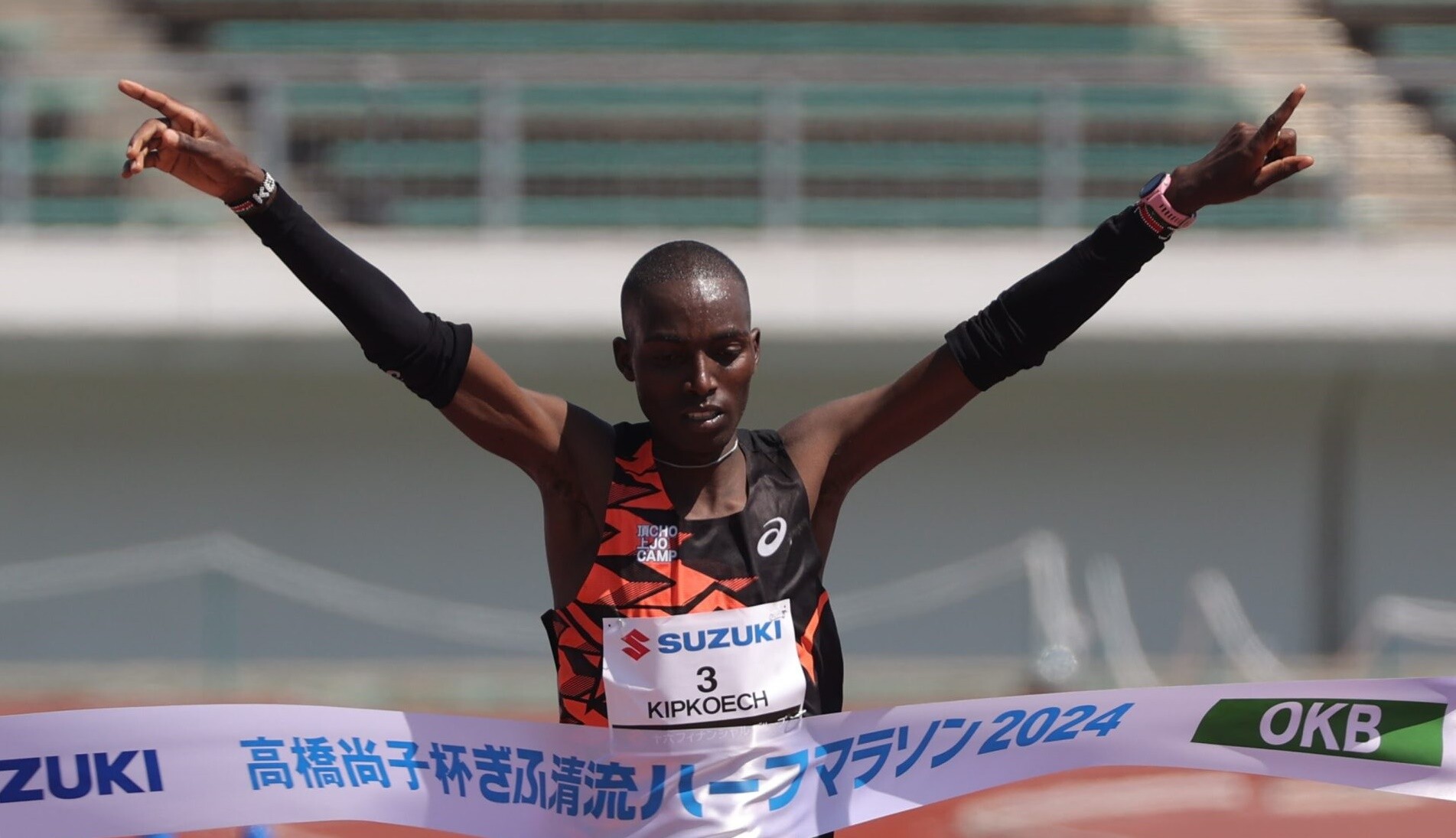
In the men’s race, Kipkoech, defending champion Amos Kurgat, and Timothy Kiplagat both of Kenya ran together with others and led from the beginning. In warm conditions, the lead runner in the pack kept changing, but around 14km, Kipkoech and Kurgat pulled away from the rest, and the battle for victory was narrowed down to the two runners.
At an uphill after the water station with 3km left to go, Kipkoech pulled away winning his first title of the Gifu Half Marathon in the time 1:01:26. Kurgat came in second in 1:01:38 and Kiplagat in third in 1:01:55.
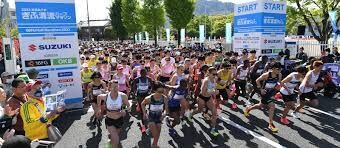
The top Japanese runner was Hideyuki Tanaka clocking a 1:02:31 finish time. The 33-year-old clocked a personal best in February during the Marugame Half Marathon with his 1:01:13 performance.
The women
In the women’s race, three powerful athletes of Chesang, two-time defending champion, Dolphine Nyaboke Omare of Kenya, and the 2023 Asian Games Champion Eunice Chebichii Chumba of Bahrain led the race. As Chumba started to lag behind at around 10km, the race turned into a two-women battle between Chesang and Omare.
The duo ran side by side until Chesang spurred off at around 18km to run solo. Chesang achieved her first victory in Gifu and a new personal best in 1:07:59. Omare finished in second in 1:08:31 and Chumba third in 1:09:10.
The top Japanese woman was Rinka Hida with her 1:12:07 performance. The 23-year-old set her best last year in Osaka at 1:10:10.
The 13th edition race was held under sunny, clear skies in an unprecedented heat of 28 degrees Celsius, making the city the stage for a ‘hot race’ both literally and figuratively.
by Christopher Kelsall
Login to leave a comment
Gifu Half Marathon
The Gifu Seiryu Half Marathon is an annual half marathon road running competition held in Gifu, Japan. First held in 2011, the race is also called the Naoko Takahashi Cup, named after Naoko Takashi, the retired local runner who won the marathon at the 2000 Sidney Olympics and broke the marathon world record in 2001, becoming the first woman to...
more...Rotich spearheads Kenyan quest at Paris Marathon on Sunday
Kenyan marathoners face a stern test at the Paris Marathon on Sunday as Elisha Rotich spearheads the country's charge.
Rotich, who won the event in 2021 and is currently the course record holder with a time of 2:04:21, returns to the event after a two-year absence.
Rotich won the 2016 Cannes Marathon in France; the 2017 Chuncheon Marathon in South Korea and the 2018 Eindhoven Marathon.
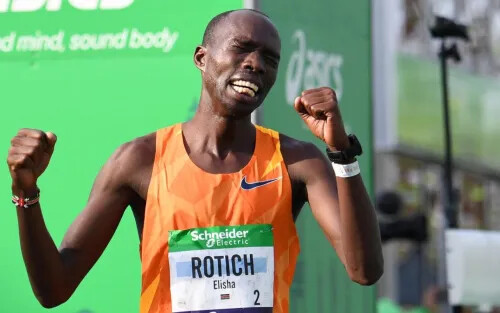
Hillary Kipsambu, who finished third and sixth in the French Capital in 2021 and 2022, will be aiming to go one place better this time round.
Kipsambu, who won the Kosice Marathon in Slovakia in 2019 in 2:09:33, will fancy his chance of going all the way.
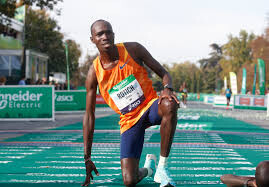
The 2023 Frankfurt Marathon champion Brimin Kipkorir is also in the mix for the title.
The Kenyan trio will be up against a formidable contingent from Ethiopia including the defending champion Gisealew Ayana.
The Ethiopian will be seeking to become the third person to defend the crown after Britain’s Steve Brace (1989 and 1990) and Kenya’s Paul Lonyangata (2017 and 2018).
Ayalew will have Mekuant Ayenew and Bazezew Asmare – all with PBs under 2:05:00 for the company in what is expected to be a competitive race
Japan’s Yuki Kawauchi will aim to challenge the African dominance while France’s Freddy Guimard will hope to impress on home turf. In the women's category, Vivian Cheruiyot lines up as a contender. Her last win was the 2018 London Marathon, where she clocked 2:18:31.
The 2016 Olympic 5000m champion will bounce back to marathon running at the age of 39 as her last marathon dates back to 2019.
Cheruiyot will have her work cut out against a strong Ethiopian field. Buzunesh Getachew, winner in Frankfurt last October, will lead the Ethiopian team and will be joined by Rahma Tusa, Etagena Woldu, Hailu Haven and Gelete Burka, winner of the 2019 Paris Marathon. More than 54,000 runners are set to take part in the event.
Following tradition, participants will set off from the Champs-Élysées to cover the gruelling distance of 26.2 miles, passing through some of the most beautiful Parisian spots.
The route will include the Place de la Concorde, the Opéra Garnier, the Louvre, Notre-Dame de Paris, the Musée d’Orsay, the Eiffel Tower, the Grand Palais and the Hippodrome d’Auteuil to name a few.
by William Njuguna
Login to leave a comment
Schneider Electric Paris Marathon
The Schneider Electric Marathon de Paris offers a unique opportunity to make the city yours by participating in one of the most prestigious races over the legendary 42.195 km distance. The Schneider Electric Marathon de Paris is now one of the biggest marathons in the world, as much for the size of its field as the performances of its runners....
more...Defending champ Gisealew Ayana and Vivian Cheruiyot lead fields for Paris Marathon
More than 54,000 runners are set to gather at the starting line of the 47th Schneider Electric Marathon de Paris this Sunday (April 7).
Following tradition, participants will set off from the Champs-Élysées to cover the gruelling distance of 26.2 miles, passing through some of the most beautiful Parisian spots.
The route will include the Place de la Concorde, the Opéra Garnier, the Louvre, Notre-Dame de Paris, the Musée d’Orsay, the Eiffel Tower, the Grand Palais and the Hippodrome d’Auteuil to name a few.
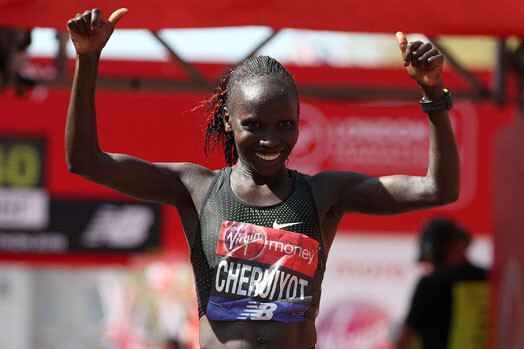
The marathon has attracted a strong field of elite athletes who will be aiming to clinch the title and walk away with the prize money, which stood at €50,000 last year.
Gisealew Ayana, a 21-year-old Ethiopian who secured victory last year, will lead the men’s race as he will aim for a double that only Britain’s Steve Brace (1989 and 1990) and Kenya’s Paul Lonyangata (2017 and 2018) have achieved.
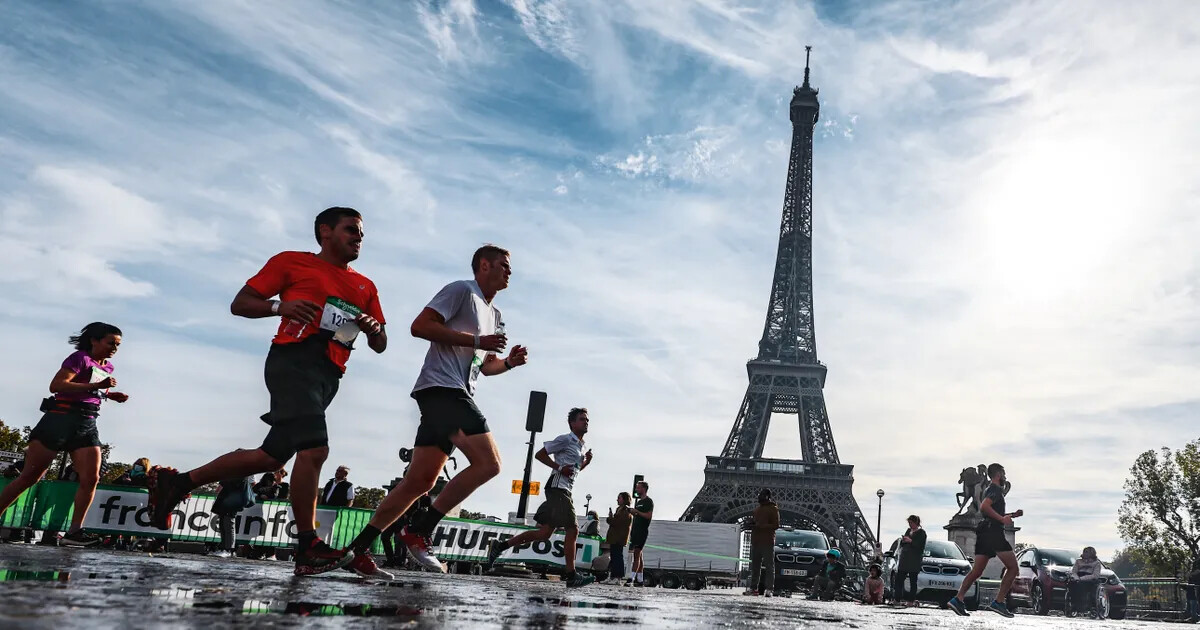
Ayana will face tough competition as he goes up against two previous Paris winners, 2022 champion Deso Gelmisa and Elisha Rotich, winner of the 2021 Pairs Marathon and event record holder (2:04:21). Rotich, 33, will return to the marathon after a two-year absence.
A strong contingent of Kenyan and Ethiopian runners will join the trio of recent winners in leading the field including Hilary Kipsambu (2021 bronze medallist), Brimin Kipkorir (2023 Frankfurt Marathon winner), Mekuant Ayenew and Bazezew Asmare – all with PBs under 2:05:00.
Japan’s Yuki Kawauchi will aim to challenge the African dominance while France’s Freddy Guimard will hope to impress on home turf.
In a change from previous years, the elite women will start on the same line as the men rather than having a separate start. The adjustment provides the women with an earlier start time, aimed at allowing them to take advantage of favourable conditions to achieve faster times.
Kenya’s Vivian Cheruiyot lines up as a favourite. Her last win was the 2018 London Marathon where she clocked 2:18:31.
The 2016 Olympic 5000m champion will bounce back to marathon running at the age of 39 as her last marathon dates back to 2019.
Cheruiyot will have her work cut out against her rivals as there is a strong Ethiopian field. Buzunesh Getachew, winner in Frankfurt last October, will lead the Ethiopian team as she will be joined by Rahma Tusa, Etagena Woldu, Hailu Haven and Gelete Burka, winner of the 2019 Paris Marathon.
There is more than just the marathon on offer this weekend as ASICS, partner of the Schneider Electric Marathon de Paris, is hosting a three-day Festival of Running event.
The unique festival will feature elite 5km and 10km speed races on Friday evening, with Eilish McColgan being one of the athletes set to run. A pre-marathon shake-out run is scheduled for Saturday.
by Jasmine Collett
Login to leave a comment
Schneider Electric Paris Marathon
The Schneider Electric Marathon de Paris offers a unique opportunity to make the city yours by participating in one of the most prestigious races over the legendary 42.195 km distance. The Schneider Electric Marathon de Paris is now one of the biggest marathons in the world, as much for the size of its field as the performances of its runners....
more...6 Running Benefits for Seniors That’ll Convince You to Lace Up Today
Research and experts explain all the advantages you gain from going for a run, including the physical and mental.
Despite what you may have been told, running has no cut-off age. You don’t have to slow down once you hit a particular milestone or switch to low-impact exercise. Running isn’t too hard on an older body, and, no, it won’t wreck your knees.
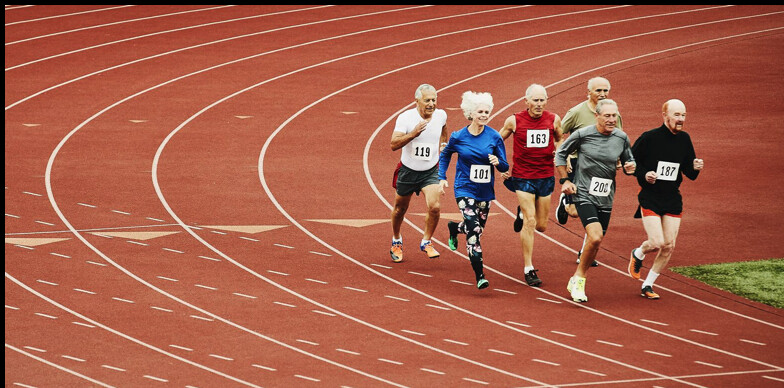
In fact, the list of running benefits for seniors spans the physical, mental, and social. To highlight some of the most compelling reasons for running well into your golden years, we asked coaches, trainers, and healthcare professionals who work with an older population for their takes. Read on to learn why some of your best miles may be ahead of you.
1. Supports Heart Health
As you age, your risk for cardiovascular disease increases as performance and health-related factors like cardiac output (or the volume of blood your heart pumps per minute), maximal oxygen uptake (a.k.a. VO2 max), and maximum heart rate wane. But research shows that exercise can help decrease your risk of heart disease—and the more active you are, the lower your risk.
“Running won’t stop the decline, and it isn’t for everyone. But done correctly and safely by engaging in a program designed specifically for seniors, it provides a way to slow and mitigate these inevitable declines,” Hiroyuki “Mike” McKnight, coach and founder of Running Workx, a program that specializes in training older adults, tells Runner’s World. “Running consistently over time with higher endurance levels makes the heart stronger and more efficient, especially for those who have been living more sedentary lifestyles during their older adult years.”
Because it’s an aerobic activity, running can improve the heart’s stroke volume (or the amount of blood pumped out of the heart with each contraction), encourage the formation of new blood vessels, and increase the number and size of mitochondria or the “powerhouse” of the cells that help you produce energy.
2. Improves Breathing Function
Lung function, which basically means how well a person breathes, peaks in your 20s and starts to decline around age 35. Combined with age-related sarcopenia (muscle loss and atrophy) of the breathing muscles, namely the diaphragm, can make breathing more difficult and render you more susceptible to respiratory infections, like the flu and pneumonia.
Research shows that moderate to high-intensity exercise, like running, may improve pulmonary function in seniors. A randomized clinical trial involving 45 people, published in Perceptual and Motor Skills, found that participants over 75 who engaged in moderate aerobic activity showed improved forced vital capacity (FVC, a marker of pulmonary health) after a 10-week exercise program. Seniors who performed high-intensity exercise for the same period of time showed improved FVC and forced expiratory volume in one second (FEV1.0, an additional pulmonary health marker). Meanwhile, the sedentary control group showed no improvements.
3. Increases Bone Density
When it comes to bone density, running is a bit of a double-edged sword. Robert Linkul, C.S.C.S., owner of Training the Older Adult, is quick to point out that the high-impact nature of running may not be advisable for deconditioned seniors with bone density issues. Doing too much too soon could lead to shin splints and other micro-fractures, he warns.
That said, an appropriately progressive training plan that slowly ramps up to running can help improve conditions like osteopenia and osteoporosis. “Ground impact is beneficial, big time,” he says. “You’re getting anywhere between three to six times your bodyweight with ground impact when you’re leaving the ground when you’re striding on a run.”
Todd Buckingham, Ph.D., professor of movement science at Grand Valley State University in Allendale, Michigan, also lists “bone strengthening” among the biggest benefits to senior runners, as it has real implications for quality of life and long-term health outcomes.
Buckingham notes that falls are among the leading causes of injury and injury death for seniors, and hip fractures are associated with elevated mortality. “Increasing the bone density of the hip can help prevent those fractures from occurring,” he says. “Running also strengthens the muscles of the lower body and helps improve balance, so you’ll be less likely to fall in the first place.”
4. Boosts Mood
A run is the ultimate mood booster, especially for older individuals who may be at greater risk for depression. “It’s hard to quantify, but in my experience on the ground, I see running providing seniors with a positive mechanism to cope with the everyday stresses of life,” McKnight says. “Whether it’s before the day starts or at the end of a tough day, there’s nothing like a good run outside to take one’s mind off things and create an environment to enjoy the moment.”
Running also creates opportunities for social interaction through running groups, clubs, coaching, and running-related events. Seniors who run may find that they have more chances to connect with others and therefore are better able to avoid isolation, which, according to a longitudinal study published by the Journal of the American Geriatrics Society, can significantly increase an individual’s risk of dementia.
5. Promotes Self-Efficacy
In her work, Colleen Brough, D.P.T., assistant professor of rehabilitation and regenerative medicine at Columbia University Irving Medical Center in New York City and director of Columbia RunLab, witnesses firsthand the physiological benefits that running can afford seniors. “We observe improved lipid profiles for those with cardiovascular disease, optimized metabolism—especially helpful for those struggling with obesity—and improved glycemic control in those new runners who have diabetes,” she says.
But what’s perhaps equally impactful is how running can improve older adults’ self-esteem and self-efficacy, or believing in one’s own capabilities. “In a world of unrealistic standards set by choreographed social media images that often disregard those of us post-40, self-efficacy is more important than ever,” Brough explains.
Running allows seniors to challenge themselves, achieve goals, and try again when they miss the mark. “Frankly, even a bad run that’s been completed provides an immediate sense of accomplishment and satisfaction along with a big dose of stress relief,” Mcknight says.
6. Extends Lifespan
Considering running’s myriad physical and mental health benefits for seniors, it’s no surprise that hitting the road (or the tread) may help you live longer and with fewer disabilities.
Case in point: According to a 2023 International Journal of Environmental Research and Public Health study, adults who spend a minimum of 75 minutes a week jogging or running have longer telomeres—which are a part of chromosomes and known to shorten with age—than those who don’t exercise. Telomeres are better predictors of biological age than chronological years, according to the research.
Also, according to the American College of Cardiology, even running one or two times a week, for a total of less than 51 minutes, fewer than six miles, and slower than 6 miles per hour was associated with a lower your risk of dying compared to those who do not run.
That also shows that if you are a lifelong athlete, you don’t have to maintain your pace or distance to benefit from running.
Safety Considerations for Senior Runners
As with runners of any age, seniors new to the sport should (once they get a doctor’s approval) start slow. “I suggest newbie runners initiate their training with a walking protocol, which more easily transitions them to a new running program,” Brough says. “Depending on initial walking tolerance, this might look like five to 10 minutes of sustained, brisk walking three to four times per week for two weeks.” She suggests gradually working up to 20 minutes before incorporating brief running intervals.
If you have the time and resources, it’s worthwhile to work with a run coach. “As little as one or two sessions can be a game-changer for people,” Linkul says. A running professional will not only help you optimize your form for performance and safety, but they can also customize a training plan that aligns with your goals, experience, and fitness level.
Finally, stay on top of your medical appointments and listen to your doctor, as there are some contraindications to running—and not just for seniors. “Definitely don’t run if you recently experienced a myocardial infarction or change in heart medication, have congestive heart failure, unstable angina, uncontrolled hypertension, or uncontrolled glycemic levels,” Brough says.
Individuals with controlled high blood pressure, a history of heart disease, or circulatory problems may benefit from running, she says, but they must be closely monitored by a healthcare professional.
by Runner’s World
Login to leave a comment
Koyama and Inoue among invited runners for Osaka Marathon
A total of 19 invited runners were announced Monday for the upcoming Osaka Marathon, including Paris Olympics-bound Naoki Koyama and 2018 Asian Games gold medalist Hiroto Inoue.
The Feb. 25 marathon is the first of the two remaining "final challenge" races for Japan's third and last spot in the men's marathon at this summer's Olympics.
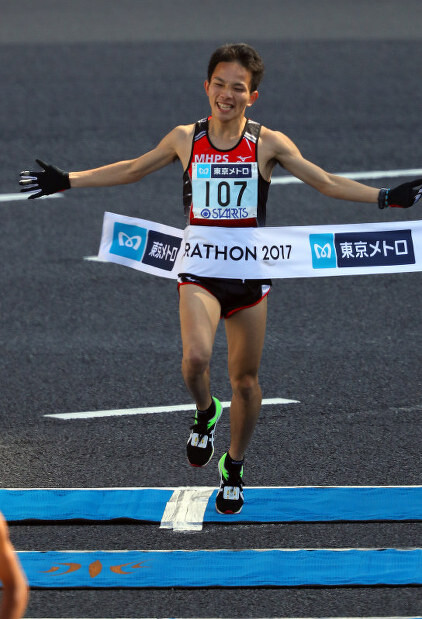
Shogo Nakamura, who competed at the Tokyo Olympics in 2021, will also run, but 2018 Boston Marathon winner Yuki Kawauchi will not take part due to an injury, according to organizers of the Osaka race.
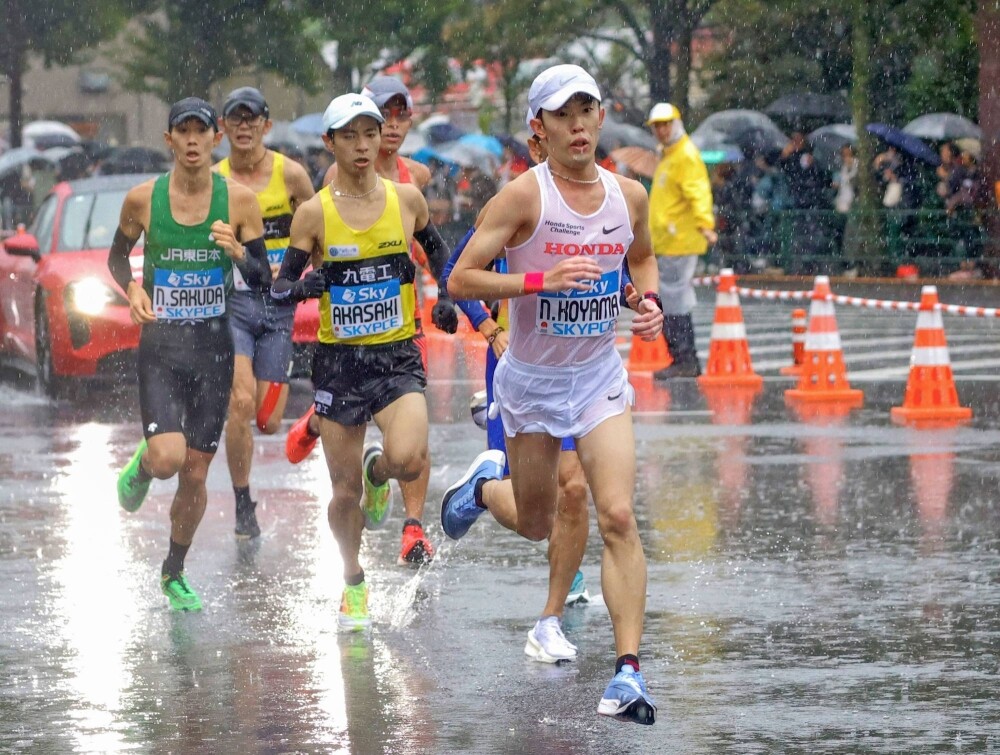
Koyama and Akira Akasaki have already clinched their Olympic berths by finishing first and second, respectively, at last October's Marathon Grand Championship in Tokyo.
The Tokyo Marathon, scheduled for March 3, wraps up the competition schedule for Olympic selection.
by The Japan Times
Login to leave a comment
Osaka Marathon
Let’s run for fun in the shadow of Osaka Castle, the symbol of the city!This is a fun running event, which welcomes international runners from all corners of the global alongside families, friends and Japanese runners; all running together through the colored leaves of Osaka Castle Park on a crisp autumn morning. The fun and pleasure of running is universal! ...
more...2018 Boston marathon winner Yuki Kawauchi and wife were winners today at marathon in Japan
The man who shocked the world in 2018 when he won the Boston Marathon, Yuki Kawauchi is a marathon-running icon. He shared this on FB today:
"I ran Tohoku Miyagi Fukko Marathon today.
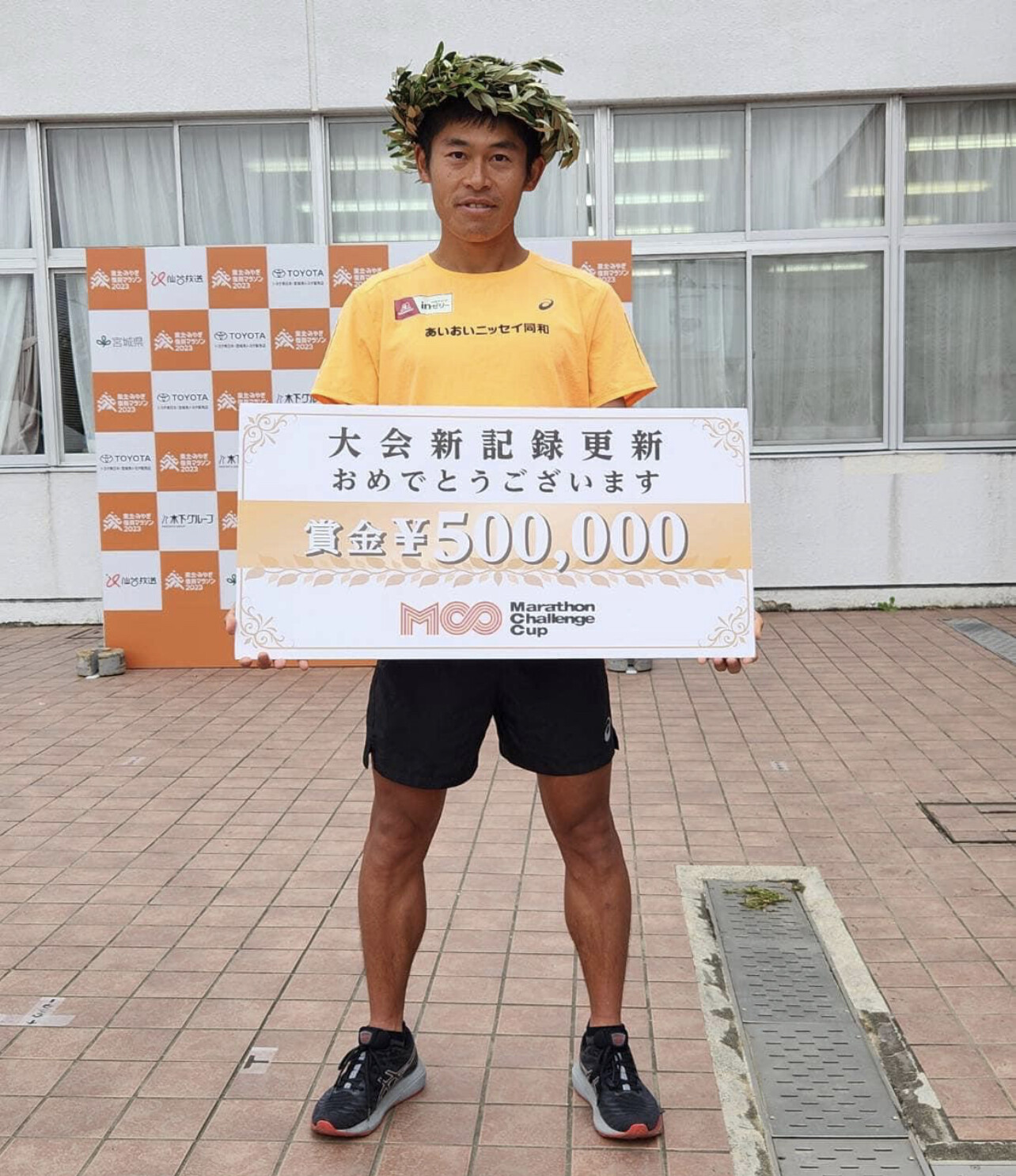
My result was 2:11:48 and I broke course record.
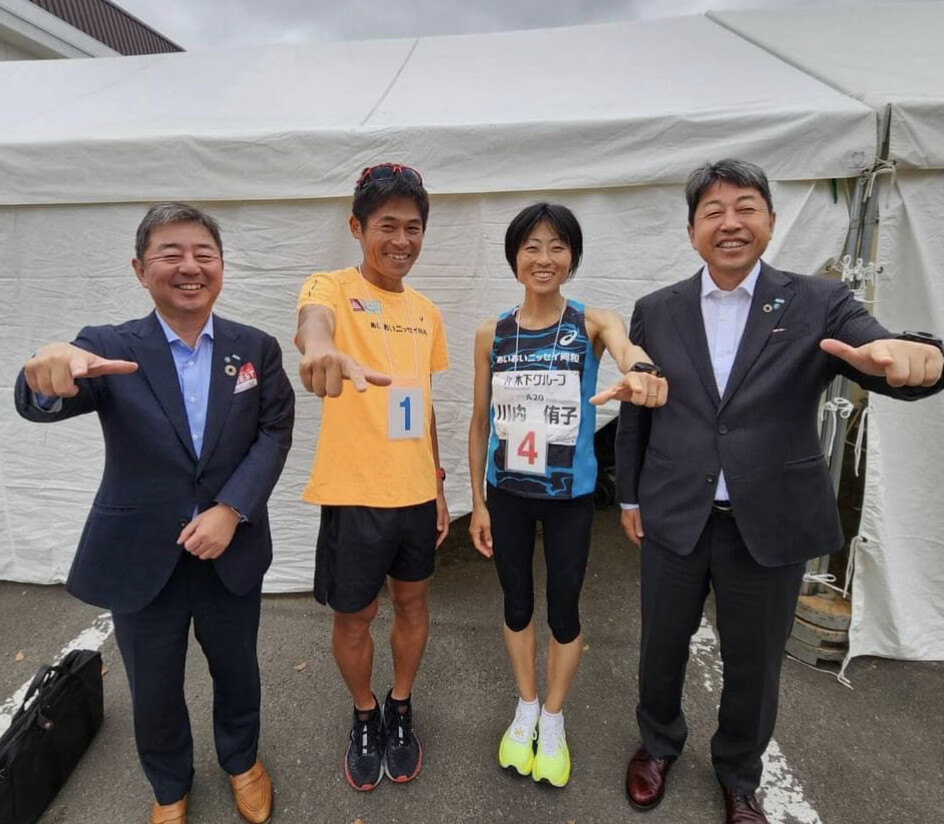
So I got course record bonus(¥500000 = $3350).
I was so good until 25km today.
But I struggled head wind & small hills from 25km.
Part of this course was a revival road built over an area destroyed by the 2011 earthquake and tsunami.
I am proud that I was able to run well in area that is unforgettable for Japanese people.
And my wife YUKO was 4th clocking 2:56'29.
Today's marathon was her first marathon since giving birth last year."
I'm also proud of her efforts for sub-3, who continued to run with the stroller every day.
Login to leave a comment
Koyama and Suzuki secure places on Japan’s Olympic marathon team
Naoki Koyama and Yuka Suzuki won Japan’s Marathon Grand Championship in Tokyo on Sunday (15), guaranteeing their selection for the Paris 2024 Olympic Games.
Koyama won in 2:08:57 with Akira Akasaki finishing a close second in 2:09:06, also securing his place on the team. As was the case in Japan’s Olympic selection race for the last Games, Suguru Osako finished third, meaning his selection is only provisional and not yet guaranteed.
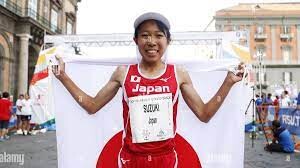
Suzuki’s triumph in the women’s race was more clear cut as she won by 34 seconds in 2:24:09. Mao Ichiyama placed second in 2:24:43 while Ai Hosoda took third place (2:24:50).
Former Boston Marathon winner Yuki Kawauchi was the early leader of the men’s race, building up a 41-second lead at 25km (1:15:36). His lead was still 34 seconds at 30km, but several athletes in the chase pack started to make a move.
Kawauchi was caught with about seven kilometres remaining, but he didn’t drop back. Just four men remained in contention in the final five kilometres – Kawauchi, Koyama, Osako and Akasaki. Koyama made a decisive move just before 40km, and despite a strong finish from Akasaki and Osako, there was no catching Koyama who won in 2:08:57.
The first big move in the women’s race came at about 23km when Mao Ichiyama opened up a bit of a gap ahead of the rest of the leaders. Hosoda then took a turn in the lead at 30km, but Ichiyama regained it a few kilometres later.
Suzuki caught Hosoda at 36km, and then reeled in Ichiyama about 10 minutes later. In the final four kilometres, Suzuki extended her leading margin and eventually crossed the finish in 2:24:09. Ichiyama held off a strong challenge from Hosoda in the closing stages to hold on to second place.
Login to leave a comment
Should I Tune In or Tune Out During My Run?
How to think on challenging runs depends on your intention. Here’s what the research says. Runners often develop a type of tunnel vision. Case in point: In 2006, Scott Douglas went to India to cover a five-day stage race in the Himalayan foothills. The day before the race, he and the eventual winner went for a run from the race headquarters in Mirik. There was a small lake with a perimeter path nearby that was perfect for the occasion—they could easily settle into a rhythm and crank out several 10-minute loops until it was time to call it a day.
When Douglas got back to the lodge, his wife, Stacey, asked, “Wasn’t that amazing!?” It turned out that Stacey had also gone to the lake for a stroll and had come upon a couple dozen women celebrating the Diwali festival. Clad in bright yellow and red wraps and head scarves, they squatted next to the lakeside trail with big bowls of bananas, melons, other fruits, vegetables, and flowers as offerings.

Douglas can relay these details, thanks to a photo Stacey took, but he hadn’t noticed them—not on the first loop around the lake, or the third, or any other one. Without making a conscious decision to do so, he’d been entirely focused on his run.There are far loftier examples of intense concentration in running history. In the 2004 Olympic marathon, Deena Kastor didn’t realize she was in the bronze-medal position until the final 100 meters. During the 2018 Boston Marathon, which was run in an apocalyptic rain-and-wind storm, eventual winners Des Linden and Yuki Kawauchi didn’t know they had taken the lead until well after doing so.
Some of this seeming tunnel vision stems from runners focusing on what are known as “process goals,” such as running the next mile as well as they’re able, rather than thinking about outcomes, such as winning an Olympic medal. Also, during hard efforts, seasoned runners are good at suppressing strong emotions like anxiety that can lead to focusing on distracting and irrelevant information.
Let’s look in more detail at how successful runners hone their ability to concentrate on the task at hand to the point of seeming oblivious to much of what’s going on around them.
Throughout his career as one of the world’s leading exercise psychology researchers, Noel Brick asked athletes ranging from beginners to Olympians a simple question: What were you thinking? The answers provide fascinating insight into what athletes think about during peak performances. Brick has lost count of the number of times he has sat captivated as athletes recounted how they struggled with, and overcame, the challenges they experienced when racing and training.
One of the most common themes that emerges is that running fast is incredibly hard, both physically and mentally. This is true for novices and Olympians alike. But what separates the best from the rest is their ability to extract exceptional performances through a process of deep focus and concentration. These athletes know what they need to focus on and, more importantly, have the mental tools in their kit to do it. Take this example from an elite cross-country runner whom Brick interviewed following one of her toughest races:
I went through two and four [kilometers] on the back of the leading group. And going into the third lap, I started falling off the leading group. And it was everything for me to stay attached [because I was distracted by a spectator] and suddenly I just lost a second’s concentration, and it was like, “Don’t lose concentration, concentrate now,” and I covered the move. I finished second in that race. But if I had fallen off that group, I wouldn’t have gotten back on and that would have been it.
Triumph in a footrace—however that’s defined for you—often requires winning the battle that takes place within your mind. For athletes like the one quoted above, this means resisting a range of different distractions. Some are external, like a spectator who momentarily captures the athlete’s attention. Others are internal thoughts, like worry or the sometimes-irresistible urge to stop or quit.
So how do they do it? What tools do athletes use to remain focused and on task? Just as important, how do they get their concentration back if they lose it?
The first answers to these questions began to emerge in the late 1970s. Across a series of studies, psychologist William Morgan and exercise physiologist Michael Pollock interviewed recreational and elite distance runners to discover what they focused on during training and competition.
Their findings revealed that national- and world-class marathoners adopted what Morgan and Pollock called an “associative strategy.” As described in a classic study, these runners “paid very close attention to bodily input such as feelings and sensations arising in their feet, calves, and thighs, as well as their respiration; . . . [their] pace was largely governed by ‘reading their bodies’; . . . [and] they constantly reminded or told themselves to ‘relax,’ ‘stay loose,’ and so forth.”
The details of what elite runners paid attention to when racing surprised the research team. Up until this point, the consensus was that it was best to tune out from bodily sensations. After all, if running fast was hard, then surely paying less attention to physical feelings would be better than focusing in on them.
But Morgan and Pollock soon realized that these elite marathoners were different from the recreational athletes they usually interviewed. Not only were their physical performances miles apart, literally and figuratively; so, too, were their mental strategies.
What non-elites preferred to do was adopt a range of distraction strategies. In other words, they preferred to tune out from the physical sensations they experienced. They did so by thinking about past memories, imagining listening to music (remember, this was pre-earbuds), singing, or, for one runner, visualizing stepping on the faces of two coworkers she detested.
With these two separate ways of thinking, we’ve now got a dilemma. What is the best way for athletes to think? Which type of strategy helps most: tuning out or tuning in?
These were the questions that grabbed Brick’s attention when he began to plot his PhD research in 2012. By 2014, he had published a review of 112 studies on the attentional strategies of endurance athletes—that is, what they focus their attention on. In it, he sifted through the evidence supporting distraction, on the one hand, and association, on the other.
Before we can answer this question, we first need to consider a much simpler one. What do we mean by best? If better—that is, faster—performance is the goal, then athletes probably want to avoid being distracted at all costs.
But that’s not the full picture. In Brick’s review, he noted that distractions, such as daydreaming, conversing with a training partner, or focusing on scenic views, can help to reduce boredom and make a run more enjoyable. In other words, when the outcomes are less about going faster and more about feeling better, then distraction is best. A recreational runner whom Brick interviewed put it like this:
My mind just wanders whenever I’m out. It’s as if it’s a freedom. It’s my time and it’s me thinking about my things, you know? You’re not sitting in the house or you’re not working or you’re not thinking about things. You’re just thinking about your things.
What these insights tell us is that distraction has its place in our mental tool kit. It can be a useful way to manage our emotions, especially when we need to switch off, chill out, and get away from it all.
One great way to do this is to spend time in natural spaces, such as the countryside or a park. Studies have found increased brain activity relating to calmness and meditative thoughts when people exercise in a park versus crowded urban settings. In the latter, brain activity linked with negative thoughts such as rumination has been found to be much higher than when people exercise in more natural settings.
But this is only half the story. Although positive distractions like nature have benefits, performing to the best of their capabilities is a more immediate priority for athletes during competition. In these instances, tuning in might be a better approach than tuning out.
When Brick dug deeper into the results of more than 35 years of research, he soon discovered that the effects of association strategies on performance were much more nuanced than previously thought. When athletes focused excessively on bodily sensations like breathing or muscle soreness, their performance suffered. Doing so made tasks feel harder. In contrast, strategies like keeping relaxed or optimizing movement technique improved performance, sometimes without increasing how hard a task felt.
An intricate study involving 60 experienced runners helps to explain some of these nuances. These individuals completed three 5-kilometer runs, once on a laboratory treadmill, once on a 200-meter indoor running track, and once on a flat outdoor road route. Half the runners—the association group—were asked to tune in every 30 seconds during each run to the heart rate and pace readings on their watch. The other half were assigned to a distraction strategy of listening to music through headphones. All participants were instructed to run as fast as they would like during each 5-kilometer run. The research team also recorded how good or bad runners felt, how hard each run was perceived to be, and their final 5-kilometer times.
In line with research on other distraction strategies, the findings revealed that those who listened to music felt calmer and more tranquil during their runs. Runners also felt better when running outdoors than they did in the indoor settings.In terms of performance, however, runners in the heart rate and pace-monitoring group ran faster than the music group by an average of 1 minute and 47 seconds. In a sport in which participants obsess over every second of a race time, that’s a significant difference!
Just as interesting were the effects of location on performance. Although 5-kilometer times were slower on the treadmill than both the track (by 3 minutes and 46 seconds) and the road route (by 4 minutes and 2 seconds), running on the treadmill felt hardest. This was most likely because of the treadmill environment, devoid of mental stimulation or distraction. In this setting, athletes probably focused on little else other than how tough their run felt. In contrast, running the outdoor road route, the fastest location of all, felt easiest.
Periodically monitoring bodily sensations and tuning into pace allows for better performance. In contrast, tuning out might result in a slower pace but can help make an activity feel more pleasant. In effect, our focus matters, and when best performance is a priority, then having the mental skill to focus effectively is essential.
Login to leave a comment
World medalists Yamanishi and Kitaguchi on Japan's team for WCH Budapest 23
Two-time defending 20km race walk champion Toshikazu Yamanishi and world javelin bronze medalist Haruka Kitaguchi feature on Japan’s team for the World Athletics Championships Budapest 23.
Yamanishi won his first world gold in Doha in 2019 and retained his title in Oregon. He will be joined by Koki Ikeda, Eiki Takahashi and Yuta Koga in the men’s 20km race walk, which is the opening event of the championships on the morning of 19 August.
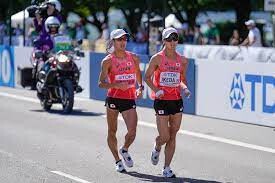
Kitaguchi finished third behind Kelsey-Lee Barber and Kara Winger in Oregon last year and goes into this year’s event as the women's world javelin leader thanks to the 67.04m national record she achieved in Silesia last month.
Other athletes on the team include national record-holders Shunsuke Izumiya in the 110m hurdles and Nozomi Tanaka in the 1500m and 5000m, plus Sumire Hata and Hiromichi Yoshida in the long jump.
After Budapest, Japan will host the next edition of the World Championships, in Tokyo in 2025.
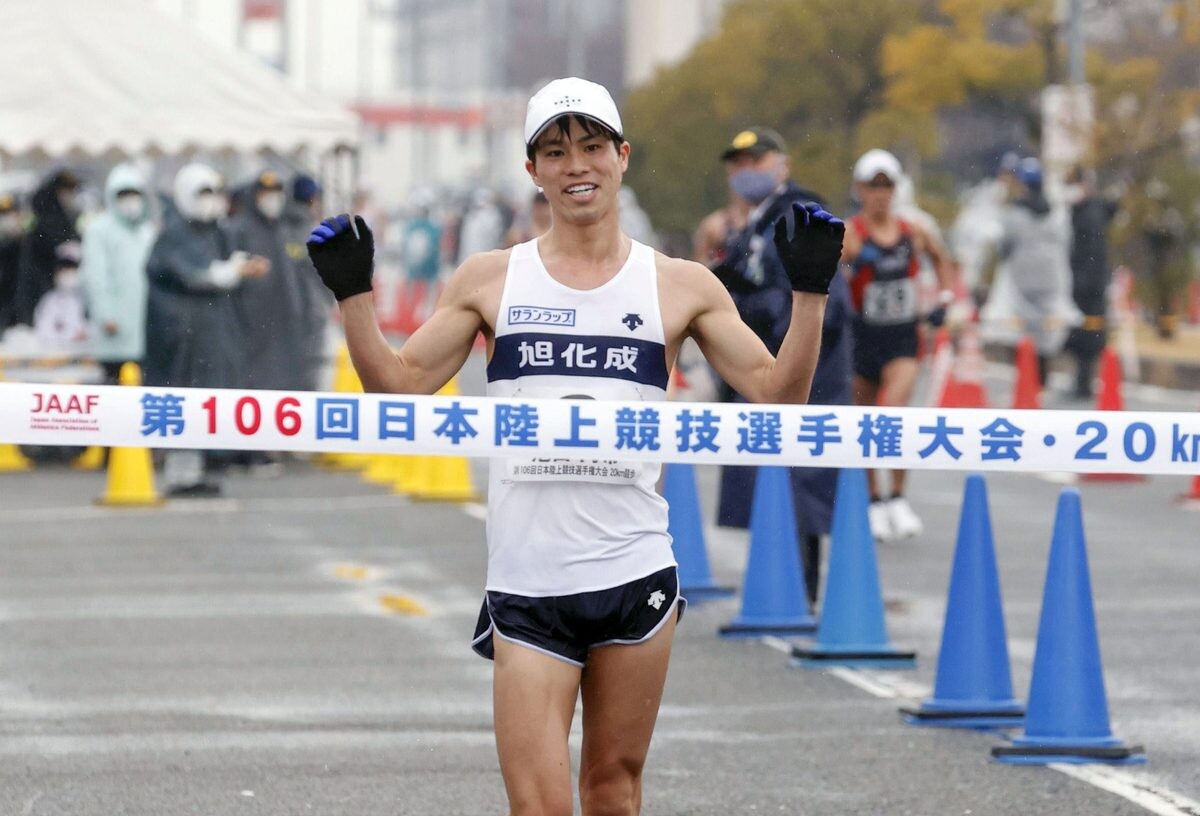
Japanese team for Budapest
WOMEN
100m: Arisu Kimishima
200m: Remi Tsuruta
1500m: Yume Goto, Nozomi Tanaka
5000m: Ririka Hironaka, Nozomi Tanaka, Yuma Yamamoto
10,000m: Rino Goshima, Ririka Hironaka
Marathon: Rika Kaseda, Mizuki Matsuda, Sayaka Sato
100m hurdles: Masumi Aoki, Yumi Tanaka, Asuka Terada
400m hurdles: Eri Utsunomiya, Ami Yamamoto
Long jump: Sumire Hata
Triple jump: Mariko Morimoto, Naoko Takashima
Discus: Maki Saito
Javelin: Haruka Kitaguchi, Marina Saito, Momone Ueda
20km race walk: Nanako Fujii, Ayane Yanai, Yukiko Umeno
35km race walk: Masumi Fuchise, Kumiko Okada, Serena Sonoda
MEN
100m: Ryuichiro Sakai, Abdul Hakim Sani Brown, Hiroki Yanagita
200m: Shota Iizuka, Koki Ueyama, Towa Uzawa
400m: Yuki Joseph Nakajima, Fuga Sato, Kentaro Sato
5000m: Hyuga Endo, Kazuya Shiojiri
10,000m: Ren Tazawa
Marathon: Kazuya Nishiyama, Kenya Sonota, Ichitaka Yamashita
3000m steeplechase: Ryoma Aoki, Ryuji Miura, Seiya Sunada
Decathlon: Yuma Maruyama
110m hurdles: Shunsuke Izumiya, Shunya Takayama, Taiga Yokochi
400m hurdles: Takayuki Kishimoto, Yusaku Kodama, Kazuki Kurokawa
High jump: Ryoichi Akamatsu, Naoto Hasegawa, Tomohiro Shinno
Pole vault: Tomoya Karasawa
Long jump: Yuki Hashioka, Shotaro Shiroyama, Hiromichi Yoshida
Triple jump: Hikaru Ikehata
Javelin: Roderick Genki Dean, Kenji Ogura, Yuta Sakiyama
20km race walk: Koki Ikeda, Yuta Koga, Eiki Takahashi, Toshikazu Yamanishi
35km race walk: Masatora Kawano, Satoshi Maruo, Tomohiro Noda
4x100m: Shota Iizuka, Yuki Koike, Soshi Mizukubo, Ryuichiro Sakai, Abdul Hakim Sani Brown, Hiroki Yanagita
4x400m: Kenki Imaizumi, Ryuki Iwasaki, Naohiro Jinushi, Yuki Joseph Nakajima, Fuga Sato, Kentaro Sato
by World Athletics
Login to leave a comment
World Athletics Championships Budapest 23
From August 19-27, 2023, Budapest will host the world's third largest sporting event, the World Athletics Championships. It is the largest sporting event in the history of Hungary, attended by athletes from more than 200 countries, whose news will reach more than one billion people. Athletics is the foundation of all sports. It represents strength, speed, dexterity and endurance, the...
more...Yuki Kawauchi snags second BMO Vancouver Marathon victory
Japan’s Yuki Kawauchi claimed his second BMO Vancouver Marathon title on Sunday, finishing in 2:17:05–just over two minutes slower than his course-record-setting time of 2:15:01 in the 2019 marathon, and good enough to secure the 36-year-old a decisive victory against Toronto’s David Mutai (20:20:05) and Mississauga’s Sergio Raez Villanueva (2:23:21). Vancouver was just one of a number of marathons in Canada and Europe on Sunday.
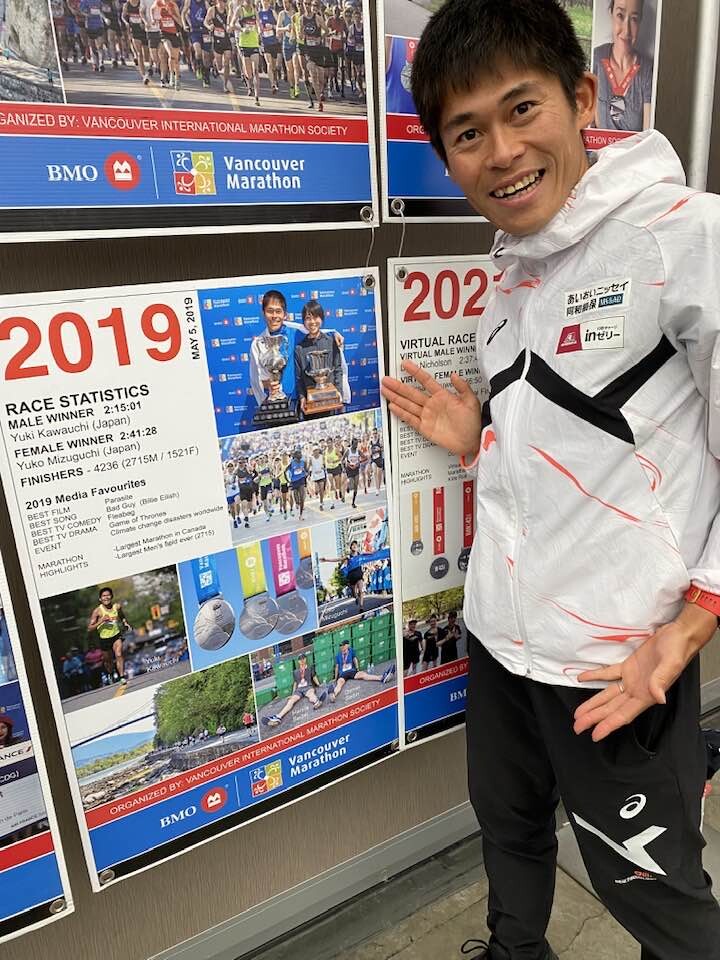
With his latest victory, Kawauchi adds to an impressive list of accomplishments as a marathoner. The 2018 Boston Marathon champion was recognized by the Guinness World Records in 2021 for becoming the first person to run 100 sub-2:20 marathons.
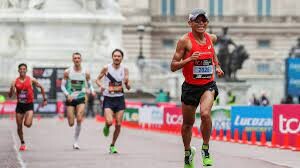
Vancouver’s own Dayna Pidhoresky won the women’s marathon in 2:34:27, ahead of fellow Canadian Rozlyn Boutin (2:48:09) and U.S. marathoner Callahan McKenzie (2:49:28). Highlights of Pidhoresky’s running resume include winning the Canadian Olympic Trials Marathon in 2019 and being a four-time winner of the Around the Bay 30K race in Hamilton, Ont.
by Paul Baswick
Login to leave a comment
BMO Vancouver Marathon
The BMO Vancouver Marathon is one of Vancouver’s most iconic marathon events. The event features a full marathon, marathon relay, half marathon, 8k run, and streets lined with thousands of spectators. Runners can expect to experience a little bit of everything that Vancouver has to offer as they run a straight course that starts at Queen Elizabeth Park, and finishes...
more...Kenya’s Alexander Mutiso and Workenesh Edesa of Ethiopia won the 2023 Prague Marathon
Kenya’s Alexander Mutiso Munyao and Workenesh Edesa of Ethiopia won the 2023 Prague Marathon.
Mutiso clocked a time of 2:05:09 to take the men’s title and break the course record, finishing comfortably ahead of Ethiopia’s Sisay Lemma, who finished second with a time of 2:06:26. Philemon Rono of Kenya came in third place, recording the third-fastest time of his career at 2:06:51. Mutiso’s personal best of 2:03:29 was achieved in Valencia in December 2022.
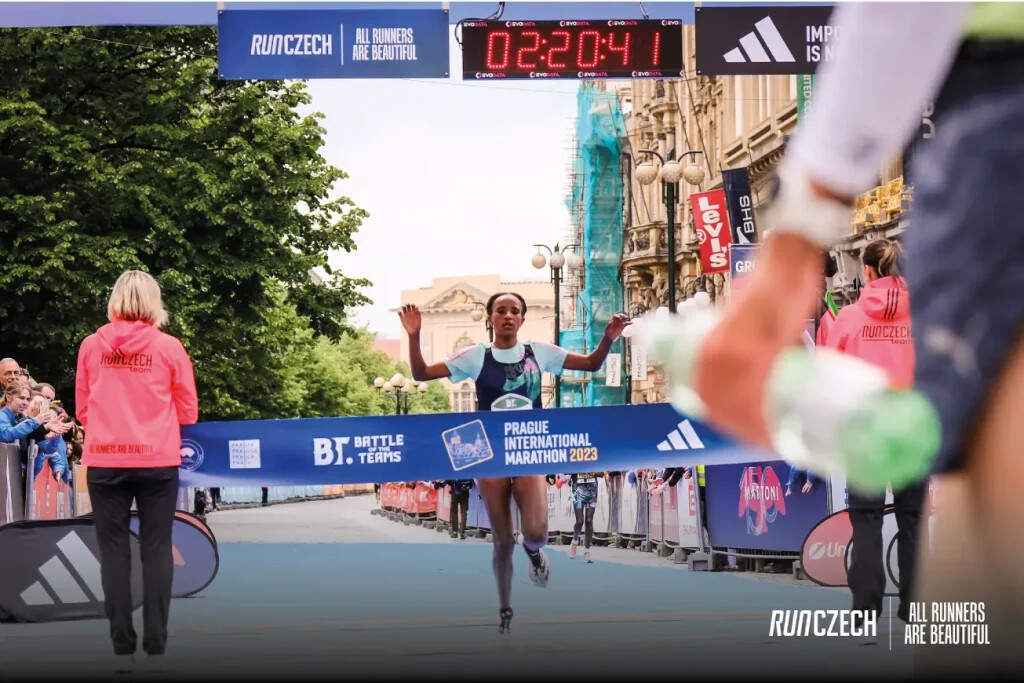
In the women’s race at the 27th Prague International Marathon, Edesa secured the top podium spot by running a time of 2:20:42. Three Kenyan runners finished in the top four, with Margaret Wangari Muriuki finishing second with a personal best time of 2:23:52.
Viola Jelagat Kibiwot also recorded a personal best of 2:24:54 to finish third. Pamela Rotich of Kenya completed the top four with a time of 2:27:35, while Mélody Julien of France finished fifth with a time of 2:29:07.
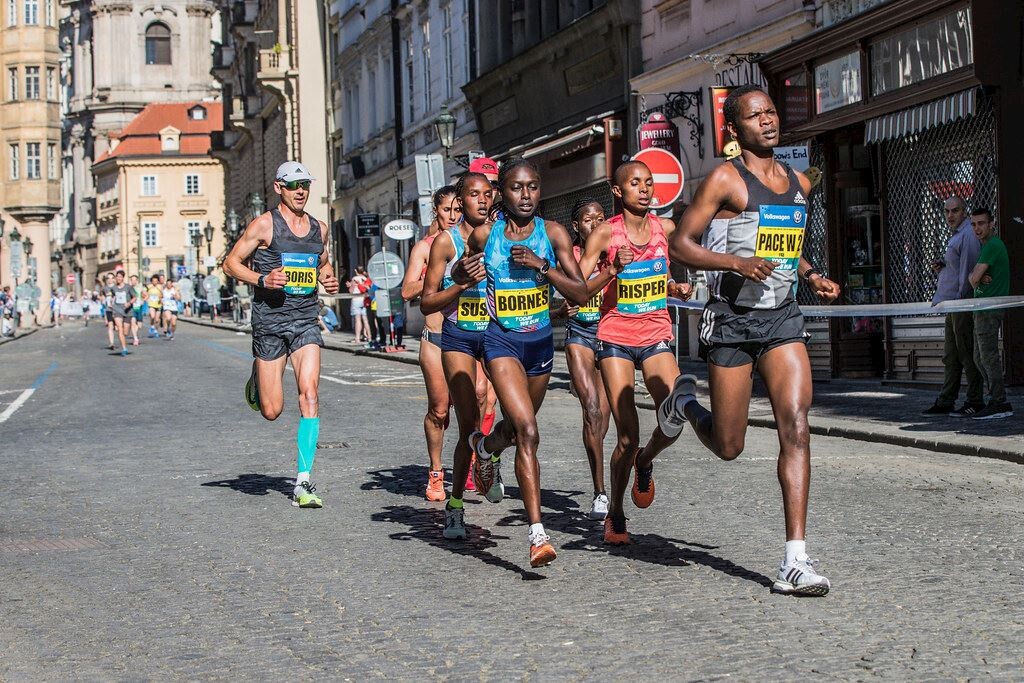
2023 Prague Marathon Results
Men’s Marathon Final results:
Alexander Mutiso Munyao (Kenya) – 2:05:09
Sisay Lemma (Ethiopia) – 2:06:26
Philemon Rono (Kenya) – 2:06:51
Justus Kangogo (Kenya) – 2:07:40
Takayuki Iida (Japan) – 2:09:34.
Women’s Marathon Final results:
Workenesh Edesa (Ethiopia) – 2:20:42
Margaret Wangari Muriuki (Kenya) – 2:23:52
Viola Jelagat Kibiwot (Kenya) – 2:24:54
Pamela Rotich (Kenya) – 2:27:35
Mélody Julien (France) – 2:29:07.
by Glen Andrews
Login to leave a comment
Prague Marathon
The Volkswagen Prague Marathon, established in 1995, has evolved into a premier event on the international running calendar, renowned for its scenic course through one of Europe's most picturesque cities. The marathon's route meanders through Prague's historic streets, offering runners views of iconic landmarks such as the Charles Bridge and Old Town Square. The predominantly flat terrain provides an excellent...
more...Defending champion Kipruto to take on Bekele, Kamworor, Farah, Tola and Kiptum at London Marathon
The 2023 TCS London Marathon elite men’s field will be a landmark occasion when, for the first time in history, two men who have run inside 2:02 will be together on the same start line at the World Athletics Platinum Label road race on 23 April.
Ethiopia’s Kenenisa Bekele, the second-fastest man ever with a PB of 2:01:41, and Kenya’s Kelvin Kiptum, the winner of the 2022 Valencia Marathon and the fastest marathon debutant in history (2:01:53) have both been confirmed for the race.
With Ethiopian duo Birhanu Legese (2:02:48) and Mosinet Geremew (2:02:55) also in the field, it means this year’s London Marathon will have four of the five fastest men in marathon history on the start line.
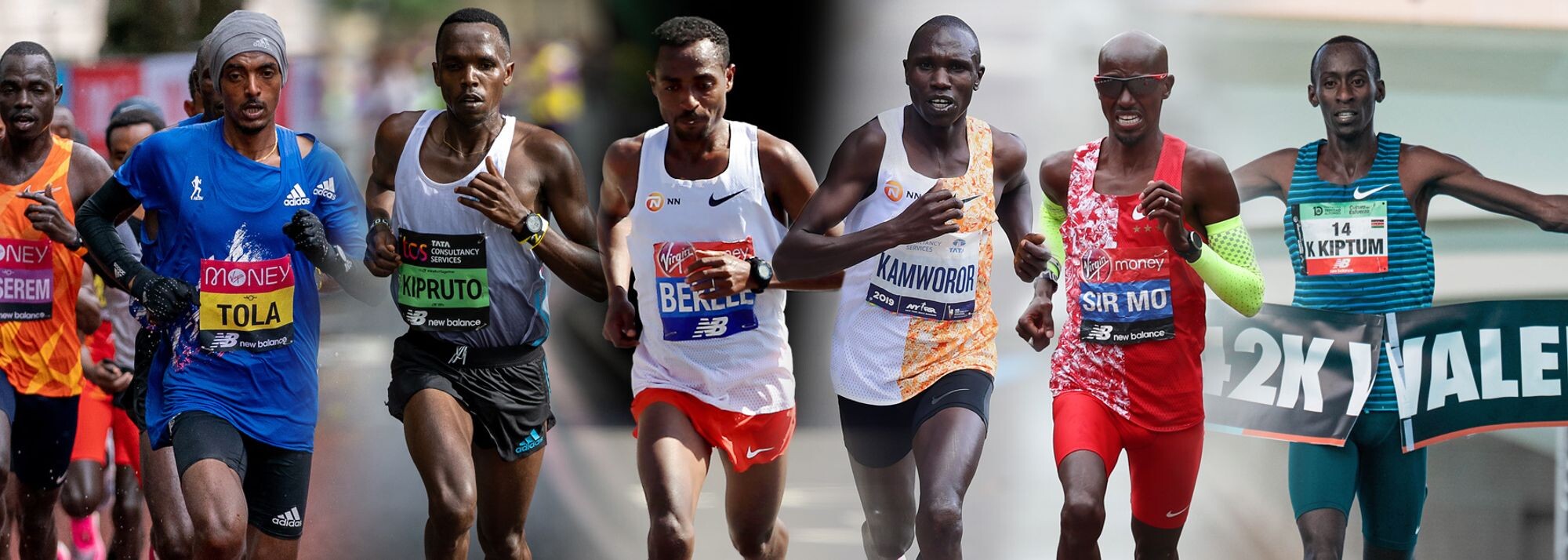
In addition, the defending champion Amos Kipruto of Kenya and world champion Tamirat Tola of Ethiopia will also return to London, along with multiple world and Olympic champion Mo Farah and two-time New York Marathon winner Geoffrey Kamworor.
Kipruto’s win at last year’s London Marathon was the biggest victory of his career and his first Abbott World Marathon Major triumph. “Winning last year’s TCS London Marathon was an incredible experience for me,” said the 30-year-old, who was second at last year’s Tokyo Marathon behind world record-holder Eliud Kipchoge and third in the 2019 World Championships. “I am now preparing hard for this year’s race and I can’t wait to return to London as the champion.
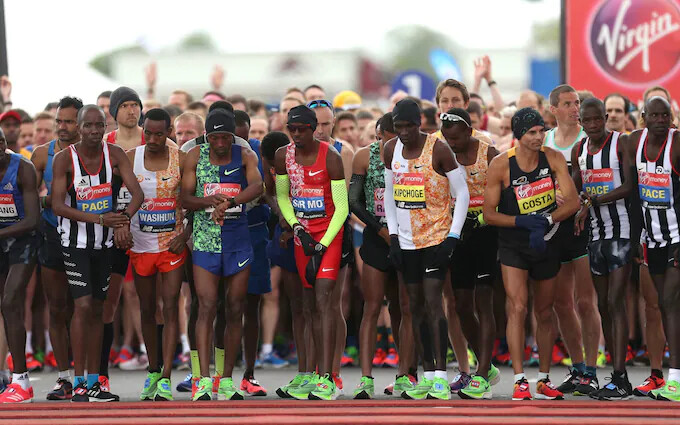
“London always has a really strong field and this year is the same so I know I will face a battle to defend my title, but I’m confident and looking forward to it.”
Tola, who won the world title in Oregon last year, will be one of several men aiming to prevent Kipruto from winning back-to-back titles. Tola, 31, is in a fine run of form over the 26.2-mile distance, winning the 2021 Amsterdam Marathon and finishing third at the 2022 Tokyo Marathon (behind Kipchoge and Kipruto) before winning his world title last summer.
Also in the field is last year’s runner-up Leul Gebresilase of Ethiopia, and the second-placed finisher in London in both 2020 and 2021 Vincent Kipchumba.
The new holder of the Oceanian marathon record Brett Robinson, who ran 2:07:31 in Fukuoka last year, returns to London after finishing eighth in 2022. Japan’s 2018 Boston Marathon champion Yuki Kawauchi is making his London Marathon debut in what will be his 114th marathon. By finishing in London, Kawauchi will be eligible for his Abbott World Marathon Majors six star medal for finishing all six major marathons: London, Tokyo, Boston, Berlin, Chicago and New York.
The elite women’s field will be announced tomorrow.
Elite men’s field
Kenenisa Bekele (ETH) 2:01:41
Kelvin Kiptum (KEN) 2:01:53
Birhanu Legese (ETH) 2:02:48
Mosinet Geremew (ETH) 2:02:55
Amos Kipruto (KEN) 2:03:13
Tamirat Tola (ETH) 2:03:39
Kinde Atanaw (ETH) 2:03:51
Leul Gebresilase (ETH) 2:04:02
Vincent Kipchumba (KEN) 2:04:28
Seifu Tura (ETH) 2:04:29
Mo Farah (GBR) 2:05:11
Geoffrey Kamworor (KEN) 2:05:23
Yuki Kawauchi (JPN) 2:07:27
Brett Robinson (AUS) 2:07:31
Dewi Griffiths (GBR) 2:09:49
Rory Linkletter (CAN) 2:10:24
Chris Thompson (GBR) 2:10:52
Tom Gröschel (GER) 2:11:03
Ben Connor (GBR) 2:11:20
Joshua Griffiths (GBR) 2:11:28
Frank Lara (USA) 2:11:32
Luke Caldwell (GBR) 2:11:33
Weynay Ghebresilasie (GBR) 2:11:57
Emile Cairess (GBR) debut.
by World Athletics
Login to leave a comment
TCS London Marathon
The London Marathon was first run on March 29, 1981 and has been held in the spring of every year since 2010. It is sponsored by Virgin Money and was founded by the former Olympic champion and journalist Chris Brasher and Welsh athlete John Disley. It is organized by Hugh Brasher (son of Chris) as Race Director and Nick Bitel...
more...Kenenisa Bekele leads list of all-stars in London
Four of the five fastest marathon men in history go head-to-head in mouth-watering race in London on April 23.
The TCS London Marathon has pulled out all the stops to put together one of the greatest men’s line-ups of all time. When it comes to the best marathon runners on the planet, only Eliud Kipchoge, is missing.
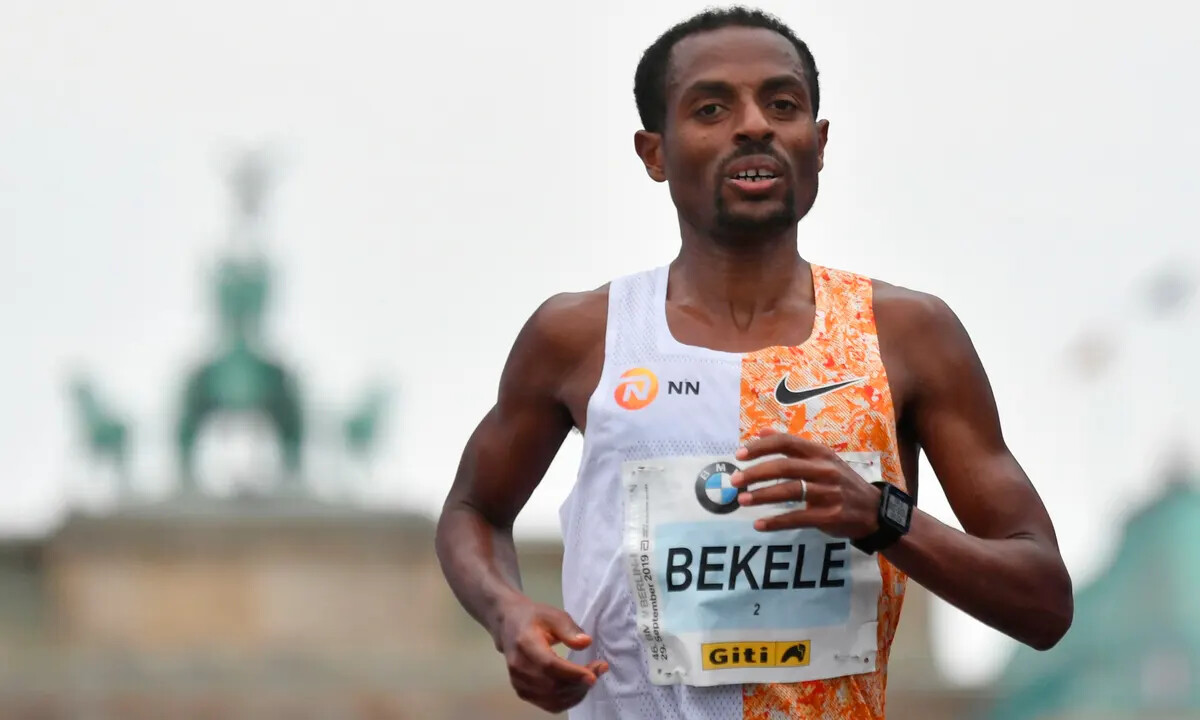
Kipchoge is racing in Boston instead but he would have his work cut out if he had chosen to race in London as the field includes:
» Kenenisa Bekele – No.2 on the all-time rankings with 2:01:41, former world 5000m and 10,000m record-holder and multiple winner of Olympic and world titles on the track and country.
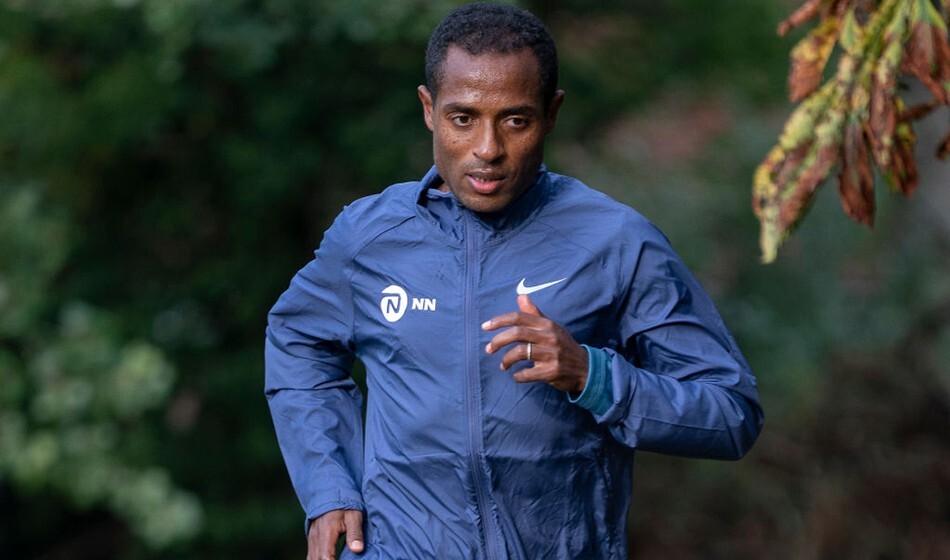
» Kelvin Kiptum – the fastest debutant in history with a best of 2:01:53 from Valencia in December.
» Amos Kipruto – defending London Marathon winner from last October.
» Tamirat Tola – reigning world champion from Eugene last summer.
» Mo Farah – British record-holder and 10-time global track champion.
In addition to this the field boasts Ethiopians Birhanu Legese and Mosinet Geremew, who have both run 2:02 marathons, plus last year’s London runner-up Leul Gebresilase, the 2020 and 2021 runner-up Vincent Kipchumba and two-time New York City Marathon winner Geoffrey Kamworor.
Kipruto, the Kenyan who won last October, said: “I am now preparing hard for this year’s race and I can’t wait to return to London as the champion.
“London always has a really strong field and this year is the same so I know I will face a battle to defend my title, but I’m confident and looking forward to it.”
Brett Robinson, the Australian who ran an Oceania record of 2:07:31 in Fukuoka late last year, will hope to improve on his eighth place from London last October. Sean Tobin, who earned headlines recently for his Antarctic marathon exploits, makes his road marathon debut in London.
Yuki Kawauchi, the Japanese runner who prevailed in terrible weather to win the 2018 Boston Marathon, is also in the line-up.
TCS London Marathon – elite men’s field
Amos Kipruto (KEN, PB 2:03:13)
Kenenisa Bekele (ETH, 2:01:41)
Kelvin Kiptum (KEN, 2:01:53)
Birhanu Legese (ETH, 2:02:48)
Mosinet Geremew (ETH, 2:02:55)
Tamirat Tola (ETH, 2:03:39)
Kinde Atanaw (ETH, 2:03:51)
Leul Gebresilase (ETH, 2:04:02)
Vincent Kipchumba (KEN, 2:04:28)
Seifu Tura (ETH, 2:04:29)
Sir Mo Farah (GBR, 2:05:11)
Geoffrey Kamworor (KEN, 2:05:23)
Yuki Kawauchi (JPN, 2:07:27)
Brett Robinson (AUS, 2:07:31)
Dewi Griffiths (GBR, 2:09:49)
Rory Linkletter (CAN, 2:10:24)
Chris Thompson (GBR, 2:10:52)
Tom Gröschel (GER, 2:11:03)
Ben Connor (GBR, 2:11:20)
Joshua Griffiths (GBR, 2:11:28)
Frank Lara (USA, 2:11:32)
Luke Caldwell (GBR, 2:11:33)
Weynay Ghebresilasie (GBR, 2:11:57)
Phil Sesemann (GBR, 2:12:10)
Charlie Hulson (GBR, 2:13:34)
Andrew Heyes (GBR, 2:13:52)
Adam Craig (GBR, 2:13:58)
Alex Monroe (USA, 2:14:15)
Ross Braden (GBR, 2:14:32)
Nick Earl (GBR, 2:14:38)
Nigel Martin (GBR, 2:15:19)
Ronnie Richmond (GBR, 2:16:59)
Nicholas Bowker (GBR, 2:17:35)
Alex Milne (GBR, 2:17:40)
Josh Lunn (GBR, 2:17:59)
Fraser Stewart (GBR, 2:18:40)
Matthew Dickinson (GBR, 2:19:23)
Emile Cairess (GBR, Debut)
Sean Tobin (IRL, Debut)
Ryan Forsyth (IRL, Debut)
The men’s and women’s wheelchair fields will be announced on Wednesday afternoon (Feb 1) while the elite women’s field will be announced on Thursday (Feb 2).
by Jason Henderson
Login to leave a comment
TCS London Marathon
The London Marathon was first run on March 29, 1981 and has been held in the spring of every year since 2010. It is sponsored by Virgin Money and was founded by the former Olympic champion and journalist Chris Brasher and Welsh athlete John Disley. It is organized by Hugh Brasher (son of Chris) as Race Director and Nick Bitel...
more...Three global title winners ready to clash in Amsterdam
The TCS Amsterdam Marathon on Sunday (16) will bring together three winners of global titles. Almaz Ayana and Genzebe Dibaba will be making their marathon debuts at the World Athletics Elite Platinum Label road race, while 2017 world champion Rose Chelimo is also in the field.
The incredibly deep men’s field, meanwhile, includes nine men with PBs faster than 2:06, led by 2016 Boston Marathon champion Lemi Berhanu.
Ayana and Dibaba, who won the world 5000m and 1500m titles respectively back in 2015, have battled injuries in recent years but have still managed to make a promising transition to the roads. Ayana, the 2016 Olympic 10,000m champion, clocked 1:07:12 on her half marathon debut when winning in New Delhi in 2017. And since returning this year after a three-year break, she has placed fifth in Madrid in 1:08:22 and third at the Great North Run in 1:07:10.
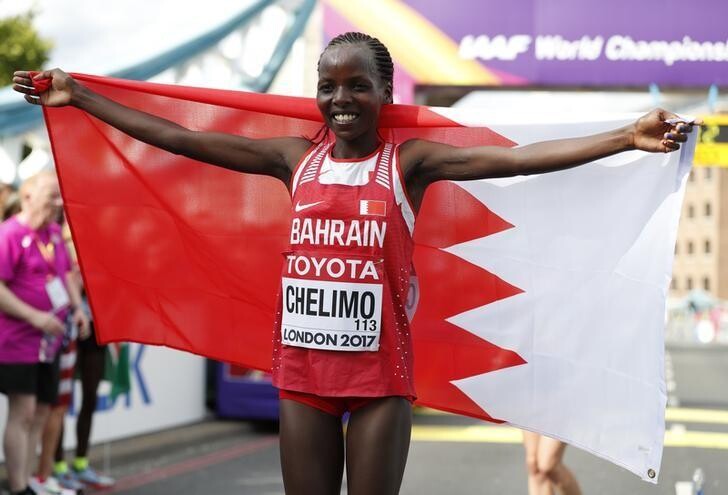
Dibaba, meanwhile, hasn’t raced on the roads since 2020, but her performances then were impressive. The world 1500m record-holder won the Valencia Half Marathon on her debut at the distance in 1:05:18, then three weeks later won over 5km in Barcelona.
The Ethiopian duo have never raced one another on the roads, but they have clashed 12 times on the track. Dibaba has the upper hand, 8-4, but Ayana won their more significant duels, including the 2015 World Championships, 2015 Diamond League Final, and 2014 African Championships.
The marathon is another beast entirely, though, and experience can count for a lot. Chelimo has plenty of experience on the roads, having won 2017 world gold and 2019 world silver, but the 33-year-old from Bahrain has always been more of a championship performer than a big city marathon runner. Her most recent marathon was in Rotterdam earlier this year, where she placed 19th in 2:44:22.
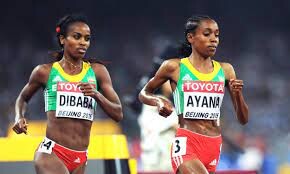
Celestine Chepchirchir is a late addition to the field, following her withdrawal from last week’s Chicago Marathon. The Kenyan set a PB of 2:20:10 in Seoul earlier this year, making her the fastest entrant for this weekend’s race.
Ayana and Dibaba aren’t the only notable marathon debutants lining up in Amsterdam. Their compatriot Tsehay Gemechu, the fourth-place finisher over 5000m at the 2019 World Championships, has a strong record at the half marathon and heads to the Dutch city in good form. A two-time winner in New Delhi and Lisbon, Gemechu recently reduced her half marathon PB to 1:05:01 when finishing second to Yalemzerf Yehualaw in Antrim.
Fellow Ethiopian Azmera Gebru will be returning to Amsterdam, following her third-place finishes there in 2018 and 2019. Compatriot Gebeyanesh Ayele also returns, following her fourth-place finish last year, while Sintayehu Tilahun could be one to watch, following her recent PBs over the half marathon (1:07:41) and marathon (2:22:19).
After nine successive men’s victories in Amsterdam, Kenya’s winning streak came to an end last year. But Cybrian Kotut hopes to kick-start the trend on Sunday.
The 30-year-old has won his past three marathons, his most recent victory coming in April in Hamburg, where he set a lifetime best of 2:04:47. The Kenyan challenge is strengthened by the likes of Titus Kipruto, who won this year’s Milan Marathon in a PB of 2:05:05, Norbert Kigen, runner-up in Amsterdam in 2017 and winner in Prague earlier this year, and Laban Korir, who will be making his sixth appearance in Amsterdam.
But 2016 Boston Marathon champion Lemi Berhanu leads a strong Ethiopian contingent. Berhanu’s PB of 2:04:33 dates back to 2016, but his runner-up place in Boston last year shows he is still competitive.
He will be joined on the startline by compatriots Tsegaye Getachew, winner in Riyadh earlier this year and owner of a 2:05:11 PB, Adeladlew Mamo, who ran 2:05:12 on his marathon debut earlier this year, and 2:05:52 performer Adugna Takele.
Other contenders in the field include Eritrea’s Afewerki Berhane, Japan’s Shuho Dairokuno, and marathon debutant Victor Chumo.
Leading entries
WomenCelestine Chepchirchir (KEN) 2:20:10Azmera Gebru (ETH) 2:20:48Gebeyanesh Ayele (ETH) 2:21:22Sintayehu Tilahun (ETH) 2:22:19Rose Chelimo (BRN) 2:24:14Fikrte Wereta (ETH) 2:26:15Almaz Ayana (ETH) debutGenzebe Dibaba (ETH) debutTsehay Gemechu (ETH) debut
MenLemi Berhanu (ETH) 2:04:33Cybrian Kotut (KEN) 2:04:47Titus Kipruto (KEN) 2:05:05Tsegaye Getachew (ETH) 2:05:11Adeladlew Mamo (ETH) 2:05:12Norbert Kigen (KEN) 2:05:13Afewerki Berhane (ERI) 2:05:22Adugna Takele (ETH) 2:05:52Laban Korir (KEN) 2:05:54Masreshe Bere (ETH) 2:06:44Abraham Kiptoo (KEN) 2:06:59Shuho Dairokuno (JPN) 2:07:12Bazezew Asmare (ETH) 2:07:13Josphat Boit (KEN) 2:07:20Godadaw Belachew (ISR) 2:07:54Yuki Sato (JPN) 2:08:17Jake Robertson (NZL) 2:08:26Akira Tomiyasu (JPN) 2:08:55Deribe Tefera (ETH) 2:09:15Bekele Muluneh (ETH) 2:09:51Khalid Choukoud (NED) 2:09:55Victor Chumo (KEN) debutHuseydin Mohamed (ETH) debut
by World Athletics
Login to leave a comment
TCS Amsterdam Marathon
Do you want to enjoy Amsterdam in October and all that the city has to offer you? Want to feel a real athlete and start and finish in the historic Olympic stadium? Or run across the widely discussed passage under the beautiful National Museum? Then come to Amsterdam for the annual TCS Amsterdam Marathon in October! The TCS Amsterdam Marathon...
more...Eliud Kipchoge ready for fast times in Berlin
Eliud Kipchoge is ready for a very fast race in the BMW BERLIN-MARATHON on Sunday which may well lead him to break the world record here for the second time.
The double Olympic champion, who set the current world record of 2:01:39 in Berlin four years ago and also broke the two-hour barrier when he ran 1:59:40.2 in a race in Vienna in 2019 which did not conform to regulations, will start as the clear favourite.
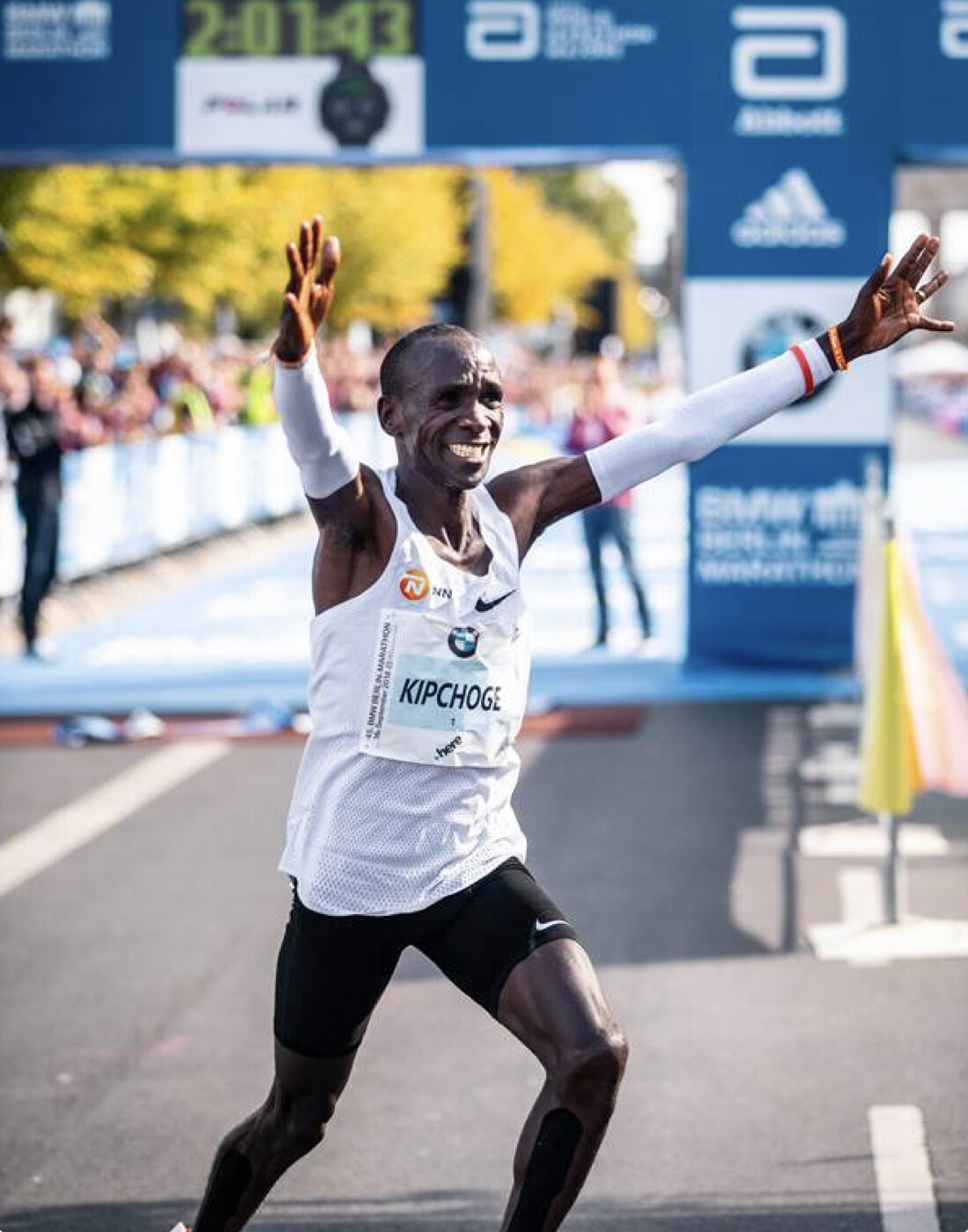
Organisers of the BMW BERLIN-MARATHON have registered 45,527 runners from 157 nations for the 48th edition of the event. Germany’s most spectacular road race is part of the Abbott World Marathon Majors (AWMM) and is also a Platinum Label Road Race of the international athletics federation, World Athletics.
The 37-year-old Kenyan held back from making any hard and fast promises when he spoke two days before the BMW BERLIN-MARATHON. “I’d like to thank the organisers for letting me race again in Berlin after four years and expect a very good race. I’ve trained well as usual – every training day is a challenge.”In response to the question at the press conference, what would be “a very good race” for him, Eliud Kipchoge answered: “A very good race is a good race.”
That got the audience on his side before he added: “I want to inspire people and if a course record comes out of this at the end, I will appreciate it,” added this outstanding athlete. It should be noted that the course record is, of course, the world record, but Eliud Kipchoge was careful not to utter these words.
The world record holder, whose career so far has brought him victory in all but two of his 18 marathons, could well achieve his fourth win in Berlin after taking the title in 2015, 2017 and 2018. That would bring him equal with the Ethiopian legend Haile Gebrselassie as the two men with most wins in Berlin. If the world athlete of the year for 2018 and 2019 is in world record form, Eliud Kipchoge should prove unbeatable on Sunday.
On the other hand, the elite field has plenty of strength in depth. Heading the list of challengers is last year’s champion Guye Adola from Ethiopia, winning the title in unseasonably warm conditions in 2:05:45 and beating the Ethiopian superstar Kenenisa Bekele into the bargain.
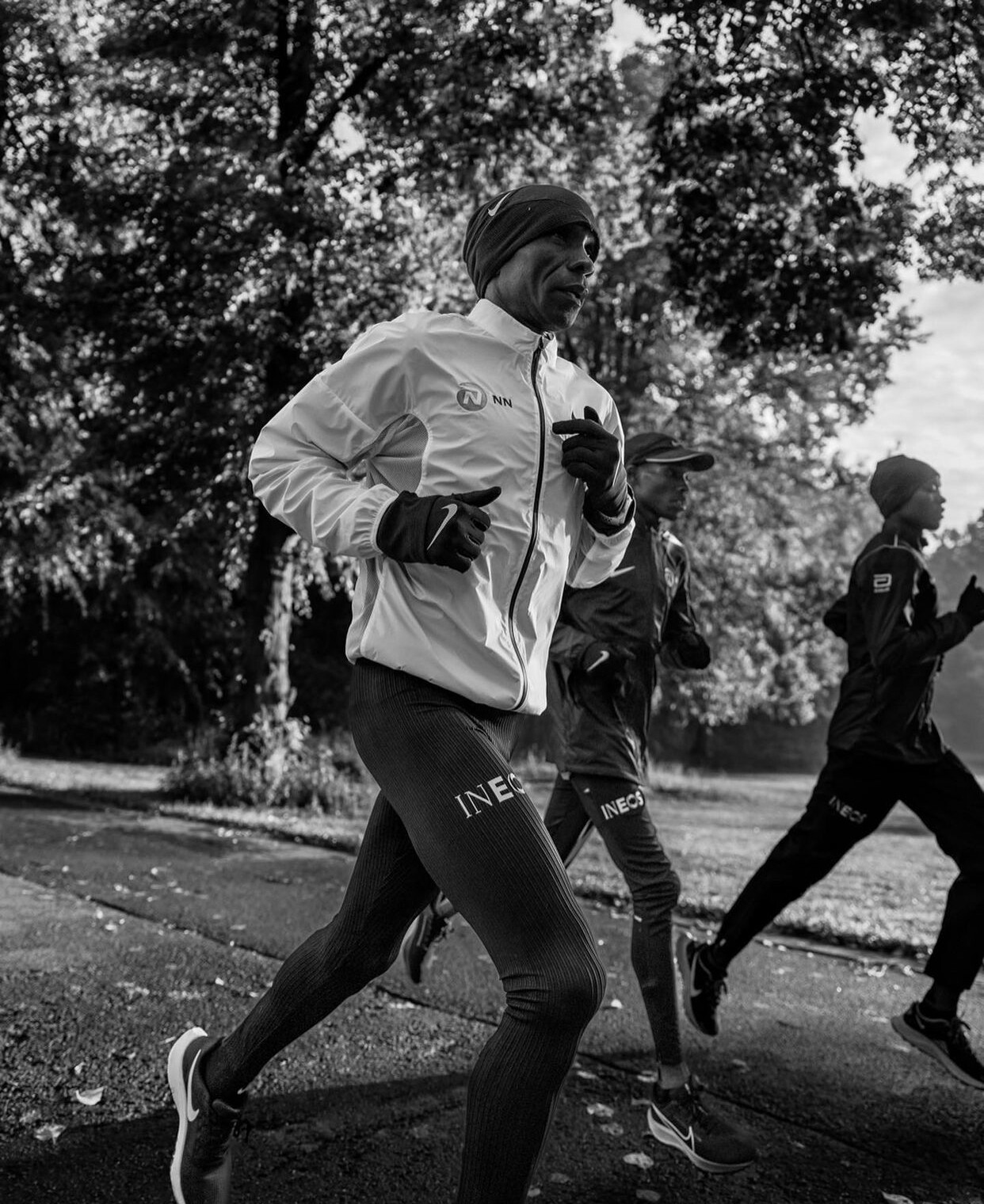
It was in Berlin in 2017 that Guye Adola ran what remains his personal best of 2:03:46 and on his debut at the distance. Only Eliud Kipchoge finished ahead of him though from time to time Adola took the lead. “I have prepared well and look forward to the race,” said the 31-year-old, who described Kipchoge as “a hero.”
The BMW BERLIN-MARATHON has greater strength in depth among the men’s elite field than ever before. As many as 18 runners have personal bests under 2:08. Among them is Ghirmay Ghebreslassie who caused a surprise when winning the world title in 2015 and also won in New York the following year. The Eritrean athlete has a best of 2:05:34 which he set in finishing third in Seville in February.
“It’s a big challenge to run in such a field and against Eliud Kipchoge. I’ll do my best and my aim is a place on the podium,” said Ghirmay Ghebreslassie.
An unusually large number of Japanese runners will be among the elite starters, the reason being that they are trying to qualify for the 2024 Olympics. There will be 13 of them with personal bests of under 2:10 in the BMW BERLIN-MARATHON. The fastest of them is Ryu Takaku with a best of 2:06:45.
The leading German in the field is Johannes Motschmann, who was a member of the German team at the European Championships which won the silver medal in Munich. Despite a short recovery time of six weeks since that competition, the 28-year-old wants to improve his personal best of 2:12:18 in the direction of 2:10.
The race in Berlin is the biggest of my career so far. Since I’m a hometown boy here, I’d even rate it above the European Championship marathon,” said Motschmann, who runs for the Marathon Team Berlin.
The Austrian record holder, Peter Herzog, will also be aiming to take advantage of conditions at the BMW BERLIN-MARATHON and run faster than ever before. His current best is 2:10:06 and his ambition is to become the first Austrian.
While a double world athlete of the Year in Eliud Kipchoge will take centre stage, a former star of world sport will be running some way behind him: the Brazilian football legend Kaká, a member of the team which won the World Cup in 2002, and also a Champions League winner and Footballer of the Year.
“I definitely wanted to run a major marathon and asked friends who recommended Berlin to me. That’s why I’m here. On Sunday I want to run 3:40. The marathon is something very special in that we, as mass runners, run together with the elite. I’m very excited,” admitted Kaká at the press conference.
Elite runners with personal bests
Eliud Kipchoge KEN 2:01:39
Guye Adola ETH 2:03:46
Ghirmay Ghebreslassie ERI 2:05:34
Dejene Debela ETH 2:05:46
Mark Korir KEN 2:05:49
Ashenafi Moges ETH 2:06:12
Tadu Abate ETH 2:06:13
Bethwel Yegon KEN 2:06:14
Awet HabteERI2:06:25
Ryu TakakuJPN2:06:45
Limenih Getachew ETH2:06:47
Hiroto InoueJPN2:06:47
Zablon Chumba KEN 2:07:18
Kenya Sonota JPN 2:07:23
Kento Kikutani JPN 2:07:26
Kazuki Muramoto JPN 2:07:36
Tadashi Isshiki JPN2:07:39
Atsumi Ashiwa JPN 2:07:54
Daisuke DoiJPN2:08:13
Rintaro TakedaJPN2:08:48
Yuki Matsumura JPN 2:09:01
Peter Herzog AUT 2:10:06
Johannes Motschmann GER 2:12:18
Third photo: Kipchoge's first run in Berlin
Login to leave a comment
BMW Berlin Marathon
The story of the BERLIN-MARATHON is a story of the development of road running. When the first BERLIN-MARATHON was started on 13th October 1974 on a minor road next to the stadium of the organisers‘ club SC Charlottenburg Berlin 286 athletes had entered. The first winners were runners from Berlin: Günter Hallas (2:44:53), who still runs the BERLIN-MARATHON today, and...
more...Get Ready to Run with Marathon Legends
Run with Abbott World Marathon Major Legends!
The AbbottWMM Global Run Club today launched Legends Week – a new free virtual Challenge taking place from August 15-19.
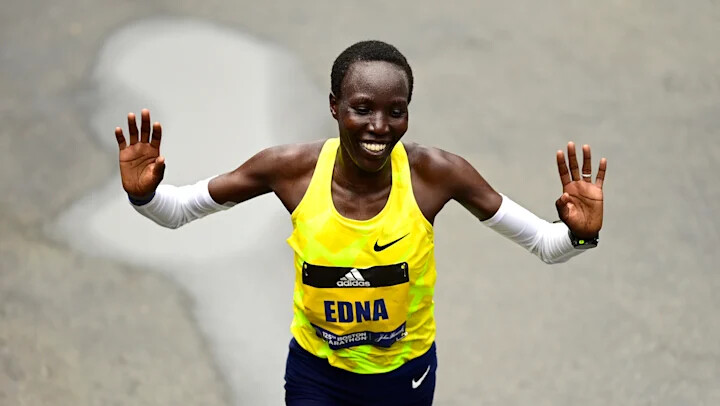
Runners must complete one challenge a day, for five days, to earn their Legends Week virtual badge and enter a prize draw for a special signed gift from five incredible athletes.
Each daily workout has been chosen by one of the legends to offer a mix of distances and training styles for everyone to enjoy.Edna Kiplagat, the Kenyan superstar who is a former World Champion, three-time AbbottWMM Series Champion and a Six Star finisher. She loves to add some speed and repetitions into her weekly routine and kicks things off with 4 x 1-mile repeats.Deena Kastor, a former American record holder and Olympic Bronze medalist for the marathon but also a 5km champion too! She set the 5km world record on the road at Carlsbad in 2002 (14:54) and she still enjoys racing them today.
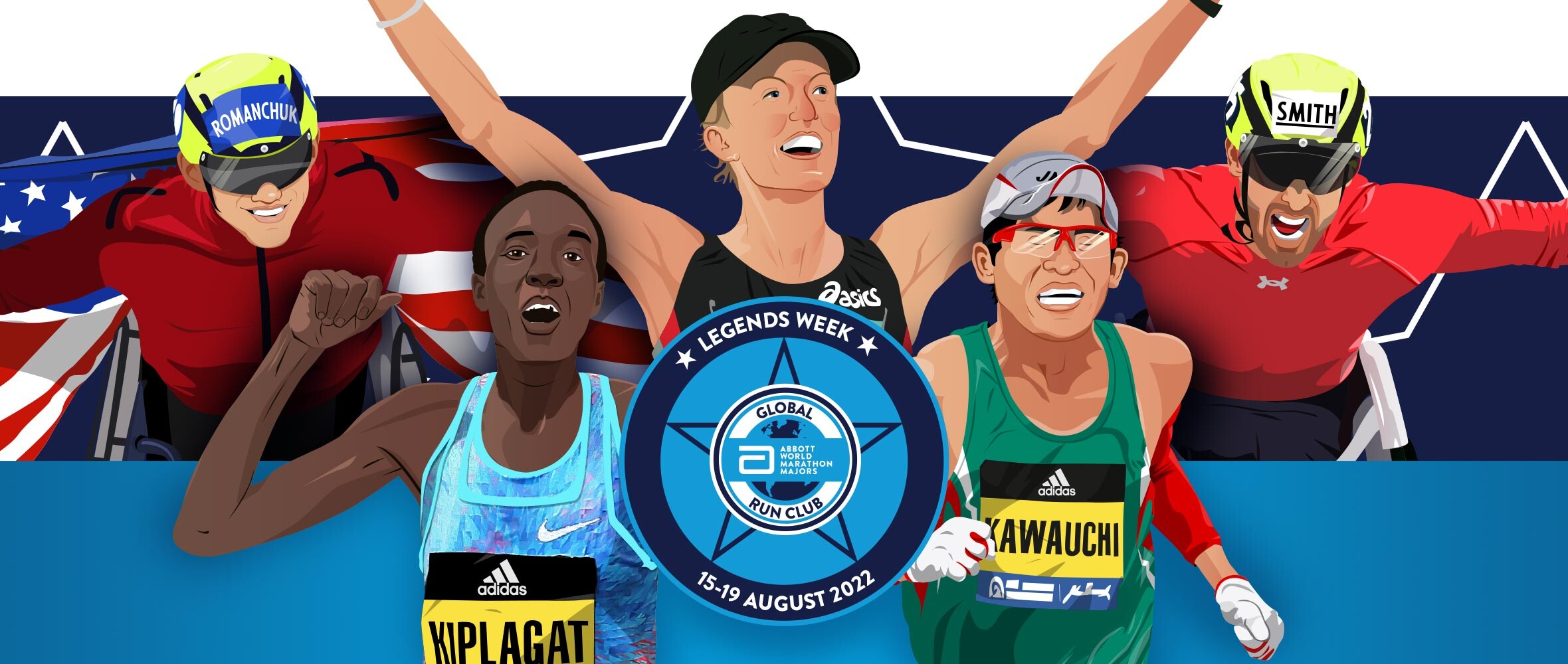
Multiple Major winner Daniel Romanchuk is a master of many distances. Representing the United States, he claimed the gold medal and a new World Record at the Tokyo Paralympic Games in the T54 400m in 45:72, coming from behind to win by 0.1 second! His workout is 4 x 400m on the track or road.
British wheelchair racer Johnboy Smith the newly-minted 2022 Commonwealth Games Marathon champion, is also a Six Star finisher! Smith, who took second place in the 2017 New York City Marathon, completed his Six Star journey in Tokyo earlier this year. His challenge is a six-mile run to celebrate this success.
Japanese marathon legend Yuki Kawauchi who ran his final mile of that grueling 2018 Boston Marathon in 5:12! He survived rain, wind, and hail to take the finisher tape on Boylston Street for the Boston Marathon victory. We are closing the week with a 1-mile challenge to celebrate and appreciate that amazing feat.
This is a fun and free challenge to motivate runners before we move into a busy fall calendar with four Abbott World Marathon Majors in close succession. A chance to mix things up, test your limits and enjoy a break from the norm!
Participants can walk or run your way through these workouts:
Monday 15 Aug: 4 x 1-mile with Edna Kiplagat
Tuesday 16 Aug: 5km with Deena Kastor
Wednesday 17 Aug: 4 x 400m with Daniel Romanchuk
Thursday 18 Aug: 6 miles with Johnboy Smith
Friday 19 Aug: 1-mile with Yuki Kawauchi
Login to leave a comment
Here's How How Evans Chebet of Kenya Won the 2022 Boston Marathon
He led a Kenyan podium sweep in the deepest Boston men’s pro field ever.
Thanks to covering the stretch between 35 and 40 kilometers in an astounding 13:55, Evans Chebet of Kenya won the 2022 Boston Marathon in 2:06:51.
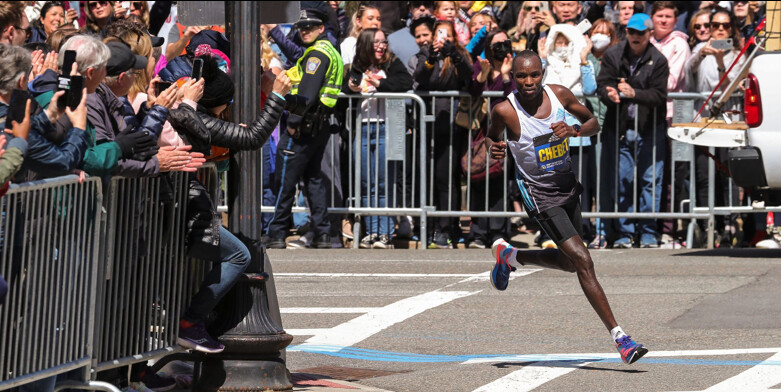
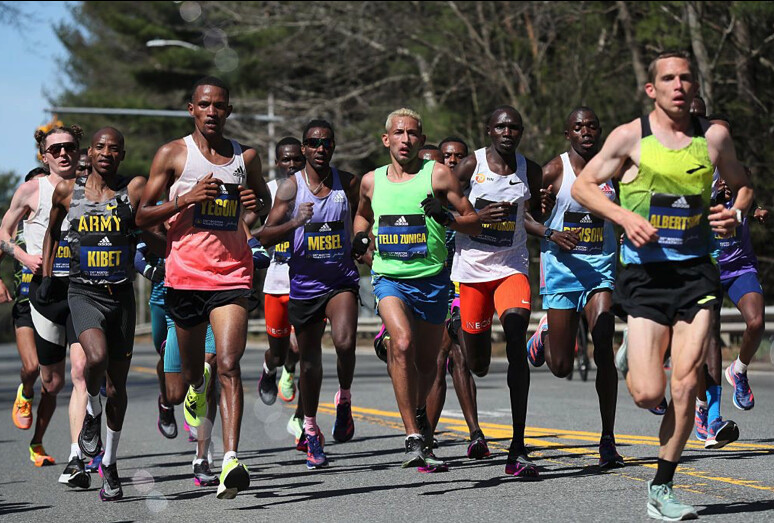
Lawrence Cherono, the 2019 winner, and Benson Kipruto, the 2021 champion, made it a Kenyan podium sweep. Cherono placed second in 2:07:21. Kipruto took third in 2:07:27.
Scott Fauble was the top American, placing seventh in 2:08:52. Fauble was also the top American in 2019, when he also finished seventh. Elkanah Kibet, ninth in 2:09:07, and CJ Albertson, 13th in 2:10:23, were the second and third U.S. finishers. All three set personal bests.
Here’s a full breakdown of the 2022 Boston Marathon men’s race, from how the race was won to the biggest surprise to the $$$.
The Winner: Evans Chebet
Chebet, 33, has been near the top of world marathoning for the past few years. Only one man in the field has a better personal best than his 2:03:00, and before today he had placed first or second in 10 marathons. But his Boston win was still a big step forward in his career.
Chebet’s best races before today were in high-level marathons such as Valencia, Prague, and Seoul, not in World Marathon Majors. He placed third in Berlin in 2016, fourth in Tokyo in 2017, and fourth last fall in London. He started Boston once before today, in 2018, when he was among the one-third of elite entrants who dropped out during that year’s horrific wind, rain, and cold.
Certainly his momentum was heading in the right direction for today’s Boston. Other than that fourth in London in October, he has been on a winning streak, taking titles in Buenos Aries in 2019 and Lake Biwa and Valencia (where he set his PR) in 2020. Chebet will no doubt cherish but not be complacent about his new status among the world’s best. He likely knows that since 2009, only one man, Lelisa Desisa of Ethiopia (2013 and 2015), has won more than one Boston title.
Where the Race Was Won
Chebet covered the 22nd mile in 4:27. Or as Geay apparently thought, “4:27?!” The Tanzanian looked at his watch, either in disbelief or in regret about how much time remained in the race now that he’d opted to go with Chebet. Whatever the case, Chebet dropped Geay a couple of minutes later en route to a 4:26 23rd mile. Then he ran another 4:26 mile.
Chebet’s 13:55 5K between 35K and 40K is good enough to win most open 5K road races. Cherono and Kipruto gave chase and overtook Geay in the process, but Chebet’s victory was never in doubt once he started his fabulous display of late-race speed. Chebet acknowledged as much at the postrace press conference, saying through an interpreter he was confident that his move would get him the win.
The Biggest Surprise
It was a fast, deep race. The 10th finisher, Kinde Atanaw of Ethiopia, ran 2:09:16. That’s 35 seconds faster than Benson Kipruto ran to win the 2021 edition.
Wait, that’s surprising? Wasn’t this said to be the best Boston field in years? Didn’t the postponement of the London Marathon to October funnel that many more elites to the start line in Hopkinton? And doesn’t everyone run fast in the super shoe era?
Well, there were super shoes six months ago when winner Kipruto was the only one to break 2:10. Also, despite what may have appeared to be the case on television, the weather was challenging. The wind was slight—usually no more than 5 miles per hour while the pros were racing—but not favorable. Des Linden, who won during the 2018 monsoon and knows from wind, said there was a persistent headwind. A weather team from the University of Massachusetts at Lowell who tracked conditions confirmed to Runner’s World there was an atypical easterly (i.e., in-their-race) wind throughout the race.
And, as we noted above, it’s become common at Boston for the men to not really start racing until the final five miles. Today, they happened to do so after an opening half of 1:03:24, almost three minutes faster than the main pack ran last year.
So, yes, a bunch of really fast guys ran fast today at Boston. But that outcome was neither predictable nor weather-enabled.
In recent years, the men’s race at Boston has often featured a large lead pack cresting Heartbreak Hill together, and then someone shattering the pack with an aggressive move soon after. That trend continued today.
Chebet was among a pack of 20 that hit halfway in 1:03:24. He occasionally appeared near the front of the pack as they moved through the Newton hills, looking eager to get going, then perhaps reminding himself it was too early, and disappearing back into the group.
Fifteen men came up and over the most famous hill in running together. With five miles to go, two-time New York City winner Geoffrey Kamworor and last year’s champ, Benson Kipruto, appeared at the front for the first time. Chebet looked around some more. Then he started to push.
Within a minute, the field was single file. Only Gabriel Geay of Tanzania went with Chebet. Kipruto and 2019 winner Lawrence Cherono ran together in third and fourth
Tidbits From the Top 20
In addition to runner-up Lawrence Cherono (2019) and third-place finisher Benson Kipruto (2021), there were two other former Boston champions in the top 20. Lemi Berhanu of Ethiopia, the 2016 winner, placed 11th in 2:09:43. Yuki Kawauchi of Japan, winner during the apocalyptic storm of 2018, finished 20th in 2:12:55.
If sixth-place finisher Albert Korir and his knock-kneed gait looked familiar, that’s because he won the 2021 New York City Marathon in November.
Besides Scott Fauble, Elkanah Kibet, and CJ Albertson, there were four other American men in the top 20: Matthew McDonald, 14thin 2:10:35 (a PR); Reed Fischer, 16th in 2:10:54 (also a PR); Mick Iacofano, 17th in 2:11:48; and Colin Bennie, 19th in 2:12:08.
The Prize Money
Evans Chebet, $150,000
Lawrence Cherono, $75,000
Benson Kipruto, $40,000
by Runner’s World
Login to leave a comment
Boston Marathon
Among the nation’s oldest athletic clubs, the B.A.A. was established in 1887, and, in 1896, more than half of the U.S. Olympic Team at the first modern games was composed of B.A.A. club members. The Olympic Games provided the inspiration for the first Boston Marathon, which culminated the B.A.A. Games on April 19, 1897. John J. McDermott emerged from a...
more...Training mates Evans Chebet, Benson Kipruto plot Boston Marathon conquest
The withdrawal of the Ethiopian long distance legend Kenenisa Bekele and Kenya’s Titus Ekiru from this years’ Boston Marathon may have grabbed the headlines, but the field still has some formidable names.
Ethiopia’s Birhanu Legese (2:02:48) is now the fastest in the field, with Kenya's Evans Chebet the second fastest in the startlist with a personal best of 2:03:00 which he clocked in the 2020 Valencia Marathon.
Former champions Geoffrey Kirui (2017), Japan’s Yuki Kawauchi (2018), Kenya’s Lawrence Cherono (2019) and the defending champion Benson Kipruto will all be clashing for the title on Monday.
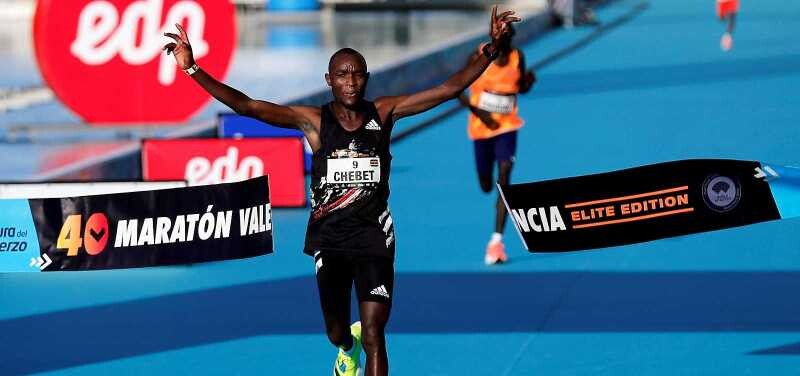
Other athletes who will be competing from Kenya are Bernard Koech (2:04:09), former New York Marathon champion Geoffrey Kamworor (2:05:23), Eric Kiptanui (2:05:47), Bethwel Yegon (2:06:14) who was second in Berlin Marathon and New York Marathon champion Albert Korir (2:08:03).
But the duel has also some finest athletes from Ethiopia, the likes of Sisay Lemma (2:03:36), Kinde Atanaw (2:03:51), Lemi Berhanu (2:04:33) and Lelisa Desisa (2:04:45).
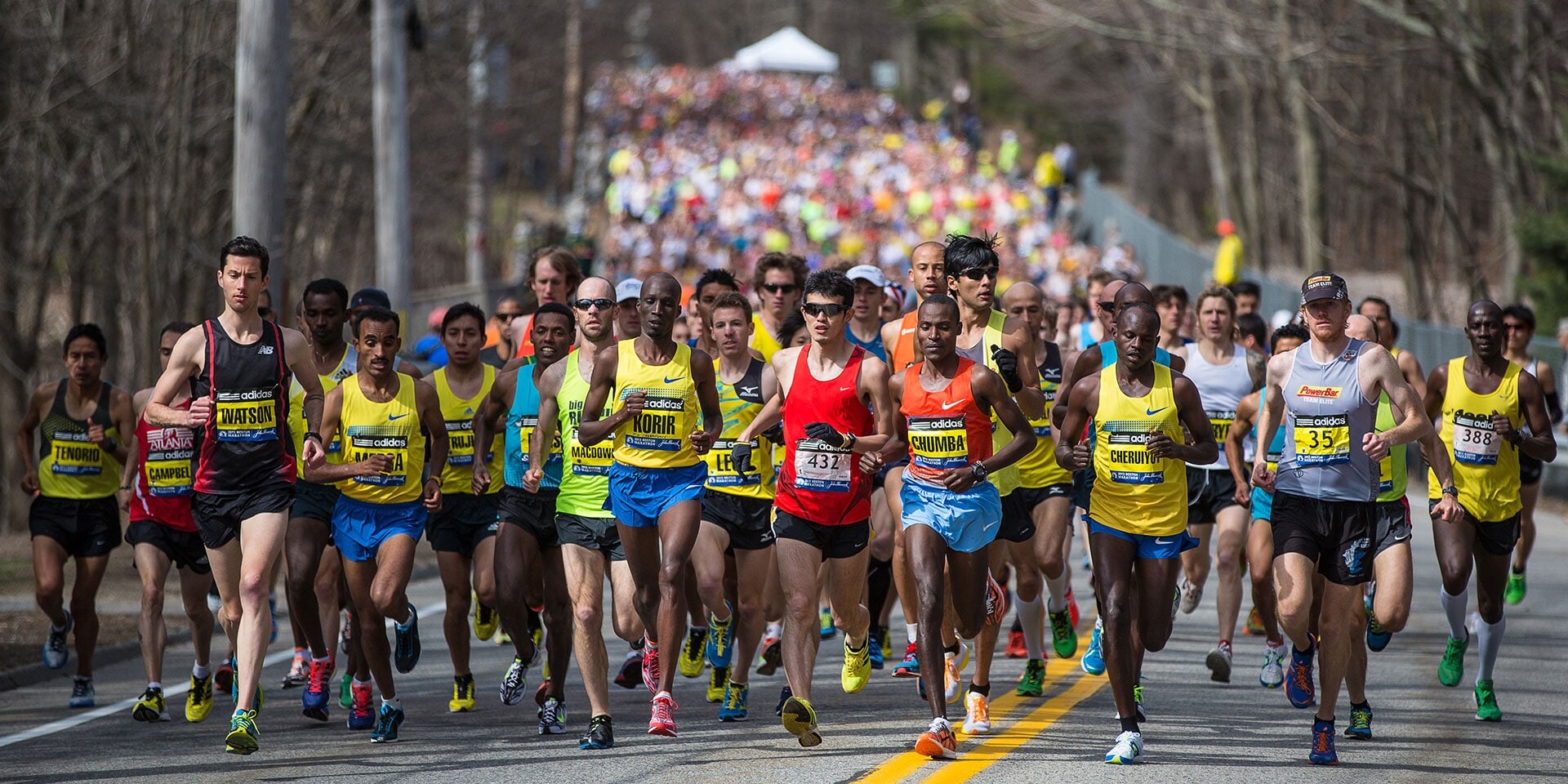
Training mates Chebet and defending champion Kipruto, who train in Kapsabet, Nandi County under 2Running Club, are optimistic that they will be able to run well.
Chebet said that the lineup is strong and they have discussed how they will compete.
Chebet competed in Boston in 2018 where a big number of athletes dropped out including him due to a storm.
“I’m heading to Boston Marathon once again and my target is to run well. Last time I competed in the race the weather affected us and had to drop at the 30km mark but I have seen the weather this year is fair,” said Chebet.
But for Chebet, he will be competing against Cherono whom he outsprinted in the last 50 meters in 2020 when they competed at the Valencia Marathon.
He said that he knows that it will be a tight contest but they are up to the task.
“I can see Cherono will also be competing in the race and having run with him at the Valencia Marathon, he is a tough opponent,” added Chebet.
Kipruto wants to ink his name in history books by defending his title.
“I’m glad to be back in Boston Marathon and my plan is to defend the title I won last year. The startlist is rich but I believe I would be able to run well and join the list of multiple champions,” said Kipruto.
by Bernard Rotich
Login to leave a comment
Boston Marathon
Among the nation’s oldest athletic clubs, the B.A.A. was established in 1887, and, in 1896, more than half of the U.S. Olympic Team at the first modern games was composed of B.A.A. club members. The Olympic Games provided the inspiration for the first Boston Marathon, which culminated the B.A.A. Games on April 19, 1897. John J. McDermott emerged from a...
more...Everything you need to know about Boston Marathon 2022
Tokyo 2020 Olympic gold medalist Peres Jepchirchir will headline the 126th edition of the Boston Marathon, which returns to its customary Patriots Day (April 18) for the first time since 2019.
The men's race, meanwhile, will see seven of the last eight winners will compete including Kenya's reigning champion Benson Kipruto.
Elsewhere in the women's race Jepchirchir's Kenyan compatriots Joyciline Jepkosgei and Edna Kiplagat, and Olympic bronze medalist Molly Seidel will offer a stern challenge.
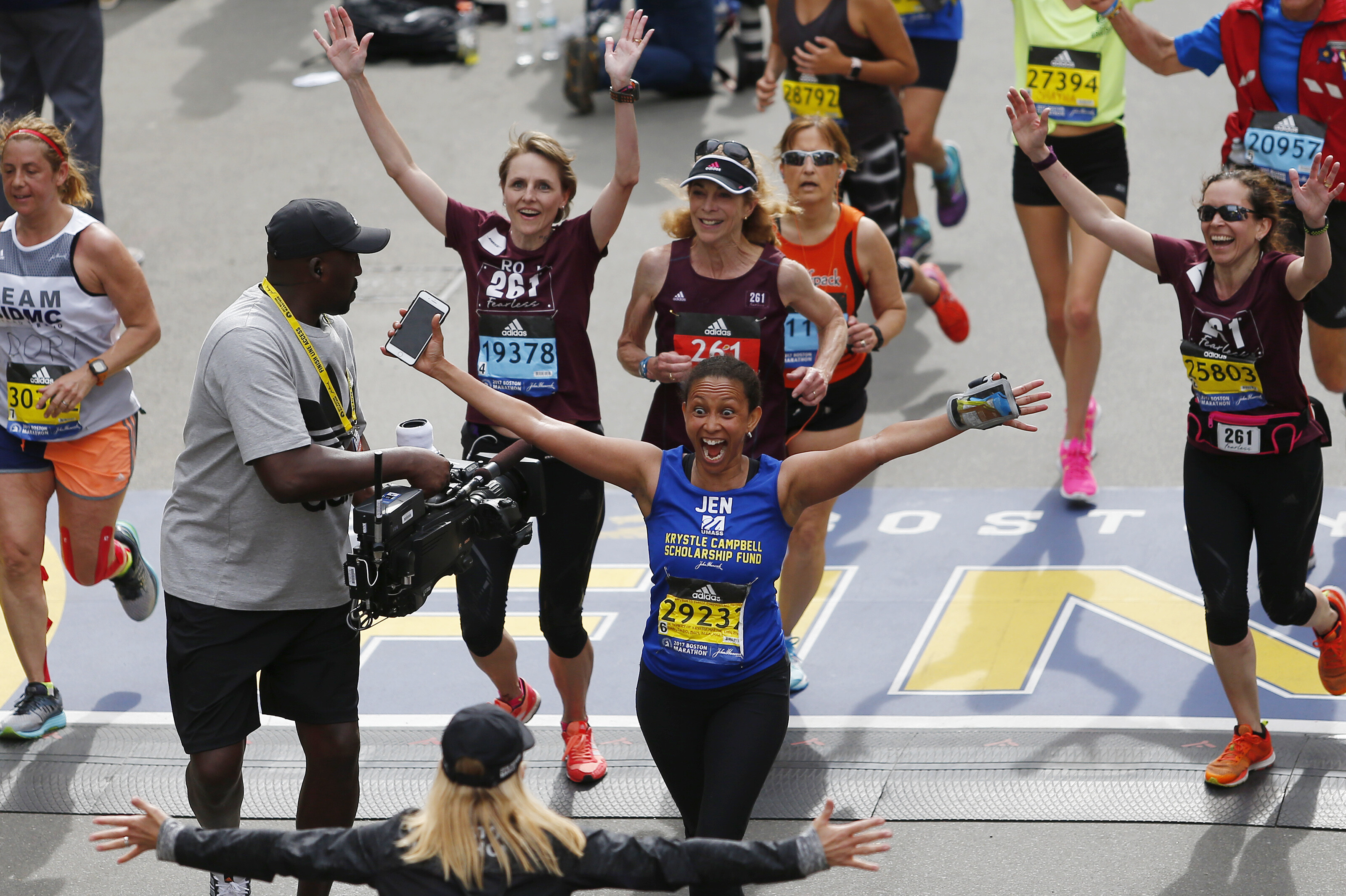
Below, we take a look at the top athletes to watch out for in one of the top events of the 2022 athletics calendar, the route they will follow in Boston, the schedule and how to watch the action.
Tokyo star Jepchirchir targets podium
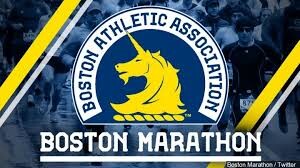
The quality of the women’s race is impressive, with 12 women on the start list having run under 2.23.00
A year after she claimed the Olympic title and the New York City Marathon, Jepchichir has one target: to be the first woman to cross the finish line on Boylston Street.
“My high expectations is to be a winner and I would like to arrive at the day of the race in my best shape,” said Jepchirchir.
The Kenyan will compete with a familiar rival from the Tokyo 2020 podium in Olympic bronze medalist Seidel. The former Boston resident is the third American woman in history to medal in the Olympic marathon.
Two former Boston Marathon champions in 42-year-old Edna Kiplagat (2017 winner), and American Des Linden (2018) will also toe the Boston course again.
The 2022 race will also mark the 50th anniversary of the first official women’s race in 1972.
To mark the occasion, an honorary team comprised of eight women who have made a powerful impact in athletics and human rights will compete. Among the group will be Valerie Rogosheske, one of the original eight finishers in 1972.
All eyes on the returning men's champions
A very strong contingent of men's runners will lock horns on the second stop of the World Marathon Majors, following Eliud Kipchoge's comfortable victory in Tokyo.
Keep an eye on Benson Kipruto, the defending champion from Kenya and his compatriot Lawrence Cherono (2019 Boston winner), Japan’s ‘citizen runner’ Kawauchi Yuki (2018), Kenya’s Geoffrey Kirui (2017), and Ethiopian pair of Lemi Berhanu (2016), and Lelisa Desisa (2015 and 2013).
Geoffrey Kamworor, the two-time New York Marathon winner who trains with Kipchoge in Kaptagat, is back in form after being hit by a motorbike in June 2020 and sitting out for a year.
Elite Americans runners Colin Bennie, hoping to improve on his seventh-place finish from 2021, Jake Riley and Jared Ward, will also be challenging for top honors.
The course
The Boston Marathon hasn't changed from last year, but does see the number of participants increased to 30,000.
The race starts in Hopkinton, MA and ends on Boylston Street in Boston, MA. The course is flat with the most challenging stretch of the race being the steep incline between 29km-34km (Miles 18-21).The notorious Heartbreak Hill is the last of the four hills in Newton.
The schedule of events
This year’s races will start earlier than previous years with expected rolling starts.
Men's Wheelchair - 8:02 am ET.
Women's Wheelchair - 8:05 am ET.
Handcycles & Duos - 8:30 am ET.
Professional Men - 8:37 am ET.
Professional Women - 8:45 am ET.
Para Athletics Divisions - 8:50 am ET.
Rolling Start Begins - 9:00 am ET.
Rolling Start Ends - 11:30 am ET.
How to watch
For Boston residents, they can follow the race live by finding a good spot on the spectator guide, or can kick back in their living room as the marathon will be aired lived on CBS Boston’s WBZ-TV from 7:00am (EDT).
NBC Sports Network and the NBC Sports App are the exclusive national television and streaming partner for the Boston Marathon for wider America.
Live race coverage will be broadcast on NBC Sports Network and the NBC Sports App 7:30 a.m. to 12:00 p.m. ET.
by Evelyn Watta
Login to leave a comment
Boston Marathon
Among the nation’s oldest athletic clubs, the B.A.A. was established in 1887, and, in 1896, more than half of the U.S. Olympic Team at the first modern games was composed of B.A.A. club members. The Olympic Games provided the inspiration for the first Boston Marathon, which culminated the B.A.A. Games on April 19, 1897. John J. McDermott emerged from a...
more...Two-time New York City Marathon champion Geoffrey Kamworor will be making his debut on the streets of Boston on April 18
Three-time World Half marathon champion Geoffrey Kamworor has set his focus on next month's Boston marathon after shaking off a groin injury that ruled him out of last month's Agnes Tirop Memorial World Cross Country Tour.
The two-time New York City Marathon champion will be making his debut on the streets of Boston on April 18 seeking to add to his burgeoning accolades on American soil.
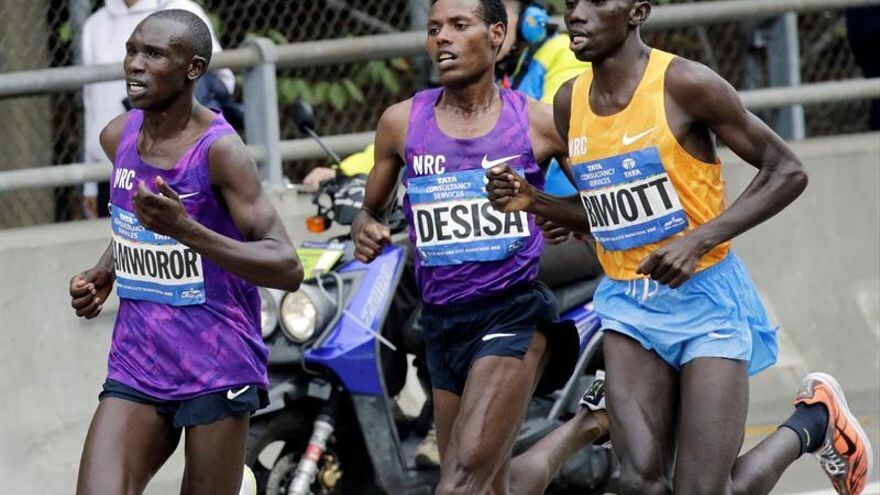
“I was well prepared for the Agnes Tirop World Cross Country Tour but it was very unfortunate that two weeks to the event, I got a groin injury and I had to pull out,” said the 2015 world championships 10,000m silver medalist.
Kamworor said he is targeting a podium finish on debut.
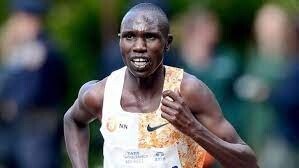
“I feel in great shape, just trying to sharpen my skills a little bit. My training has been flawless and I am hoping for a good result in Boston,” he added.
The four-time world cross country champion (two in senior and two in junior) will be joining a host of top athletes in Boston including compatriots Benson Kipruto (defending champion), Geoffrey Kirui (2017 champion) Evans Chebet, Titus Ekiru, Lawrence Cherono (2019 winner), Bernard Koech, Eric Kiptanui, Bethwell Yegon and Albert Korir (New York City Marathon champion).
Rivals Ethiopia are also represented by a huge, talented contingent led by three-time Olympic champion and the second-fastest marathon runner in history with a best of 2:01:41 Kenenisa Bekele, Lemi Berhanu (2016 winner), Lelisa Desisa (2015 and 2013 winner), Bayelign Teshager and Jemal Yimer.
Italian Eyob Faniel of Italy, Japan's Yuki Kawauchi (2018 winner), Amanuel Mesel, Tsegay Tuemay Weldibanos (Eritrea), Scott Fauble, Colin Bennie, Jared Ward, Ian Butler, Mick Iacofano, Jake Riley, Jerrell Mock, Matt McDonald, Matt Llano, Elkanah Kibet, CJ Albertson, Diego Estrada (USA), Trevor Hofbauer (Canada), Juan Luis Barrios (Mexico) and Gabriel Geay of Tanzania are also in the mix.
by Emmanuel Sabuni
Login to leave a comment
Tokyo Marathon announced domestic elite field
A few days ago the Tokyo Marathon announced the domestic elite field for its 2021 edition being held Mar. 6, 2022, with the caveat that final decisions on whether it would go ahead and whether it would have an international field, originally slated to feature men's world record holder Eliud Kipchoge, would have to wait until Feb. 18. Yesterday the Osaka Marathon announced its field for this year's race on Feb. 27, and like Osaka, Tokyo's field gives away its history as a men-only race. The men's field is even more massive than Osaka's, and the women's field only slightly deeper.
Overall Tokyo is solid, with the men's NR holder, the women-only NR holder, both half marathon NR holders, the last three Fukuoka International Marathon winners, seven men with recent times under 2:07, 31 under 2:10, 112 under 2:20, and two debuting sub-61 half marathoners. Only three women on the list including women-only NR holder Mao Ichiyama (Wacoal) have gone sub-2:30 vs. three sub-2:40 in Osaka, meaning that the field at the Nagoya Women's Marathon the week after Tokyo should be pretty good.
Especially notable people in the men's field include NR holder Kengo Suzuki (Fujitsu), two-time 2:06 man Hiroto Inoue (Mitsubishi Juko) who won last month's Osaka Half Marathon in PB time, 2020 Fukuoka winner Yuya Yoshida (GMO), and 2021 Fukuoka winner Michael Githae (Kenya/Suzuki). It's also notable that none of the three men who ran the Tokyo Olympics marathon is entered in Tokyo or any other domestic spring marathon.
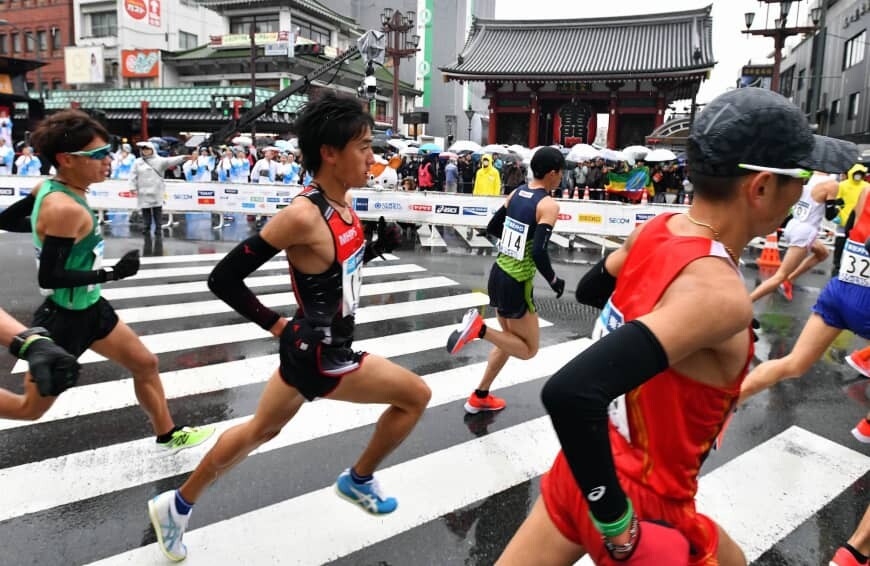
Along with Yoshida a large group from the GMO corporate team and other athletes are entered both here and in Osaka, so the final numbers at both races are likely to be a bit lower than what's on paper. But if the weather's good you can still expect to see massive races both weekends. And expect Ichiyama and Suzuki to give the world record for fastest combined times by a married couple in a single race, 4:27:05 by Kenyans Purity Cherotich Rionoripo and Paul Kipchumba Lonyangata in Paris 2017, a shot.
2021 Tokyo Marathon
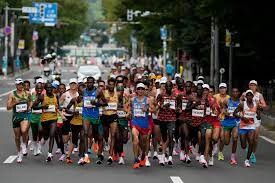
Domestic Elite Field
Men
Kengo Suzuki (Fujitsu) - 2:04:56 (Lake Biwa 2021)
Hidekazu Hijikata (Honda) - 2:06:26 (Lake Biwa 2021)
Kyohei Hosoya (Kurosaki Harima) - 2:06:35 (Lake Biwa 2021)
Ryu Takaku (Yakult) - 2:06:45 (Tokyo 2020)
Hiroto Inoue (Mitsubishi Juko) - 2:06:47 (Lake Biwa 2021)
Yusuke Ogura (Yakult) - 2:06:51 (Lake Biwa 2021)
Daisuke Uekado (Otsuka Seiyaku) - 2:06:54 (Tokyo 2020)
Toshiki Sadakata (Mitsubishi Juko) - 2:07:05 (Tokyo 2020)
Yuya Yoshida (GMO) - 2:07:05 (Fukuoka Int'l 2020)
Simon Kariuki (Kenya/Togami Denki) - 2:07:18 (Lake Biwa 2021)
Masato Kikuchi (Konica Minolta) - 2:07:20 (Lake Biwa 2021)
Shin Kimura (Honda) - 2:07:20 (Tokyo 2020)
Kento Kikutani (Toyota Boshoku) - 2:07:26 (Lake Biwa 2021)
Yuta Shimoda (GMO) - 2:07:27 (Tokyo 2020)
Tadashi Isshiki (GMO) - 2:07:39 (Tokyo 2020)
Masaki Sakuda (JR Higashi Nihon) - 2:07:42 (Lake Biwa 2021)
Michael Githae (Kenya/Suzuki) - 2:07:51 (Fukuoka Int'l 2021)
Atsumi Ashiwa (Honda) - 2:07:54 (Lake Biwa 2021)
Kenya Sonota (JR Higashi Nihon) - 2:08:11 (Lake Biwa 2021)
Kento Otsu (Toyota Kyushu) - 2:08:15 (Lake Biwa 2021)
Naoya Sakuda (JR Higashi Nihon) - 2:08:21 (Fukuoka Int'l 2020)
Daisuke Hosomori (YKK) - 2:08:28 (Lake Biwa 2021)
Keisuke Hayashi (GMO) - 2:08:52 (Lake Biwa 2021)
Kazuma Kubo (Nishitetsu) - 2:08:53 (Lake Biwa 2021)
Chihiro Miyawaki (Toyota) - 2:09:04 (Tokyo 2020)
Takumi Kiyotani (Chugoku Denryoku) - 2:09:13 (Lake Biwa 2021)
Yuki Sato (SGH Group) - 2:09:18 (Berlin 2018)
Kei Katanishi (JR Higashi Nihon) - 2:09:27 (Lake Biwa 2021)
Yuki Takamiya (Yakult) - 2:09:30 (Lake Biwa 2021)
Taku Fujimoto (Toyota) - 2:09:36 (Fukuoka Int'l 2019)
Takamitsu Hashimoto (Komori Corp.) - 2:09:43 (Lake Biwa 2021)
Keisuke Tanaka (Fujitsu) - 2:10:07 (Lake Biwa 2021)
Kensuke Horio (Toyota) - 2:10:21 (Tokyo 2019)
Akira Tomiyasu (Tokyo T&F Assoc.) - 2:10:29 (Lake Biwa 2021)
Ryo Matsumoto (Toyota) - 2:10:32 (Lake Biwa 2020)
Ryota Komori (NTN) - 2:10:33 (Lake Biwa 2021)
Takuma Kumagai (Sumitomo Denko) - 2:10:41 (Fukuoka Int'l 2021)
Yuki Nakamura (Sumitomo Denko) - 2:10:47 (Lake Biwa 2021)
Takuma Shibata (Komori Corp.) - 2:10:48 (Hofu 2020)
Shota Saito (JFE Steel) - 2:10:50 (Beppu-Oita 2020)
Daiji Kawai (Toenec) - 2:10:50 (Lake Biwa 2019)
Junnosuke Matsuo (NTT Nishi Nihon) - 2:11:00 (Beppu-Oita 2020)
Asuka Tanaka (Runlife) - 2:11:07 (Fukuoka Int'l 2020)
Taiki Yoshimura (Asahi Kasei) - 2:11:13 (Hofu 2019)
Toshinori Watanabe (GMO) - 2:11:17 (Katsuta 2020)
Yoshiyuki Hara (Gotemba Takigahara SDF Base) - 2:11:21 (Hofu 2020)
Benard Kimani (Kenya/Comodi Iida) - 2:11:31 (Eindhoven 2019)
Debut / Do-Over
Nicholas Kosimbei (Kenya/YKK) - 1:00:20 (Lisbon Half 2019)
Masashi Nonaka (Osaka Gas) - 1:00:58 (Nat'l Corp. Half 2020)
Tomoya Ogikubo (Yakult) - 27:44.74 (Hachioji LD 10000 m 2021)
Naoki Koyama (Honda) - 27:55.16 (HDC Fukagawa 10000 m 2021)
Women
Mao Ichiyama (Wacoal) - 2:20:29 (Nagoya 2020)
Natsuki Omori (Daihatsu) - 2:28:38 (Nagoya 2021)
Shiho Kaneshige (GRlab Kanto) - 2:28:51 (Osaka Int'l 2020)
Hitomi Niiya (Sekisui Kagaku) - 2:30:58 (Nagoya 2009)
Miharu Shimokado (SID Group) - 2:32:48 (Osaka Int'l 2020)
Yui Okada (Otsuka Seiyaku) - 2:32:00 (Nagoya 2020)
Hitomi Mizuguchi (Uniqlo) - 2:32:33 (Osaka Int'l 2020)
Mai Fujisawa (Hokkaido Excel AC) - 2:35:52 (Kanazawa 2021)
Tomomi Sawahata (Sawahatters) - 2:36:45 (Osaka Int'l 2022)
Debut / Do-Over
Kaori Morita (Panasonic) - 1:10:28 (Nat'l Corp. Half 2021)
Rika Kaseda (Daihatsu) - 31:39.86 (Nat'l Championships 2020)
by Brett Larner
Login to leave a comment
Tokyo Marathon
The Tokyo Marathon is a world-renowned annual marathon held in Tokyo, Japan. As one of the prestigious Abbott World Marathon Majors, it attracts elite and amateur runners from around the globe. The race holds World Athletics Platinum Label status, recognizing its high competitive standards, top-tier organization, and international appeal. Sponsored by Tokyo Metro, the Tokyo Marathon has grown into one...
more...Beppu-Oita Mainichi Marathon is set to return this year on Feb 6
Other races have started canceling as Japan's COVID-19 numbers climb again, but the Beppu-Oita Mainichi Marathon is set to return this year on Feb 6, announcing its elite field on Jan 14. The front end is heavily dominated by people who part of the Miracle in Lake Biwa last year, Shuho Dairokuno (Asahi Kasei) and Tsubasa Ichiyama (Komori Corp.) leading the way at 2:07:12 and 2:07:41 from that race.
Four others on the list have run 2:08 recently, three at Lake Biwa, with two 2:09 veterans rounding out a sub-2:10 club that's as good as in any past year at Beppu-Oita, even without an international field. Well, there is one Ethiopian in the race, 2019 Fukuoka 3rd-placer Derese Workneh (Hiramatsu Byoin), but he's locally-based in Kyushu.
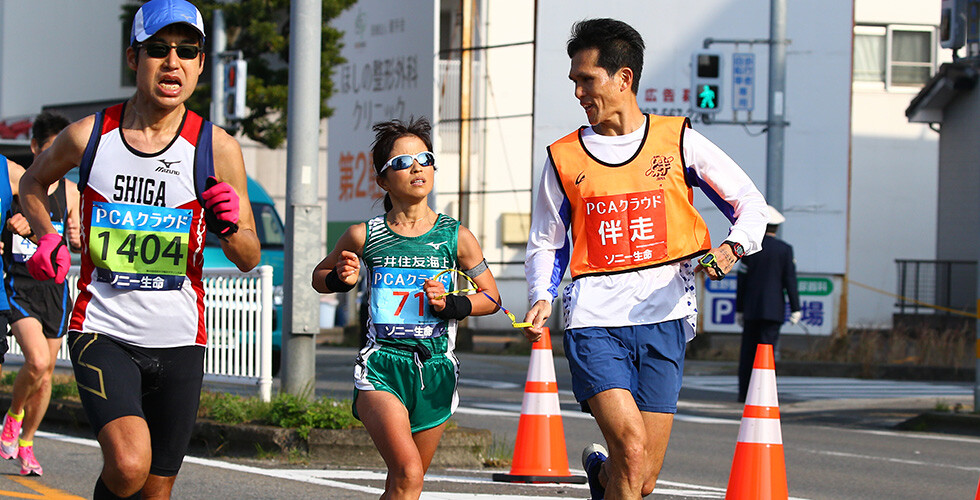
But where this year's field really stands out is in its list of first-timers. Sub-61 half marathoners Kiyoshi Koga (Yasukawa Denki) and Yusuke Nishiyama (Toyota) are there fresh off good runs on the New Year Ekiden's longest stage. Track specialist Tetsuya Yoroizaka (Asahi Kasei) is running for real after a couple of less-serious marathon stabs, and likewise doing it off a good New Year run.
Last time around Aoyama Gakuin University's Yuya Yoshida made a big impact at Beppu-Oita in his debut, and this time the 2022 Hakone Ekiden champ team has five members on the list including Hakone members Kotaro Kondo and Takayuki Iida, who ran the equivalent of 1:01:20 and 1:02:21 half marathons on their stages, and sub-63 half marathoners Taiki Miyasaka, Ryo Nishikubo and Shungo Yokota.
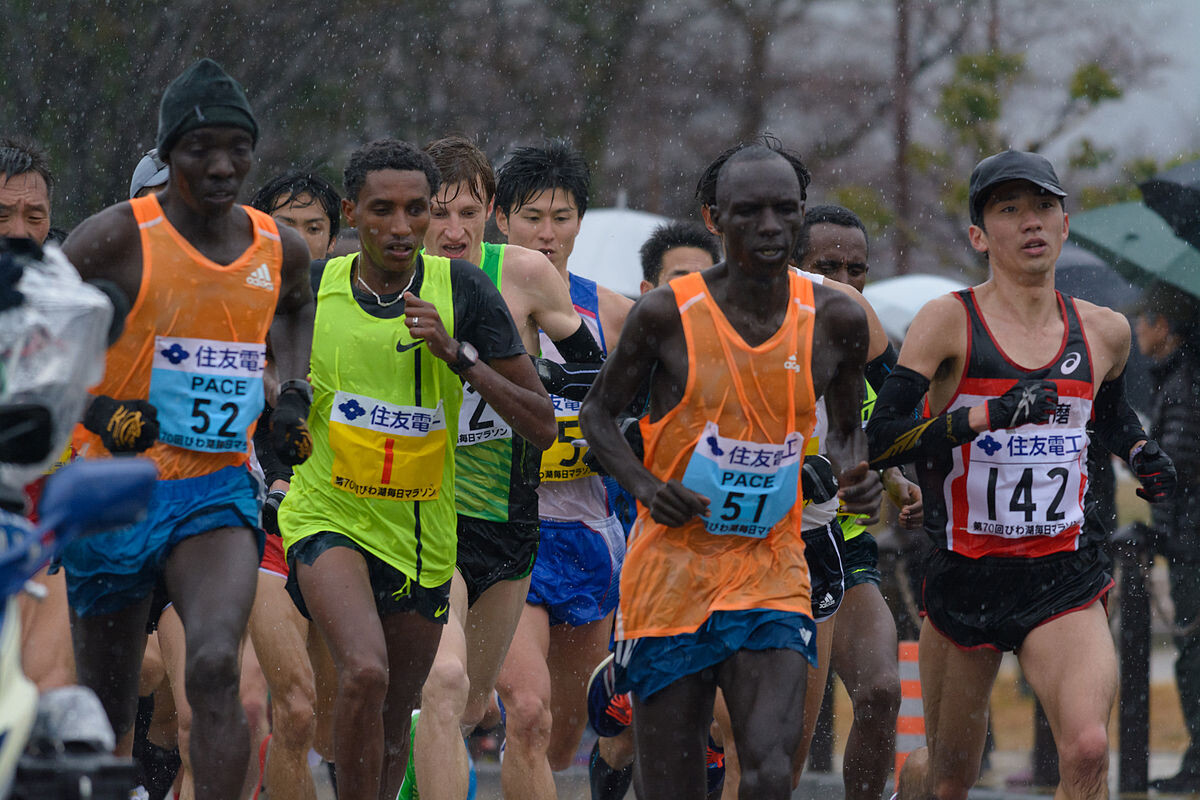
It should be a great race that cranks out even more quality Japanese marathoners. TBS will be broadcasting it live, and JRN will cover it on @JRNLive. Check back closer to race date for more info.
70th Beppu-Oita Mainichi Marathon
Elite Field
Shuho Dairokuno (Asahi Kasei) - 2:07:12 (Lake Biwa 2021)
Tsubasa Ichiyama (Komori Corp.) - 2:07:41 (Lake Biwa 2021)
Daisuke Hosomori (YKK) - 2:08:28 (Lake Biwa 2021)
Hiroto Fujimagari (Toyota Kyushu) - 2:08:30 (Lake Biwa 2021)
Takuya Fujikawa (Chugoku Denryoku) - 2:08:45 (Tokyo 2020)
Yuta Koyama (Toenec) - 2:08:46 (Lake Biwa 2021)
Ryo Hashimoto (GMO) - 2:09:29 (Beppu-Oita 2019)
Hisanori Kitajima (Yasukawa Denki) - 2:09:54 (Lake Biwa 2021)
Shogo Kanezane (Chugoku Denryoku) - 2:10:17 (Lake Biwa 2021)
Tadashi Suzuki (Suzuki) - 2:10:46 (Hofu 2020)
Derese Workneh (Ethiopia/Hiramatsu Byoin) - 2:10:52 (Fukuoka Int'l 2019)
Taiki Yoshimura (Asahi Kasei) - 2:11:13 (Hofu 2019)
Yuichi Okutani (Otsuka Seiyaku) - 2:11:16 (Beppu-Oita 2020)
Tomohiro Tanigawa (Konica Minolta) - 2:11:54 (Hofu 2020)
Debut/Do-Over
Kiyoshi Koga (Yasukawa Denki) - 1:00:49 (Nat'l Corp. Half 2020)
Yusuke Nishiyama (Toyota) - 1:00:55 (Nat'l Corp. Half 2020)
Akira Akasaki (Kyudenko) - 1:01:46 (Ageo City Half 2019)
Tetsuya Yoroizaka (Asahi Kasei) - 1:01:57 (Marugame 2020)
Riki Nakanishi (Toenec) - 1:02:02 (Osaka 2020)
Taiki Miyasaka (Aoyama Gakuin Univ.) - 1:02:26 (Takanezawa 2020)
Ryo Nishikubo (Aoyama Gakuin Univ.) - 1:02:30 (Takanezawa 2020)
Shungo Yokota (Aoyama Gakuin Univ.) - 1:02:36 (Hi-Tech 2022)
Yuya Kawata (Subaru) - 1:02:38 (Nat'l Corp. Half 2021)
Noriaki Oyama (Konica Minolta) - 1:02:41 (Marugame 2020)
Shogo Ise (Konica Minolta) - 1:02:53 (Marugame 2019)
Takayuki Iida (Aoyama Gakuin Univ.) - 1:03:10 (Takanezawa 2019)
Kotaro Kondo (Aoyama Gakuin Univ.) - 1:03:42 (Nat'l Univ. Half 2021)
by Brett Larner
Login to leave a comment
Beppu-Oita Mainichi Marathon
The Beppu-Oita Marathon is an annual men's marathon race that takes place every February between the cities of Beppu and Oita on the island of Kyushu in Japan. First held in 1952 as a 35km race, the looped marathon course begins at the bottom of Takasaki Mountain and reaches Beppu's Kankoko International Port before turning back towards the finishing point...
more...Boston Marathon announces their fastest ever men’s field
Organisers of the Boston Marathon have revealed their fastest ever men’s field for the 126th edition of the World Athletics Platinum Elite Label road race on 18 April.
It features 12 men with lifetime bests faster than 2:06, led by three-time Olympic champion Kenenisa Bekele of Ethiopia, the second fastest marathon runner in history with a best of 2:01:41.
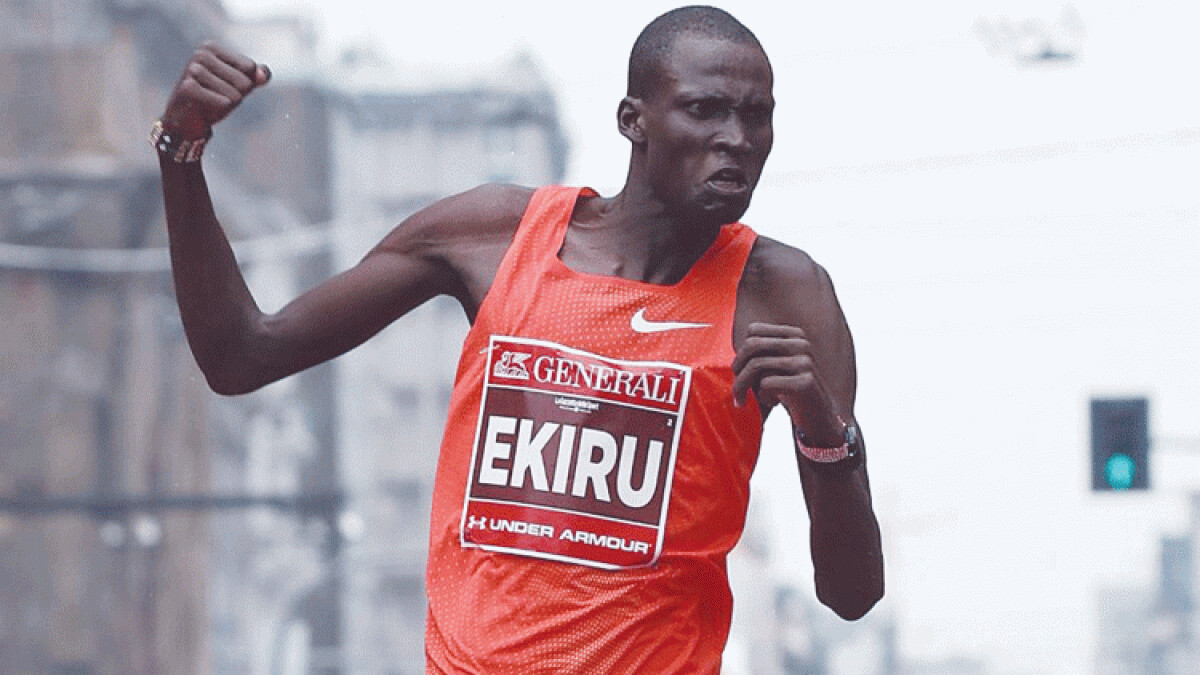
“I recognise the tradition of the Boston Marathon and look forward to racing in April,” said Bekele. “For many years Ethiopia has had a strong tradition in Boston, and I am excited to join that legacy. I have long looked forward to racing the Boston Marathon.”
Seven of the past eight winners will also return to Boston, including 2021 champion Benson Kipruto of Kenya. Lawrence Cherono (2019), Yuki Kawauchi (2018), Geoffrey Kirui (2017), Lemi Berhanu (2016), and Lelisa Desisa (2015 and 2013) are the other six former winners.
“Being back in Boston as a champion is very exciting, but at the same time I feel the pressure and the responsibility to defend my title,” said Kipruto. “I really admire those athletes that managed to be multiple champions in big races. I really want to do my best to be one of them and I really hope to make my name among those Boston champions that people will remember for a long time.”
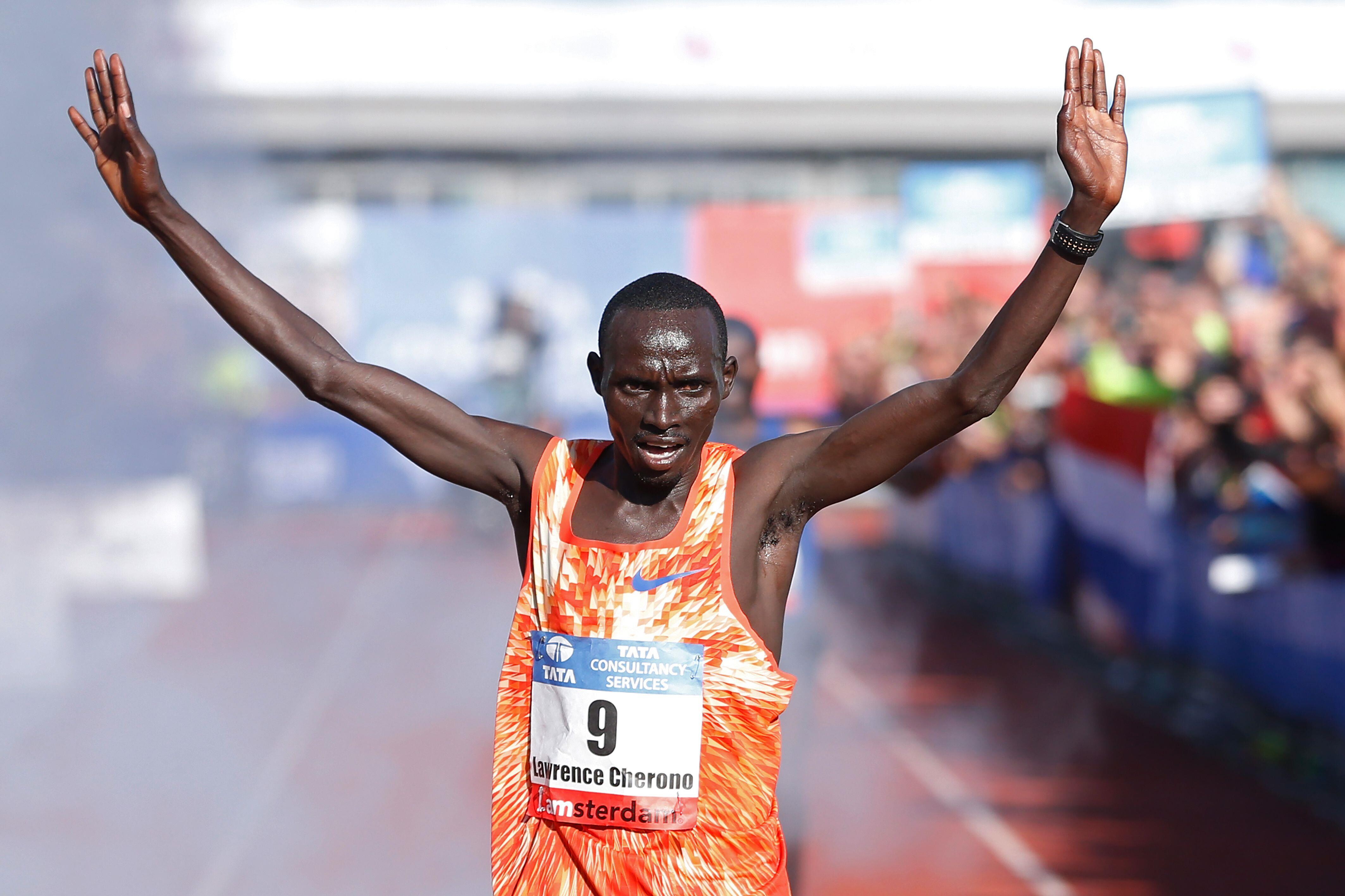
Other strong contenders include Titus Ekiru, the fastest marathon runner in the world last year having run 2:02:57 in Milan, 2020 world leader Evans Chebet, New York City Marathon winner Albert Korir, and three-time world half marathon champion Geoffrey Kamworor.
Men’s elite field
Kenenisa Bekele (ETH) 2:01:41Titus Ekiru (KEN) 2:02:57Evans Chebet (KEN) 2:03:00Lawrence Cherono (KEN) 2:03:04Bernard Koech (KEN) 2:04:09Lemi Berhanu (ETH) 2:04:33Lelisa Desisa (ETH) 2:04:45Gabriel Geay (TAN) 2:04:55Benson Kipruto (KEN) 2:05:13Geoffrey Kamworor (KEN) 2:05:23Eric Kiptanui (KEN) 2:05:47Bethwell Yegon (KEN) 2:06:14Geoffrey Kirui (KEN) 2:06:27Eyob Faniel (ITA) 2:07:19Yuki Kawauchi (JPN) 2:07:27Albert Korir (KEN) 2:08:03Amanuel Mesel (ERI) 2:08:17Bayelign Teshager (ETH) 2:08:28Tsegay Tuemay Weldibanos (ERI) 2:09:07Scott Fauble (USA) 2:09:09Colin Bennie (USA) 2:09:38Trevor Hofbauer (CAN) 2:09:51Jared Ward (USA) 2:09:25Ian Butler (USA) 2:09:45Mick Iacofano (USA) 2:09:55Jake Riley (USA) 2:10:02Jerrell Mock (USA) 2:10:37Jemal Yimer (ETH) 2:10:38Juan Luis Barrios (MEX) 2:10:55Matt McDonald (USA) 2:11:10Matt Llano (USA) 2:11:14Elkanah Kibet (USA) 2:11:15CJ Albertson (USA) 2:11:18Diego Estrada (USA) 2:11:54
by World Athletics
Login to leave a comment
Boston Marathon
Among the nation’s oldest athletic clubs, the B.A.A. was established in 1887, and, in 1896, more than half of the U.S. Olympic Team at the first modern games was composed of B.A.A. club members. The Olympic Games provided the inspiration for the first Boston Marathon, which culminated the B.A.A. Games on April 19, 1897. John J. McDermott emerged from a...
more...Aoyama Gakuin University breaks on course record for sixth Hakone Ekiden win
Riding the momentum of its Hakone Ekiden Day One win, Aoyama Gakuin University broke the Day Two and overall course records to take its sixth Hakone title in eight years.
With all sixteen men on his entry roster having broken 29 minutes for 10000 m and even leaving some recent 62-minute half marathoners off, head coach Susumu Hara had plenty of material to work with on the five-stage 109.6 km Day Two return trip from the mountain town of Hakone to central Tokyo. Handling the 20.8 km descent on the day's first leg, 4th-year Yuki Takahashi was the weakest link in the Day Two lineup in terms of finishing time on his individual stage, running only 8th-fastest, but even so he added a valuable 41 seconds to AGU's initial lead of 2:37.
And from there it was a total blowout. Hironori Kishimoto was the only runner to break 63 minutes on the 21.3 km 7th leg, taking the lead to 4:51. Issei Sato lost 19 seconds to Juntendo University's Masaki Tsuda but was still 2nd-fastest on the 21.4 km 8th leg. Yuito Nakamura blew the race apart with a 1:07:15 course record on the 23.1 km 9th leg, 46 seconds off the old record dating back to 2008 and putting AGU ahead of Juntendo by 7:56. Anchor Hironobu Takakura backed that up with a 1:07:50 course record on the 23.0 km 10th leg, 50 seconds under the old record.
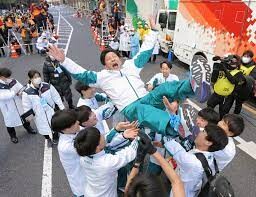
AGU broke the Day Two record in 5:21:36 and took almost 2 minutes off its own record for the full 10-stage, 217.1 km course, finishing 10:51 ahead of 2nd in 10:43:42 with the biggest margin of victory since 1988. That works out to 2:57.9/km including the two mountain stages. How dominant is that? The same pace for 100.0 km, the distance run at Jan. 1 at the 7-stage New Year Ekiden corporate men's national championships, would give AGU a time of 4:56:30. That would have put them in 12th out of 37 teams, not evening taking into account that they were running more than twice as far as the corporate leaguers, only one stage at the New Year Ekiden is as long as what every runner at Hakone does, or that Hakone includes two stages with elevation changes of 837 m. Take those into account and AGU's best 7 could probably be giving New Year winner Honda, who averaged 2:54.6, a run for it, even without a Kenyan. Coach Hara might get it wrong every now and then, but at this point his development program is pretty close to untouchable at the collegiate level.
Behind AGU, the overall race was as complex as expected given how close most of the teams were in ability, way too much to recap. From 2nd to 13th, almost every team changed position on almost every stage. There were as many brilliant days in the sun as devastating setbacks, as many as you could hope for. 2020 Yosenakai qualifier winner Juntendo continued its forward movement after a slow start on Day One, moving from 5th to 3rd thanks to a stage best from downhill runner Keito Makise, then 2nd after another stage best from 8th man Tsuda. Tsuda, a second-string senior, delivered one of the biggest runs of the day, taking out Komazawa's #2 man Mebuki Suzuki to put Juntendo into 2nd, where they stayed. Komazawa fell to 6th as Suzuki faltered, but fought back to 3rd.
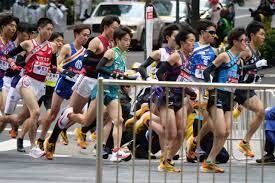
Last year's 3rd-placer Toyo University struggled to stay in the top 10, then caught Komazawa for 3rd in the anchor stage home straight before dropping to 4th in the final sprint. 2021 Izumo Ekiden winner Tokyo Kokusai University bounced between 7th and 4th before landing in 5th. Yosenkai runner-up Chuo University made it as high as 3rd on the 8th leg before falling back to 6th, its first time in the top 10 in ten years. Last year's Hakone runner-up Soka University went from 8th to 5th to 9th to 7th. Koku Gakuin University dropped from 4th to 10th over the first three stages of the day. A stellar run from first-year Kiyoto Hirabayashi took them back to 5th on the 9th leg, but anchor Ryomei Aizawa dropped again to 8th. Teikyo University started in 2nd after an uphill win at the end of Day One by Shoma Hosoya but spent Day Two sweating it out as they fell back as far as 10th on the 9th leg before anchor Shoma Nishiwaki took them back to 9th.
A top 10 placing in Hakone gets you a return trip the next year and an invitation to October's season-opening Izumo Ekiden. 2019 Hakone winner Tokai University clawed its way up to 10th on the Day One 5th leg, then to 8th over the first four stages of Day Two. But anchor Yuta Yoshitomi ran into trouble and dropped, and coming off Nihonbashi with 1 km to go he was caught by Hosei University's Yuki Kawakami. It's a sign of how much trouble Yoshitomi was in that he ultimately finished 52 seconds behind Kawakami, sending Tokai back to the Yosenkai with Hosei getting into the top 10 for the first time in 3 years. Waseda University, Japan's University of Oregon, looked like they might break into the top 10 with good 7th and 8th leg runs from Soshi Suzuki and Ryunosuke Chigira, but they couldn't quite close it up and were caught just before the finish by Kanagawa University.
Even further back there was just as much action throughout the day. The Kanto Region Select Team recorded its best-ever time, finishing 14th overall but not counting in team scoring. 2021 Yosenkai winner Meiji University fought back from a disastrous Day One to overtake top 10 contender Kokushikan University for 14th. Chuo Gakuin University overcame a Day One time handicap to beat Yamanashi Gakuin University and Nittai University for 16th. The debuting Surugadai University, last on Day One, likewise outran its handicap to knock Senshu University down to 20th.
Altogether it was a truly great edition of the world's greatest race, one with more plot lines happening simultaneously than even the ultra-competent Nippon Television production team knew what to do with. That's a direct product of the constantly increasing level of collegiate men's distance running in Japan. AGU and coach Hara may be showing what's possible, but with so many teams raising the average ceiling at once it created the right conditions for tense and exciting racing throughout all 11 hours of action over Hakone's two days. That's good for the athletes, good for the broadcaster and their sponsors, and good for the fans. Japan is losing elite-level races at a rate that should be ringing some alarm bells, but in the lead-up to Hakone's 100th running in 2024 it was a reassuring sign that this one, at least, is only getting better.
by Brett Larner
Login to leave a comment
hakone ekiden
Hakone Ekiden, which is officially called Tokyo-Hakone Round-Trip College Ekiden Race, is one of the most prominent university ekiden (relay marathon) races of the year held between Tokyo and Hakone in Japan on 2 and 3 January. The race is telecast on Nippon Television. Only men take part in the competition, meaning there is greater investment in the men's ekiden...
more...2022 Hakone Ekiden, this is the biggest race of the year on the Japanese Ekiden calendar
One of the biggest race of the year, the 98th Hakone Ekiden on Jan. 2 and 3. 21 university men's teams race 10 legs from central Tokyo to the mountains and back over the course of two days, each leg roughly a half marathon in distance and the total course adding up to 217.1 km. 65 million people watched at least part of the 2021 NTV Hakone broadcast broadcast, so you know they must be on to something.
The broadcast, the best in the world, starts at 7:00 a.m. both days, and as you'd expect they keep it a locked-down secret only for Japanese audiences. A VPN or mov3.co are probably the best bets for trying to watch from abroad, but JRN will once again cover it all on @JRNLive.
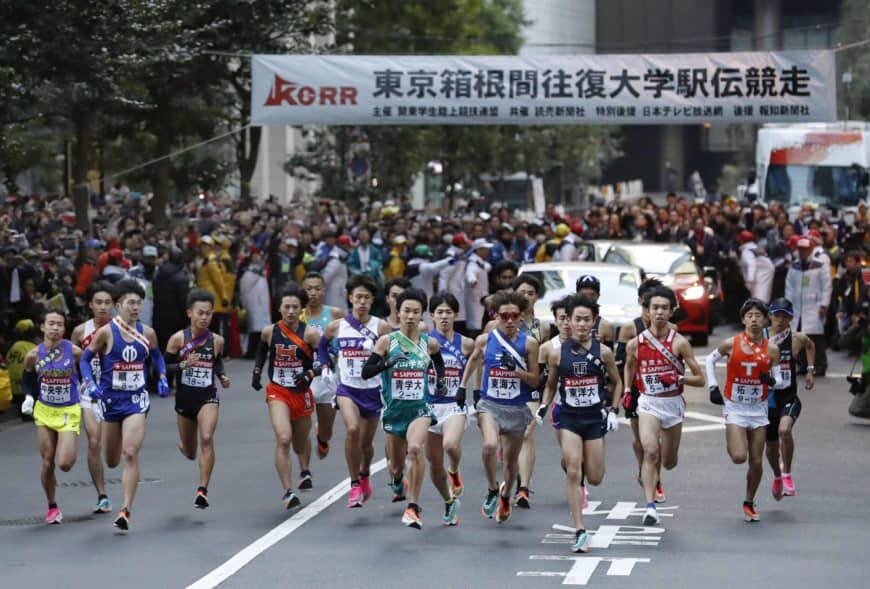
The 2021 race had one of the most dramatic finishes in Hakone history, with Komazawa University anchor Takuma Ishikawa coming from over a kilometer behind to run down Yuki Onodera with 2 km to go and stop him from bringing Soka University home to its first-ever Hakone win. Both were 3rd-years, and it's one sad detail of the 2022 race that neither will be back for a senior year rematch, Ishikawa having been arrested a few months after the race and no longer running for Komazawa, and Onodera missing from Soka's entry list.
The pandemic has had a major impact on Hakone and the collegiate men's development system. Given the average stage length of 21.71 km, the half marathon has long been the major focus of Japanese collegiate training, something that has contributed directly to the depth of the country's marathoning and results like what we saw in Lake Biwa this year. During the pandemic most of the major races on the collegiate half marathon circuit haven't happened, and that's led to a refocusing on track racing. It's easy to see that in this year's Hakone entry lists.
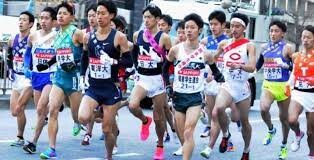
Looking at the average PBs of the 10 fastest runners on each team, out of the 19 teams that raced Hakone last year and are back this year, 17 have gotten faster over 5000 m since last year, 17 faster over 10000 m, and 14 slower over the half marathon. It couldn't be clearer: out of necessity, coaches have shifted focus from the half marathon to the 5000 m and 10000 m, and the level at those distances has come way up. 12 of the 21 teams have a 10-man average 5000 m time under 14 minutes, 16 have a 10000 m average under 29 minutes, and only 2 have a half-marathon average under 63 minutes. Even last year, when the lack of half marathons was already an issue, it was nowhere near that, with 8 teams sub-14, 10 sub-29, and 5 sub-63. 16 teams have at least one runner 28:10 or faster for 10000 m. 12 have someone 13:40 or better for 5000 m. Only 5 have someone under 62 minutes for the half. Shoes are no doubt part of it, but given the decline in the half marathon they're not the whole story. It'd be interesting to speculate what kind of impact this is going to have on the next generation of marathoners, and what would happen if the focus shifted further to 1500 m and 5000 m.
At any rate, the shift that has happened makes the job of ranking teams harder. Defending champ Komazawa has the best 5000 m and 10000 m 10-man averages, 13:41.71 and 28:24.64, but almost nobody on the team has run a serious half marathon. 2nd-tier teams that had to run October's Yosenkai qualifier half marathon have quality half marathon times on the books and look better on paper relative to top-tier teams like Komazawa than they probably really are. Other teams like last year's 3rd-placer Toyo University publicized that they were doing a half marathon time trial in place of November's Ageo City Half Marathon but didn't publicize the results, leaving them way farther down the rankings than they should be. We've tweaked our rankings formula to try to account for all this, but as with last year you can be sure that there's more unpredictability than usual.
Aoyama Gakuin University has won Hakone 5 of the last 7 years and is the favorite. 2nd at both the Izumo Ekiden and National University Ekiden this season, AGU is one of only 3 teams in the field to be better over 5000 m, 10000 m and half marathon than it was last year, when it was 4th at Hakone, and one of only two with sub-14, sub-29 and sub-63 10-man averages. Two weeks after the National University Ekiden it had 6 people total under 63 minutes in two half marathons, so whatever it lacked at the shorter ekidens you can be sure AGU's head coach Susumu Hara isn't letting the team's stamina slide.
AGU's two strongest competitors on paper are this year's and last year's Yosenkai qualifier winners Meiji University and Juntendo University. But it's one thing to win the qualifier, making you the #11 team in the Hakone field, and something else to go for the overall win. Meiji has a history of not performing well at Hakone, and last year Juntendo struggled in part because star 1st-year Ryuji Miura had suffered an injury while training for the National Championships 3000 mSC a month before Hakone. Running up to potential would put either into contention, but as Soka head coach Kazutaka Enoki said right after last year's loss, "It's not that easy."
Komazawa, Tokyo Kokusai University and Toyo could all be up at this level despite being ranked further down the field due to their lack of experience with the half marathon. Komazawa's trending in that direction after finishing 5th at Izumo and then winning the longer Nationals, while TKU and Toyo are the opposite, TKU winning Izumo and taking 5th at Nationals, and Toyo going 3rd and 10th. The most likely scenario for TKU is to stack the first three stages with its top 3 Vincent Yegon, Masaya Yamatani and Ken Tansho to build up a big Day One lead and then try to hang on through Day Two like Soka attempted last year. That would set up a potential duel between Yegon and Komazawa's Ren Tazawa, maybe with Miura, the 3000 mSC NR holder, 7th in the steeple final at the Tokyo Olympics, and the U20 half marathon NR holder, in the mix. Given that Tazawa beat 2021 Hakone MVP Yegon over 10000 m earlier this month, it would be one of the highlights of this year's race.
Toyo will have former H.S. 5000 m NR holder Kosuke Ishida making his Hakone debut, one of the other highlights to watch for. Teikyo University is in the same situation as TKU and Toyo, and given a stable history at Hakone it should probably be included among the contenders for top 10. That leaves only the debuting Surugadai University and bottom-ranked Senshu University on the list of non-contenders, making for what could be one of the most competitive Hakones in memory.
One of the things that NTV does so well on its broadcast, especially on Day Two, is to cover multiple plot lines. With so many good teams this year there should be a lot of turnover around the dividing line between 10th and 11th keeping their production crew busy. Things can get complicated if the leading team gets too far ahead, so in prep for the race take a few minutes to read this guide to understanding elements of the ekiden format like white sash starts and race strategy. See you at 7:00 a.m. Sunday morning.
by Brett Larner
Login to leave a comment
Githae wins final edition of Fukuoka Marathon
Michael Githae was victorious at the 75th and final edition of Fukuoka International Marathon on Sunday (5), winning the World Athletics Elite Label road race in 2:07:51.
Githae, who runs for Suzuki track team, improved his previous best of 2:08:17, which he set when finishing fourth at last year’s Fukuoka Marathon. Japan’s Kyohei Hosoya finished second, 25 seconds adrift of Githae.
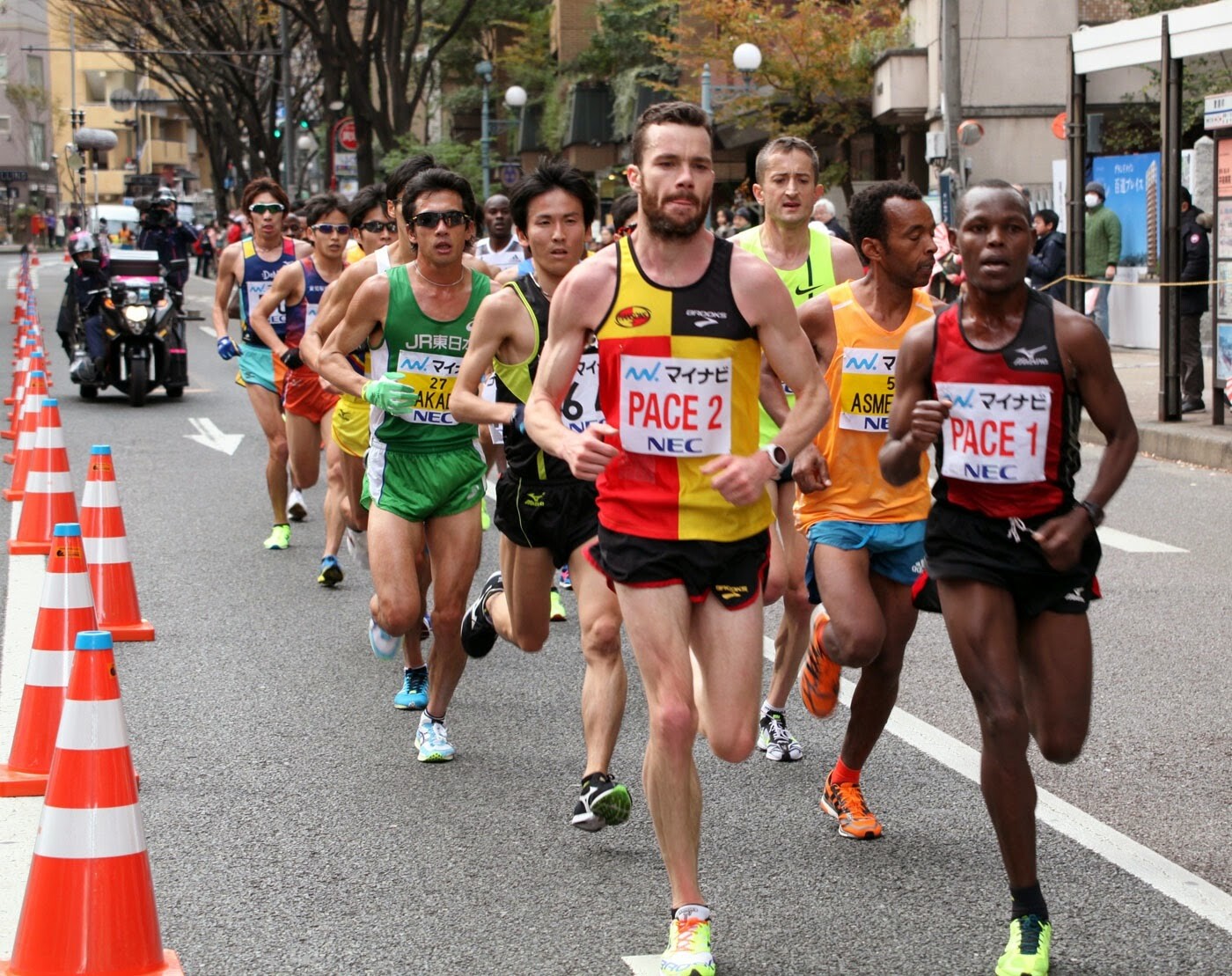
The pacers, led by 2012 Olympian Yuki Sato, directed the huge lead pack through 5km (14:47), 10km (29:39), 15km (44:30) and 20km (59:24) in what turned out to be something of a race of attrition. Yuta Shitara was one of the athletes to fall out of contention before the half-way stage; the former national marathon record-holder dropped out at 20km.
The half-way point was reached in 1:02:41, meaning an attack on the 2:05:18 course record was not out of the question. Simon Kariuki and Charles Wanjiku kept the pace going at the start of the second half, and 30km was reached in 1:29:08. But the pacemakers dropped out soon after, and the pace dramatically slowed down.
Nevertheless, the pack became strung out to almost a single file, and by 34km just Githae, James Rungaru, Hosoya and Ryu Takaku remained in contention. Soon after, Githae surged and Hosoya made a valiant effort to stay close but Githae gradually pulled away to win by 25 seconds in 2:07:51.
In third, Rungaru set a PB of 2:08:25, while fourth-placed Shohei Otsuka and Ryu Takaku and Daisuke Uekado in fifth and sixth respectively were just outside their PBs. Yuki Kawauchi, running his 12th Fukuoka Marathon, fittingly finished 12th in 2:11:33. He is planning on running the Hofu Marathon in two weeks’ time.
Looking back at Fukuoka's history
The Fukuoka International Marathon – which was awarded a World Athletics Heritage Plaque in 2019 – started in 1947 and is the second oldest marathon in Japan behind the now defunct Lake Biwa Marathon.
In its 75-year history, the world record was broken twice there – first in 1967 when Derek Clayton became the first runner to break 2:10 with 2:09:37, and then in 1981 when fellow Australian Rob de Castella ran 2:08:18.
De Castella isn’t the only global marathon champion to have contested the race over the years. Frank Shorter, the 1972 Olympic champion, notched up four consecutive Fukuoka Marathon victories between 1971 and 1974. 2000 Olympic champion Gezahegn Abera won in 1999, 2001 and 2002, while 1996 Olympic champion Josiah Thugwane won in 1997. The late Samuel Wanjiru, winner of the 2008 Olympic title, made a remarkable marathon debut in Fukuoka in 2007, winning in 2:06:39. And two-time world champion Jaoud Gharib won in 2010.
Numerous world record-holders have also competed in Fukuoka, including Haile Gebrselassie (winner in 2006), Belayneh Dinsamo (1990 winner) and Patrick Makau (2014 and 2015 champion).
Japanese runners have also enjoyed moments of victory in Fukuoka. Toshihiko Seko won four times (1978-1980 and 1983), and Takeyuki Nakayama won twice (1984 and 1987). During his 1987 run, Nakayama was on world record pace through 20km (58:37) and 35km until a heavy downpour in the closing stages slowed him down, and he eventually finished in 2:08:18.
When asked about the end of the Fukuoka Marathon, four-time winner Seko said: “It is like part of my history is being erased.”
Japan Running News, a leading authority on the sport in Japan, has produced a docu-film on the Fukuoka Marathon, entitled ‘Inside the Outside – When the World Came to Fukuoka’.
Leading results
1 Michael Githae (KEN) 2:07:512 Kyohei Hosoya (JPN) 2:08:163 James Rungaru (KEN) 2:08:254 Shohei Otsuka (JPN) 2:08:335 Ryu Takaku (JPN) 2:08:386 Daisuke Uekado (JPN) 2:08:567 Kohei Futaoka (JPN) 2:09:148 Masaya Taguchi (JPN) 2:09:359 Toshiki Sadakata (JPN) 2:10:3110 Takuma Kumagai (JPN) 2:10:4111 Ryota Komori (JPN) 2:11:3212 Yuki Kawauchi (JPN) 2:11:33
Login to leave a comment
Hosoya, Takaku and Uekado Will Lead Fukuoka International Marathon's Final Elite Field
With just over a month to go until its final edition, on Nov. 1 the organizers of the Fukuoka International Marathon held a press conference to announce its last elite field. For the second year in a row it's domestic-only, headlined by Kyohei Hosoya (Kurosaki Harima), 2:06:35 at the final Lake Biwa Marathon this past spring, Ryu Takaku (Yakult), 2:06:45 in Tokyo last year, and Daisuke Uekado (Otsuka Seiyaku), 2:06:54 in Tokyo just behind Takaku.
Out of a total field of 124, along with the 3 sub-2:07 guys there are 11 sub-2:08, 18 sub-2:09, 25 sub-2:10 and many more at the sub-2:11 and sub-2:12 levels. It's an even bigger front end than was on the entry list at the record-breaking final Lake Biwa Marathon earlier this year, and for a domestic field it's one worthy of sending off Fukuoka's 75-year history. Last year's winner Yuya Yoshida (GMO), who was scheduled to run October's Tokyo Marathon before it was postponed until March, is absent.
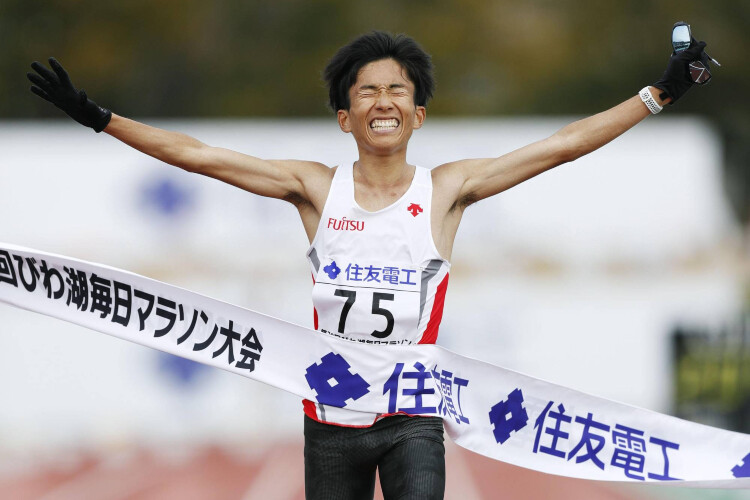
With Japan still holding tight to its border closures the international component of the field is covered by Japan-based internationals Michael Githae (Suzuki), 2:08:17 in Fukuoka last year, Mongolian NR holder Ser-Od Bat-Ochir (Mie T&F Assoc.) past Marugame Half winner Paul Kuira (JR Higashi Nihon), James Gitahi Rungaru (Chuo Hatsujo), Daniel Muiva Kitonyi (Track Tokyo), and the debuting Nicholas Kosimbei (YKK).
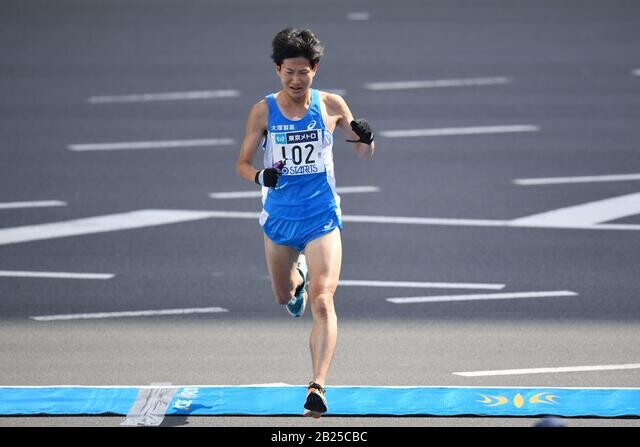
complete field listing
Kyohei Hosoya (Kurosaki Hariima) - 2:06:35 (Lake Biwa 2021)
Ryu Takaku (Yakult) - 2:06:45 (Tokyo 2020)
Daisuke Uekado (Otsuka Seiyaku) - 2:06:54 (Tokyo 2020)
Toshiki Sadakata (Mitsubishi Juko) - 2:07:05 (Tokyo 2020)
Shuho Dairokuno (Asahi Kasei) - 2:07:12 (Lake Biwa 2021)
Shin Kimura (Honda) - 2:07:20 (Tokyo 2020)
Yuki Kawauchi (ANDS) - 2:07:27 (Lake Biwa 2021)
Shohei Otsuka (Kyudenko) - 2:07:38 (Fukuoka Int'l 2020)
Masaru Aoki (Kanebo) - 2:07:40 (Lake Biwa 2021)
Yuta Shitara (Honda) - 2:07:45 (Tokyo 2020)
Atsumi Ashiwa (Honda) - 2:07:54 (Lake Biwa 2021)
Natsuki Terada (JR Higashi Nihon) - 2:08:03 (Fukuoka Int'l 2020)
Kento Otsu (Toyota Kyushu) - 2:08:15 (Lake Biwa 2021)
Michael Githae (Kenya/Suzuki) - 2:08:17 (Fukuoka Int'l 2020)
Junichi Tsubouchi (Kurosaki Harima) - 2:08:35 (Lake Biwa 2021)
Yuji Iwata (Mitsubishi Juko) - 2:08:45 (Tokyo 2020)
Kazuma Kubo (Nishitetsu) - 2:08:53 (Lake Biwa 2021)
Kenta Murayama (Asahi Kasei) - 2:08:56 (Berlin 2019)
Chihiro Miyawaki (Toyota) - 2:09:04 (Tokyo 2020)
Kohei Futaoka (Chudenko) - 2:09:15 (Beppu-Oita 2019)
Shoma Yamamoto (NTT Nishi Nihon) - 2:09:18 (Lake Biwa 2020)
Ser-Od Bat-Ochir (Mongolia/Mie T&F Assoc.) - 2:09:26 (Lake Biwa 2021)
Yoshiki Takenouchi (NTT Nishi Nihon) - 2:09:31 (Fukuoka Int'l 2020)
Takahiro Nakamura (Kyocera Kagoshima) - 2:09:40 (Lake Biwa 2021)
Paul Kuira (Kenya/JR Higashi Nihon) - 2:09:57 (Fukuoka Int'l 2020)
Jo Fukuda (NN Running Team) - 2:10:32 (Beppu-Oita 2020)
Ryota Komori (NTN) - 2:10:33 (Lake Biwa 2021)
Yuki Nakamura (Sumitomo Denko) - 2:10:47 (Lake Biwa 2021)
Takuma Shibata (Komori Corp.) - 2:10:48 (Hofu 2020)
Koshiro Hirata (SG Holdings) - 2:10:50 (Lake Biwa 2021)
Shota Saito (JFE Steel) - 2:10:50 (Beppu-Oita 2020)
Asuka Tanaka (Runlife) - 2:11:07 (Fukuoka Int'l 2020)
Taiki Suzuki (Eldoreso) - 2:12:09 (Fukuoka Int'l 2019)
Keita Shitara (Hitachi Butsuryu) - 2:12:13 (Tokyo 2020)
James Gitahi Rungaru (Kenya/Chuo Hatsujo) - 2:12:54 (Hofu 2020)
Daniel Muiva Kitonyi (Kenya/Track Tokyo) - 2:14:41 (Nagano 2019)
Debut
Nicholas Mboroto Kosimbei (Kenya/YKK) - 1:00:21 (Lisbon Half 2019).
by Brett Larner
Login to leave a comment
Fukuoka Marathon
The Fukuoka International Open Marathon Championship is one of the longest running races in Japan, it is alsoan international men’s marathon race established in 1947. The course record is held by Tsegaye Kebede of Ethiopia, running 2:05:18 in 2009. Frank Shorter won first straight years from 1971 to 1974. Derek Clayton set the World Record here in 1967 running 2:09:37. ...
more...Nairobi Marathon introduces virtual run event
The week-long virtual run kicked off on Monday ahead of the Standard Chartered Nairobi Marathon proper this Sunday on Nairobi's Southern Bypass.
Thika, Kisumu, Kakamega, Nakuru, Kitale, Siaya, Eldoret, Kericho, Mombasa, Meruand Nanyuki are among the towns segmented for participants to join other runners for the virtual run.
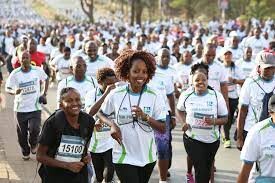
In Nairobi, participants are expected to converge in the green spaces including Sanctuary, Karura and Arboretum.
The virtual marathon targets 13,500 participants as organisers seek to encourage active lifestyles while the physical marathon will be limited to 2,500 elite runners.
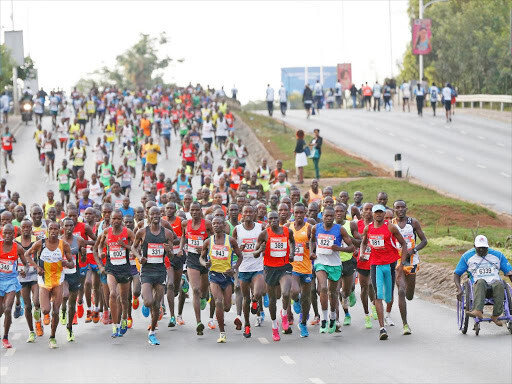
Standard Chartered Bank-Kenya CEO Kariuki Ngari, said: “We are excited to be running here today for the virtual marathon.
"The registration is still open, and I urge Kenyans to register and be part of the marathon.
"They can participate virtually at their own space and time and be part of physical marathon dependent with their qualification time.”
Participants will be required to sign up for the challenge either in 5Km, 10km, 21km, 42km or 42km relay.
The chairman of the Local Organizing Committee Peter Gitau said: “The kit collection exercise is still ongoing. For participants in Nairobi, they can pick their kit at KICC.
"For the ones across the country, they will be delivered at our offices across the country. For the international participants, we have partnered with DHL to have them delivered."
by Evans Ousuru
Login to leave a comment
NAIROBI MARATHON
Nairobi Marathon is an annual road running competition over the marathon distance held in October in Nairobi, Kenya. First held in 2003, the competition expanded and now includes a half marathon race along with the main race. It was part of "The Greatest Race on Earth", fully sponsored by Standard Chartered Bank....
more...Big's Backyard Ultra World Championship has begun
Big’s Backyard Ultra World Championships, Laz Lake’s infamous last-person-standing ultra, started at 7 a.m. Central this morning in Bell Buckle, Tenn. with 36 runners from 10 countries qualified at backyard races around the world to toe the line today. Watch for Canadians Dave Proctor, Stephanie Simpson, Matt Shepard, Eric Deshaies and Terri Biloski, with the action likely to continue until Monday.
The rules are simple: the course is a 4.1667-mile (6.7 km) trail loop (a.k.a. yard), which switches to a road loop at night. (The rationale for the length of the loop is that using this formula, 100 miles takes exactly 24 hours.) A new yard starts every hour on the hour. Runners must complete each loop under the one-hour cutoff and be ready on the start line for the next yard. A warning whistle is blown at three, two and one minute before the cutoff. If you fail to finish before the hour is up, it’s a DNF. If you fail to start (and make forward progress) at the top of the next hour, that’s a DNF. This continues until only one runner is left.
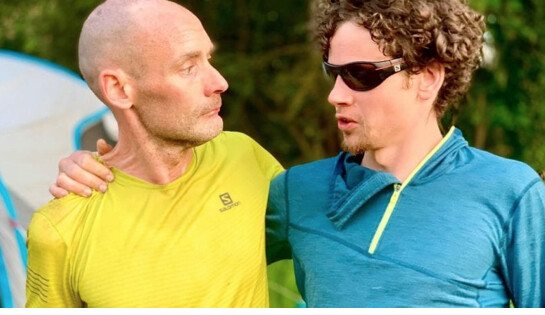
In the early hours of the race, most runners have time to spare after finishing each yard, and they use this time to refuel, use the bathroom, tweak their gear and rest. As the hours wear on and their pace gets slower, they have less and less time before lining up for the next yard.
As the race goes on and fatigue sets in, the dilemma becomes, where is the sweet spot between expending as little energy as possible while maximizing rest time between yards? In other words, the faster you complete the yard, the more rest time you get before the next yard – but you also fatigue more quickly.
This year’s starting list
This year’s competitors include seven women, two of whom are former Big’s champions Courtney Dauwalter and Maggie Guterl. Courtney holds the record for the most yards run at the Big’s course in Tennessee (68). The world record for the backyard format was set by John Stocker of the U.K. in June 2021, with 81 yards, eclipsing Karel Sabbe’s previous WR of 75 yards, set at last year’s Big’s world championships, on his home course in Belgium.
Here are this year’s contenders, with their country, age and qualifying number of yards. (Unfortunately, due to travel restrictions, most runners from Europe were not able to participate this year.)
Courtney Dauwalter, USA, 36 (68 yards – i.e., 455.6 kilometres over 68 hours)
Harvey Lewis, USA, 45 (67 yards)
Gavin Woody, USA, 44 (64 yards)
Michael Wardian, USA, 47 (63 yards)
Maggie Guterl, USA, 41 (60 yards)
Amy Masner, Ireland, 47 (59 yards)
Steve Slaby, USA, 40 (57 yards)
Chris Roberts, USA, 36 (56 yards)
Jennifer Russo, USA, 55 (54 yards)
Yukinori Yushida, Japan, 52 (54 yards)
Terumichi Morishita, Japan, 41 (53 yards)
Dave Proctor, Canada, 40 (52 yards)
Jon Noll, USA, 36 (50 yards)
Jacob Conrad, USA, 36 (49 yards)
Katie Wright, New Zealand, 34 (49 yards)
Gabe Rainwater, USA, 33 (48 yards)
Sarah Moore, USA, 33 (48 yards)
Chris Murphy, Australia, 37 (46 yards)
Stephanie Simpson, Canada, 35 (43 yards)
Ron Wireman, USA, 40 (43 yards)
Fanny Jean, France, 41 (42 yards)
Matthew Shepard, Canada, 34 (42 yards)
Hisayuki Tateno, Japan, 50 (42 yards)
Shawn Webber, USA, 47 (42 yards)
Mathieu Weiner, USA, 54 (42 yards)
Piotr Chadovich, USA, 43 (41 yards)
Morton Klingenberg, Denmark, 36 (39 yards)
Chris Boyle, USA, 42 (38 yards)
Andres Villegran, Ecuador, 37 (38 yards)
Will Rivera, USA, 51 (37 yards) (DNS)
Eric Deshaies, Canada, 48 (35 yards)
Vincent Barrientos, USA, 40 (34 yards)
Haim Malki, Israel, 44 (34 yards)
Terri Biloski, Canada, 45 (33 yards)
Jason Bigonia, USA, 44 (32 yards)
Mark Begg, USA, 47 (26 yards)
by Running Magazine
Login to leave a comment
Kenyan Geoffrey Kirui looks to upstage opponents in Boston
Former Boston Marathon Geoffrey Kirui is hopeful of pulling another surprise when he lines up for the 2021 Boston Marathon on Monday.
Boston Marathon, the fourth race in the Abott World Marathon Majors series, shall be held a day after Sunday’s Chicago Marathon, has attracted a good number of participants in the elite field.
Kirui, who won the 2017 Boston Marathon, is happy to get back to competition, having been idle for more than a year following the suspension of sporting activities due to the Coronavirus pandemic.
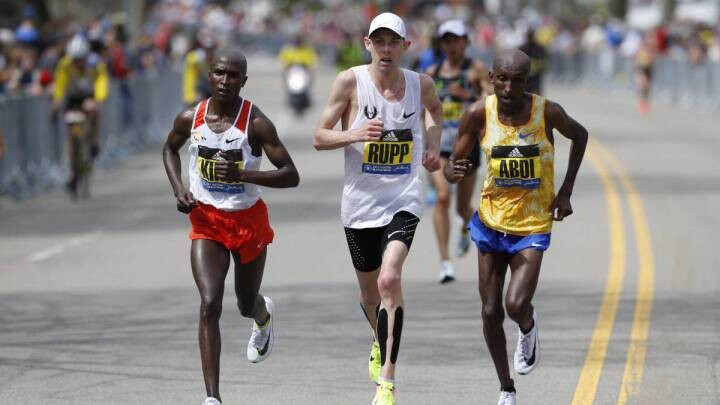
“Participating the 2021 Boston Marathon again brings good memories for me. I love the course. I have been training for a long period of time with no opportunity to compete due to the Covid-19 pandemic but I’m happy I will be running on Sunday,” Kirui, who has a personal best time of 2 hours, 06 minutes and 27 seconds, told Nation Sport early this week in Eldoret before flying out to the USA.
He said having been out of competition for a long time puts him in a tricky situation because on Sunday, he will come up against strong opponents.
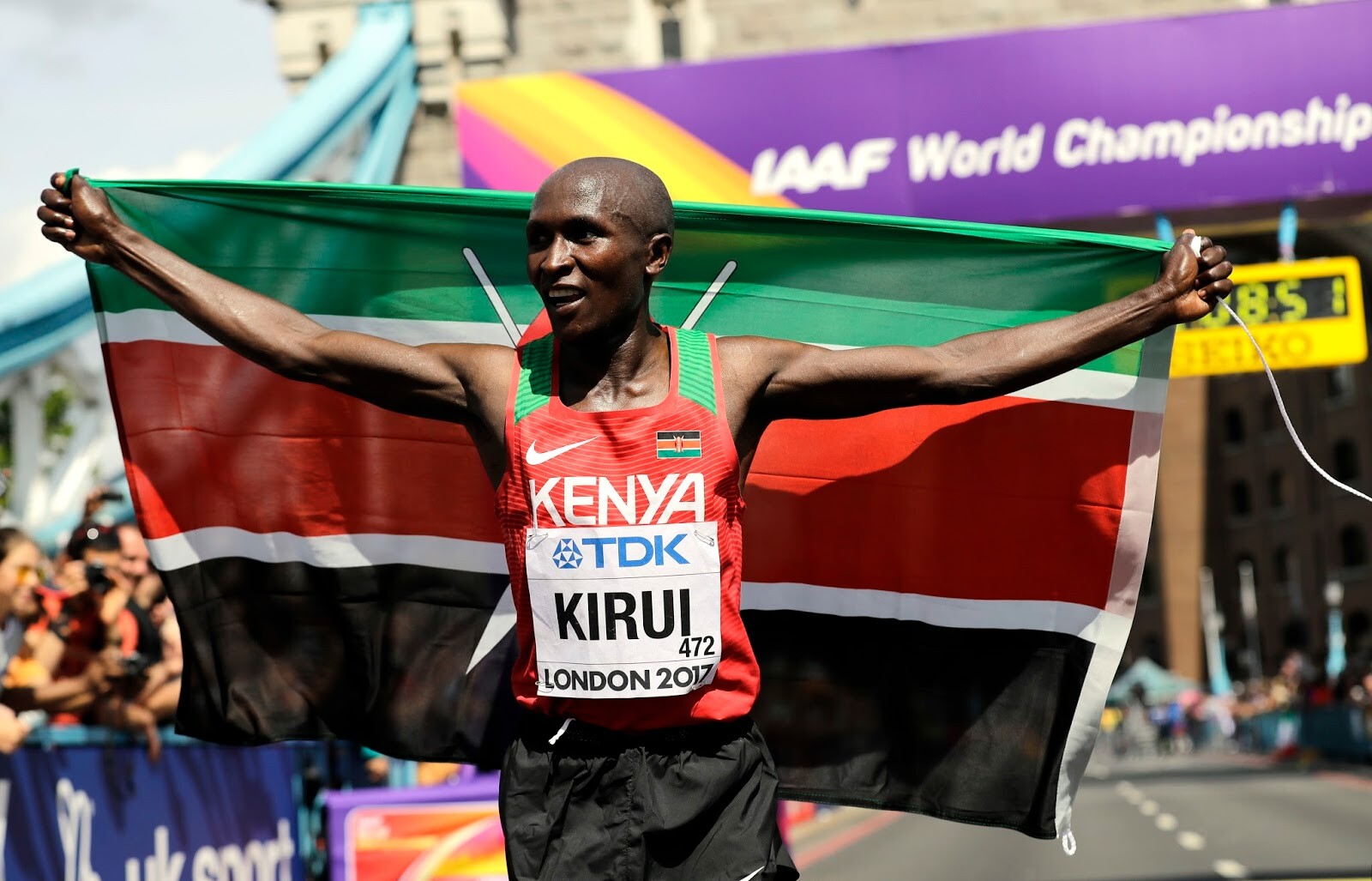
“I want to run my best time in Boston. We have been out of competition for a long period and it’s really difficult to gauge how strong the field will be when we line up for the race. I just want to run well and be in the podium at the end of the day,” Kirui, who belongs to the Global Sports Communication, said.
He has been training at both Keringet in Nakuru County and at Kaptagat in Elgeyo Marakwet County. He counts himself lucky to be enjoying unfettered access to a physiotherapist attached tothe Global Sports Communication.
“In some occasions, I normally join my training mates Eliud Kipchoge and others at Kaptagat, and they push me to the limit. The camp also has a full-time physiotherapist which is good for an athlete especially when one is preparing for a race,” said Kirui.
His last race was the 2019 Boston Marathon. He finished 14th in the race, something he is keen to improve this year.
He has good memories of the 2017 edition of the race which he won against a strong team in a time of 2:09:37 which earned him a ticket to represent Kenya at the 2017 World Athletics Championships in London. Kirui went on to win gold for Kenya in the English capital.
In 2018, his bid to retain the Boston Marathon title went up in flames. He timed 2:18:53 to finish second behind Japan’s Yuki Kawauchi (2:15:58) in bad weather.
by Bernard Rotich
Login to leave a comment
Boston Marathon
Among the nation’s oldest athletic clubs, the B.A.A. was established in 1887, and, in 1896, more than half of the U.S. Olympic Team at the first modern games was composed of B.A.A. club members. The Olympic Games provided the inspiration for the first Boston Marathon, which culminated the B.A.A. Games on April 19, 1897. John J. McDermott emerged from a...
more...Former world marathon champion Geoffrey Kirui will lead stellar field for October's Boston Marathon
Geoffrey Kirui will be the man to beat at this year's Boston Marathon slated for October 11.
Kirui, who won the event four years ago, will be seeking to capture a second title on the famous street in Boston.
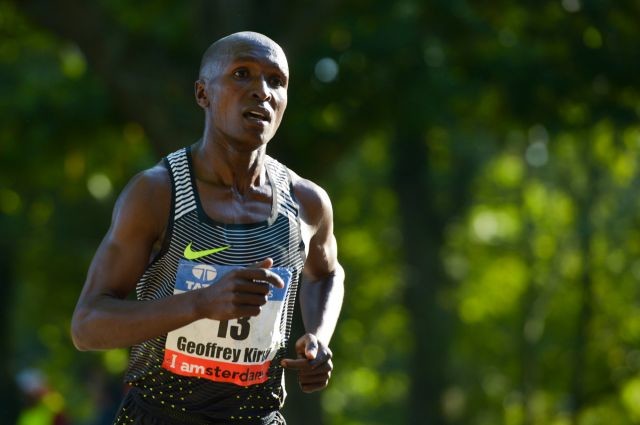
“Last year was a tough one for everyone. Boston is, for me, the exact right motivation and light at the end of the tunnel, as it will be for all returning champions and participants. This is the marathon where I feel at home, and I have big dreams for October,” Kirui said.
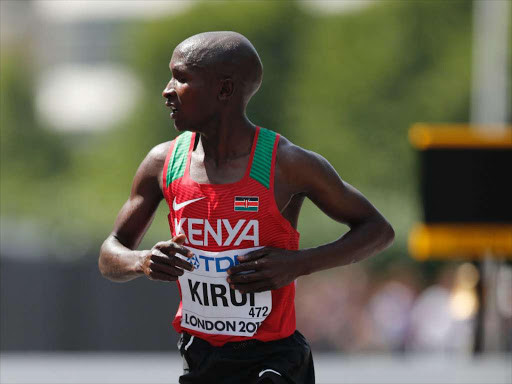
Others to look for out are Lemi Berhanu from Ethiopia, best known for skipping across the Boylston Street finish en-route to winning in 2016.
Yuki Kawauchi, winner of more than 30 international marathons and the Japanese record holder in the 50K, looks to become the first man from Japan since Toshihiko Seiko in 1987 to earn two Boston Marathon titles.
by William Njuguna
Login to leave a comment
Boston Marathon
Among the nation’s oldest athletic clubs, the B.A.A. was established in 1887, and, in 1896, more than half of the U.S. Olympic Team at the first modern games was composed of B.A.A. club members. The Olympic Games provided the inspiration for the first Boston Marathon, which culminated the B.A.A. Games on April 19, 1897. John J. McDermott emerged from a...
more...Elite field for 125th Boston Marathon will include 13 former champions
The field for the 125th Boston Marathon will include 13 former champions with a combined 30 first-place Boston finishes, the Boston Athletic Association announced on Wednesday. The group competing on Oct. 11 includes World Athletics Marathon champions, Paralympic medalists, Abbott World Marathon Majors winners, and Olympians.
Four of the last five women’s open champions are scheduled to run: American Desiree Linden (2018), a two-time Olympian; Kenyan Edna Kiplagat (2017), a two-time World Athletics Marathon Championships gold medalist; Kenyan Caroline Rotich (2015); and Atsede Baysa (2016).
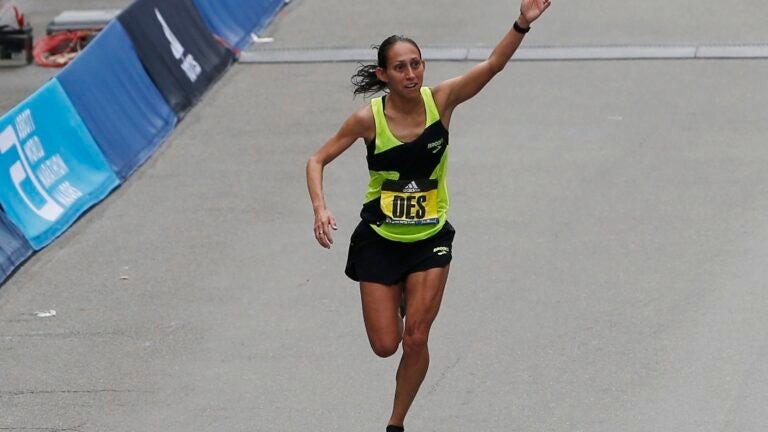
Two-time champion and course record holder Manuela Schär returns to defend her title in the women’s wheelchair race. Schär, a three-time Paralympic medalist from Switzerland, won Boston in 2017 and 2019 and is the only woman to have clocked a sub-1:30 marathon. Also among the wheelchair contenders is five-time Boston champion and 17-time Paralympic medalist Tatyana McFadden, who will race the 400 meters, 800 meters, 1500 meters, 5000 meters, and the marathon at the Tokyo Paralympic Games for Team USA.
The three returning men’s champions have all posted lifetime bests under 2:07:30. They are Kenya’s Geoffrey Kirui (2017), Ethiopia’s Lemi Berhanu (2016), and Yuki Kawauchi (2018), who will attempt to become the first man from Japan since Toshihiko Seiko in 1987 to earn two Boston Marathon titles.
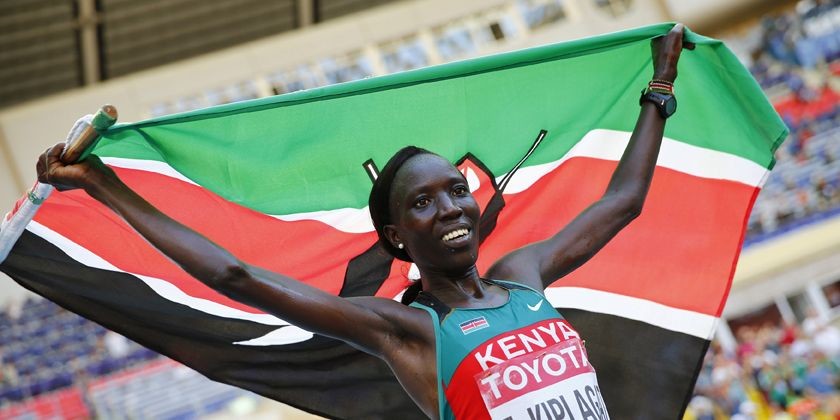
Four men’s wheelchair champions with a combined 16 titles will return, including defending champion Daniel Romanchuk of Illinois. The 2016 and 2021 Paralympian for Team USA made history by winning the 2019 race and Abbott World Marathon Majors Series XII at just 20 years old. Course record holder Marcel Hug of Switzerland, who had four straight wins from 2015-18, is back. Ernst van Dyk of South Africa, the most decorated champion in race history with 10 titles, also will compete, as will 2012 winner and former course record holder Josh Cassidy of Canada.
The race also features restructured prize money awards that will include equal course record bonuses for the open and wheelchair divisions and the introduction of prize money for the inaugural para athletics divisions. Boston will be the first Abbott World Marathon Major event to offer equal $50,000 course record bonuses across open and wheelchair divisions, and the first event to provide a designated prize purse for athletes with upper limb, lower limb, and visual impairments.
“We are delighted to welcome so many champions from such a diverse range of competition back to Boston for the 125th running of the Boston Marathon,” said Tom Grilk, BAA president and CEO. “While October’s race marks a long-awaited return to racing, it will also recognize and celebrate the many world-class athletes competing for an historic prize purse across multiple divisions.”
by Andrew Mahoney
Login to leave a comment
Boston Marathon
Among the nation’s oldest athletic clubs, the B.A.A. was established in 1887, and, in 1896, more than half of the U.S. Olympic Team at the first modern games was composed of B.A.A. club members. The Olympic Games provided the inspiration for the first Boston Marathon, which culminated the B.A.A. Games on April 19, 1897. John J. McDermott emerged from a...
more...Japan named host nation’s team for Olympic Games
Japan has named a team of 65 athletes to represent the host nation at the Tokyo Olympic Games.
The line-up features world 20km race walk champion Toshikazu Yamanishi along with four members of the 4x100m squad that took bronze at the World Athletics Championships Doha 2019.
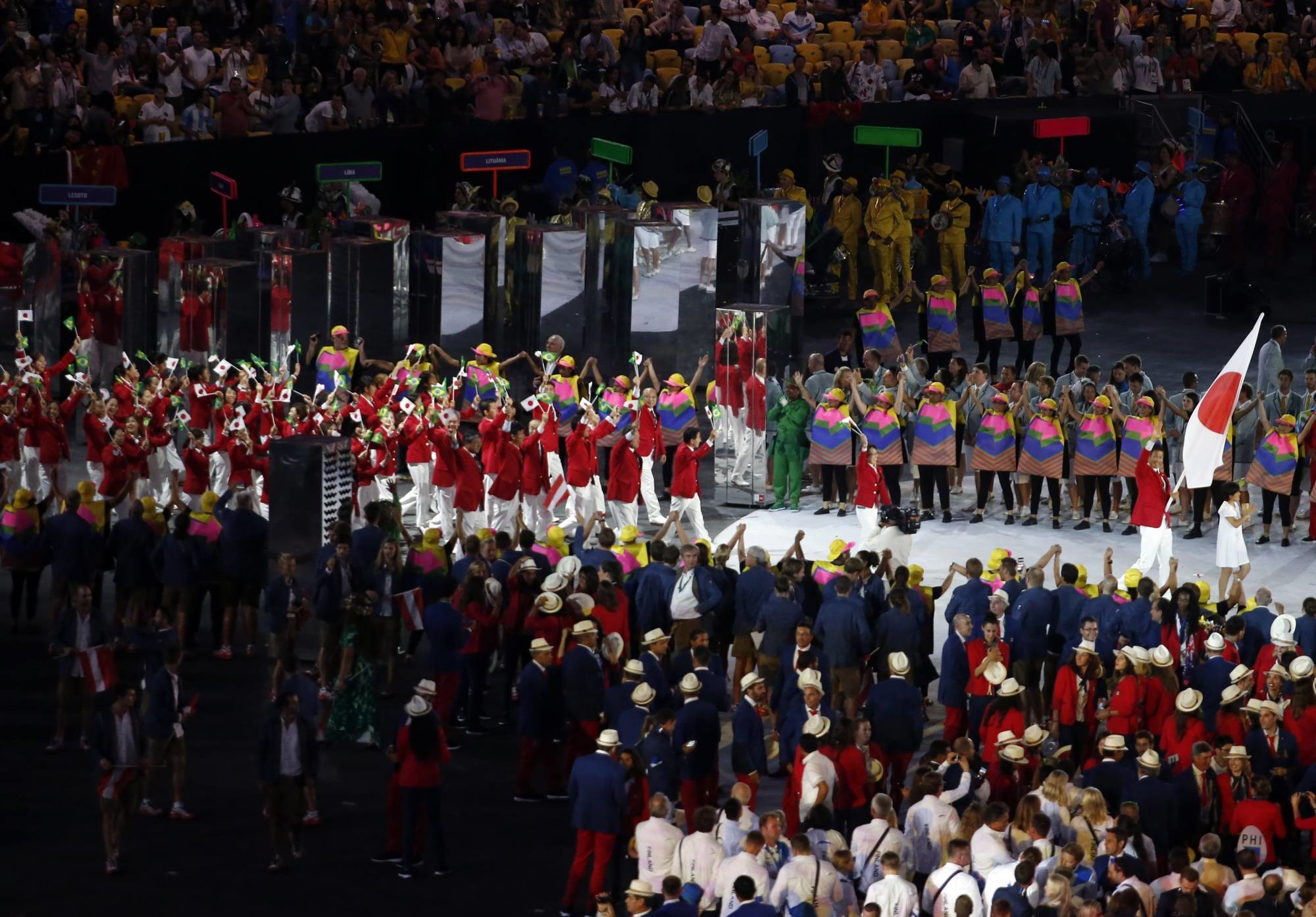
Thirteen individual national record-holders have also been selected, including 100m sprinter Ryota Yamagata, middle-distance runner Nozomi Tanaka, sprint hurdlers Shunsuke Izumiya and Asuka Terada, race walker Masatora Kawano and javelin thrower Haruka Kitaguchi.
Japan had named its marathon squad last year following a highly competitive selection process.
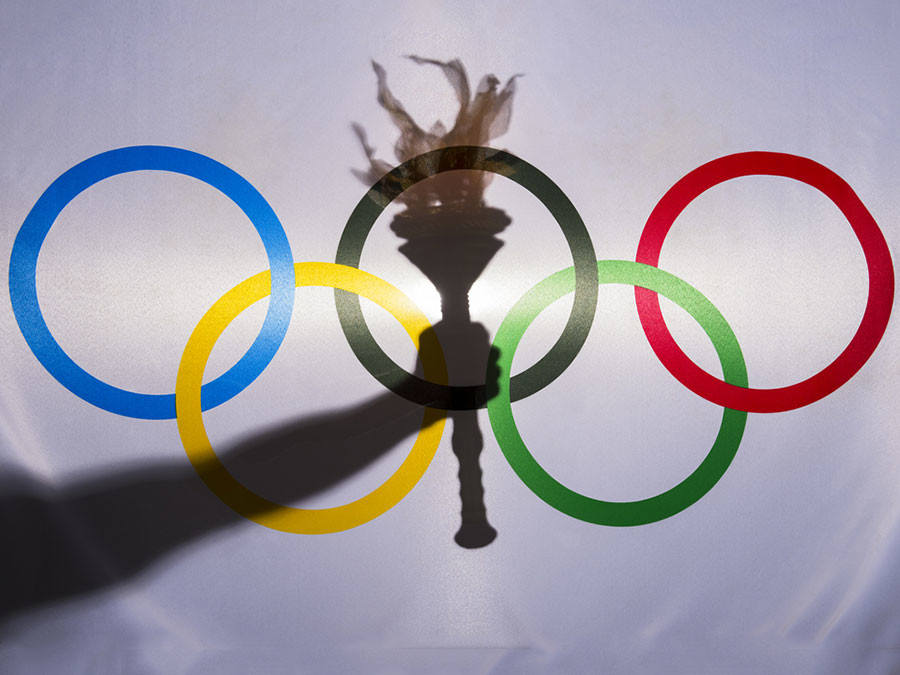
Japanese team for Tokyo
WOMEN
1500m: Nozomi Tanaka, Ran Urabe
5000m: Kaede Hagitani, Ririka Hironaka, Nozomi Tanaka
10,000m: Yuka Ando, Ririka Hironaka, Hitomi Niiya
Marathon: Mao Ichiyama, Honami Maeda, Ayuko Suzuki
3000m steeplechase: Yuno Yamanaka100m hurdles: Masumi Aoki, Ayako Kimura, Asuka Terada
Javelin: Haruka Kitaguchi
20km race walk: Nanako Fujii, Kaori Kawazoe, Kumiko Okada
4x100m: Hanae Aoyama, Yu Ishikawa, Mei Kodama, Ami Saito, Remi Tsuruta,
MEN
100m: Yuki Koike, Shuhei Tada, Ryota Yamagata
200m: Shota Iizuka, Hakim Sani Brown, Jun Yamashita
400m: Julian Walsh
5000m: Yuta Bando, Hiroki Matsueda
10,000m: Akira Aizawa, Tatsuhiko Ito
Marathon: Yuma Hattori, Shogo Nakamura, Suguro Osako
3000m steeplechase: Ryoma Aoki, Ryuji Miura, Kosei Yamaguchi
110m hurdles: Shunsuke Izumiya, Taioh Kanai, Shunya Takayama
400m hurdles: Kazuki Kurokawa, Abe Takatoshi, Hiromu Yamauchi
High jump: Takashi Eto, Naoto TobePole
vault: Masaki Ejima, Seito YamamotoLong
jump: Yuki Hashioka, Hibiki Tsuha, Shotaro Shiroyama
Javelin: Takuto Kominami
20km race walk: Koki Ikeda, Eiki Takahashi, Toshikazu Yamanishi
50km race walk: Hayato Katsuki, Masatora Kawano, Satoshi Maruo
4x100m: Bruno Dede, Yoshihide Kiryu, Yuki Koike, Shuhei Tada, Ryota Yamagata
4x400m: Rikuya Ito, Kaito Kawabata, Kentaro Sato, Aoto Suzuki, Julian Walsh.
by World Athletics
Login to leave a comment
Tokyo 2020 Olympic Games
Fifty-six years after having organized the Olympic Games, the Japanese capital will be hosting a Summer edition for the second time, originally scheduled from July 24 to August 9, 2020, the games were postponed due to coronavirus outbreak, the postponed Tokyo Olympics will be held from July 23 to August 8 in 2021, according to the International Olympic Committee decision. ...
more...Japanese Yuki Kawauchi has become the first person to run 100 sub-2:20 marathons
Guinness World Records (GWR) has recognized Japanese marathoner Yuki Kawauchi for becoming the first person to run 100 sub-2:20 marathons. Kawauchi hit triple digits at Japan’s Hofu Marathon in December, where he ran to a second-place finish in 2:10:26, and he recently posted his 101st sub-2:20 result after running a PB of 2:07:27 at Sunday’s Lake Biwa Mainichi Marathon in Otsu, Japan, where he finished 10th.
GWR awarded Kawauchi a certificate in 2018 after he ran the 78th sub-2:20 marathon of his career and overtook American Doug Kurtis for the most in history. That same year, Kawauchi won the Boston Marathon (crossing the line in 2:15:58), and in 2019, he ran the 100th marathon of his career. At that point, he had broken 2:20 94 times.
Due to the pandemic, Kawauchi didn’t race as much as he normally would last year, but he did manage to run four marathons (for comparison, he ran 10 in 2018 and eight in 2019). He broke 2:20 at each of his races in 2020, and he is currently on a 15-race streak of marathons in which he has broken that barrier.
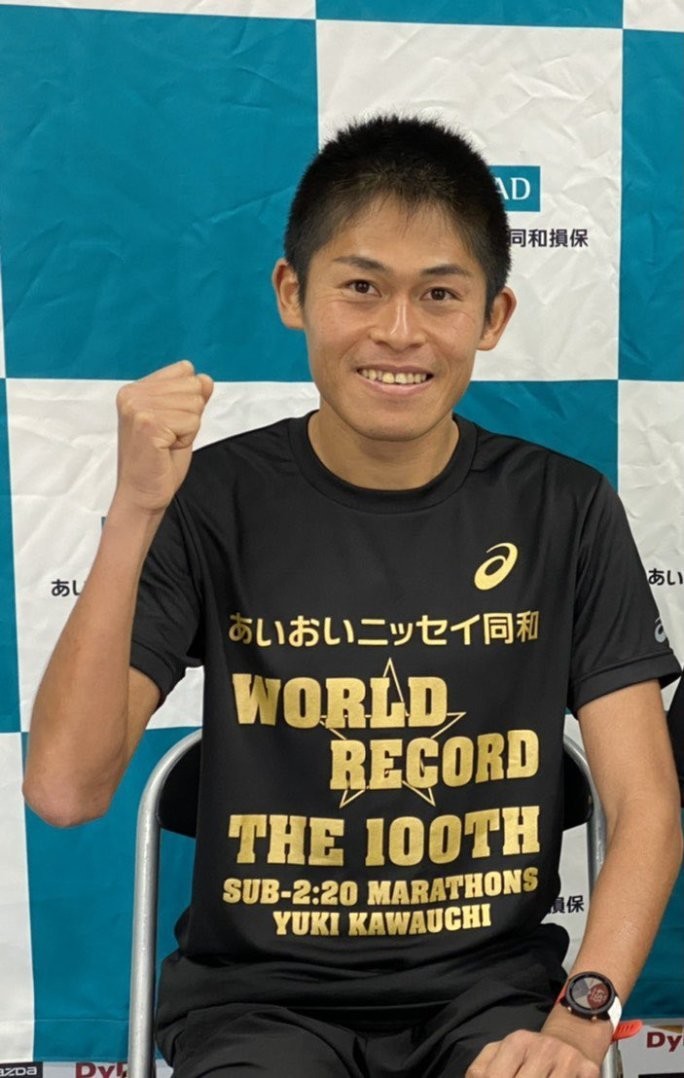
Kawauchi´s last marathon over 2:20 came in October 2018, when he ran 2:27:43 at the Venezia Marathon in Italy. Amazingly, he has run a whopping 109 marathons in his career, meaning he has only failed to break 2:20 on eight of those occasions.
"It might not to be difficult to run under 2:20 once,” Kawauchi said at an online press conference. “But even if it’s easy to achieve it once, in order to achieve that 100 times, you have to be able to continue the sport for a long time, you have to be able to participate in a lot of races, and more than anything you have to stay healthy. Otherwise, you can’t make it happen.”
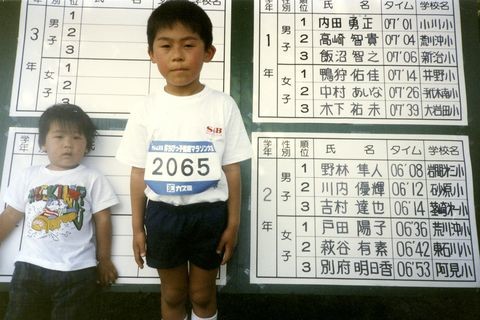
He continued, adding modestly, “With that said, I’m not the fastest in Japan, I’m not the strongest in Japan. But I’ve diligently continued this since I was six years old and it’s resulted in this record.”
Kawauchi turns 34 on Friday, and although he’s getting older, he is still capable of running PBs, as he showed at the Lake Biwa Marathon. He touched on this in the press conference, and he said he is confident he can continue to run this quickly for many years to come.
by Ben Snider-McGrath
Login to leave a comment
‘No Cheering’: Tokyo Olympic Organizers Release Guidelines For Torch Relay
The traditional prelude to the Olympics, the torch relay, will look – and sound – a bit different this year, as spectators are asked to avoid crowds and dampen their cheers when the torch passes by them.
Members of the Tokyo Organizing Committee announced a series of pandemic measures on Thursday, including leaving the option open for suspending portions of the relay should health officials deem it necessary.
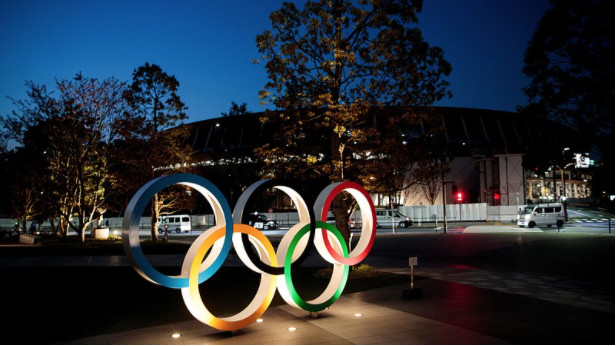
"No shouting, no cheering. Please cheer by clapping your hands and maintain appropriate distance in case there is crowding," Yukihiko Nunomura, the vice director general of the committee, said at a press conference Thursday, according to The Associated Press.
The subdued torch relay is set to begin March 25 in Fukushima and travel through Japan until July 23, the day of the Games' Opening Ceremony. The Olympics were delayed by a year because of the coronavirus pandemic.
About 10,000 torchbearers and others expected to take part in the torch relay, the AP added.
The organizing committee also released detailed safety protocols including what it calls avoidance of the "3C's:" closed spaces, crowded places, and close-contact settings.
It also asked that spectators not watch from the roadside if they feel sick, and encouraged them to wear facial coverings.
Officials are also allowing task forces from local governments to enforce "suspension of the Torch Relay on public roads and/or the hosting of only a Torch lighting ceremony with no spectators," if such safety protocols are required.
Additionally, torchbearers are asked to follow safety protocols in the lead up to their portion of the relay.
In the two weeks prior to their leg, according to official guidelines, "torchbearers will be asked to refrain from activities that may involve a risk of COVID-19 infection, such as eating out or going to crowded places."
In the 14 days prior to their portion of the relay, torchbearers must also submit a daily health checklist. On the day of their leg of the relay, if the torchbearers feel sick or suspect they are infected, they must immediately report it to the organizing committee staff.
If they have a temperature above 37.5 degrees Celsius (99.5 degrees Fahrenheit) they may be asked to refrain from running, according to the guidelines.
The embattled Tokyo Olympic Games have faced a number of headwinds besides the coronavirus.
Earlier this month, Japan chose Seiko Hashimoto, one of the nation's most prominent female politicians, to step in as its new organizing executive.
Her predecessor Yoshiro Mori resigned on Feb. 12 after making sexist remarks saying that women talk to much in meetings.
Following his resignation, International Olympic Committee President Thomas Bach issued a statement saying he respects Mori's decision to step down, and looks forward to working with his successor.
Despite the ongoing pandemic, organizers are pushing forward with planning the event, a daunting task that is scheduled to bring thousands of athletes, media and volunteers from around the world.
Few people in Japan are likely to be vaccinated by the time the Games open, The Guardian reported, increasing fears the event could trigger a new round of outbreaks there.
Login to leave a comment
Osaka Women´s Marathon is focused just on Japanese elite runners
Due to increasing infection rates in Japan the number of participants in the 40th Osaka Women’s Marathon on 31 January has been limited to 99 and the traditional course through the city changed to a 2.8km lap (x 15) in Nagai Park followed by the finish in the Yanmar Nagai Stadium.
For the same reasons foreign athletes have not been invited and the focus is entirely on the Japanese elite.
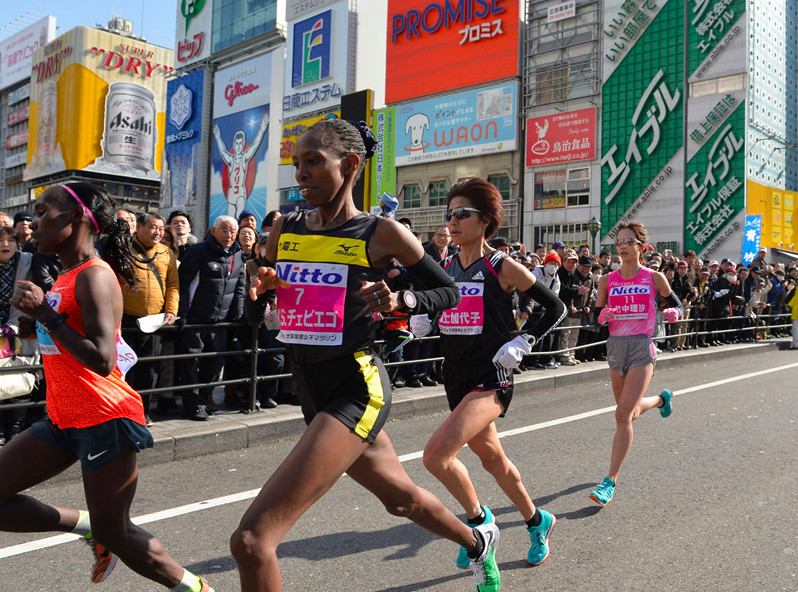
Among those running are Mao Ichiyama (JPN) and Honami Maeda (JPN), who have already qualified for their country’s Olympic team at the Marathon Grand Championships. Ichiyama won the Nagoya marathon in 2:20:29 last year, while Maeda won the Olympic qualification in 2:25:15 in September 2019.
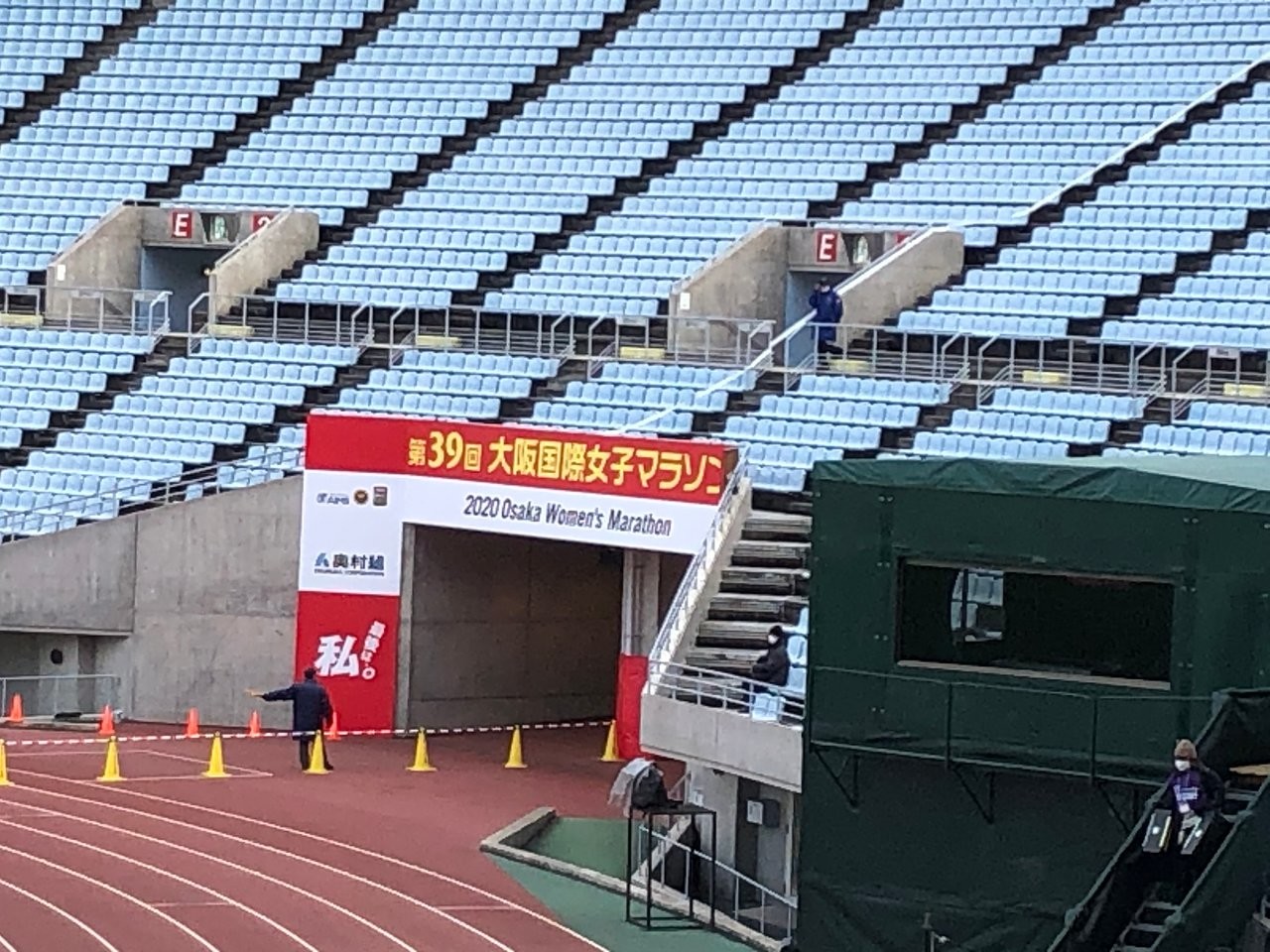
Her best time of 2:23:48 was second in Osaka in 2018, and in the same year she was seventh in 2:25:23 in the Berlin Marathon.
The organizers plan to attack the national record for the women’s marathon of 2:19:12 (set by Mizuki Noguchi at the 2005 Berlin Marathon). The two top runners, in another departure from tradition, will be paced by a total of six men, including the unattached runner Yuki Kawauchi (JPN) and Juji Iwata (JPN).
With personal bests of 2:08:14 and 2:08:45 respectively they are likely to maintain pacing duties until shortly before the stadium entrance.
by Helmut Winter
Login to leave a comment
Osaka International Womens Marathon
The Osaka International Ladies Marathon is an annual marathon road race for women over the classic distance of 42.195 kilometres which is held on the 4th or 5th Sunday of January in the city of Osaka, Japan, and hosted by Japan Association of Athletics Federations, Kansai Telecasting Corporation, the Sankei Shimbun, Sankei Sports, Radio Osaka and Osaka City. The first...
more...Takaku, Hattori and Kawauchi lead Fukuoka Marathon entries
Organisers of the Fukuoka International Marathon have announced their elite field for the World Athletics Gold Label road race on 6 December.
Given the restrictions on international travel, the line-up is predominantly domestic but it includes some of the top marathon runners in the country, along with a few Japan-based internationals.
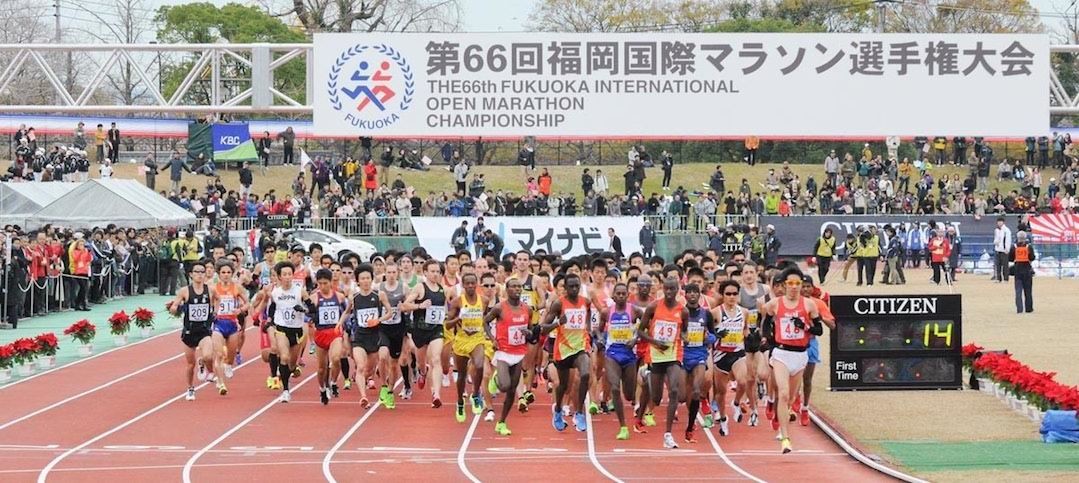
Ryu Takaku, who set a big PB of 2:06:45 in Tokyo earlier this year, is the fastest in the field. The 27-year-old is the fourth-fastest Japanese runner ever and will be making his second appearance in Fukuoka, having raced there in 2018.
Yuma Hattori, winner of the 2018 Fukuoka Marathon, will be back in the Japanese city looking for his second victory there. His last race over the distance was at last year’s Marathon Grand Championships, where he finished second to gain selection for Japan’s Olympic team.
Yuki Kawauchi, the 2018 Boston Marathon champion, will be making his 11th appearance in Fukuoka in what will be his 104th career marathon. A prolific racer, Kawauchi's last race over the distance was nine months ago – his longest break between marathons since 2010.
Taku Fujimoto finished second in Fukuoka last year and will be looking to go one better this time round. He set his PB of 2:07:57 when finishing eighth in Chicago in 2018, while earlier this year he clocked 1:00:06 at the Marugame Half Marathon, moving to second on the Japanese all-time list.
Six other men in the field have PBs faster than 2:09.
Leading entries
Ryu Takaku (JPN) 2:06:45
Yuma Hattori (JPN) 2:07:27
Taku Fujimoto (JPN) 2:07:57
Yuki Kawauchi (JPN) 2:08:14
Yuya Yoshida (JPN) 2:08:30
Naoki Okamoto (JPN) 2:08:37
Ser-Od Bat-Ochir (MGL) 2:08:50
Tsukasa Koyama (JPN) 2:08:53
Satoru Sasaki (JPN) 2:08:56
Naoya Sakuda (JPN) 2:08:59
Michael Githae (KEN) 2:09:21
Hayato Sonoda (JPN) 2:09:34
Jo Fukuda (JPN) 2:09:52
Kento Otsu (JPN) 2:10:01
Yoshiki Takenouchi (JPN) 2:10:01
Shohei Otsuka (JPN) 2:10:12
Koki Yoshioka (JPN) 2:10:13
Asuka Tanaka (JPN) 2:10:13
Daichi Kamino (JPN) 2:10:18
Yuichi Yasui (JPN) 2:10:19
Junichi Tsubouchi (JPN) 2:10:19
Ryo Matsumoto (JPN) 2:10:32
Derese Workneh (ETH) 2:10:52
Natsuki Terada (JPN) 2:10:55
Taiga Ito (JPN) 2:10:52
Paul Kuira (KEN) 2:11:58
Silas Kingori (KEN) debut
by World Athletics
Login to leave a comment
Michael Githae will spearhead Kenya's hopes for victory at the Fukuoka Marathon scheduled for December 6 in Japan
Githae has a personal best of 2:09:21 and will have Paul Kiura (2:11:38) and Silas Kingori, who is making his debut, for company.
Kenya has a superb record in the event with former world marathon record holder, Patrick Makau winning twice and Martin Mathathi, Joseph Ndambiri and Samuel Wanjiru winning once each.
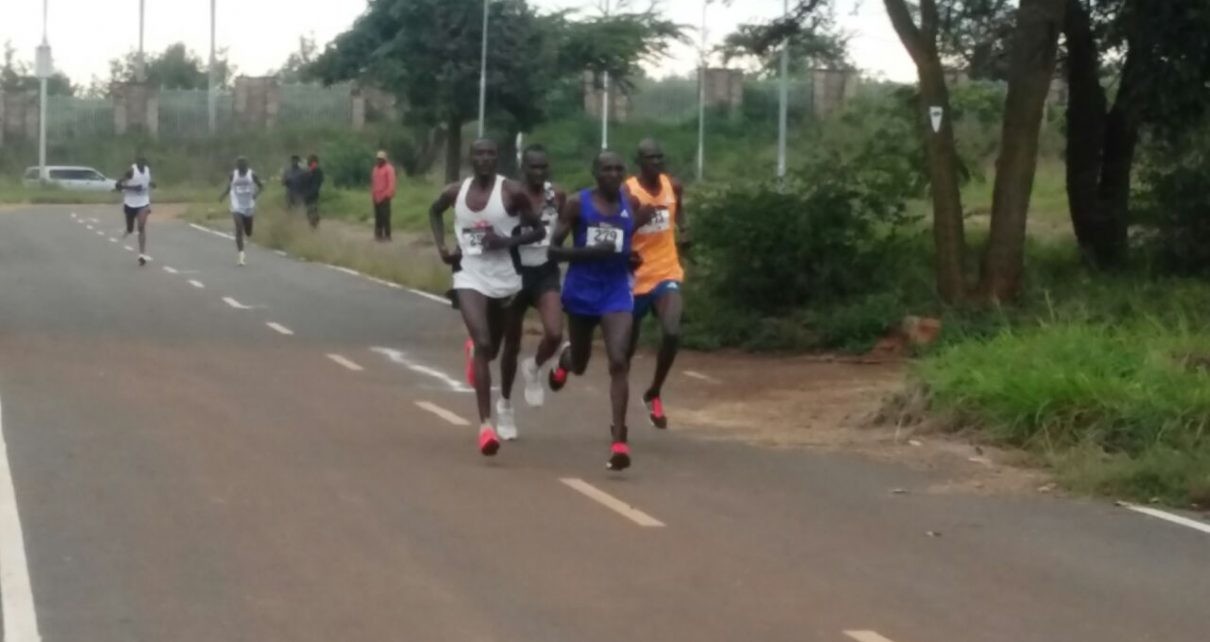
Japan will be well represented by Ryu Takaku, who set a big PB of 2:06:45 in Tokyo earlier this year. He is the fastest in the field. The 27-year-old is the fourth-fastest Japanese runner ever and will be making his second appearance in Fukuoka, having raced there in 2018.
Yuma Hattori, winner of the 2018 Fukuoka Marathon, will be back in the Japanese city looking for his second victory. His last race over the distance was at last year’s Marathon Grand Championships, where he finished second to gain selection in Japan’s Olympic team.
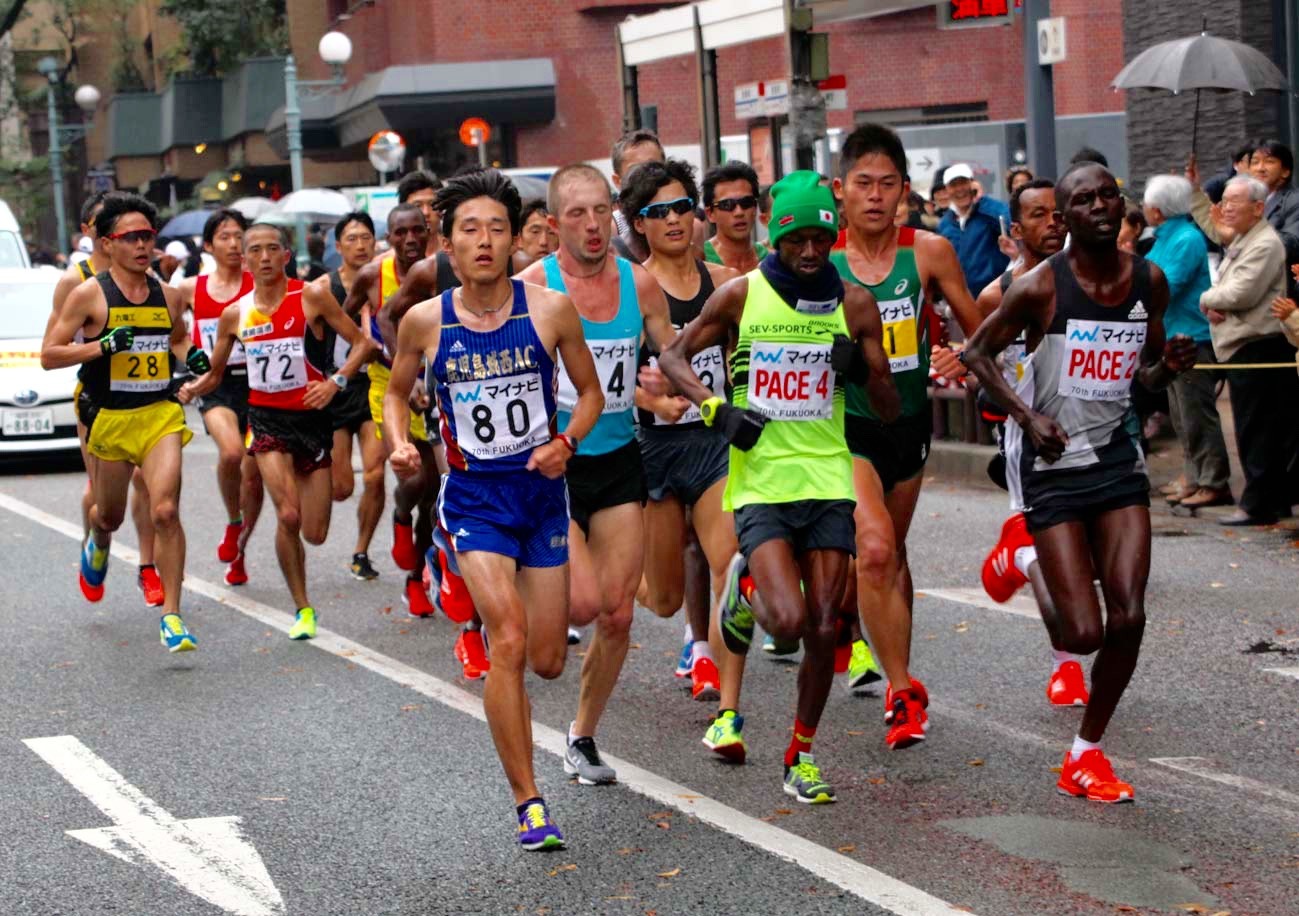
Yuki Kawauchi, the 2018 Boston Marathon champion, will be making his 11th appearance in Fukuoka in what will be his 104th career marathon. A prolific racer, Kawauchi's last race over the distance was nine months ago— his longest break between marathons since 2010.
Taku Fujimoto finished second in Fukuoka last year and will be looking to go one better this time round. He set his PB of 2:07:57 when finishing eighth in Chicago in 2018 while earlier this year, he clocked 1:00:06 at the Marugame Half Marathon, moving to second on the Japanese all-time list. Six other men in the field have PBs faster than 2:09.
by William Njuguna
Login to leave a comment
Fukuoka Marathon
The Fukuoka International Open Marathon Championship is one of the longest running races in Japan, it is alsoan international men’s marathon race established in 1947. The course record is held by Tsegaye Kebede of Ethiopia, running 2:05:18 in 2009. Frank Shorter won first straight years from 1971 to 1974. Derek Clayton set the World Record here in 1967 running 2:09:37. ...
more...Japan’s finest athletes to assemble at Golden Grand Prix
Most of Japan’s finest athletes will be out in force for the Seiko Golden Grand Prix, a World Athletics Continental Tour Gold meeting, in Tokyo, on Sunday (23).
The meeting, to be staged at Tokyo’s Olympic Stadium, was initially intended as a late spring preview for the Tokyo 2020 Olympic Games, but those plans were halted in their tracks with the spread of the coronavirus pandemic. Postponed at first from its original date, it’s now being held as a national event without spectators to align with restrictions on public gatherings. Nonetheless, it will still provide a strong competitive opportunity for Japanese athletes on the track that will host the Games next year.
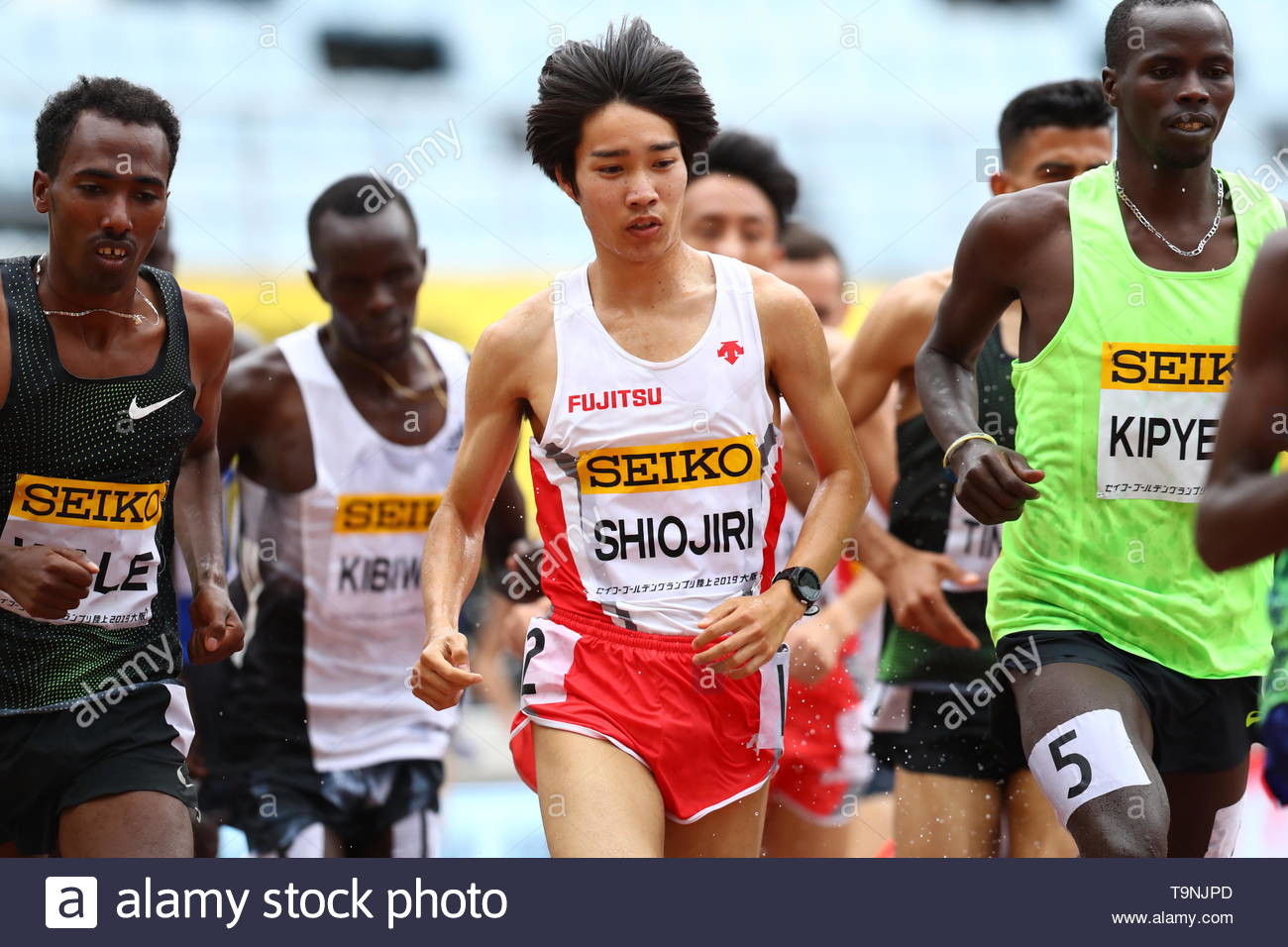
World U20 3000m champion Nozomi Tanaka will be the focus of attention after her 8:41.35 performance in Fukagawa last month to break the national 3000m record. She will contest the 1500m on Sunday where she’s already improved to 4:08.68 this season, not too far from the national record of 4:07.86.
The men’s 100m features five of the fastest 11 Japanese men of all time. Asian champion Yoshihide Kiryu, the first Japanese athlete to break the 10-second barrier, has a 9.98 career best as does Yuki Koike, who clocked his at the Diamond League meeting in London Last year.
They'll be joined by Ryota Yamagata, who has clocked 10.00, and Shuhei Tada, who led off Japan's bronze-winning quartet at the past two World Championships. Kiryu and Koike (heats) were also on the 4x100m relay squad in Doha.
Aska Cambridge, a 4x100m relay Olympic silver medallist in Rio four years ago, will also be in the field.
The men’s 200m features Olympic 4x100m silver medallist Shota Iizuka and world 4x100m bronze medallist Kirara Shiraishi.
Sprint hurdlers Shunya Takayama and Asuka Terada will also be in action. Takayama twice equalled the Japanese 110m hurdles record of 13.36 last year before breaking it outright with 13.30 and then reducing it further to 13.25. Terada set two national records last year in the 100m hurdles, first with 13.00 and then with 12.97 two weeks later.
On the infield, the men’s long jump is building to be a competitive event, with Koki Fujihara, who broke the Japanese U20 record last year with 8.12m, taking on national record-holder Shoutarou Shiroyama and 2018 world U20 champion Yuki Hashioka.
Naoto Tobe, the World Indoor Tour winner in the high jump in 2019, heads the field in his event. Tobe, who improved to 2.35m indoors in 2019, will take on Takashi Eto, a 2.30m jumper. Daichi Sawano, Seito Yamamoto and Masaki Ejima, all 5.71m men last season, will compete in the pole vault.
National record-holder Haruka Kitaguchi leads the javelin throw field, joined by three other Japanese women who’ve thrown beyond 60 metres: 2018 national champion Marina Saito, 2011 Asian bronze medallist Yuka Sato and two-time Asian bronze medallist Risa Miyashita.
The men’s javelin is of a similar high standard with four 80-metre throwers entered: Asian bronze medallist Ryohei Arai, 2012 Olympic finalist Genki Dean, Takuto Kominami and Yuta Sakiyama.
Organisers will also provide some of Japan's finest high school athletes an opportunity to compete against their nation's best athletes on the Olympic Stadium track through a ‘Dream Lane’ set aside in nine men’s and nine women’s events.
The decision to include high school athletes came after the Interscholastic Sport Games, the annual national high school championships in 30 sports, were cancelled due to the Covid-19 pandemic. A selection committee, which included 2000 Olympic marathon champion Naoko Takahashi, 2008 Olympic 4x100m relay silver medallist Shinji Takahira and High Performance Committee Track & Field Director Kazuhiko Yamazaki, selected 28 athletes. Some of the athletes include Kosuke Kawata, who has a 10.39 best in the 100m and Haruto Ishizuka, a 3:44.62 1500m runner.
by World Athletics
Login to leave a comment
More than half of Tokyo residents opposed to Olympics next year, survey finds
A new survey has found that more than half of Tokyo residents do not want the postponed Olympic and Paralympic Games to be held next year.
Tokyo 2020 has been moved back to 2021 due to the coronavirus pandemic, but doubts remain about the Games going ahead.

The survey, carried out over the phone by Kyodo News and the Tokyo MX television channel, was taken by 1,030 people.
It found that 51.7 per cent want the Games to be postponed again or cancelled, with 46.3 per cent wanting the re-arranged Tokyo 2020 to take place.
Out of those who are opposed to next year, 24 per cent said they would favour a second postponement.
This option has been repeatedly rejected by Tokyo 2020 and International Olympic Committee officials, however.
Complete cancellation was backed by 27.7 per cent.
Of those who want to see the Games go ahead next year, 31.1 per cent said they should take place in a reduced form.
This is the path being taken by organisers, with Tokyo 2020 chief executive ToshirÅ MutÅ speaking about "simplified Games" and announcing this month that 200 ideas on how to scale things back were being considered.
Holding a full-scale Olympics as planned was backed by 15.2 per cent.
The Tokyo 2020 Olympics are now scheduled for between July 23 and August 8 next year, with the Paralympics due to follow from August 24 to September 5.
Some believe that these dates will also not be feasible, however, if the coronavirus pandemic does not subside significantly around the world and a vaccine is not developed.
IOC President Thomas Bach is among those who have admitted the Games would be cancelled entirely if not possible in 2021, with a second postponement not being considered.
Tokyo 2020 Board member Haruyuki Takahashi has claimed, however, that another shift in dates should be considered.
The delay has created a huge logistical challenge for organisers, which Bach has described as a "huge jigsaw puzzle and every piece has to fit".
Another survey by Japanese broadcaster NHK revealed that two-thirds of corporate sponsors for Tokyo 2020 are unsure if they will extend their contracts past December, with 14 per cent saying it would depend on the asking price.
The re-arranged Games is a key topic amid campaigning for Tokyo's gubernatorial election on Sunday (July 5).
Incumbent governor Yuriko Koike looks likely to win a second term although one of her rival candidates, TarÅ Yamamoto, has pledged to cancel Tokyo 2020 if elected.
There are fears of a second wave of coronavirus in the Japanese capital, with the city reporting more than 50 cases for the past four days.
This is the highest level since early May, when Japan was under a state of emergency.
Login to leave a comment
Tokyo 2020 Olympic Games
Fifty-six years after having organized the Olympic Games, the Japanese capital will be hosting a Summer edition for the second time, originally scheduled from July 24 to August 9, 2020, the games were postponed due to coronavirus outbreak, the postponed Tokyo Olympics will be held from July 23 to August 8 in 2021, according to the International Olympic Committee decision. ...
more...Toronto marathon champion Benson Kipruto targets medal at rescheduled Boston marathon
Former Toronto marathon champion Benson Kipruto has returned to training as he tries to regain fitness and compete in Boston after the race was rescheduled to September.
Kipruto, the tenth finisher in last year's Boston marathon, believes with better weather, he can improve on his time and position on return to the United States.
Organizers of the Boston marathon have rescheduled the event to Sept 14 from April 20 due to COVID-19.
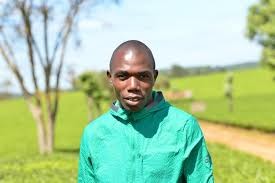
"Boston was to offer me a chance to springboard my career. But the good thing is it will be returning in September, and I want to utilize the chance to stage a better show, run a fast time and prove my critics wrong," Kipruto said on Monday from Eldoret.
The 28-year-old had lost interest in training when COVID-19 wrecked the sports calendar, but he has returned to training now that World Athletics (WA) has confirmed the return of track and field competition in the Diamond League.
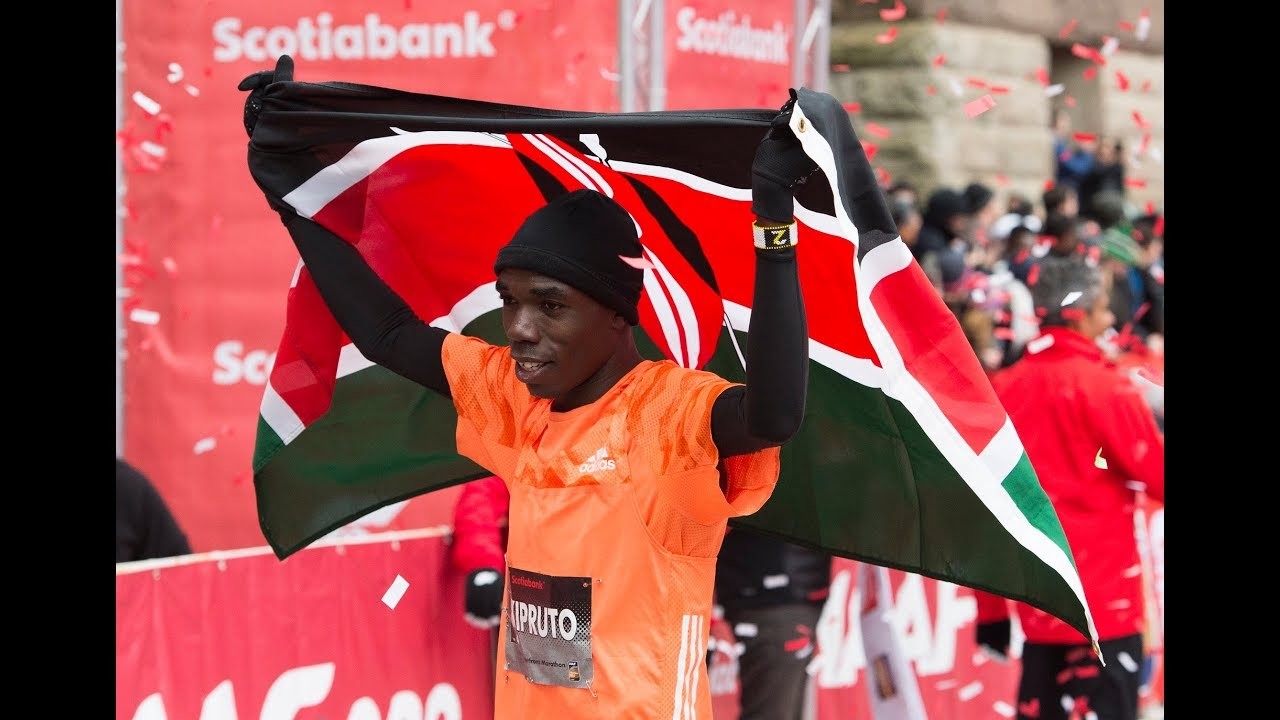
"Today, I train once a day, to keep fit. But I had done a lot in preparing for the Boston marathon and it will not be hard to pick up the pace and work around the clock to attain the optimum fitness to challenge for the medal," said Kipruto.
This year, Kipruto competed at the International Guadalajara Half marathon race in Mexico in February winning in a time of 62 minutes 13 seconds.
"It is important to be careful not to incur any new injuries, even now that we have cut down the training sessions," he added.
In Boston, Kipruto will come up against champion Lawrence Cherono, silver medalist Lelisa Desisa of Ethiopia, Yuki Kawauchi of Japan and 2017 World Athletics Championships gold medalist Geoffrey Kirui of Kenya.
Throw in former Olympic champion Stephen Kiprotich of Uganda, New York marathon silver medalist Albert Korir, Ethiopian Dejene Debela, runner-up to Cherono by one second in Chicago Marathon, Kenneth Kipkemoi, Philemon Rono and Felix Kandie, it is sure to be a hard fought contest.
Login to leave a comment
Boston Marathon
Among the nation’s oldest athletic clubs, the B.A.A. was established in 1887, and, in 1896, more than half of the U.S. Olympic Team at the first modern games was composed of B.A.A. club members. The Olympic Games provided the inspiration for the first Boston Marathon, which culminated the B.A.A. Games on April 19, 1897. John J. McDermott emerged from a...
more...Like everywhere else, lives and plans in Japan have been put on hold by the global outbreak of the Covid-19 virus
Japan was one of the first countries after China to detect cases of the virus, its first on 16 January, but taking until 7 April for official numbers to climb enough for the national government to declare a state of emergency.
The official response within Japanese athletics has been similar, simultaneously fast and slow. The Tokyo Marathon on 1 March was one of the first outside China to put a stop order on this year’s edition, announcing that it would cancel its mass-participation race and go ahead as an elite-only event. The Nagoya Women’s Marathon on 8 March echoed that days later.
But while other road races joined Nagoya in following Tokyo’s lead, outdoor track season appeared ready to go forward. Some individual events in early April were voluntarily cancelled, but after 2008 Olympic 4x100m silver medallist Naoki Tsukahara was diagnosed with the coronavirus on 30 March, the JAAF Athlete Committee submitted a formal written request to the JAAF that all competitions through the end of May be cancelled or postponed. The JAAF went one better, cancelling or postponing everything through the end of June, including the National Championships.
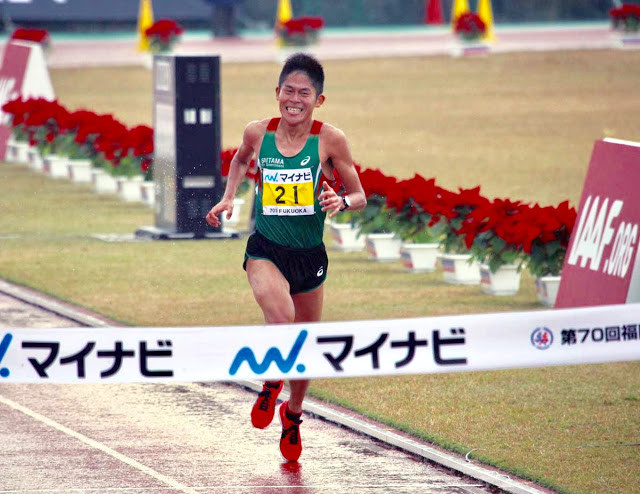
So where did this leave Japan’s athletes? For some, it put fresh-caught dreams straight on to ice. Tokyo, Nagoya and Lake Biwa were the culmination of a three-year process to put together the best Olympic marathon teams Japan could. After these races, on 8 March the JAAF confirmed the line-ups of Honami Maeda, Ayuko Suzuki, and Mao Ichiyama for women, and Shogo Nakamura, Yuma Hattori and Suguru Osako for men.
On 15 March at the 20km race walk Olympic trials, Nanako Fujii and Koki Ikeda joined Kumiko Okada, Toshikazu Yamanishi, Yusuke Suzuki and Masatora Kawano on the Olympic race walk teams. Eiki Takahashi was added a few weeks later.
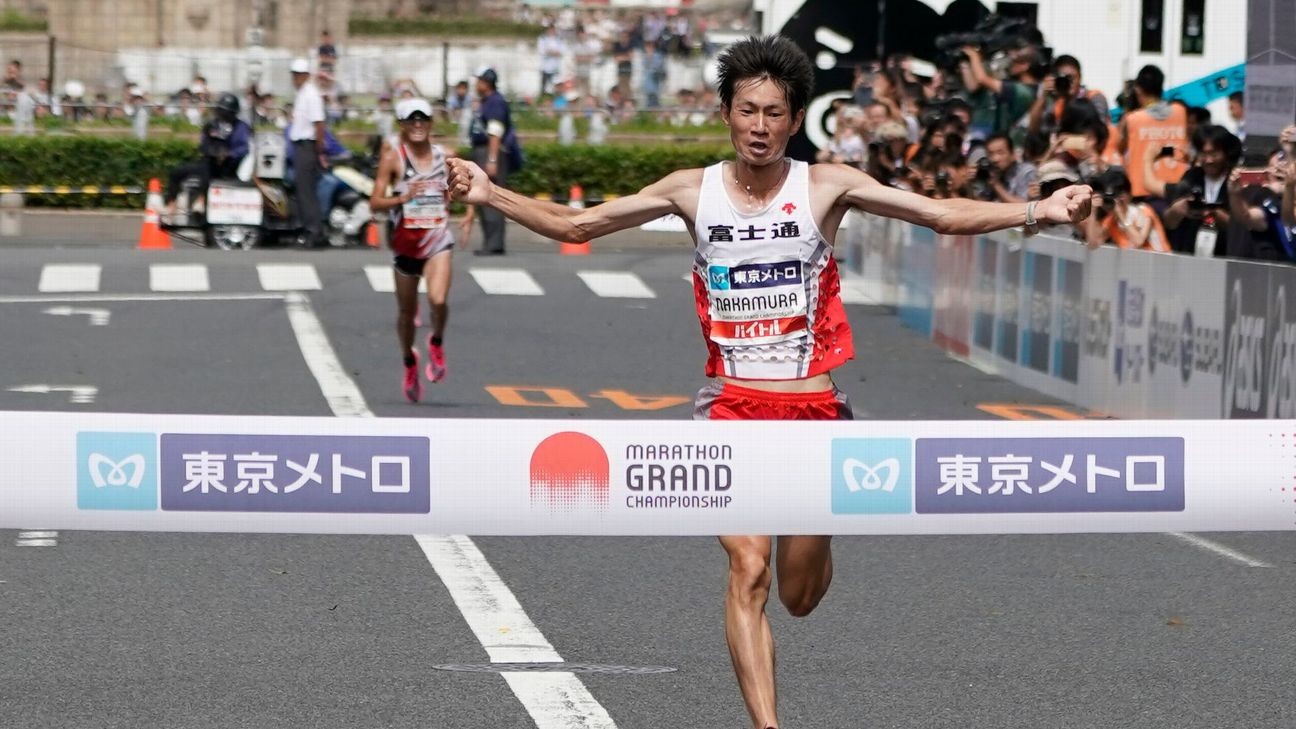
Japanese athletes have it easier. Low official infection numbers and the absence of a lockdown have meant comparatively fewer restrictions, but it’s still meant changes. Yuki Saito, assistant coach for both marathon runner Suzuki and 5000m Olympic team favourite Ririka Hironaka, said: “Suzuki was supposed to get physiotherapy at the Japan Institute of Sport Science, but it’s been closed and that’s been an issue. With 11 athletes on our team, we never have more than four or five running together. We can’t do out-of-town training, and since the declaration of emergency, the university where we do workouts has been closed. We’re probably going to use some nearby parks twice a week. With more people working from home there’ll be more around, so we have to be careful not to come too close.”
Post-collegiate Japanese athletes also have a little more peace of mind thanks to the corporate team system. Team members are salaried employees of the sponsor company, meaning that if the situation stretches on for months, they should still get paid whether or not they compete. That means less financial vulnerability than many professional athletes elsewhere.
But there is still the frustration of carefully worked-out plans thrown out the window and no races on the immediate horizon. Brendan Reilly, agent for all three women on the Olympic marathon squad, said: “We had race and/or training plans in place, and the last of those was scrapped in early April.”
For now, like everywhere, it’s a holding pattern. Like everywhere, Japanese athletes are doing what they can to stay optimistic and focused, and to help transmit the same feelings to the general population as the situation becomes more serious. From the members of the 4x100m team to high jump national record-holder Naoto Tobe to marathon runner Hattori, they’ve been posting workouts the average person can do at home, baking tips, and just positive messages.
“Sport is not only essential to maintain and elevate our physical and mental health,” wrote National Sports Agency commissioner and Olympic gold medallist Daichi Suzuki, “but also gives people pride, joy, dreams, excitement, courage. I hope all of us in the sport community can work together as one to help bring this public health threat under control.”
It’s a sentiment everyone in the sport worldwide can take to heart as we all face uncertainty in the year to come.
by Brett Larner for world Athletics
Login to leave a comment
Keizo Yamada a former Boston marathon champion dies at 92
Keizo Yamada, who won the 1953 Boston Marathon and last ran the race in 2009, died of natural causes on April 2, his wife said Thursday. He was 92.
Yamada, who was born in Akita Prefecture in 1927, spent the war years as a youth in Manchuria and after being repatriated competed for Japan in its first postwar Olympics, the 1952 Helsinki Games.
His finishing time of 2 hours, 18 minutes and 51 seconds in Boston was considered the world's fastest marathon at the time until it was found the course failed to meet the standard distance. His triumph was the subject of the Japanese movie "Shinzo Yaburi no Oka" ("Heartbreak Hill").
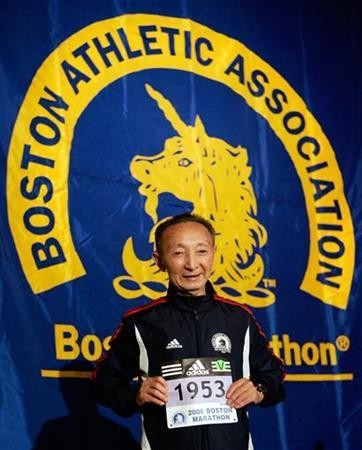
"His victory during the recovery period after the war energized the Japanese people," two-time Boston Marathon champion Toshihiko Seko said in a statement. "It's an honor to have won the same race as Mr. Yamada."
After retiring from competition, Yamada continued running marathons and took part in the Boston Marathon, running in 15 straight until his final one in 2009. That year, Yamada, who ran roughly 340 full marathons in his career, announced he would run no more.
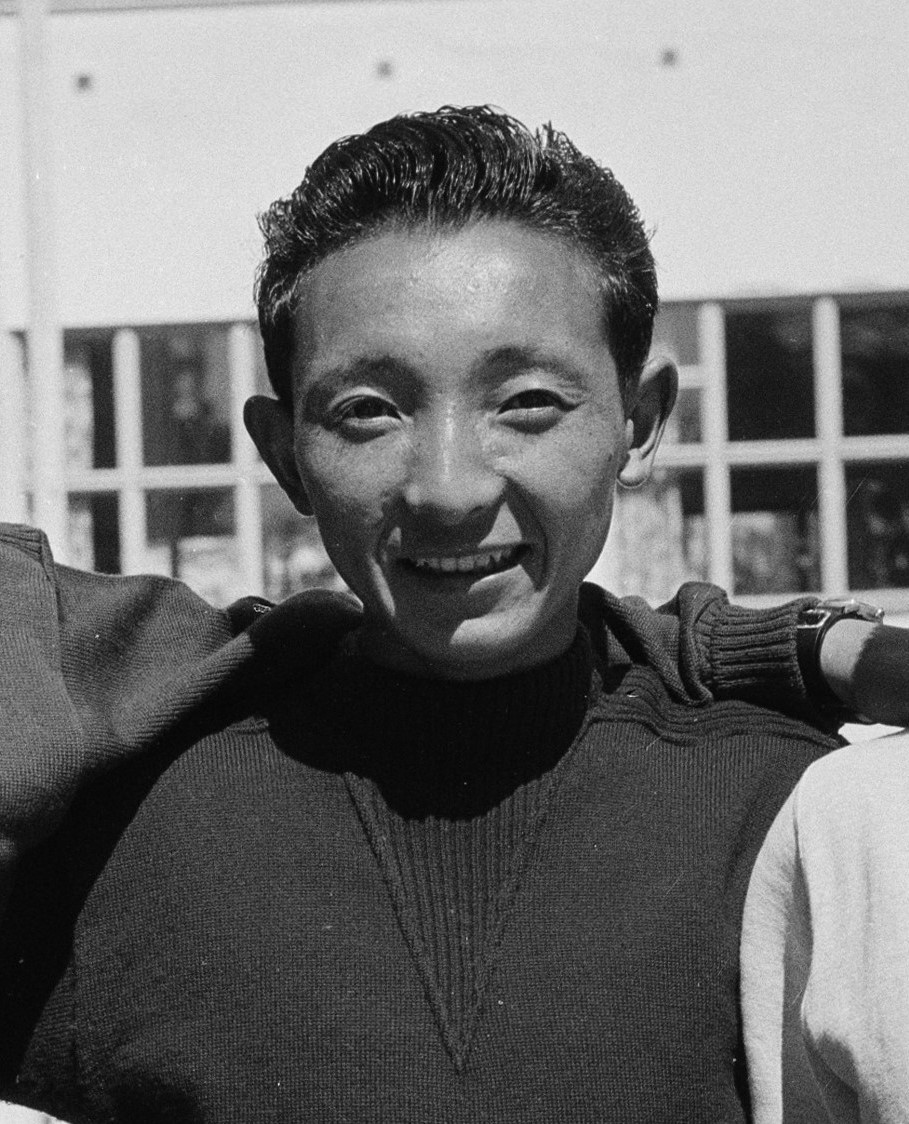
Yuki Kawauchi, who won in Boston in 2018, also paid tribute to Yamada.
"He was a giant among Japanese legends. Despite being an elite runner, he devoted his life to promoting the marathon," Kawauchi said.
The 33-year-old Kawauchi, who has competed in more than 100 full marathons, did so for most of his career while serving as a civil servant in Saitama Prefecture, earning him the nickname "citizen runner."
"Mr. Yamada initiated the citizens' marathon boom with his activities throughout the nation," Kawauchi said. "One of my targets is to run in 340 marathons by my 50th birthday."
Login to leave a comment
Boston Marathon
Among the nation’s oldest athletic clubs, the B.A.A. was established in 1887, and, in 1896, more than half of the U.S. Olympic Team at the first modern games was composed of B.A.A. club members. The Olympic Games provided the inspiration for the first Boston Marathon, which culminated the B.A.A. Games on April 19, 1897. John J. McDermott emerged from a...
more...An assault of Wilson Kipsang's course record on tap at the 75th edition of the Lake Biwa Marathon
An assault of Wilson Kipsang's 2:06:13 course record from 2011 is on tap at the 75th edition of the Lake Biwa Marathon, a World Athletics Gold Label road race, in Otsu, Japan, on Sunday.
Three sub-2:06 and two sub-2:07 runners are in the line-up. Four of those have career bests faster than Kipsang's nine-year-old record. All of those performances came in 2019, suggesting that quartet is on top of their game.
The fastest in the field is Evan Chebet who clocked 2:05:00 in winning last year's Buenos Aires Marathon. Chebet has also produced sub-2:06 runs in Valencia, Berlin and Seoul and also finished fourth in the Tokyo Marathon with 2:06:42.
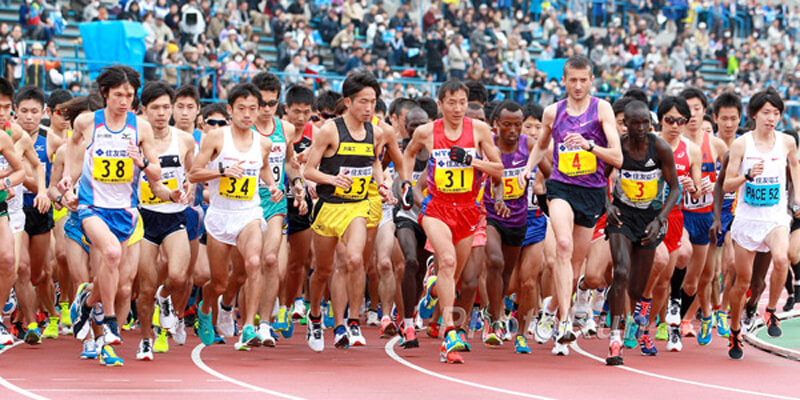
The next fastest is Filex Chemonges who broke the Ugandan national record with a 2:05:12 performance in Toronto last year. He has run three marathons and each time improved his personal best.
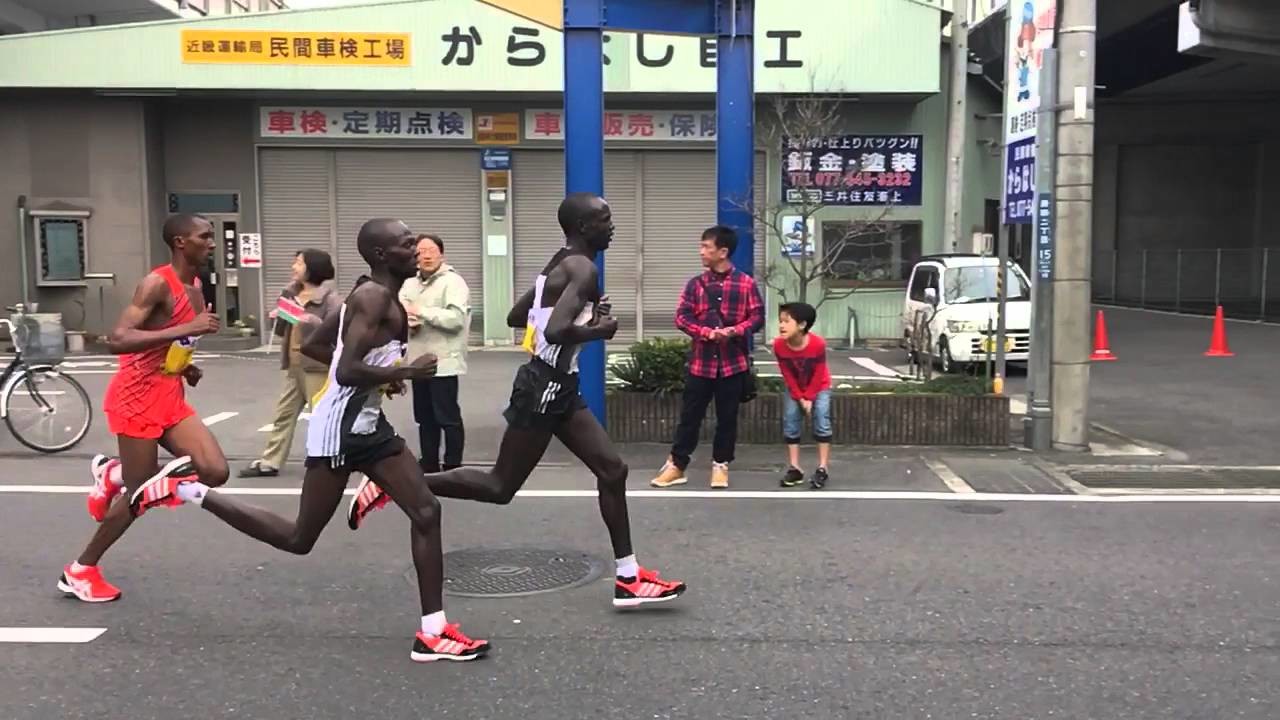
Felix Kiprotich, the third fastest in the field, won the 2019 Daegu Marathon with 2:05:33, and also has three more sub-2:07 runs to his credit. Samuel Ndungu, the Lake Biwa winner in 2015, improved his personal best to 2:06:02 in Lisbon last year. The final sub-2:07 man in the field is Dutch national record holder Abdi Nageeye who improved clocked 2:06:17 in Rotterdam, also last year.
Former winners joining Ndungu are 2018 champion Joseph Ndirangu and 2019 winner Salah Bounasar. Other contenders include Stephen Mokoka who was third in 2019 in 2:07:58, the second-best time of his career.
The race also serves as the final chance for Japanese men to win a spot on the Olympic Marathon team. To secure their spot, a runner must run faster than the 2:05:29 national record set last week by Suguru Osako.
The fastest among the five invited Japanese runners is Yuki Kawauchi, with a lifetime best of 2:08:14. Other high-profile Japanese include Takuya Noguchi, with a 2:08:59 best; Kohei Ogino, who's clocked 2:09:36; Shohei Otsuka, a 2:10:12 man; and Kengo Suzuki, who has a 2:10:21 best.
by World Athletics
Login to leave a comment
Osaka Marathon
In 2022 the Lake Biwa Mainichi Marathon and Osaka Marathon were held together. For 2023 the name of the marathon will be Osaka and both men and women can run the race. The original male-only competition was first held in 1946 and, having taken place every year since then, it is Japan's oldest annual marathon race. The early editions of...
more...

